Murders at Karlov Manor Release Notes
Compiled by Eric Levine
Document last modified January 25, 2024
PDF Download Links:
English | 中国话,汉语;中文 | Français | Deutsch
Italiano | Português | Español | 日本語
The Release Notes include information concerning the release of a new Magic: The Gathering set, as well as a collection of clarifications and rulings involving that set's cards. It's intended to make playing with the new cards more fun by clearing up the common misconceptions and confusion inevitably caused by new mechanics and interactions. As future sets are released, updates to the Magic rules may cause some of this information to become outdated. Go to Magic.Wizards.com/Rules to find the most up-to-date rules.
The "General Notes" section includes information about card legality and explains some of the mechanics and concepts in the set.
The "Card-Specific Notes" sections contain answers to the most important, most common, and most confusing questions players might ask about cards in the set. Items in the "Card-Specific Notes" sections include full card text for your reference. Not all cards in the set are listed.
GENERAL NOTES
Card Legality
Murders at Karlov Manor cards with the MKM set code are permitted in the Standard, Pioneer, and Modern formats, as well as in Commander and other formats. At release, the following card sets will be permitted in the Standard format: Innistrad: Midnight Hunt, Innistrad: Crimson Vow, Streets of New Capenna, Kamigawa: Neon Dynasty, Dominaria United, The Brothers' War, Phyrexia: All Will Be One, March of the Machine, March of the Machine: The Aftermath, Wilds of Eldraine, The Lost Caverns of Ixalan, and Murders at Karlov Manor.
Murders at Karlov Manor Commander cards with the MKC set code and numbered 1–48 (and their alternate versions numbered 312–358) are permitted in the Commander, Legacy, and Vintage formats. Cards with the MKC set code numbered 53–311 are legal for play in any format where a card with the same name is permitted.
New cards from the Ravnica: Clue Edition (Ravnica: Cluedo Edition) product with the CLU set code and numbered 1–6 and 12–51 are permitted in the Commander, Legacy, and Vintage formats. Cards with the CLU set code numbered 7–11 and 52–283 are legal for play in any format where a card with the same name is permitted.
Special Guests cards are previously printed cards from a variety of backgrounds visiting the set. You never know who or what will make an appearance! There are 10 Special Guests cards in Murders at Karlov Manor. They have the set code SPG and are legal for play in any format where a card with the same name is permitted.
Any cards opened from Murders at Karlov Manor Play Boosters in a Sealed Deck event are part of your card pool. The same is true for any that are drafted in a Draft event. This may include Special Guests cards or cards from The List.
Go to Magic.Wizards.com/Formats for a complete list of formats and their permitted card sets and banned lists.
Go to Magic.Wizards.com/Commander for more information on the Commander variant.
Go to Locator.Wizards.com to find an event or store near you.
Returning Mechanic: Face-Down Cards
New Keyword Ability: Disguise
New Keyword Action: Cloak
Every good whodunit features some hidden identities, and face-down cards are the ultimate hidden identities in Magic! Murders at Karlov Manor features two keywords that turn cards face down: disguise and cloak.
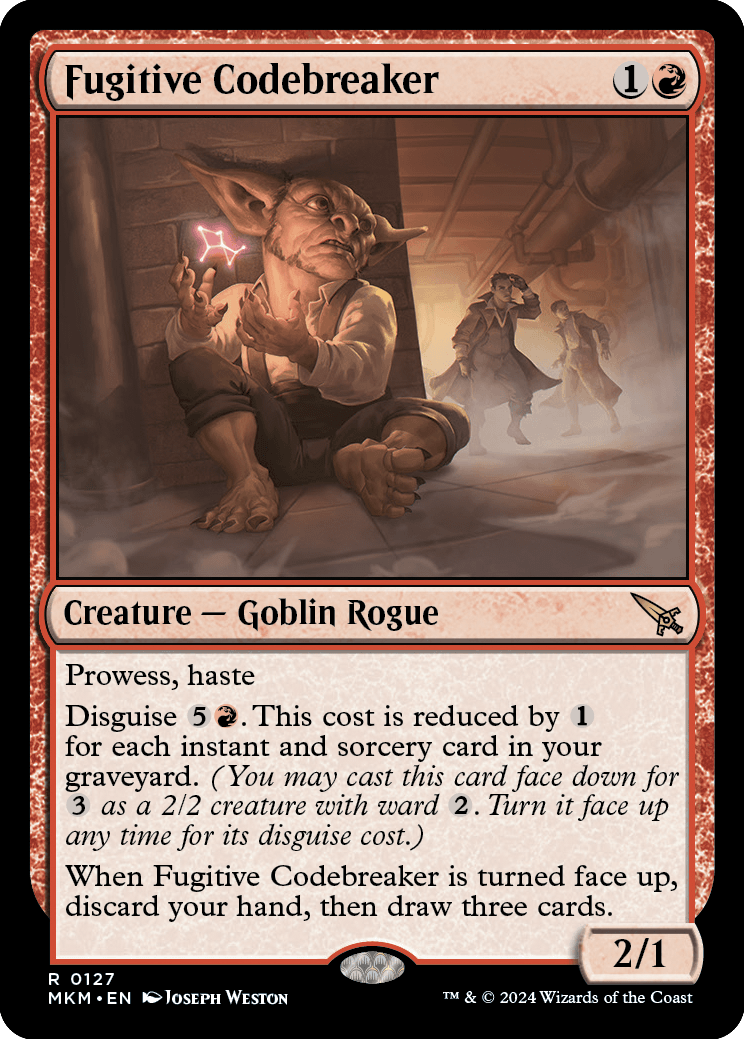
Fugitive Codebreaker
{1}{R}
Creature — Goblin Rogue
2/1
Prowess, haste
Disguise {5}{R}. This cost is reduced by {1} for each instant and sorcery card in your graveyard. (You may cast this card face down for {3} as a 2/2 creature with ward {2}. Turn it face up any time for its disguise cost.)
When Fugitive Codebreaker is turned face up, discard your hand, then draw three cards.
- A disguise ability lets you cast a card face down by paying {3} and announcing that you are using a disguise ability. Any time you have priority, you can turn a face-down permanent with disguise face up by paying its disguise cost.
- The face-down spell has no mana cost and a mana value of 0. When you cast a face-down spell, put it on the stack face down so no other player knows what it is, and pay {3} to cast it. This is an alternative cost.
- The creature spell is a 2/2 creature spell with ward {2} that has no name, mana cost, or creature types. The resulting creature is a 2/2 creature with ward {2} that has no name, mana cost, or creature types. Both the spell and the resulting creature are colorless and have a mana value of 0. Other effects that apply to the spell or creature can still grant it any characteristics it doesn't have or change the characteristics it does have.
- Any time you have priority, you may turn the face-down creature face up by revealing what its disguise cost is and paying that cost. This is a special action. It doesn't use the stack and can't be responded to. Only a face-down permanent can be turned face up this way; a face-down spell cannot.
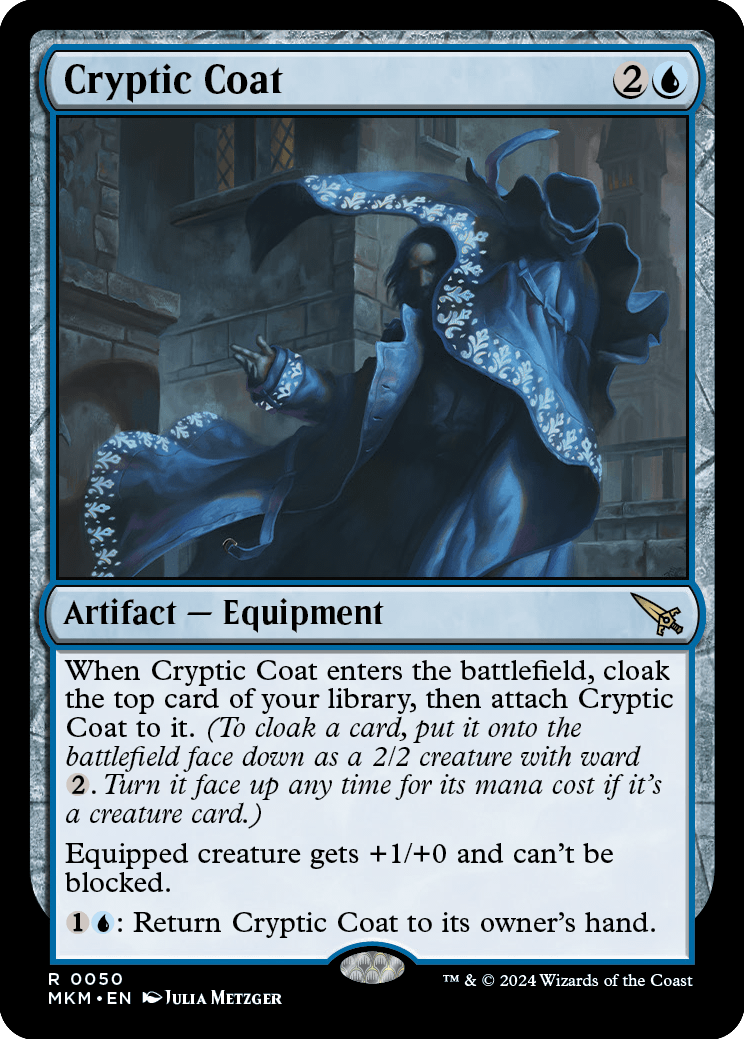
Cryptic Coat
{2}{U}
Artifact — Equipment
When Cryptic Coat enters the battlefield, cloak the top card of your library, then attach Cryptic Coat to it. (To cloak a card, put it onto the battlefield face down as a 2/2 creature with ward {2}. Turn it face up any time for its mana cost if it's a creature card.)
Equipped creature gets +1/+0 and can't be blocked.
{1}{U}: Return Cryptic Coat to its owner's hand.
- To cloak a card, put it onto the battlefield face down. It becomes a 2/2 face-down creature card with ward {2} and no name, mana cost, or creature types. It's colorless and has a mana value of 0. Other effects that apply to the permanent can still grant it any characteristics it doesn't have or change the characteristics it does have.
- Any time you have priority, you can turn a cloaked permanent you control face-up by revealing that it's a creature card (ignoring any copy effects or type-changing effects that might be applying to it) and paying its mana cost. This is a special action. It doesn't use the stack and can't be responded to.
- If a cloaked creature would have disguise (or morph) if it were face up, you may also turn it face up by paying its disguise (or morph) cost.
- Unlike a face-down creature that was cast using a disguise or morph ability, a cloaked creature may still be turned face up after it loses its abilities if it's a creature card.
- If a double-faced card is cloaked, it will be put onto the battlefield face down. While face down, it can't transform. If the front face of the card is a creature card, you can turn it face up by paying its mana cost. If you do, its front face will be up.
General Notes on Face-Down Cards:
- Casting a face-down creature spell using a morph ability now requires you to declare that you are using a morph ability. (You were probably doing this already, but it's now necessary in order to distinguish morph and disguise.)
- At any time, you can look at a face-down spell or permanent you control. You can't look at face-down permanents or spells you don't control unless an effect instructs or allows you to do so.
- If a face-down creature loses its abilities, it can't be turned face up with a disguise ability because it will no longer have a disguise ability (or a disguise cost) once face up.
- Because the permanent is on the battlefield both before and after it's turned face up, turning a permanent face up doesn't cause any enters-the-battlefield abilities to trigger.
- Because face-down creatures don't have a name, they can't have the same name as any other creature, even another face-down creature.
- A permanent that turns face up or face down changes characteristics but is otherwise the same permanent. Spells and abilities that were targeting that permanent and Auras and Equipment that were attached to that permanent aren't affected unless the new characteristics of the object change the legality of those targets or attachments.
- Turning a permanent face up or face down doesn't change whether that permanent is tapped or untapped.
- If a face-down spell leaves the stack and goes to any zone other than the battlefield (if it was countered, for example), you must reveal it. Similarly, if a face-down permanent leaves the battlefield, you must reveal it. You must also reveal all face-down spells and permanents you control if you leave the game or the game ends.
- You must ensure that your face-down spells and permanents can be easily differentiated from each other. You're not allowed to mix up the cards that represent them on the battlefield to confuse other players. The order in which they entered the battlefield should remain clear, as well as what ability caused them to be face down. (This includes disguise, cloak, and in games involving older cards, morph and manifest, as well as a few other effects that turn cards face down.) Common methods for doing this include using markers or dice, or simply placing them in order on the battlefield.
- If something tries to turn a face-down instant or sorcery card on the battlefield face up, reveal that card to show all players it's an instant or sorcery card. The permanent remains on the battlefield face down. Abilities that trigger when a permanent turns face up won't trigger, because even though you revealed the card, it never turned face up.
New Enchantment Type: Case
A murder, you say? Well, good news: the many detectives of Ravnica are on the Case! Well, several Cases, actually. There's a bit of a backlog. Maybe you can help; we've got a few unsolved Cases for you to look at, and if you manage to solve them, our grateful citizens will even reward you.
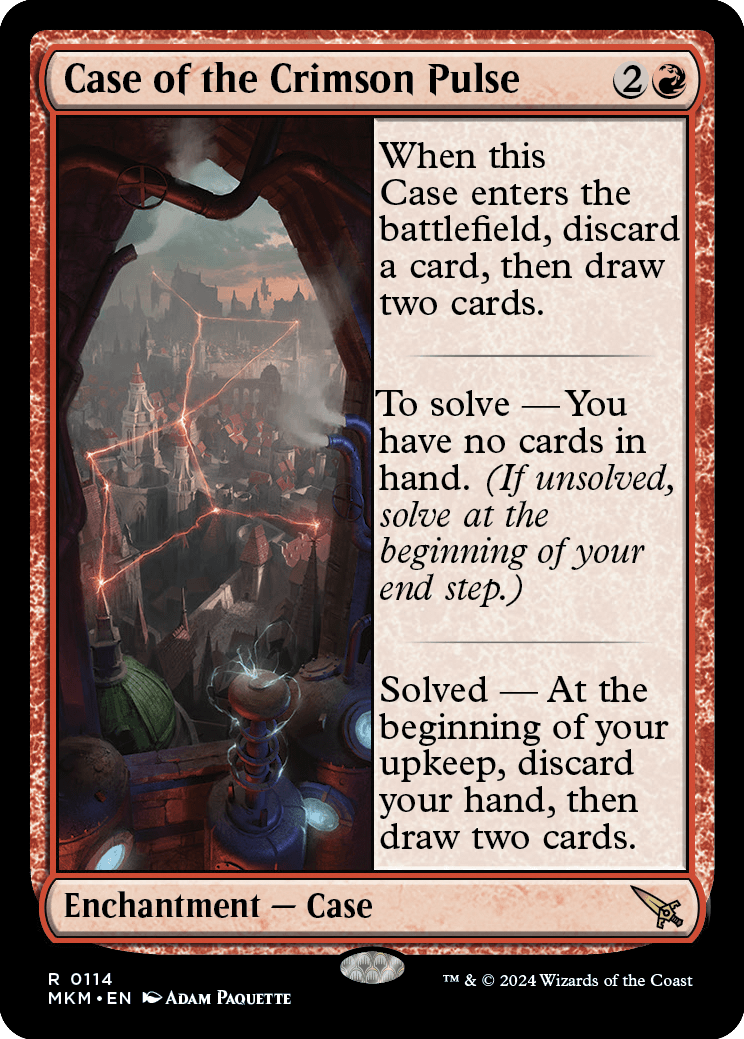
Case of the Crimson Pulse
{2}{R}
Enchantment — Case
When this Case enters the battlefield, discard a card, then draw two cards.
To solve — You have no cards in hand. (If unsolved, solve at the beginning of your end step.)
Solved — At the beginning of your upkeep, discard your hand, then draw two cards.
- Each Case has two special keyword abilities: to solve and solved.
- "To Solve — [condition]" means "At the beginning of your end step, if [condition] and this Case is not solved, it becomes solved."
- The meaning of "solved" differs based on what type of ability follows it. "Solved — [activated ability]" means "[Activated ability]. Activate only if this Case is solved." Activated abilities contain a colon. They're generally written "[Cost]: [Effect]."
- "Solved — [Triggered ability]" means "[Triggered ability]. This ability triggers only if this Case is solved." Triggered abilities use the word "when," "whenever," or "at." They're often written as "[Trigger condition], [effect]."
- "Solved — [static ability]" means "As long as this Case is solved, [static ability]." Static abilities are written as statements, such as "Creatures you control get +1/+1" or "Instant and sorcery spells you cast cost {1} less to cast."
- "To solve" abilities will check for their condition twice: once when the ability would trigger, and once when it resolves. If the condition isn't true at the beginning of your end step, the ability won't trigger at all. If the condition isn't true when the ability resolves, the Case won't become solved.
- Once a Case becomes solved, it stays solved until it leaves the battlefield.
- Cases don't lose their other abilities when they become solved.
- Being solved is not part of a permanent's copiable values. A permanent that becomes a copy of a solved Case is not solved. A solved Case that somehow becomes a copy of a different Case stays solved.
New Keyword Action: Collect Evidence
On Ravnica, we don't solve cases on hunches alone. Aspiring detectives like you go out into the field and collect evidence so we can figure out what happened. To "collect evidence N", exile cards with total mana value N or greater from your graveyard.
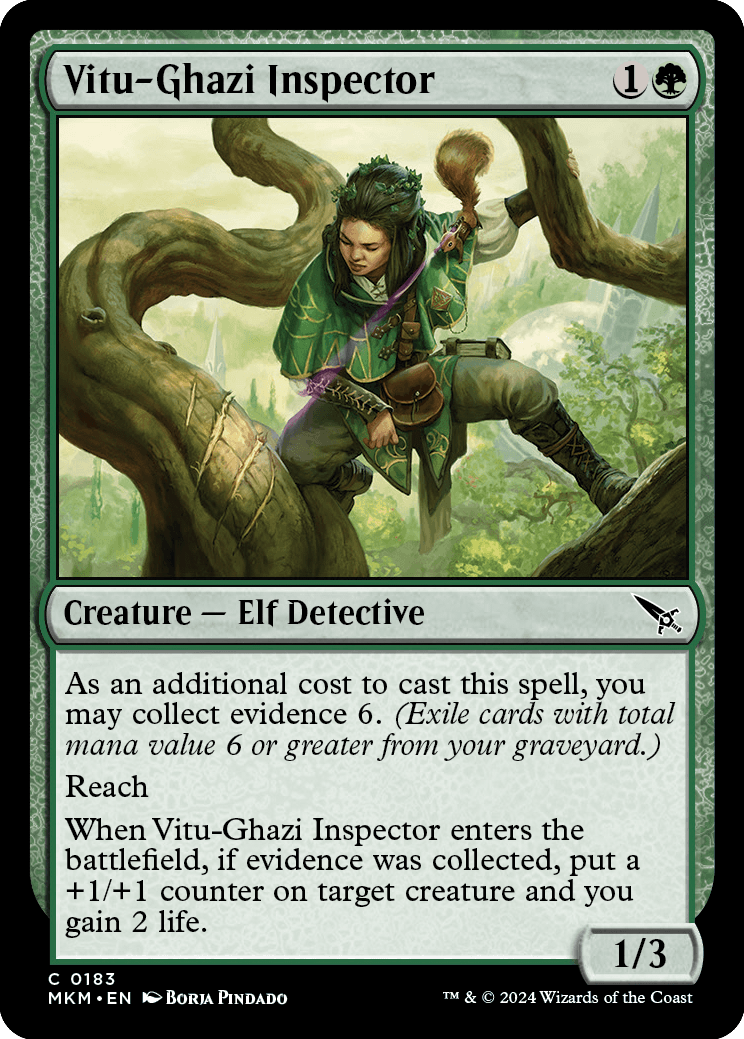
Vitu-Ghazi Inspector
{1}{G}
Creature — Elf Detective
1/3
As an additional cost to cast this spell, you may collect evidence 6. (Exile cards with total mana value 6 or greater from your graveyard.)
Reach
When Vitu-Ghazi Inspector enters the battlefield, if evidence was collected, put a +1/+1 counter on target creature and you gain 2 life.
- If you can't exile enough cards to meet or exceed the required mana value, you can't choose to collect evidence at all.
- Once you've announced that you're casting a spell, players can't take actions until you've finished doing so. Notably, opponents can't try to remove cards from your graveyard to stop you from collecting evidence.
New Keyword Action: Suspect
So you're pretty sure you know who did it, right? No need to bring them in for questioning yet; you can feel free to suspect whomever you like. Some spells and abilities will allow you to suspect a creature. Suspected creatures have menace and can't block.
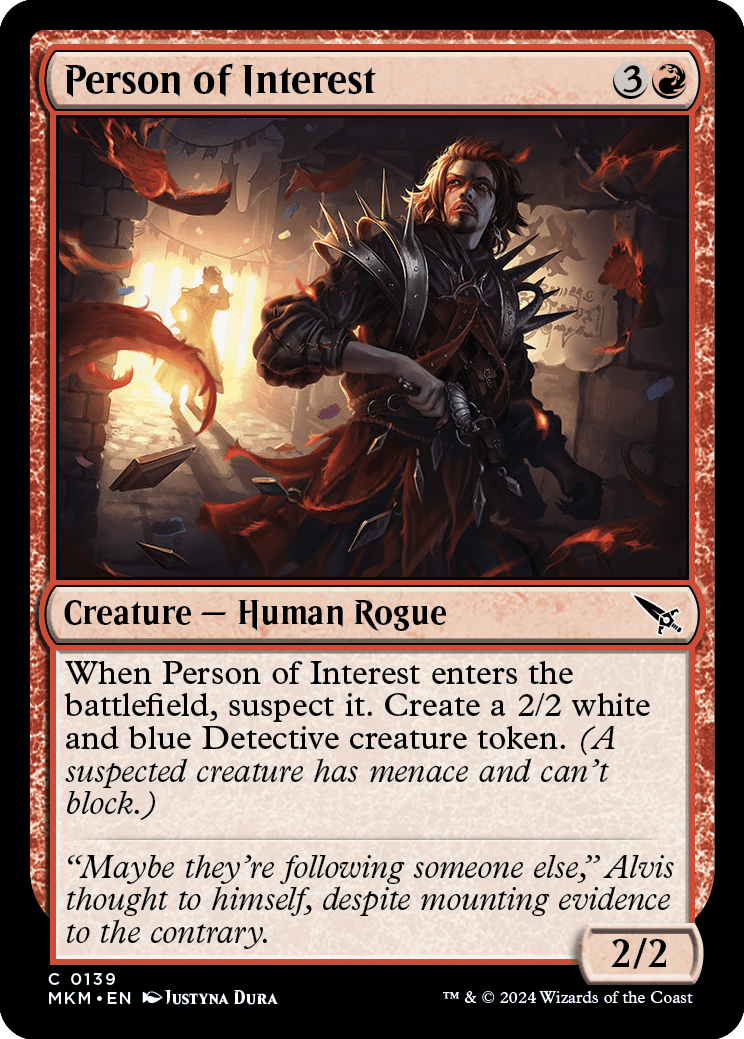
Person of Interest
{3}{R}
Creature — Human Rogue
2/2
When Person of Interest enters the battlefield, suspect it. Create a 2/2 white and blue Detective creature token. (A suspected creature has menace and can't block.)
- When an effect suspects a creature, it becomes suspected. It gains menace and "This creature can't block" for as long as it's suspected. It stays suspected until it leaves the battlefield or another effect causes it to no longer be suspected.
- If a suspected creature loses all abilities, it will lose menace and "This creature can't block," but it won't stop being suspected.
- Being suspected isn't a copiable value. If a permanent becomes a copy of a suspected creature, it won't be suspected.
- If a creature is already suspected, suspecting it again won't have any effect.
- There's no limit to the number of creatures that can be suspected simultaneously. Suspecting a new creature doesn't cause other creatures to stop being suspected.
Returning Mechanic: Clue Tokens
Returning Keyword Action: Investigate
But how do you know who did it? Like I said before, hunches aren't enough. You'll have to go out and find at least one clue. Preferably more, of course. Whenever you investigate, you create a Clue token.
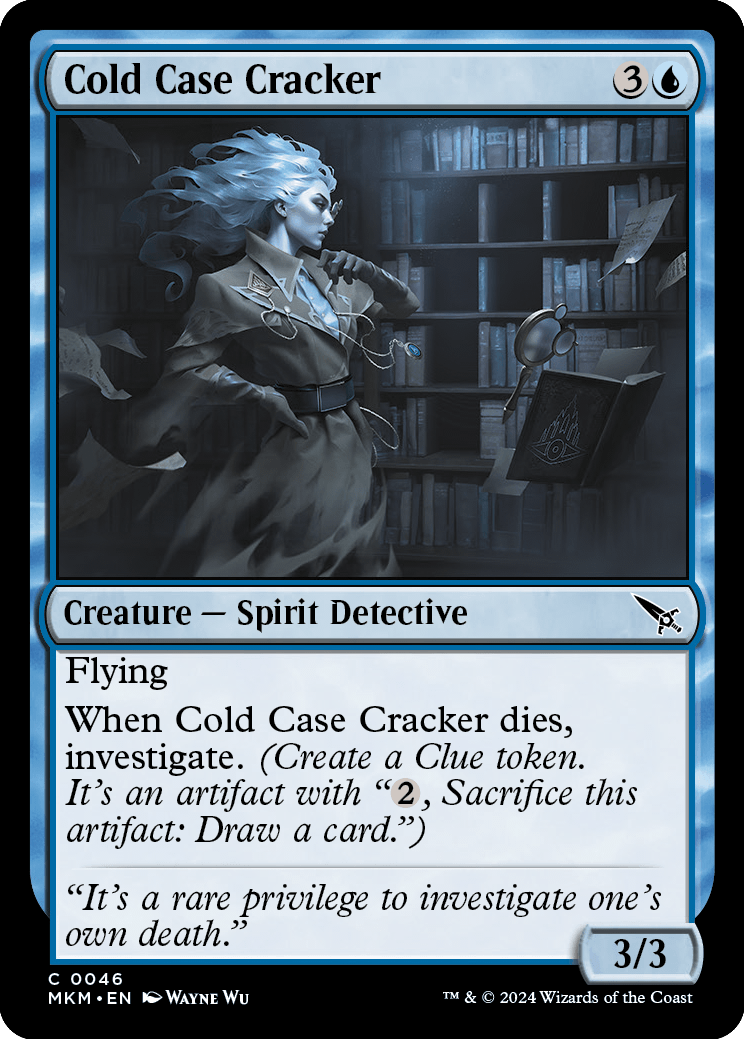
Cold Case Cracker
{3}{U}
Creature — Spirit Detective
3/3
Flying
When Cold Case Cracker dies, investigate. (Create a Clue token. It's an artifact with "{2}, Sacrifice this artifact: Draw a card.")
- Clue is an artifact type. Even though it appears on some cards with other permanent types, it's never a creature type, a land type, or anything but an artifact type.
- If an effect refers to a Clue, it means any Clue artifact, not just a Clue artifact token. For example, you can sacrifice Wrench to pay for Alquist Proft, Master Sleuth's activated ability.
- You can't sacrifice a Clue to pay multiple costs. For example, you can't sacrifice a Clue token to activate its own ability and also to activate Alquist Proft, Master Sleuth's ability.
- Some spells and abilities that investigate may require targets. If each target chosen is an illegal target as that spell or ability tries to resolve, it won't resolve. You won't create any Clue tokens.
- Some abilities trigger "whenever you sacrifice a Clue". Those abilities trigger whenever you sacrifice a Clue for any reason, not just to activate a Clue's activated ability.
Returning Mechanic: Split Cards
The detectives of Ravnica have plenty of choices to make, and so will you when you're casting split cards! Each split card has two card faces on it, and each card face represents an individual spell you can cast.
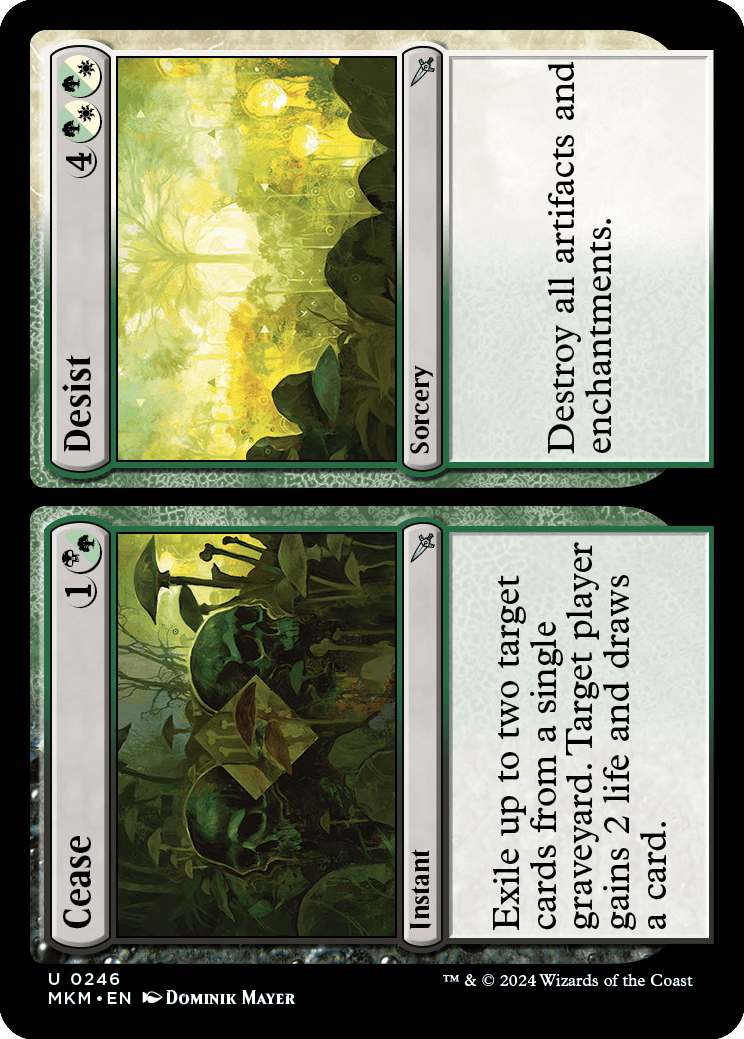
Cease
{1}{B/G}
Instant
Exile up to two target cards from a single graveyard. Target player gains 2 life and draws a card.
//
Desist
{4}{G/W}{G/W}
Sorcery
Destroy all artifacts and enchantments.
- To cast a split card, choose one of its halves to cast. There's no way to cast both halves of any of the split cards featured in this set.
- Split cards have two card faces on a single card. The characteristics of the half you didn't cast are ignored while the spell is on the stack.
- Each split card is a single card. For example, if you discard a split card, you've discarded one card, not two. If an effect counts the number of instant and sorcery cards in your graveyard, Cease // Desist counts once, not twice.
- Each split card has two names. If an effect instructs you to choose a card name, you may choose one of those names, but not both.
- A split card's characteristics are a combination of its two halves while it is not on the stack. For example, Cease // Desist has a mana value of 8 while it is in your library. If an effect allows you to search your library for a card with mana value 4 or less, you can't find Cease // Desist.
- If an effect allows you to cast a spell with certain characteristics, consider only the characteristics of the half you're casting. For example, if an effect allows you to cast an instant or sorcery spell with mana value 2 or less from among cards in your graveyard, you could cast Cease this way, but not Desist.
Returning Mechanic: Suspend
The Murders at Karlov Manor Commander decks include cards that feature the suspend mechanic, which allows you to pay a reduced cost and exile a card for a few turns so you can cast it later. Suspend has received a functional update along with this release: when the last time counter is removed from a suspended card, casting that spell is now optional. If you don't cast it, it will remain in exile indefinitely.
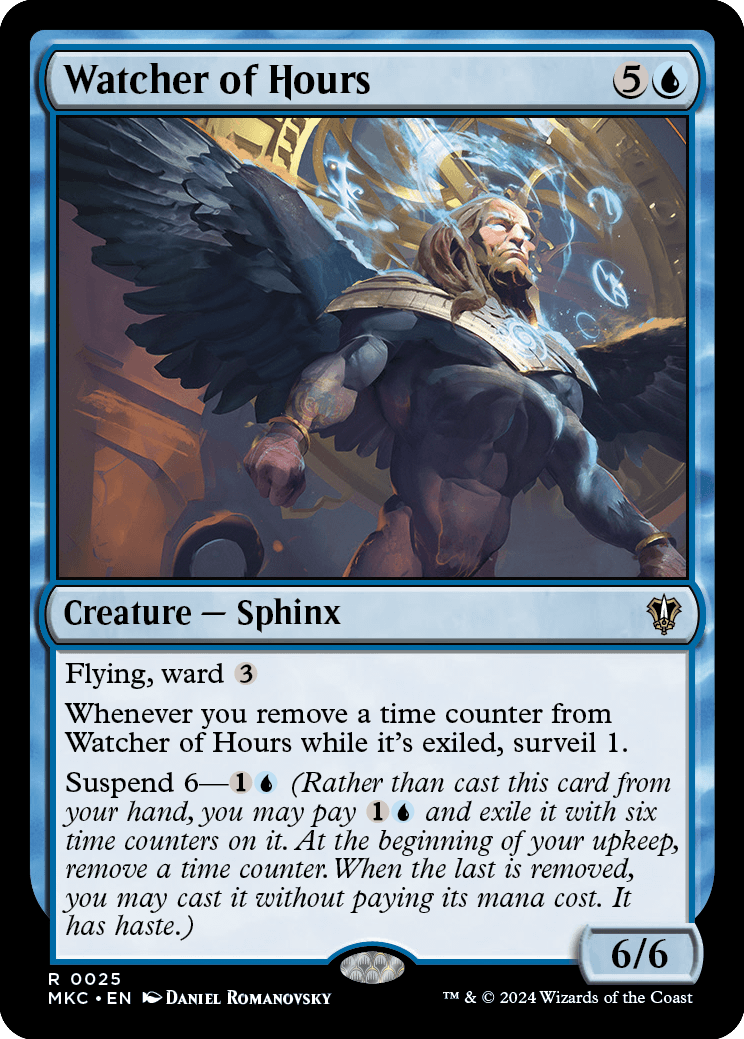
Watcher of Hours
{5}{U}
Creature — Sphinx
6/6
Flying, ward {3}
Whenever you remove a time counter from Watcher of Hours while it's exiled, surveil 1.
Suspend 6—{1}{U} (Rather than cast this card from your hand, you may pay {1}{U} and exile it with six time counters on it. At the beginning of your upkeep, remove a time counter. When the last is removed, you may cast it without paying its mana cost. It has haste.)
- Suspend is a keyword that represents three abilities. The first is a static ability that allows you to exile the card from your hand with the specified number of time counters (the number before the dash) on it by paying its suspend cost (listed after the dash). The second is a triggered ability that removes a time counter from the suspended card at the beginning of each of your upkeeps. The third is a triggered ability that gives you the option to cast the card when the last time counter is removed.
- You can exile a card in your hand using suspend any time you could cast that card. Consider its card type, any effects that modify when you could cast it (such as flash), and any other effects that stop you from casting it (such as from Meddling Mage's ability) to determine if and when you can do this. Whether you could actually complete all steps in casting the card is irrelevant. For example, you can exile a card with suspend that has no mana cost or that requires a target even if no legal targets are available at that time.
- Cards exiled with suspend are exiled face up.
- Exiling a card with suspend isn't casting that card. This action doesn't use the stack and can't be responded to.
- If the spell requires any targets, those targets are chosen when the spell is finally cast, not when it's exiled.
- If an effect refers to a "suspended card," that means a card that (1) has suspend, (2) is in exile, and (3) has one or more time counters on it.
- If the first triggered ability of suspend (the one that removes time counters) is countered, no time counter is removed. The ability will trigger again at the beginning of the card's owner's next upkeep.
- When the last time counter is removed, the second triggered ability of suspend (the one that lets you cast the card) triggers. It doesn't matter why the last time counter was removed or what effect removed it.
- If the second triggered ability is countered, the card can't be cast. It remains exiled with no time counters on it, and it's no longer suspended.
- Due to a recent rules change to suspend, you are no longer required to cast the suspended card as the second triggered ability of suspend resolves. Instead, as the second triggered ability resolves, you may cast the card. Timing permissions based on the card's type are ignored. If you don't cast the card, it remains exiled with no time counters on it, and it's no longer suspended.
- If you cast a card "without paying its mana cost," such as with suspend, you can't choose to cast it for any alternative costs. You can, however, pay additional costs. If the card has any mandatory additional costs, you must pay those if you want to cast the card.
- If the card has {X} in its mana cost, you must choose 0 as the value of X when casting it without paying its mana cost.
- The mana value of a spell cast without paying its mana cost is determined by its mana cost, even though that cost wasn't paid.
- A creature cast using suspend will enter the battlefield with haste. It will have haste until another player gains control of it. (In some rare cases, another player may gain control of the creature spell itself. If this happens, the creature won't enter the battlefield with haste.)
Returning Keyword Action: Goad
The Murders at Karlov Manor Commander decks, as well as Ravnica: Clue Edition, have cards that goad creatures. Is someone leaving their key creatures back to block? "Encourage" them to attack instead!
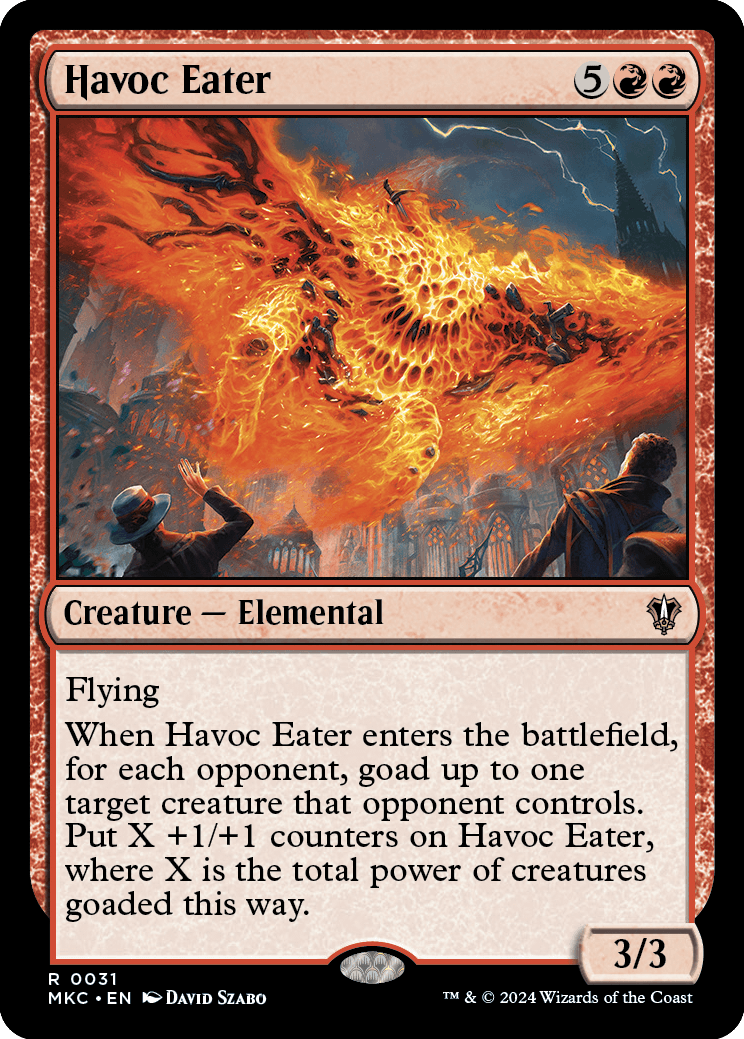
Havoc Eater
{5}{R}{R}
Creature — Elemental
3/3
Flying
When Havoc Eater enters the battlefield, for each opponent, goad up to one target creature that opponent controls. Put X +1/+1 counters on Havoc Eater, where X is the total power of creatures goaded this way.
- If, during a player's declare attackers step, a creature that player controls that's been goaded is tapped, is affected by a spell or ability that says it can't attack, or hasn't been under that player's control continuously since the turn began (and doesn't have haste), then it doesn't attack. If there's a cost associated with having a creature attack a player, its controller isn't forced to pay that cost, so it doesn't have to attack that player.
- If the creature doesn't meet any of the above exceptions and can attack, it must attack a player other than the controller of the spell or ability that goaded it if able. If the creature can't attack any of those players but could otherwise attack, it must attack a planeswalker an opponent controls, a battle an opponent protects, or the player that goaded it.
- Being goaded isn't an ability the creature has. Once it's been goaded, it must attack as detailed above even if it loses all abilities.
- Attacking with a goaded creature doesn't cause it to stop being goaded. If there is an additional combat phase that turn, or if another player gains control of it before it stops being goaded, it must attack again if able.
MURDERS AT KARLOV MANOR MAIN SET CARD-SPECIFIC NOTES
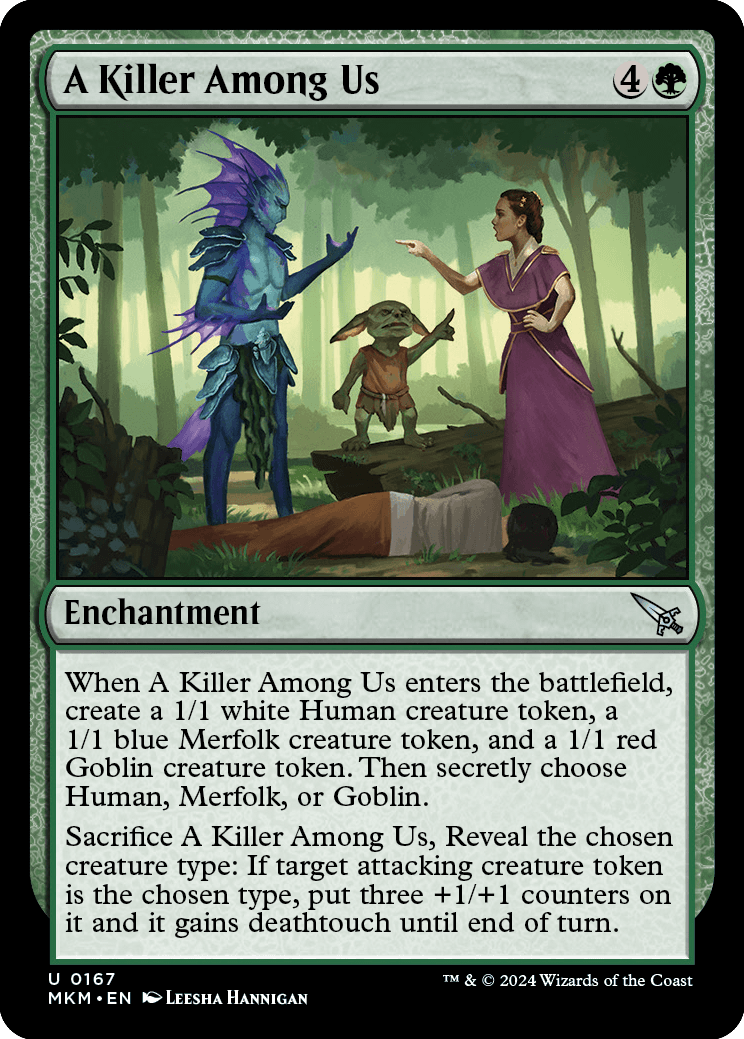
A Killer Among Us
{4}{G}
Enchantment
When A Killer Among Us enters the battlefield, create a 1/1 white Human creature token, a 1/1 blue Merfolk creature token, and a 1/1 red Goblin creature token. Then secretly choose Human, Merfolk, or Goblin.
Sacrifice A Killer Among Us, Reveal the chosen creature type: If target attacking creature token is the chosen type, put three +1/+1 counters on it and it gains deathtouch until end of turn.
- There are several ways to secretly choose one of the creature types, including writing that type on a piece of paper that's kept with A Killer Among Us.
- If you control multiple copies of A Killer Among Us, you may choose the same or different creature types for each one. Be careful to keep track of which type is chosen for each A Killer Among Us.
- A Killer Among Us's last ability can target any attacking creature token, not just one of the tokens created by its first ability, and not just one of the chosen type. Only a token of the chosen type will get the bonuses, though.
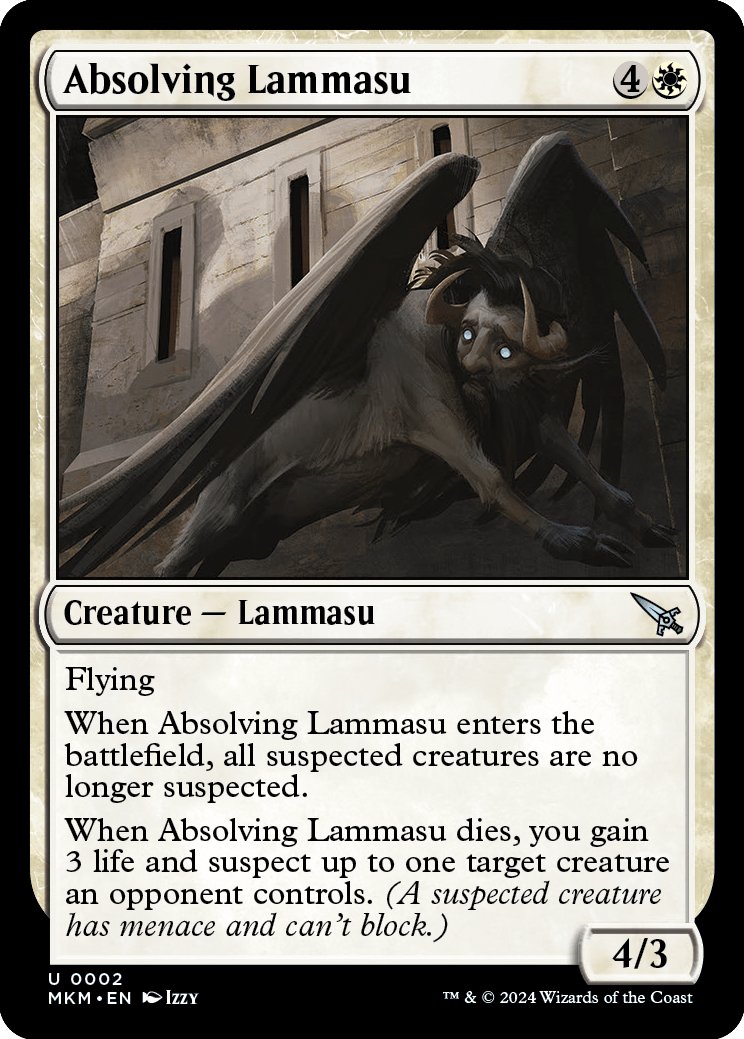
Absolving Lammasu
{4}{W}
Creature — Lammasu
4/3
Flying
When Absolving Lammasu enters the battlefield, all suspected creatures are no longer suspected.
When Absolving Lammasu dies, you gain 3 life and suspect up to one target creature an opponent controls. (A suspected creature has menace and can't block.)
- You don't have to choose a target for Absolving Lammasu's last ability. However, if you do, and that permanent is an illegal target at the time the ability tries to resolve, it won't resolve and none of its effects will happen. You won't gain life.
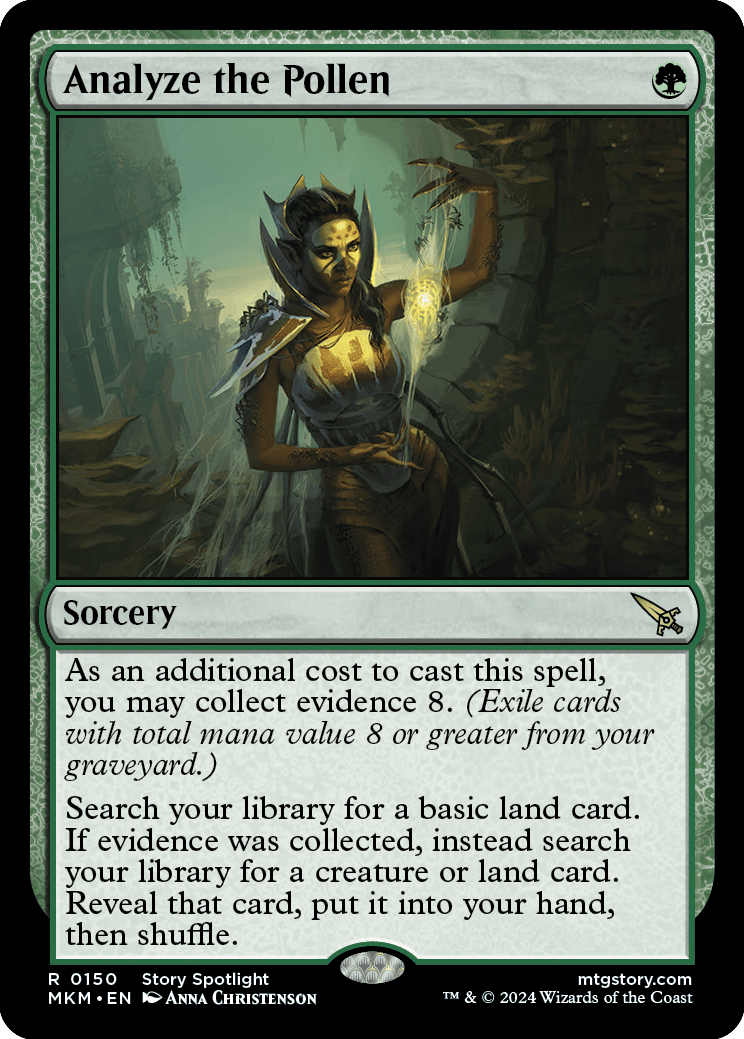
Analyze the Pollen
{G}
Sorcery
As an additional cost to cast this spell, you may collect evidence 8. (Exile cards with total mana value 8 or greater from your graveyard.)
Search your library for a basic land card. If evidence was collected, instead search your library for a creature or land card. Reveal that card, put it into your hand, then shuffle.
- The collect evidence ability of Analyze the Pollen allows you to find a nonbasic land card.
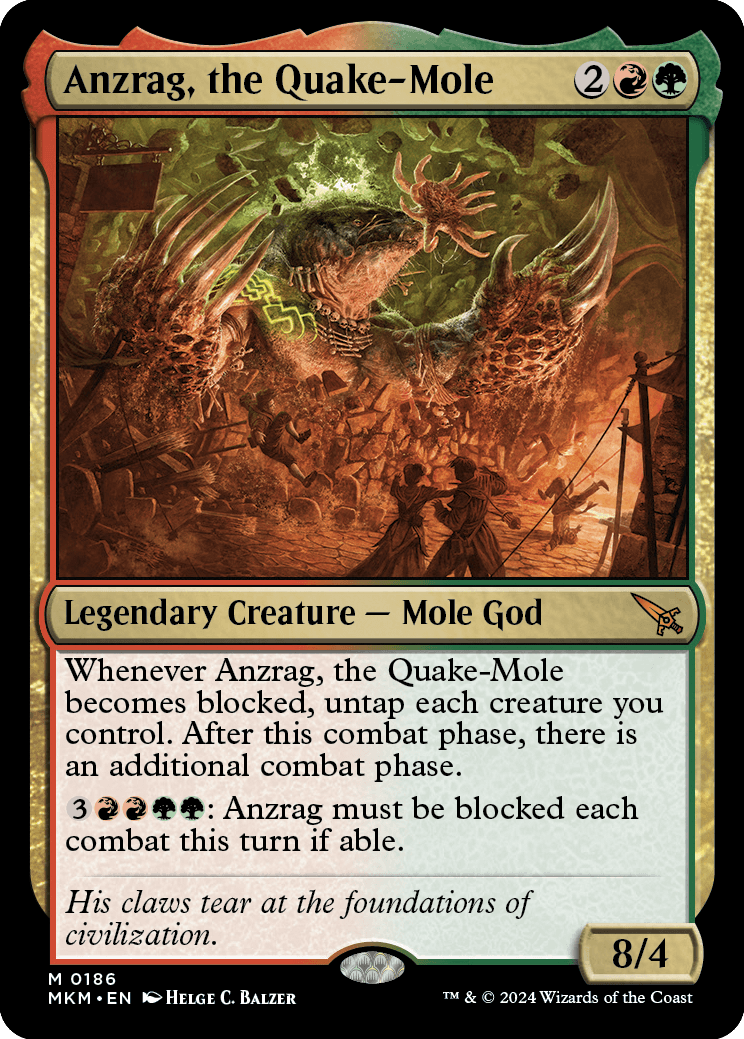
Anzrag, the Quake-Mole
{2}{R}{G}
Legendary Creature — Mole God
8/4
Whenever Anzrag, the Quake-Mole becomes blocked, untap each creature you control. After this combat phase, there is an additional combat phase.
{3}{R}{R}{G}{G}: Anzrag must be blocked each combat this turn if able.
- If multiple creatures block Anzrag, the Quake-Mole, its first ability still triggers only once.
- Anzrag, the Quake-Mole's first ability may trigger multiple times in the same turn. Each time it resolves, you create an additional combat phase.
- If you activate Anzrag, the Quake-Mole's last ability, only one creature is required to block it each combat this turn. Other creatures may also block it and are free to block other creatures or not block at all.
- If you activate Anzrag, the Quake-Mole's last ability, but each creature the defending player controls can't block for any reason, Anzrag isn't blocked. If there's a cost associated with blocking Anzrag, the defending player isn't forced to pay that cost, so it doesn't have to be blocked in that case either.
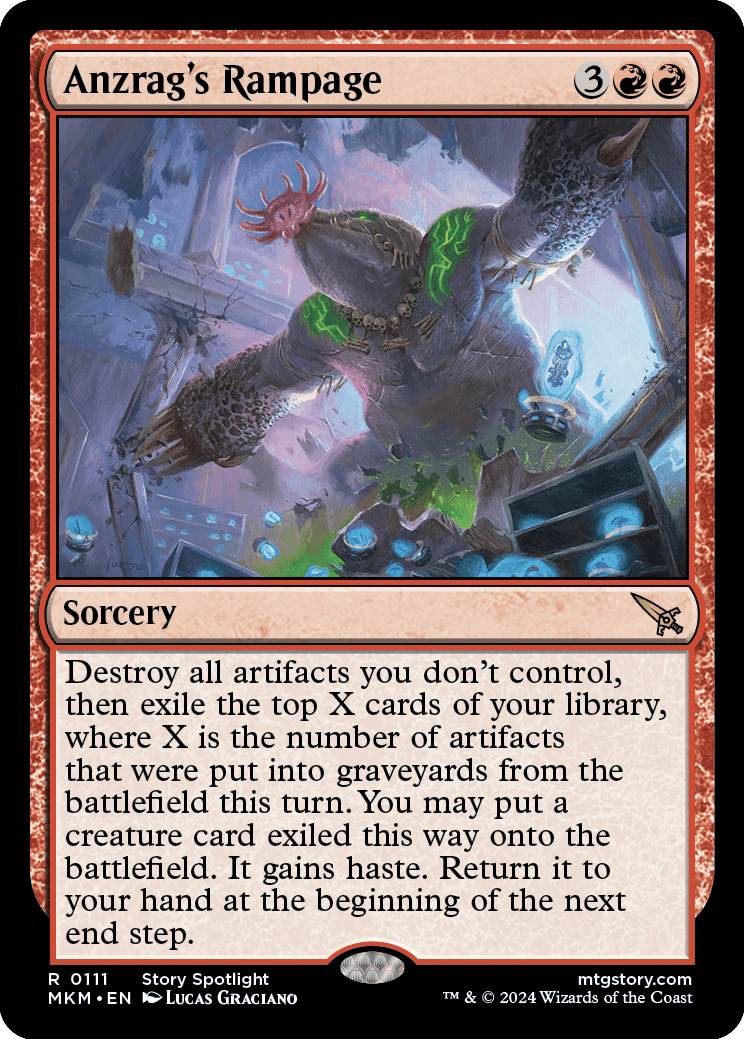
Anzrag's Rampage
{3}{R}{R}
Sorcery
Destroy all artifacts you don't control, then exile the top X cards of your library, where X is the number of artifacts that were put into graveyards from the battlefield this turn. You may put a creature card exiled this way onto the battlefield. It gains haste. Return it to your hand at the beginning of the next end step.
- Anzrag's Rampage counts the number of artifacts that were put into graveyards from the battlefield this turn for any reason, not just ones that were destroyed by Anzrag's Rampage. This includes any artifact tokens that were put into graveyards from the battlefield this turn, such as Clue, Food, and Treasure tokens.
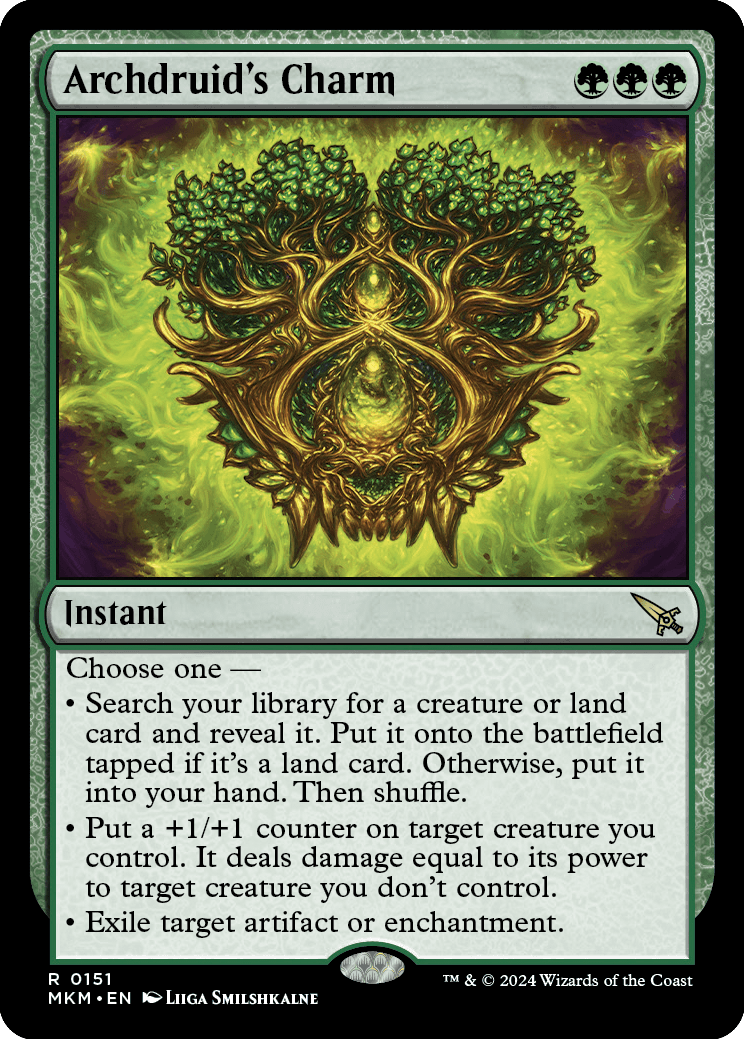
Archdruid's Charm
{G}{G}{G}
Instant
Choose one —
• Search your library for a creature or land card and reveal it. Put it onto the battlefield tapped if it's a land card. Otherwise, put it into your hand. Then shuffle.
• Put a +1/+1 counter on target creature you control. It deals damage equal to its power to target creature you don't control.
• Exile target artifact or enchantment.
- You can't choose the second mode for Archdruid's Charm unless you and another player have creatures to target.
- If you choose the second mode and your creature is not a legal target as Archdruid's Charm resolves, you won't put a +1/+1 counter on it, and no damage will be dealt.
- If you choose the second mode and the creature you don't control is not a legal target as Archdruid's Charm resolves, you'll still put a +1/+1 counter on your creature.
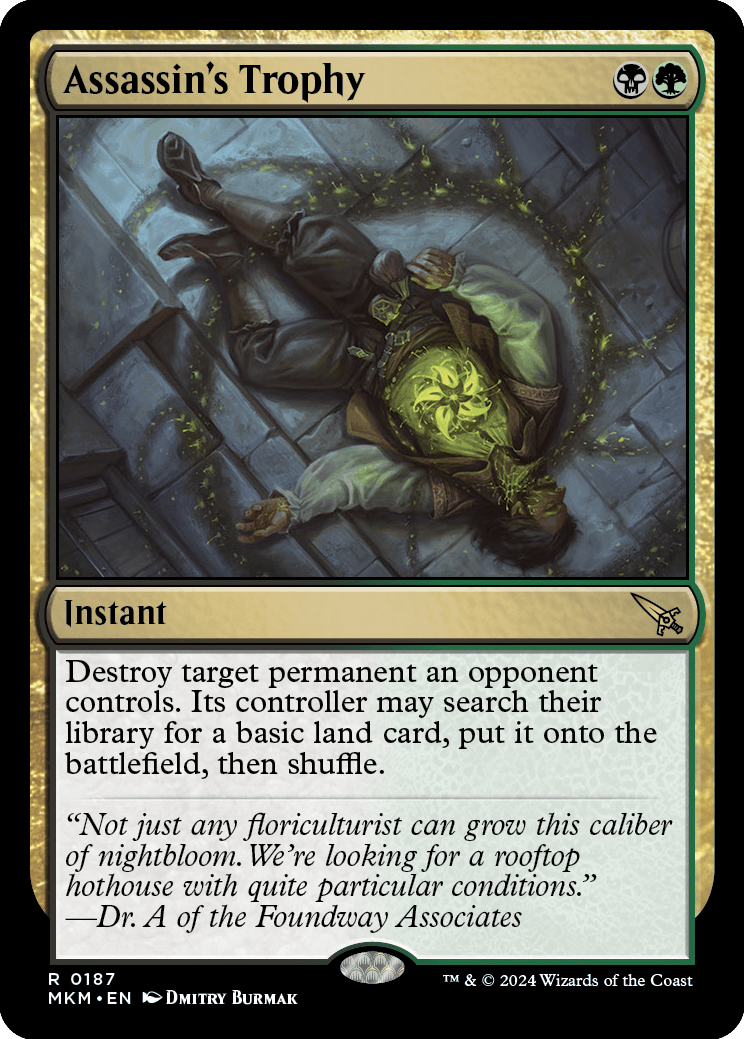
Assassin's Trophy
{B}{G}
Instant
Destroy target permanent an opponent controls. Its controller may search their library for a basic land card, put it onto the battlefield, then shuffle.
- If the target permanent is an illegal target by the time Assassin's Trophy tries to resolve, the spell doesn't resolve. No player searches their library.
- If the target permanent is a legal target but isn't destroyed, most likely because it has indestructible, its controller may search their library.
- If the permanent's controller doesn't search their library, they don't shuffle their library.
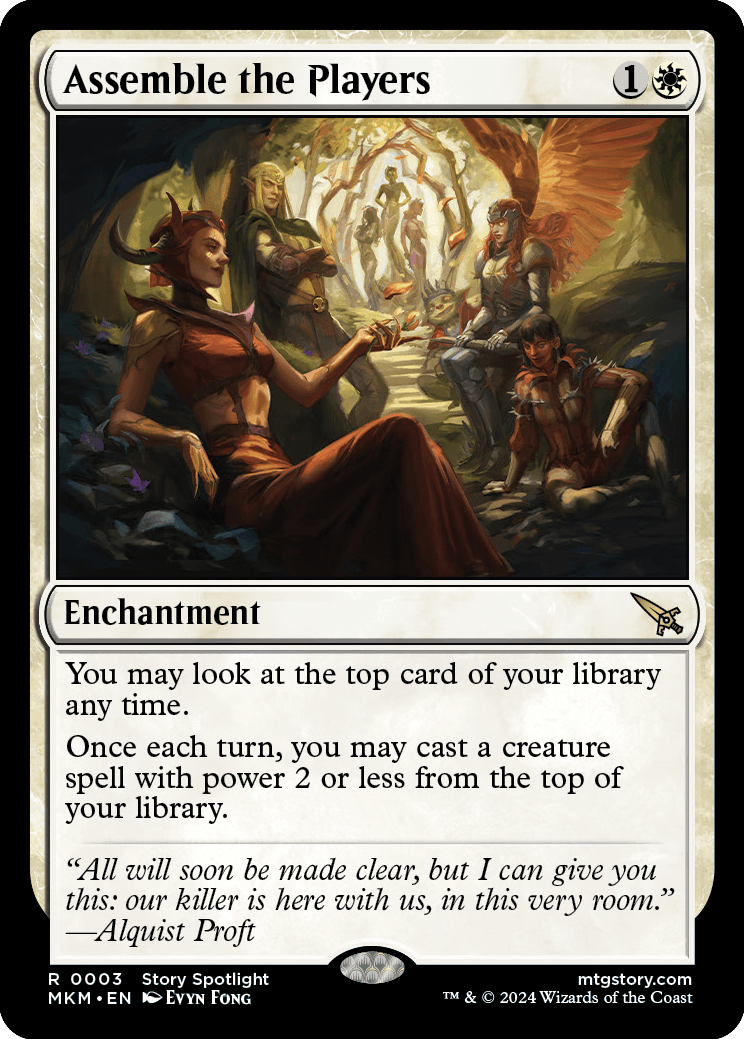
Assemble the Players
{1}{W}
Enchantment
You may look at the top card of your library any time.
Once each turn, you may cast a creature spell with power 2 or less from the top of your library.
- You can look at the top card of your library whenever you want (with one restriction; see below), even if you don't have priority. This action doesn't use the stack. Knowing what that card is becomes part of the information you have access to, just like you can look at the cards in your hand.
- If the top card of your library changes while you're casting a spell, playing a land, or activating an ability, you can't look at the new top card until you finish doing so. This means that if you cast a spell from the top of your library, you can't look at the next one until you're done paying for that spell.
- You must pay all costs and follow all timing rules for spells cast from the top of your library this way.
- If Assemble the Players leaves the battlefield and returns to the battlefield in the same turn, the casting permission granted by the old one is different than the casting permission granted by the new one. Similarly, if you control multiple Assemble the Players, each one has a different casting permission that may be used once each turn.
- Because you never "cast" a land card, Assemble the Players doesn't allow you to play a land creature (such as Dryad Arbor) from the top of your library.
- If the top card of your library has a disguise or morph ability, you can cast it face down from the top of your library, even if it doesn't normally have power 2 or less.
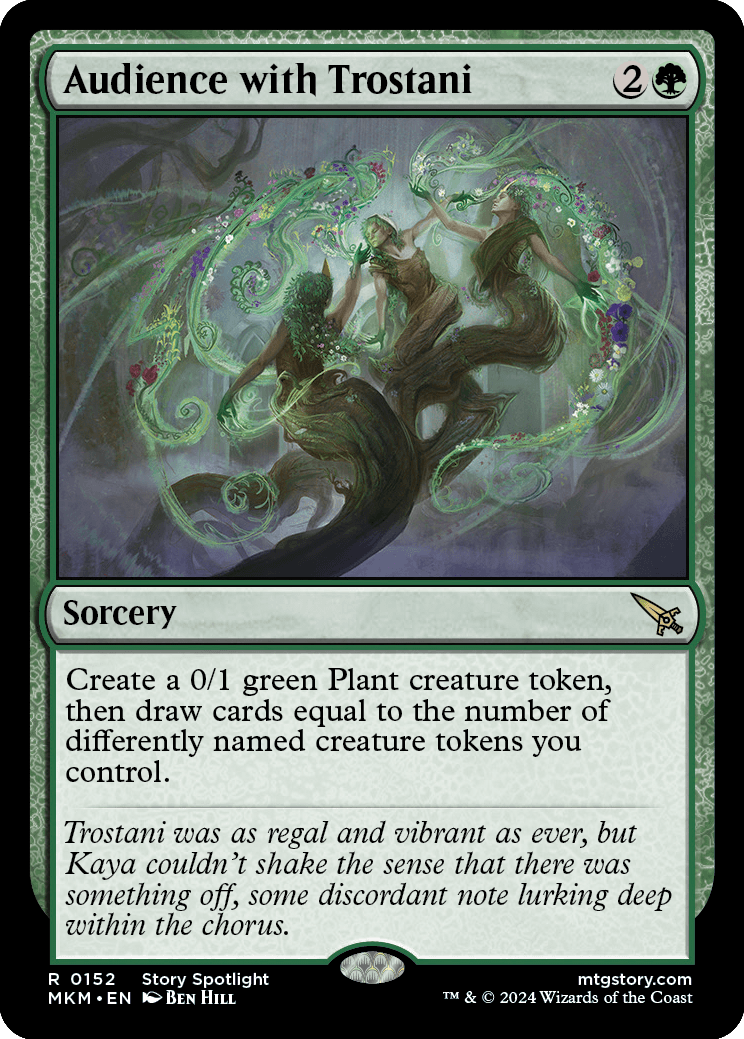
Audience with Trostani
{2}{G}
Sorcery
Create a 0/1 green Plant creature token, then draw cards equal to the number of differently named creature tokens you control.
- To determine the number of differently named creature tokens you control, count each creature token you control once, but only if its English name isn't exactly the same as another creature token you've already counted this way.
- Unless a token is a copy of another permanent or was explicitly given a name by the effect that created it, its name is the subtypes it was given when it was created plus the word "Token." For example, the 0/1 green Plant creature token created by Audience with Trostani is named "Plant Token."
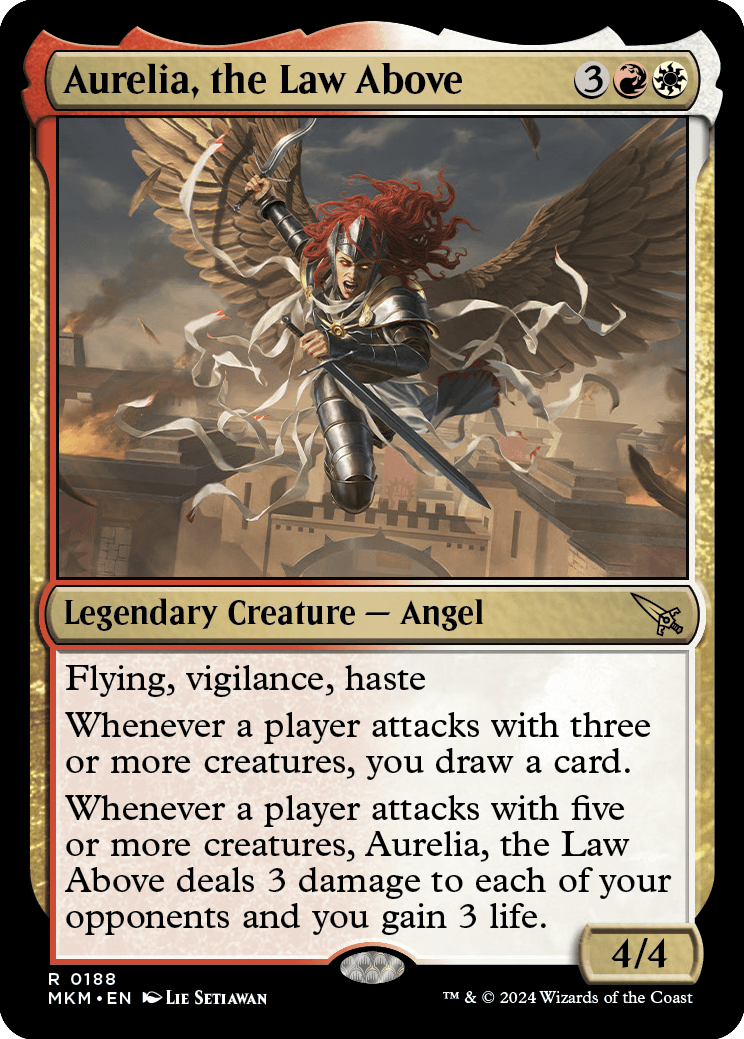
Aurelia, the Law Above
{3}{R}{W}
Legendary Creature — Angel
4/4
Flying, vigilance, haste
Whenever a player attacks with three or more creatures, you draw a card.
Whenever a player attacks with five or more creatures, Aurelia, the Law Above deals 3 damage to each of your opponents and you gain 3 life.
- For both triggered abilities, it doesn't matter what happens to the attacking creatures in response. As long as a player attacked with at least the appropriate number of creatures, the effects of Aurelia's triggered abilities will still occur.
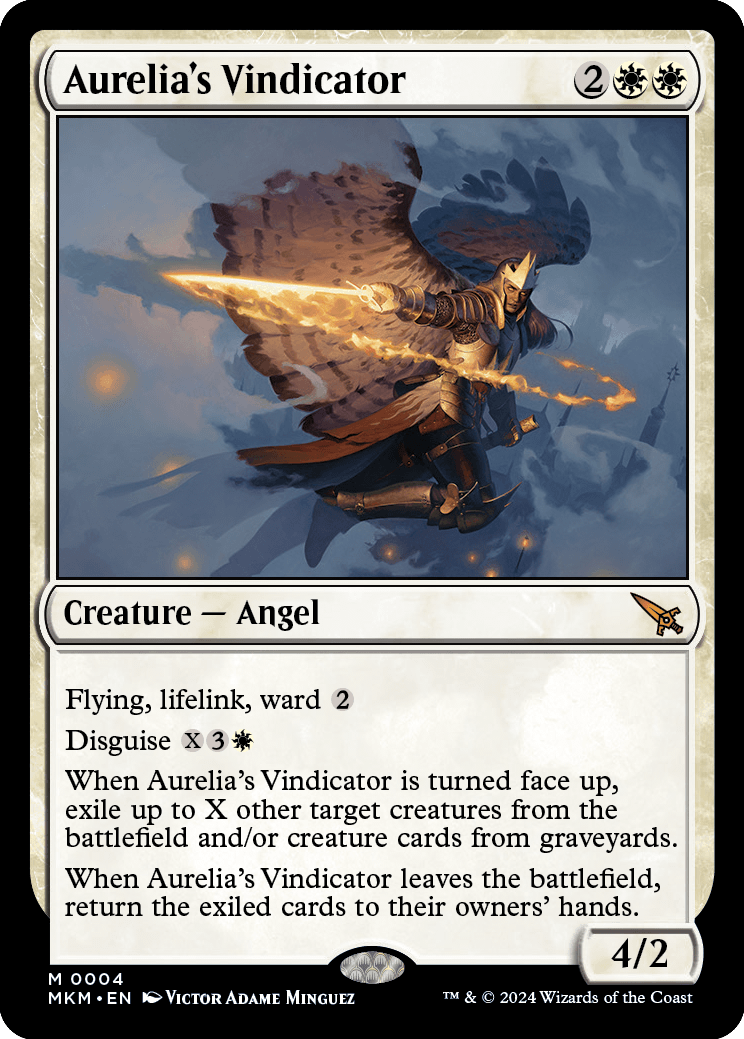
Aurelia's Vindicator
{2}{W}{W}
Creature — Angel
4/2
Flying, lifelink, ward {2}
Disguise {X}{3}{W}
When Aurelia's Vindicator is turned face up, exile up to X other target creatures from the battlefield and/or creature cards from graveyards.
When Aurelia's Vindicator leaves the battlefield, return the exiled cards to their owners' hands.
- If Aurelia's Vindicator leaves the battlefield before its "turned face up" ability has resolved, its leaves the battlefield ability will trigger and do nothing. Then the "turned face up" ability will resolve and exile the targeted creatures and/or creature cards indefinitely.
- If a creature targeted by the "turned face up" ability dies before that ability resolves, it will become an illegal target even though it may be a creature card in a graveyard when the ability resolves. It won't be exiled.
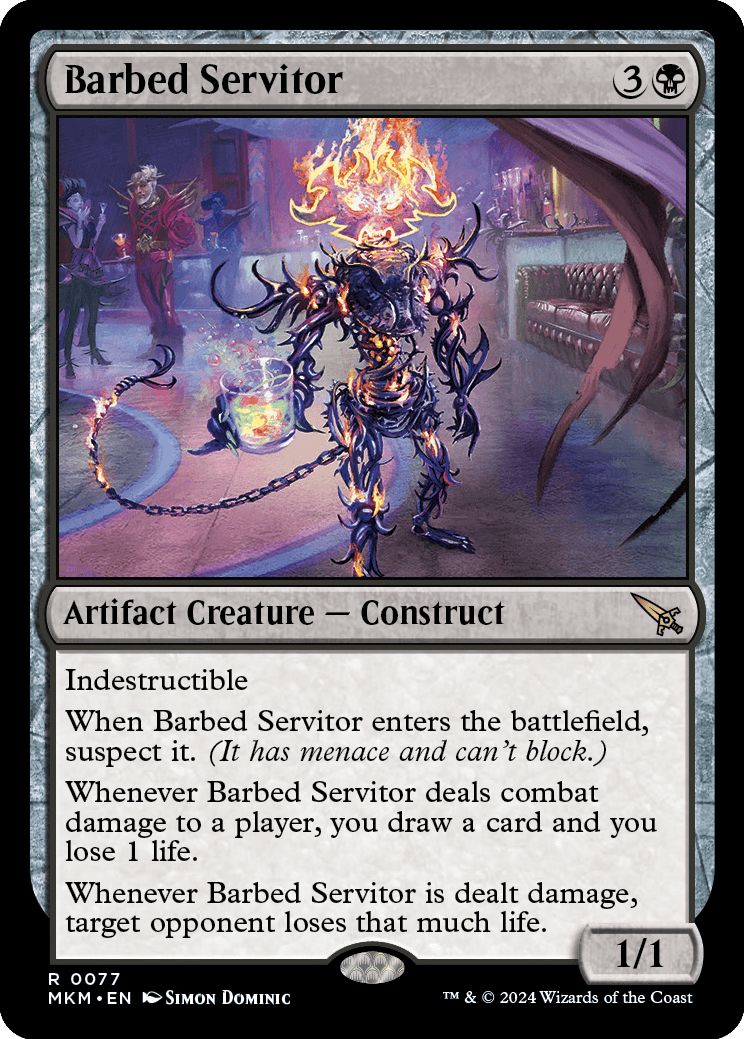
Barbed Servitor
{3}{B}
Artifact Creature — Construct
1/1
Indestructible
When Barbed Servitor enters the battlefield, suspect it. (It has menace and can't block.)
Whenever Barbed Servitor deals combat damage to a player, you draw a card and you lose 1 life.
Whenever Barbed Servitor is dealt damage, target opponent loses that much life.
- A creature can be dealt an amount of damage greater than its toughness. For example, if Barbed Servitor is dealt 3 damage, its last ability causes the target opponent to lose 3 life.
- If your life total is brought to 0 or less at the same time that Barbed Servitor is dealt damage, you lose the game before its last ability goes on the stack.
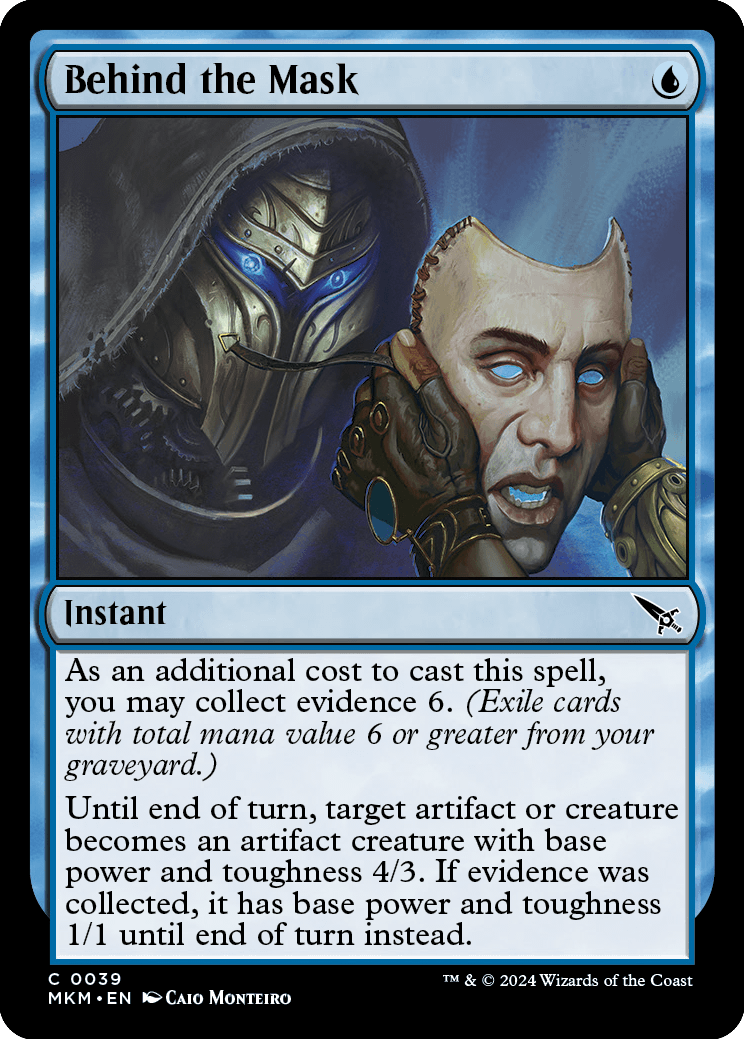
Behind the Mask
{U}
Instant
As an additional cost to cast this spell, you may collect evidence 6. (Exile cards with total mana value 6 or greater from your graveyard.)
Until end of turn, target artifact or creature becomes an artifact creature with base power and toughness 4/3. If evidence was collected, it has base power and toughness 1/1 until end of turn instead.
- Behind the Mask will overwrite any previous effects that set a creature or Vehicle's power and toughness to specific numbers. Effects that otherwise modify its power and toughness will still apply no matter when they took effect. The same is true for +1/+1 counters.
- If Behind the Mask causes a Vehicle to become an artifact creature, it doesn't count as "crewing" that Vehicle for any ability that would trigger off of a Vehicle becoming crewed.
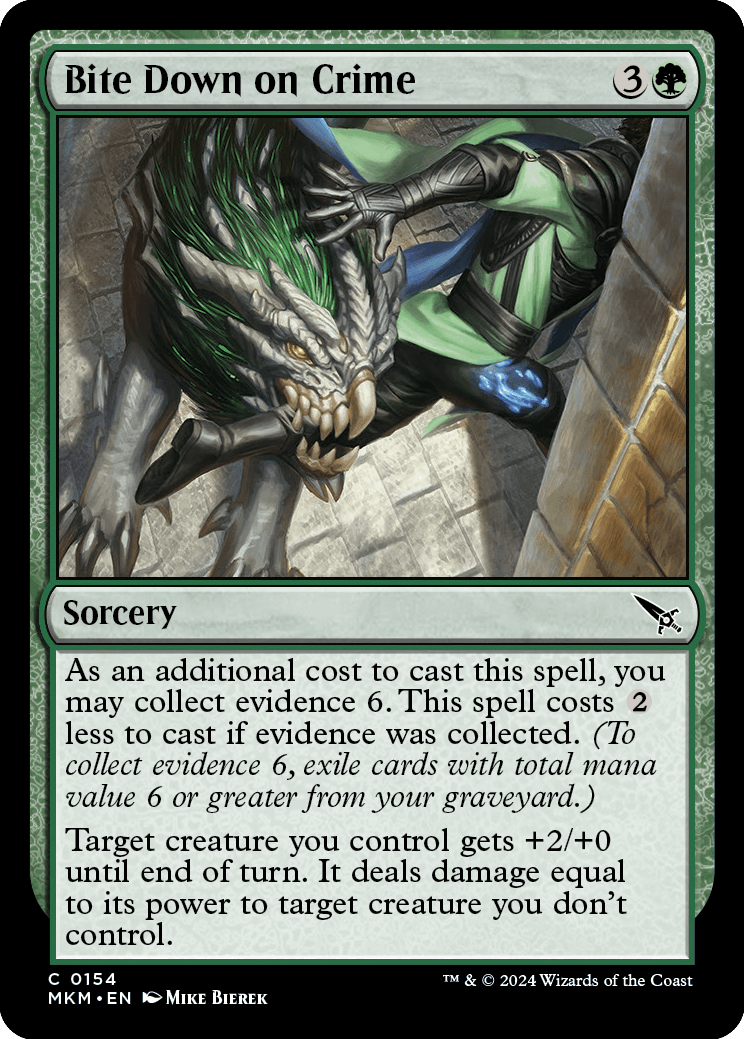
Bite Down on Crime
{3}{G}
Sorcery
As an additional cost to cast this spell, you may collect evidence 6. This spell costs {2} less to cast if evidence was collected. (To collect evidence 6, exile cards with total mana value 6 or greater from your graveyard.)
Target creature you control gets +2/+0 until end of turn. It deals damage equal to its power to target creature you don't control.
- If either target is an illegal target as Bite Down on Crime tries to resolve, the creature you control won't deal damage.
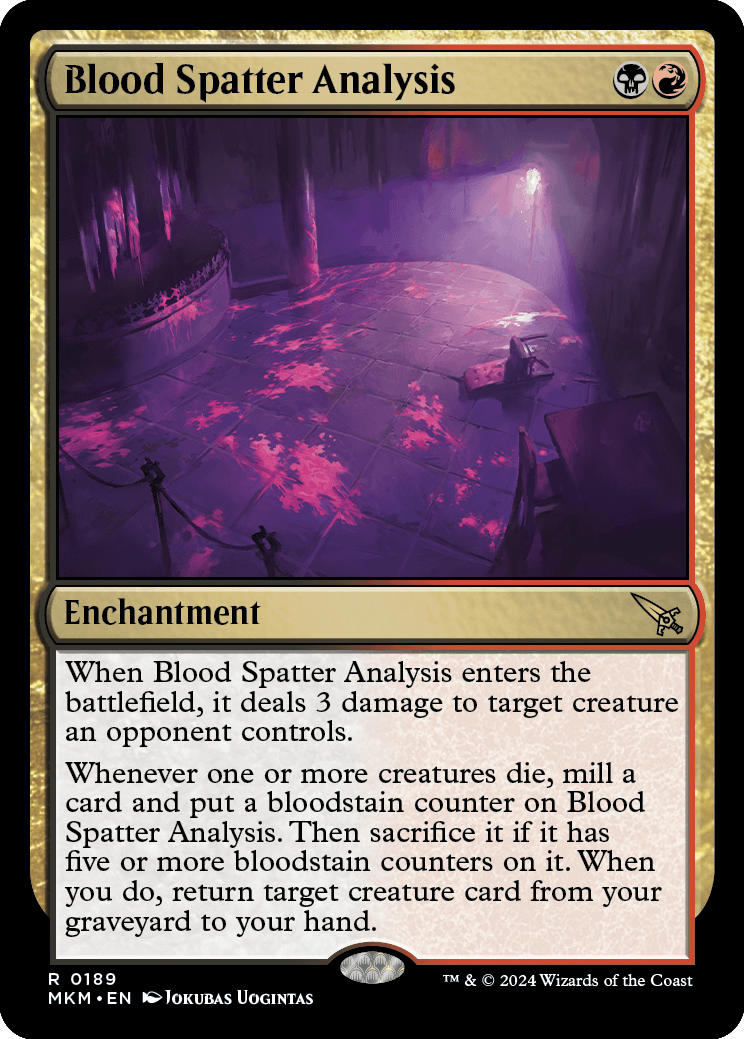
Blood Spatter Analysis
{B}{R}
Enchantment
When Blood Spatter Analysis enters the battlefield, it deals 3 damage to target creature an opponent controls.
Whenever one or more creatures die, mill a card and put a bloodstain counter on Blood Spatter Analysis. Then sacrifice it if it has five or more bloodstain counters on it. When you do, return target creature card from your graveyard to your hand.
- Blood Spatter Analysis is sacrificed for having five or more bloodstain counters on it only while its second ability is resolving. If you put a fifth counter on it some other way, it won't be immediately sacrificed.
- You don't choose a target creature card to return from your graveyard to your hand at the time Blood Spatter Analysis's second ability triggers. Rather, a second "reflexive" ability triggers when you sacrifice Blood Spatter Analysis this way. You choose a target for that ability as it goes on the stack. Each player may respond to this triggered ability as normal.
- Blood Spatter Analysis's reflexive triggered ability triggers and returns a creature card to your hand only if you sacrifice it while resolving its second ability. It won't trigger if you sacrifice it for any other reason.
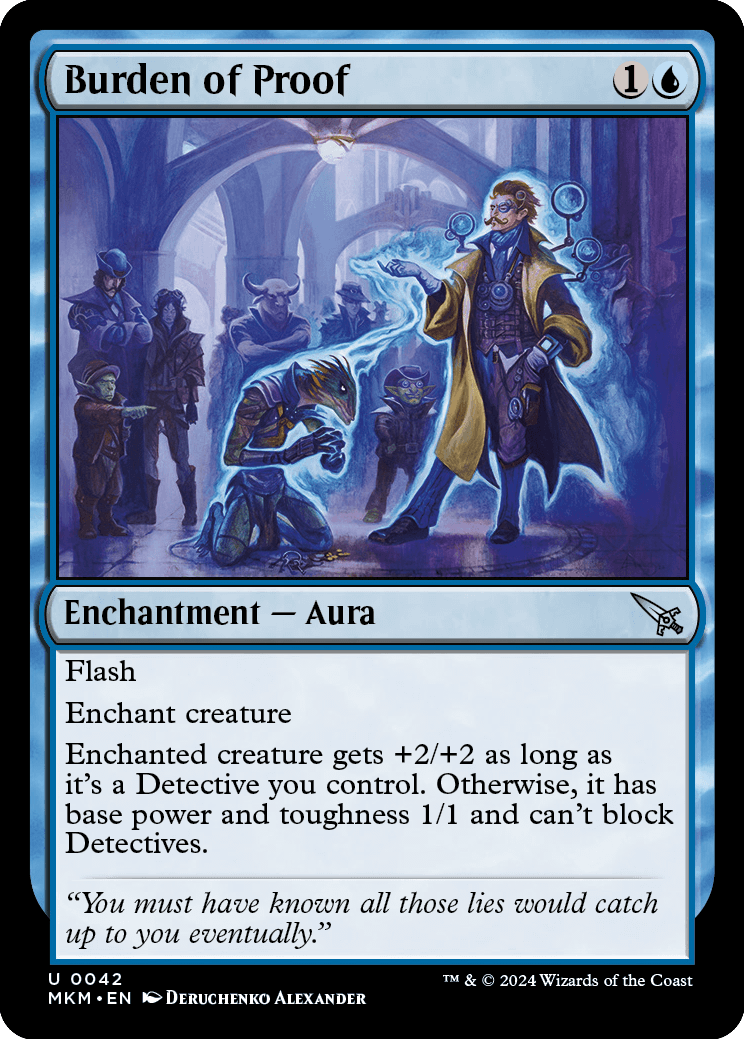
Burden of Proof
{1}{U}
Enchantment — Aura
Flash
Enchant creature
Enchanted creature gets +2/+2 as long as it's a Detective you control. Otherwise, it has base power and toughness 1/1 and can't block Detectives.
- Once a Detective has been blocked, attaching Burden of Proof to a creature blocking it won't cause that Detective to become unblocked.
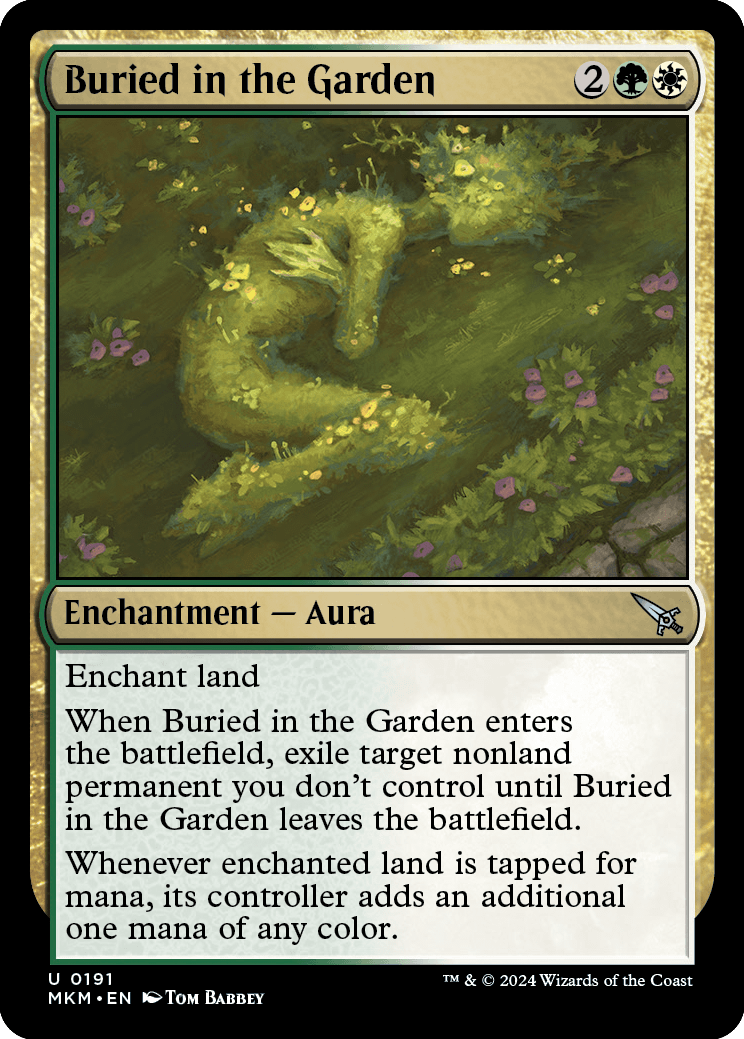
Buried in the Garden
{2}{G}{W}
Enchantment — Aura
Enchant land
When Buried in the Garden enters the battlefield, exile target nonland permanent you don't control until Buried in the Garden leaves the battlefield.
Whenever enchanted land is tapped for mana, its controller adds an additional one mana of any color.
- If Buried in the Garden leaves the battlefield before its first triggered ability resolves, the target permanent won't be exiled.
- Auras attached to the exiled permanent will be put into their owners' graveyards. Any Equipment will become unattached and remain on the battlefield. Any counters on the exiled permanent will cease to exist. When the card returns to the battlefield, it will be a new object with no connection to the card that was exiled.
- If a token is exiled this way, it will cease to exist and won't return to the battlefield.
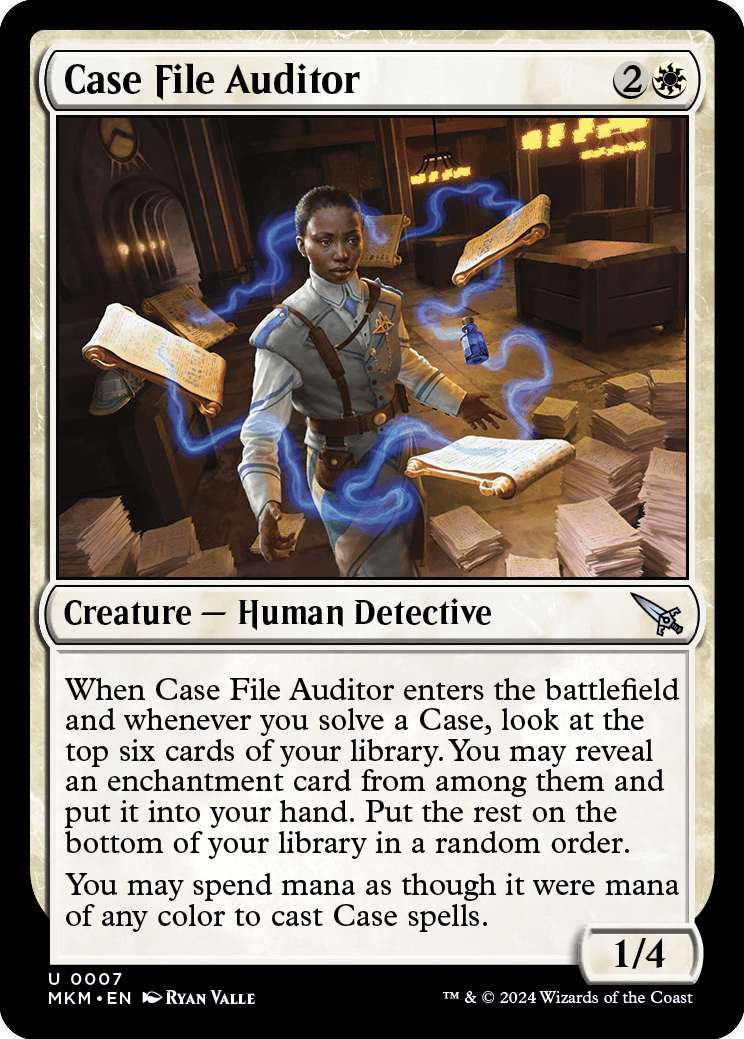
Case File Auditor
{2}{W}
Creature — Human Detective
1/4
When Case File Auditor enters the battlefield and whenever you solve a Case, look at the top six cards of your library. You may reveal an enchantment card from among them and put it into your hand. Put the rest on the bottom of your library in a random order.
You may spend mana as though it were mana of any color to cast Case spells.
- Case File Auditor's first ability triggers whenever a "to solve" ability you control resolves.
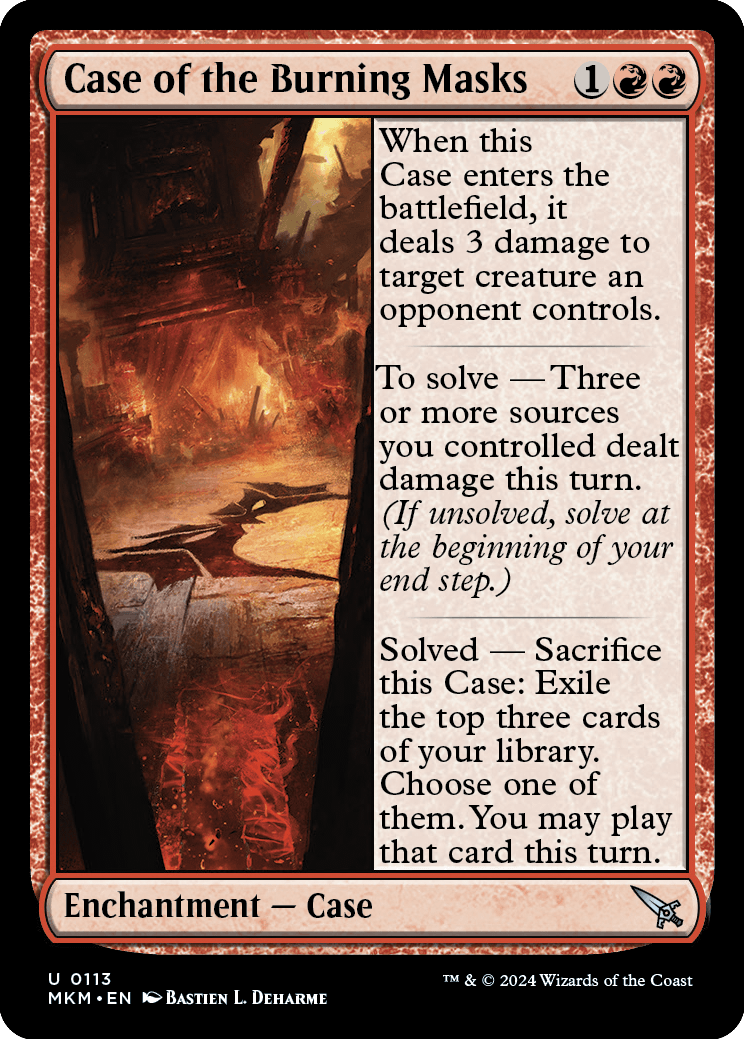
Case of the Burning Masks
{1}{R}{R}
Enchantment — Case
When this Case enters the battlefield, it deals 3 damage to target creature an opponent controls.
To solve — Three or more sources you controlled dealt damage this turn. (If unsolved, solve at the beginning of your end step.)
Solved — Sacrifice this Case: Exile the top three cards of your library. Choose one of them. You may play that card this turn.
- You need to control the sources that dealt damage only at the times when they dealt damage. If they die or change control after that point, the "to solve" ability will still trigger at the beginning of your end step as long as you still control Case of the Burning Masks.
- Activated and triggered abilities are not themselves sources of damage. The source of an activated ability is the object whose ability was activated, and the source of a triggered ability (other than a delayed triggered ability) is the object whose ability triggered.
- If multiple creatures you control deal combat damage, each one counts as a source that dealt damage that turn. A single creature that deals combat damage multiple times in a turn (due to double strike or additional combats) still counts as only one source.
- Something that changes zones becomes a new object in that zone and will therefore be a new source. For example, if you cast Flametongue Kavu, deal damage with its enters-the-battlefield ability, exile and return it to the battlefield with Momentary Blink, deal damage again, then cast Momentary Blink with flashback on Flametongue Kavu to repeat the process one more time, you've fulfilled Case of the Burning Masks's "to solve" trigger condition.
- A permanent that deals damage multiple times without changing zones still counts as only one source. For example, if you attack with Incinerator of the Guilty and deal combat damage with it, use its triggered ability to deal damage, and then use Hard-Hitting Question to have it deal damage to another creature, it's still just one source even though it dealt damage three times during the turn.
- You pay all costs and follow all normal timing rules for the card played from exile with Case of the Burning Masks's last ability. For example, if the exiled card is a land card, you may play it only during your main phase while the stack is empty.

Case of the Crimson Pulse
{2}{R}
Enchantment — Case
When this Case enters the battlefield, discard a card, then draw two cards.
To solve — You have no cards in hand. (If unsolved, solve at the beginning of your end step.)
Solved — At the beginning of your upkeep, discard your hand, then draw two cards.
- If you have no cards in hand as Case of the Crimson Pulse's first ability resolves, you won't discard a card, but you will still draw two cards. Similarly, if you have no cards in hand when Case of the Crimson Pulse's last ability resolves, you won't discard any cards, but you'll still draw two cards.
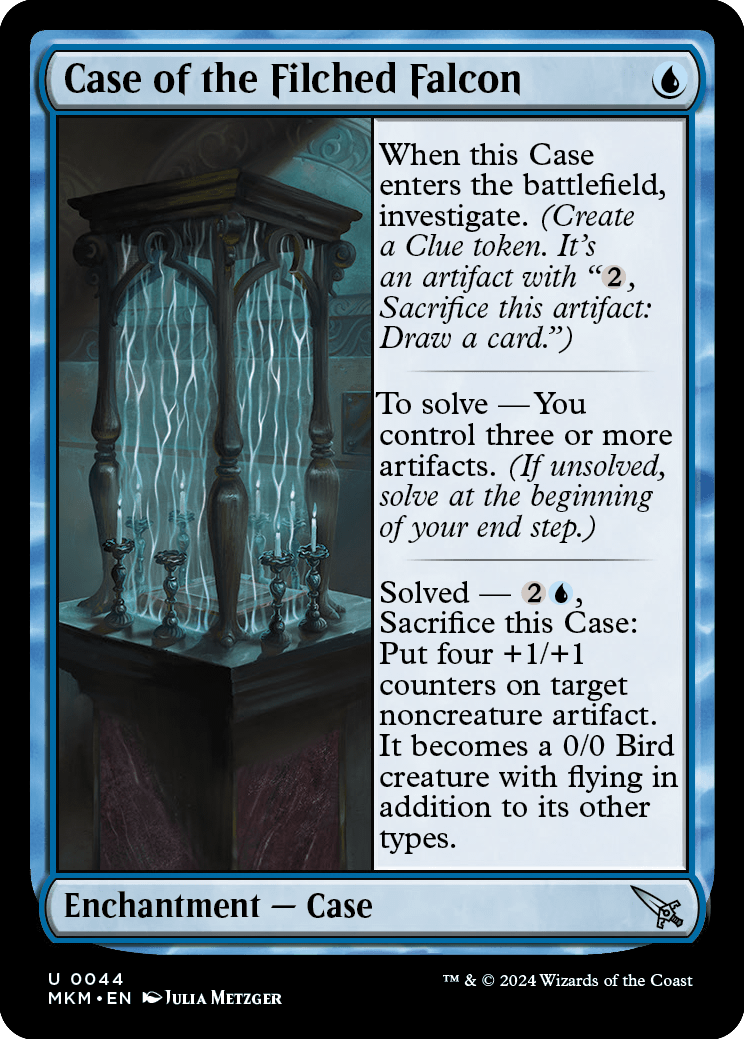
Case of the Filched Falcon
{U}
Enchantment — Case
When this Case enters the battlefield, investigate. (Create a Clue token. It's an artifact with "{2}, Sacrifice this artifact: Draw a card.")
To solve — You control three or more artifacts. (If unsolved, solve at the beginning of your end step.)
Solved — {2}{U}, Sacrifice this Case: Put four +1/+1 counters on target noncreature artifact. It becomes a 0/0 Bird creature with flying in addition to its other types.
- The artifact retains any types, subtypes, or supertypes it has.
- If the target artifact is an attached Equipment, it becomes unattached. If an Equipment without reconfigure becomes an artifact creature, it can't be attached to another creature.
- If the target noncreature artifact is a Vehicle, its power and toughness will be set to 0/0. Crewing that Vehicle will not restore its power and toughness.
- The resulting artifact creature will be able to attack on your turn if it's been under your control continuously since the turn began. That is, it doesn't matter how long it's been a creature, just how long it's been on the battlefield.
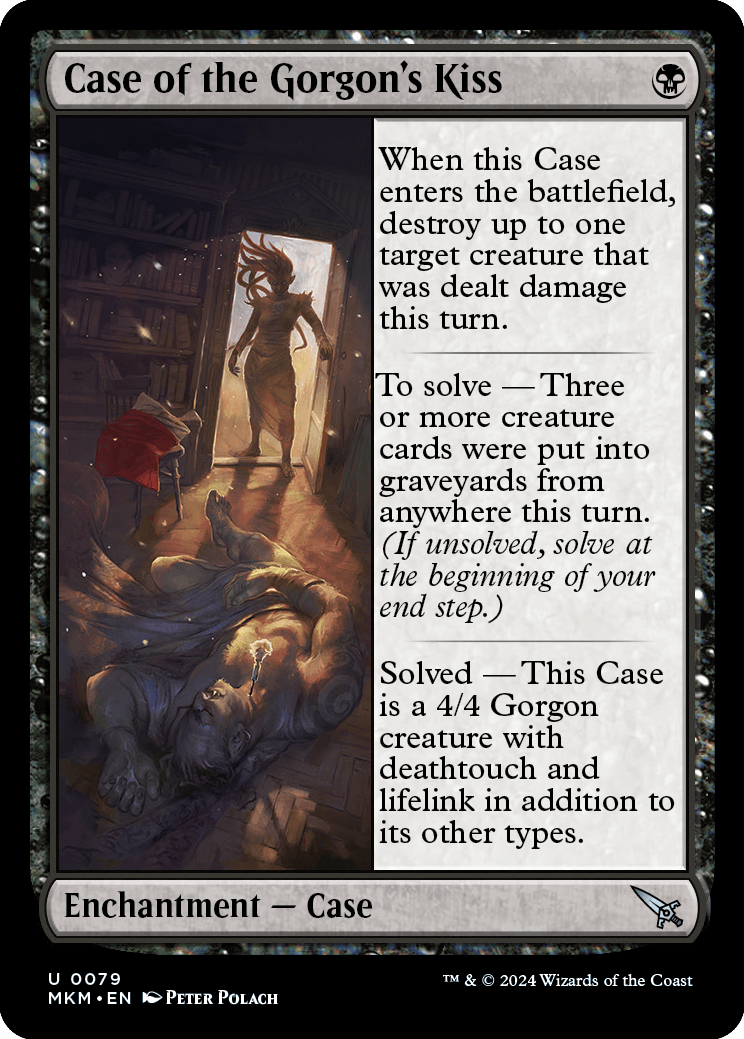
Case of the Gorgon's Kiss
{B}
Enchantment — Case
When this Case enters the battlefield, destroy up to one target creature that was dealt damage this turn.
To solve — Three or more creature cards were put into graveyards from anywhere this turn. (If unsolved, solve at the beginning of your end step.)
Solved — This Case is a 4/4 Gorgon creature with deathtouch and lifelink in addition to its other types.
- The "to solve" ability of Case of the Gorgon's Kiss looks at what type the cards are after they move to the graveyard to determine whether the ability should trigger, regardless of any types they may have had before they were in the graveyard. For example, a creature card that has become a noncreature permanent will count toward the ability's condition when it's put into a graveyard. By contrast, a noncreature card that has become a creature on the battlefield will not count toward the ability's condition when it's put into a graveyard.
- Tokens are not cards and, as such, do not count toward Case of the Gorgon's Kiss "to solve" ability.
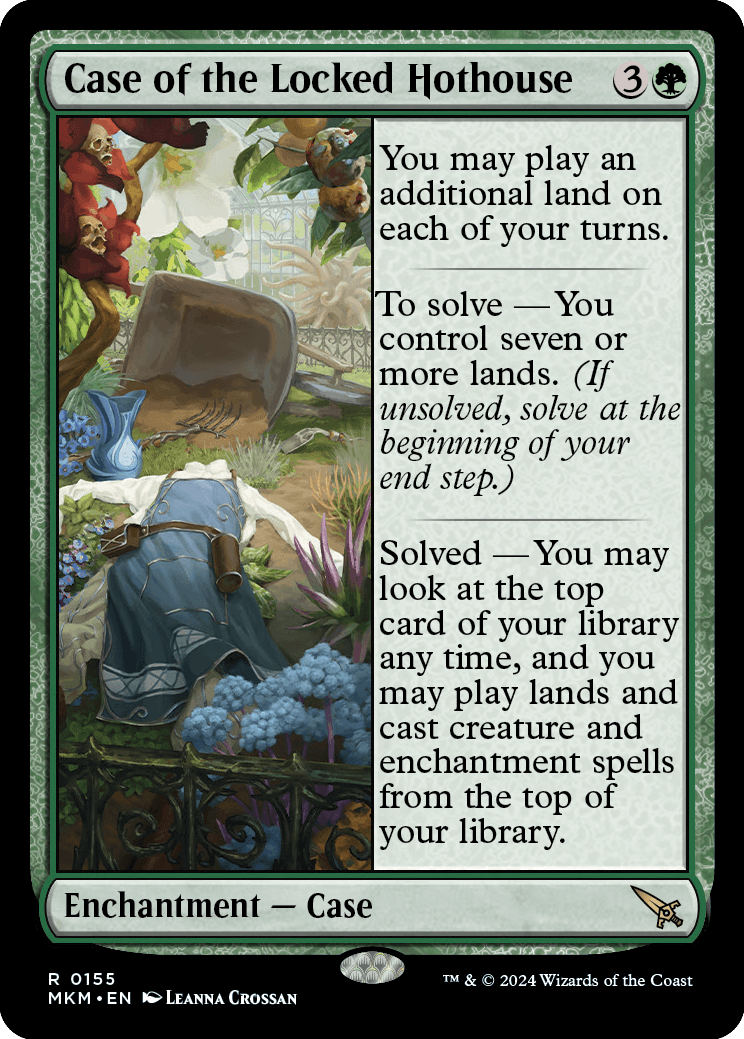
Case of the Locked Hothouse
{3}{G}
Enchantment — Case
You may play an additional land on each of your turns.
To solve — You control seven or more lands. (If unsolved, solve at the beginning of your end step.)
Solved — You may look at the top card of your library any time, and you may play lands and cast creature and enchantment spells from the top of your library.
- The effect of Case of the Locked Hothouse that allows you to play an additional land is cumulative with similar effects. For example, if you control two Case of the Locked Hothouses, you'll be able to play three lands during each of your turns.
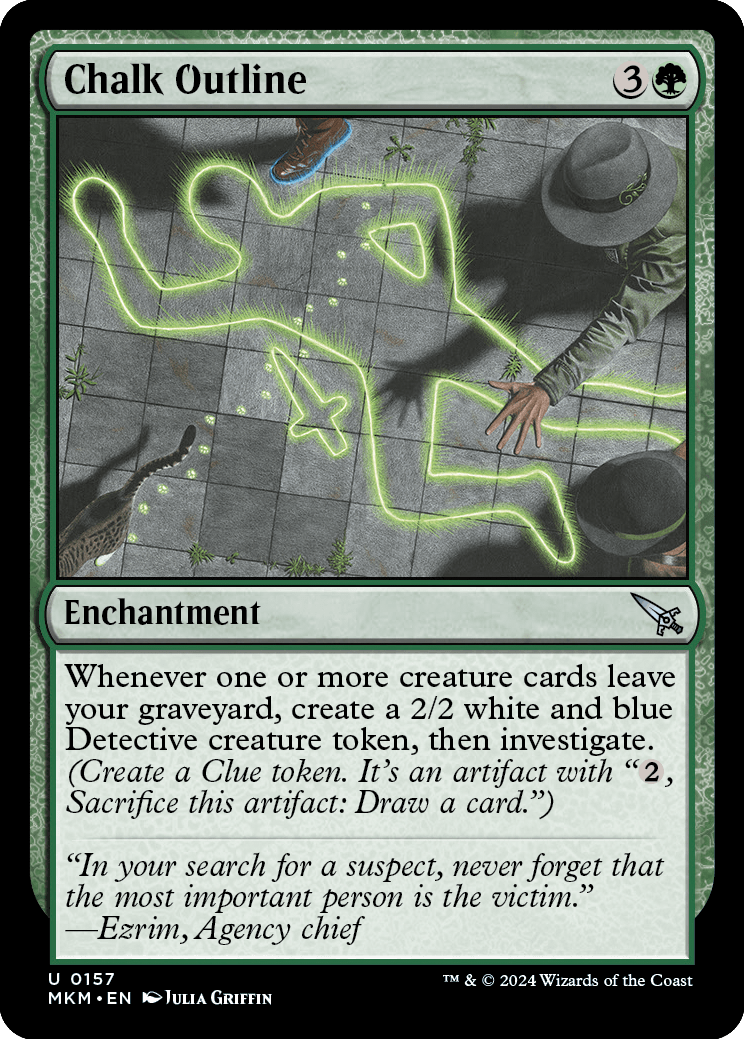
Chalk Outline
{3}{G}
Enchantment
Whenever one or more creature cards leave your graveyard, create a 2/2 white and blue Detective creature token, then investigate. (Create a Clue token. It's an artifact with "{2}, Sacrifice this artifact: Draw a card.")
- If multiple creature cards leave your graveyard at the same time, Chalk Outline's ability will trigger only once.
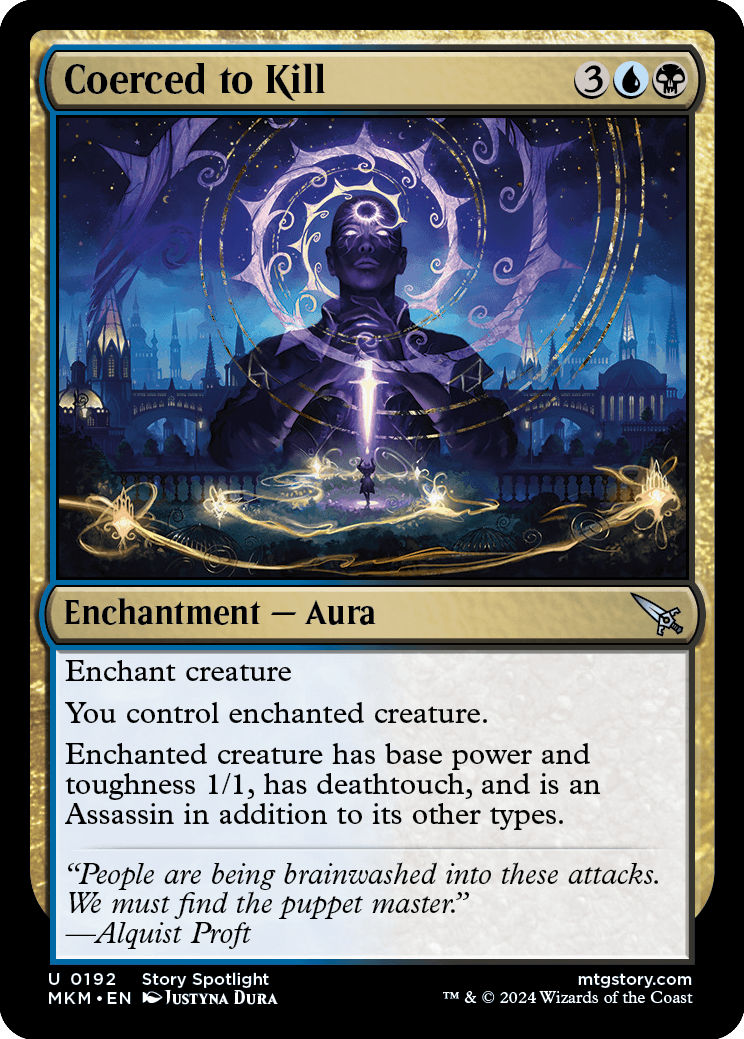
Coerced to Kill
{3}{U}{B}
Enchantment — Aura
Enchant creature
You control enchanted creature.
Enchanted creature has base power and toughness 1/1, has deathtouch, and is an Assassin in addition to its other types.
- Coerced to Kill overwrites all previous effects that set the creature's base power and toughness to specific values. Any power- or toughness-setting effects that start to apply after the ability resolves will overwrite this effect.
- Effects that modify a creature's power and/or toughness, such as the effect of Auspicious Arrival, will apply to the creature no matter when they started to take effect. The same is true for any counters that change its power and/or toughness and effects that switch its power and toughness.
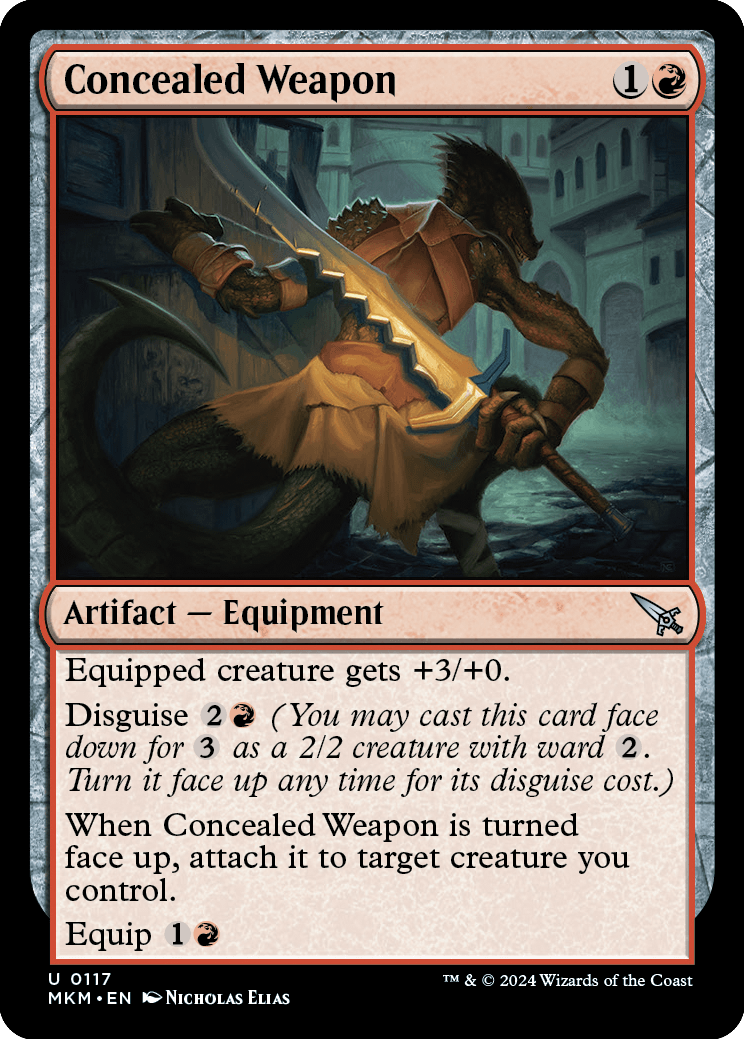
Concealed Weapon
{1}{R}
Artifact — Equipment
Equipped creature gets +3/+0.
Disguise {2}{R} (You may cast this card face down for {3} as a 2/2 creature with ward {2}. Turn it face up any time for its disguise cost.)
When Concealed Weapon is turned face up, attach it to target creature you control.
Equip {1}{R}
- Attaching Concealed Weapon with its triggered ability isn't the same as using its equip ability. You don't pay mana for the attachment, and the timing restrictions for equip abilities don't apply.
- If the target creature becomes an illegal target, Concealed Weapon remains on the battlefield unattached.
- You may turn Concealed Weapon face up even if you don't control any creatures.
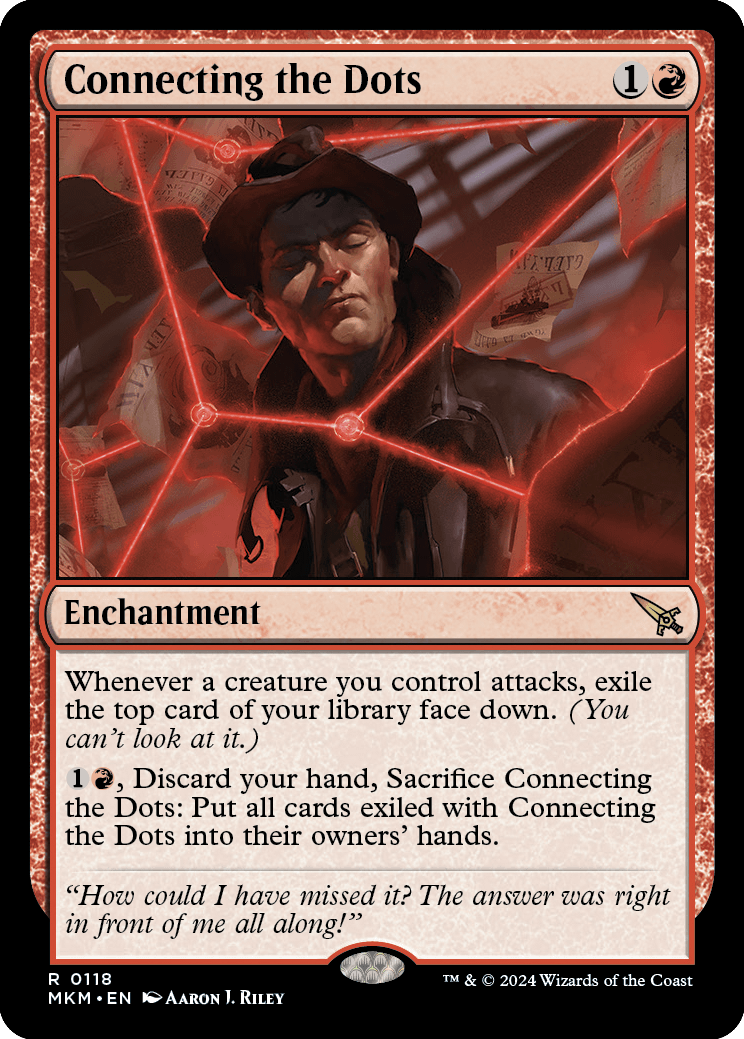
Connecting the Dots
{1}{R}
Enchantment
Whenever a creature you control attacks, exile the top card of your library face down. (You can't look at it.)
{1}{R}, Discard your hand, Sacrifice Connecting the Dots: Put all cards exiled with Connecting the Dots into their owners' hands.
- Each Connecting the Dots you control has its own set of face-down exiled cards. Connecting the Dots's last ability puts only those cards into your hand, not those of any other Connecting the Dots.
- If Connecting the Dots leaves the battlefield before you activate its last ability, any cards exiled by its triggered ability remain exiled face down for the rest of the game. (You still can't look at them.) If you somehow return the same Connecting the Dots to the battlefield, it will be a different object with no connection to those face-down cards.
- You can pay the cost of "discard your hand" even if your hand contains zero cards.
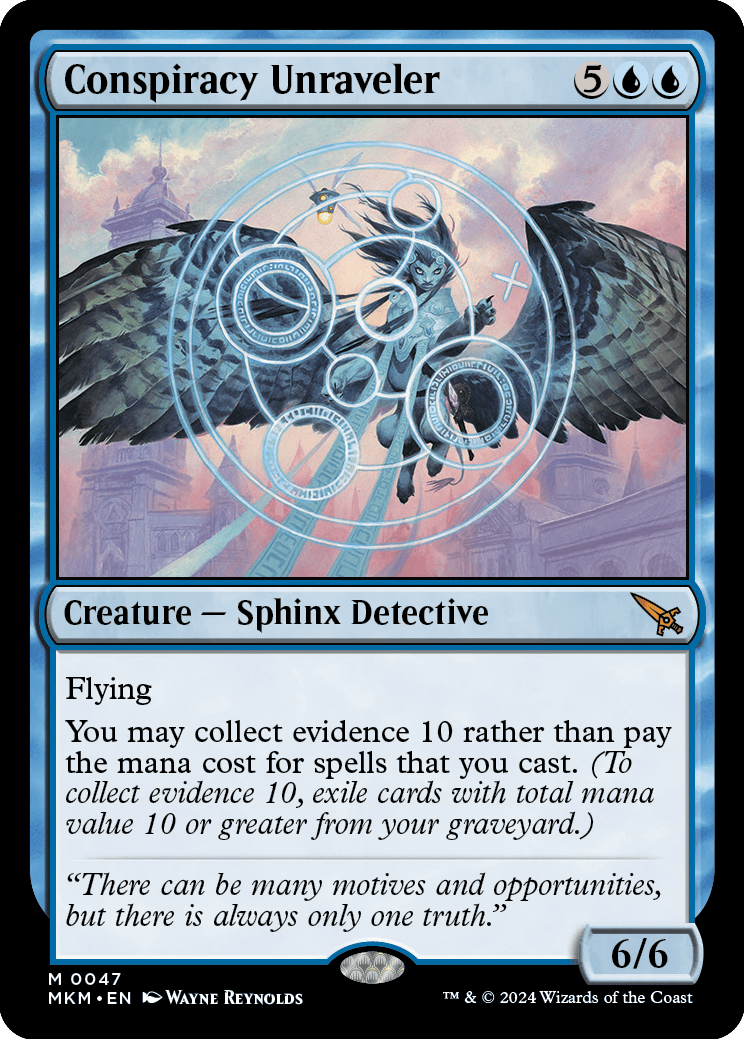
Conspiracy Unraveler
{5}{U}{U}
Creature — Sphinx Detective
6/6
Flying
You may collect evidence 10 rather than pay the mana cost for spells that you cast. (To collect evidence 10, exile cards with total mana value 10 or greater from your graveyard.)
- If a spell has {X} in its mana cost, you must choose 0 as the value of X when casting it without paying its mana cost.
- If you cast a spell for another cost "rather than pay its mana cost", you can't choose to cast it for any alternative costs. You can, however, pay additional costs. If the spell has any mandatory additional costs, such as that of Demand Answers, those must be paid to cast the card.
- If you are casting a spell from your graveyard (for example, a spell with flashback) you can't also exile that card to pay the alternative collect evidence cost offered by Conspiracy Unraveler.
- If you cast a spell with the alternative collect evidence cost offered by Conspiracy Unraveler and you also collect evidence as an additional cost to cast that spell, abilities of permanents that trigger "whenever you collect evidence" will trigger twice. This is also true for abilities that trigger "whenever one or more cards leave your graveyard." For example, let's say you control Conspiracy Unraveler and Evidence Examiner. You cast Crimestopper Sprite and choose to collect evidence 10 rather than pay its mana cost. You also choose to collect evidence 6 as an additional cost. Each of these will cause Evidence Examiner's last ability to trigger, and you'll end up investigating twice.
- If a spell has an additional cost that includes collecting evidence, such as that of Analyze the Pollen, any additional effects that occur "if evidence was collected" will occur only if that additional cost was paid. Using the alternative cost from Conspiracy Unraveler will not cause those additional effects to occur.
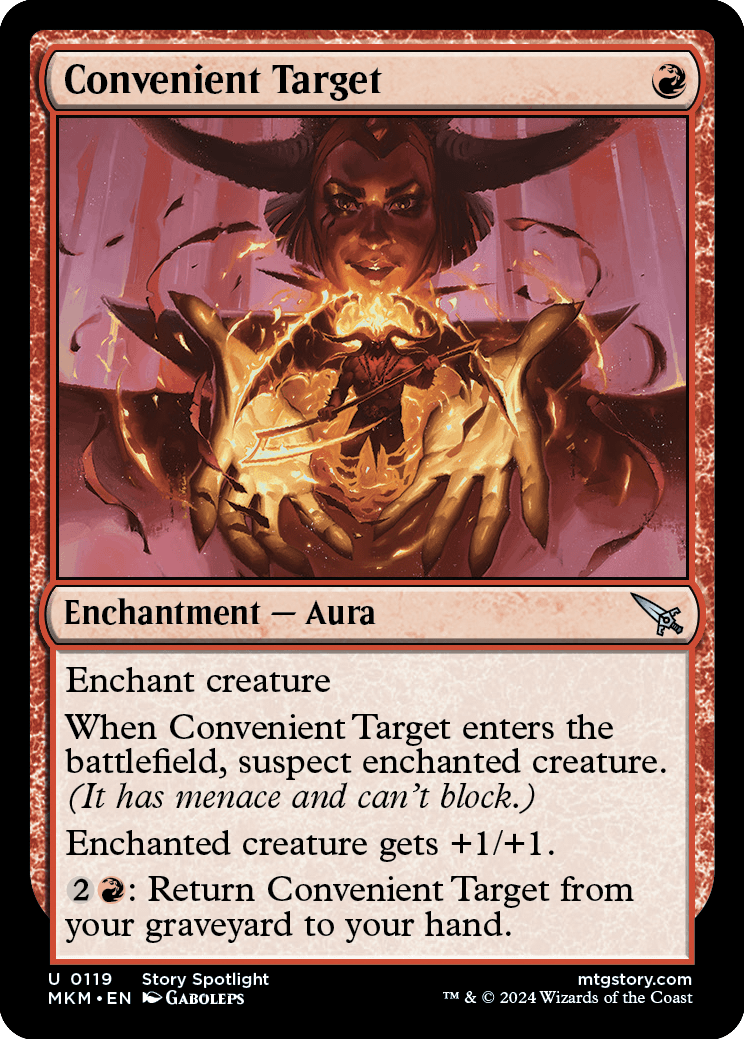
Convenient Target
{R}
Enchantment — Aura
Enchant creature
When Convenient Target enters the battlefield, suspect enchanted creature. (It has menace and can't block.)
Enchanted creature gets +1/+1.
{2}{R}: Return Convenient Target from your graveyard to your hand.
- If Convenient Target leaves the battlefield, the creature it was enchanting will still be suspected until that creature leaves the battlefield or another effect causes it to no longer be suspected.
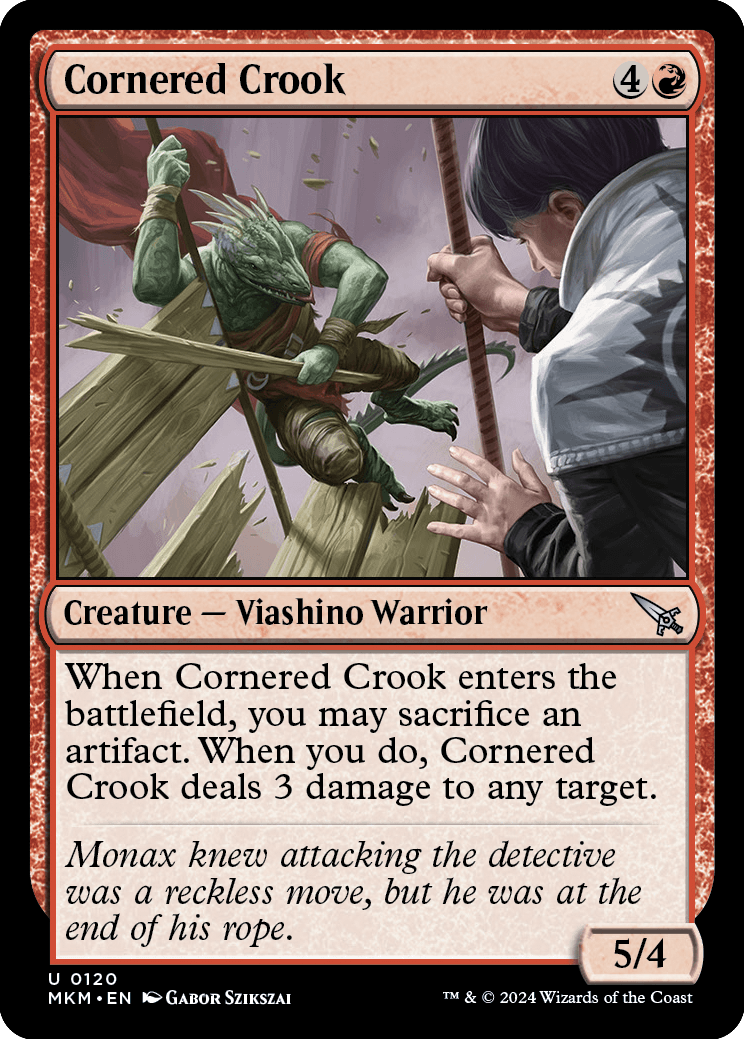
Cornered Crook
{4}{R}
Creature — Viashino Warrior
5/4
When Cornered Crook enters the battlefield, you may sacrifice an artifact. When you do, Cornered Crook deals 3 damage to any target.
- You don't choose a target for Cornered Crook's ability at the time it triggers. Rather, a second "reflexive" ability triggers when you sacrifice an artifact this way. You choose a target for that ability as it goes on the stack. Each player may respond to this triggered ability as normal.
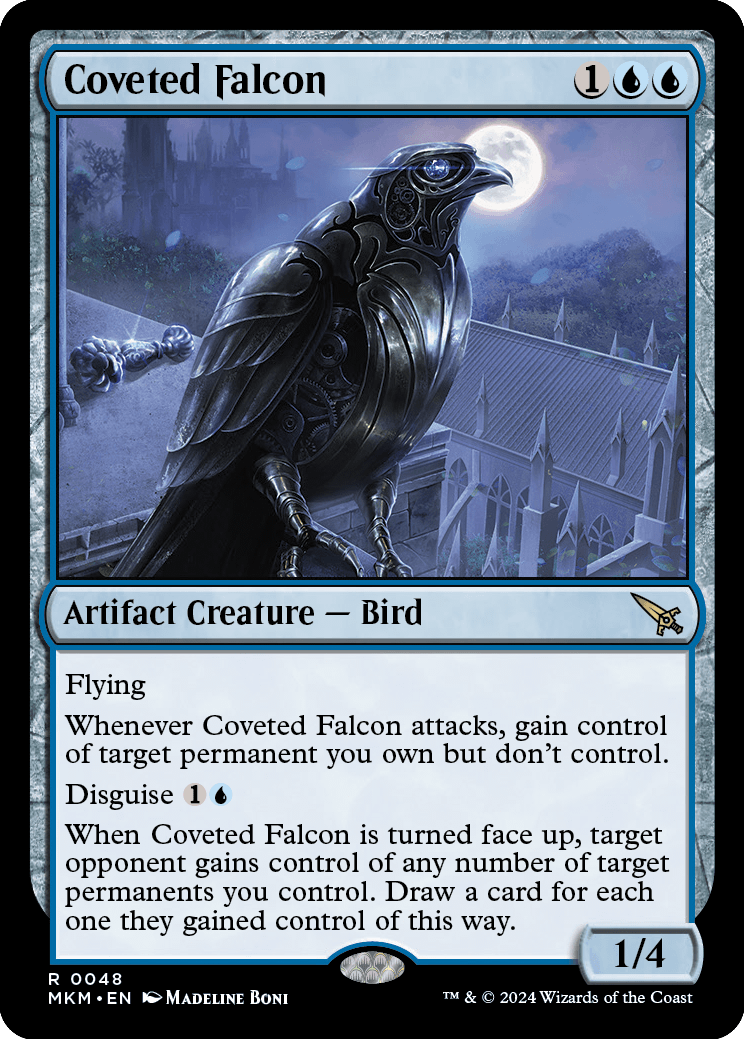
Coveted Falcon
{1}{U}{U}
Artifact Creature — Bird
1/4
Flying
Whenever Coveted Falcon attacks, gain control of target permanent you own but don't control.
Disguise {1}{U}
When Coveted Falcon is turned face up, target opponent gains control of any number of target permanents you control. Draw a card for each one they gained control of this way.
- A token's owner is the player who created it.
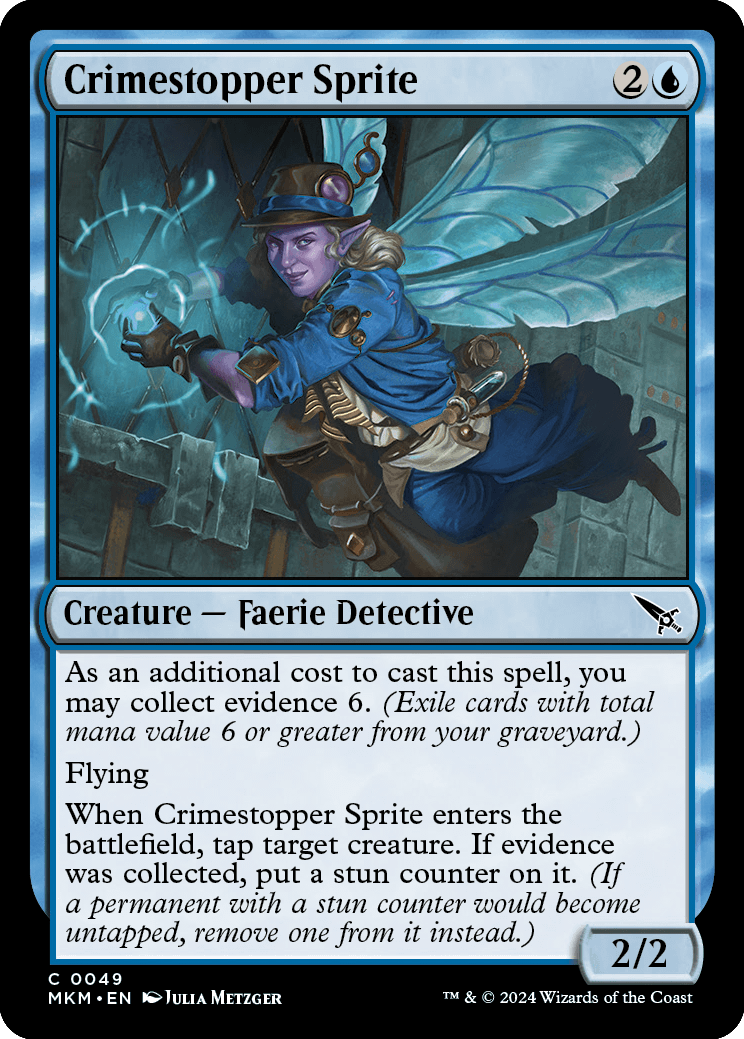
Crimestopper Sprite
{2}{U}
Creature — Faerie Detective
2/2
As an additional cost to cast this spell, you may collect evidence 6. (Exile cards with total mana value 6 or greater from your graveyard.)
Flying
When Crimestopper Sprite enters the battlefield, tap target creature. If evidence was collected, put a stun counter on it. (If a permanent with a stun counter would become untapped, remove one from it instead.)
- You may target a creature that is already tapped with Crimestopper Sprite's last ability. If the target creature is already tapped as the ability resolves and evidence was collected, you will still put a stun counter on it.
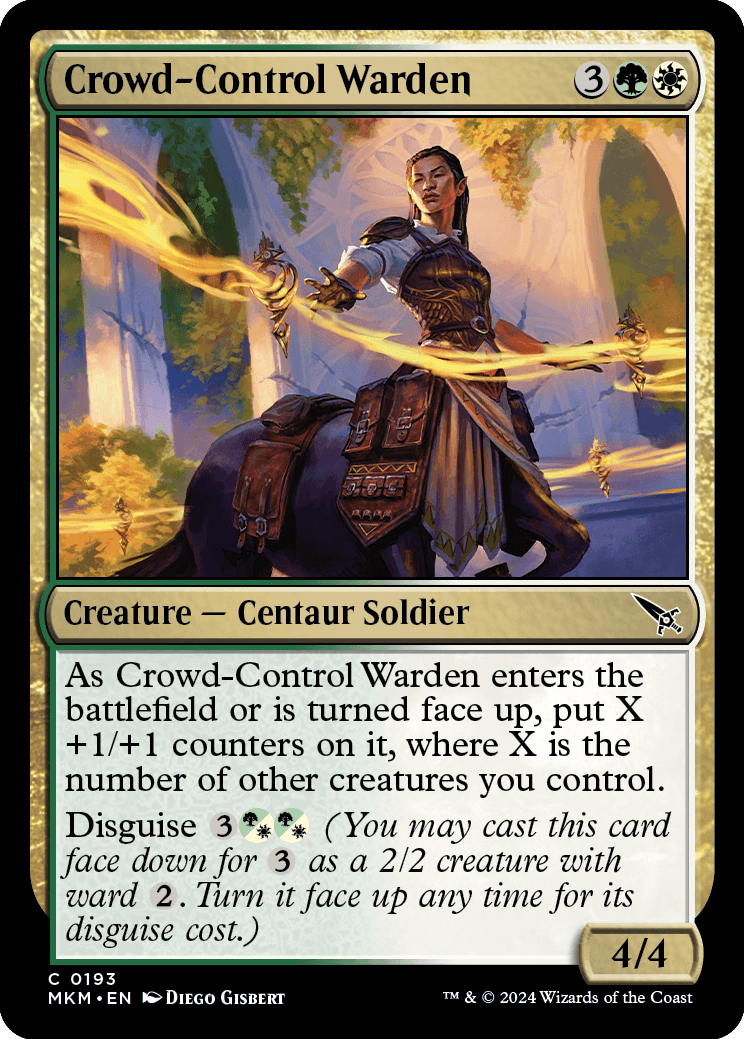
Crowd-Control Warden
{3}{G}{W}
Creature — Centaur Soldier
4/4
As Crowd-Control Warden enters the battlefield or is turned face up, put X +1/+1 counters on it, where X is the number of other creatures you control.
Disguise {3}{G/W}{G/W} (You may cast this card face down for {3} as a 2/2 creature with ward {2}. Turn it face up any time for its disguise cost.)
- If Crowd-Control Warden enters the battlefield at the same time as one or more creatures, those creatures won't count for the purposes of Crowd-Control Warden's first ability.
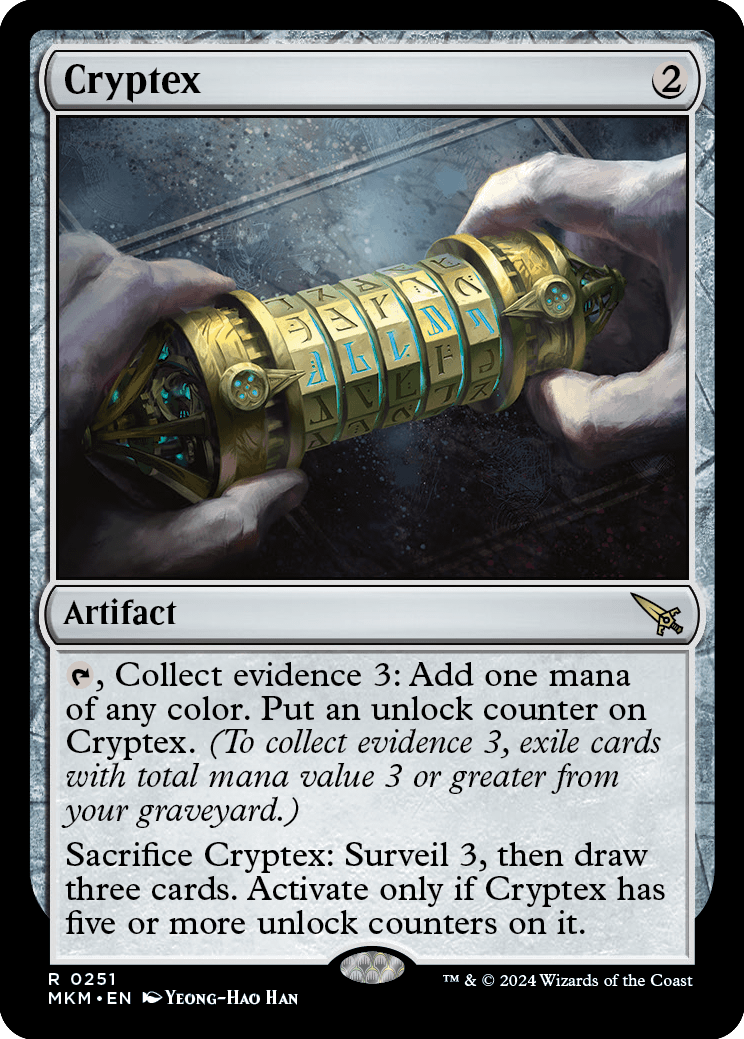
Cryptex
{2}
Artifact
{T}, Collect evidence 3: Add one mana of any color. Put an unlock counter on Cryptex. (To collect evidence 3, exile cards with total mana value 3 or greater from your graveyard.)
Sacrifice Cryptex: Surveil 3, then draw three cards. Activate only if Cryptex has five or more unlock counters on it.
- Cryptex's first ability is a mana ability. It doesn't use the stack and can't be responded to.

Cryptic Coat
{2}{U}
Artifact — Equipment
When Cryptic Coat enters the battlefield, cloak the top card of your library, then attach Cryptic Coat to it. (To cloak a card, put it onto the battlefield face down as a 2/2 creature with ward {2}. Turn it face up any time for its mana cost if it's a creature card.)
Equipped creature gets +1/+0 and can't be blocked.
{1}{U}: Return Cryptic Coat to its owner's hand.
- You'll still cloak the top card of your library even if Cryptic Coat isn't on the battlefield as its first ability resolves.
- Cryptic Coat has no equip ability. Without assistance from other cards, there's no way to attach it to a creature other than with its first triggered ability. How cryptic!
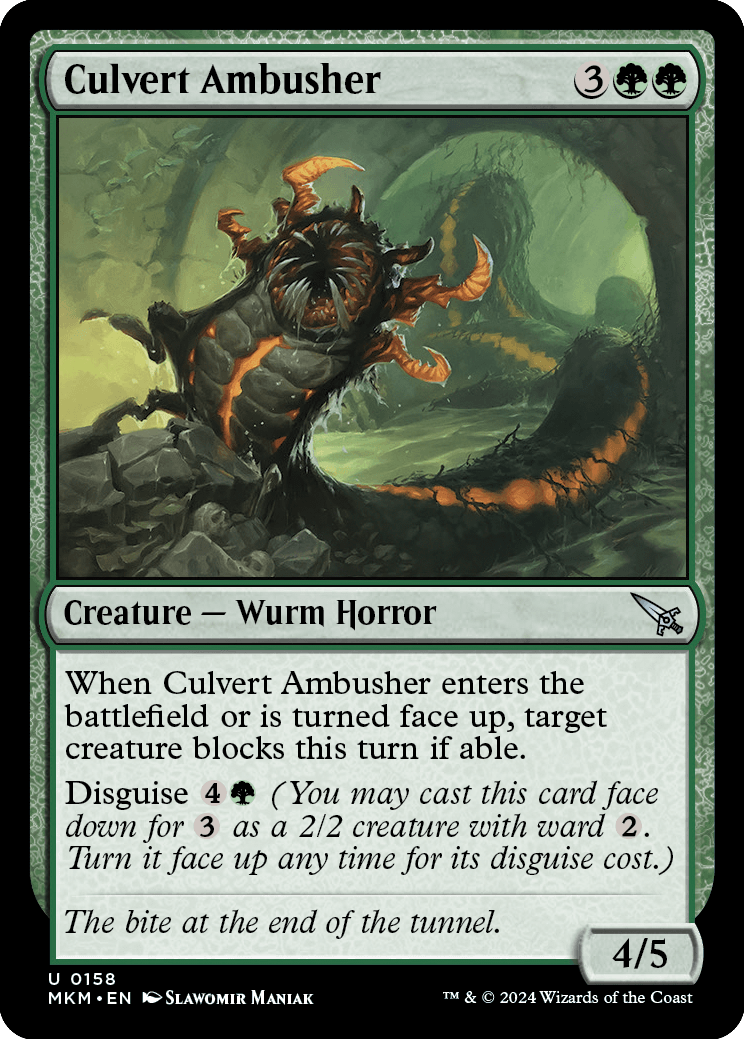
Culvert Ambusher
{3}{G}{G}
Creature — Wurm Horror
4/5
When Culvert Ambusher enters the battlefield or is turned face up, target creature blocks this turn if able.
Disguise {4}{G} (You may cast this card face down for {3} as a 2/2 creature with ward {2}. Turn it face up any time for its disguise cost.)
- If the target creature is tapped or is affected by a spell or ability that says it can't block, then it doesn't block. If there's a cost associated with having that creature block, its controller isn't forced to pay that cost, so it doesn't have to block in that case either.
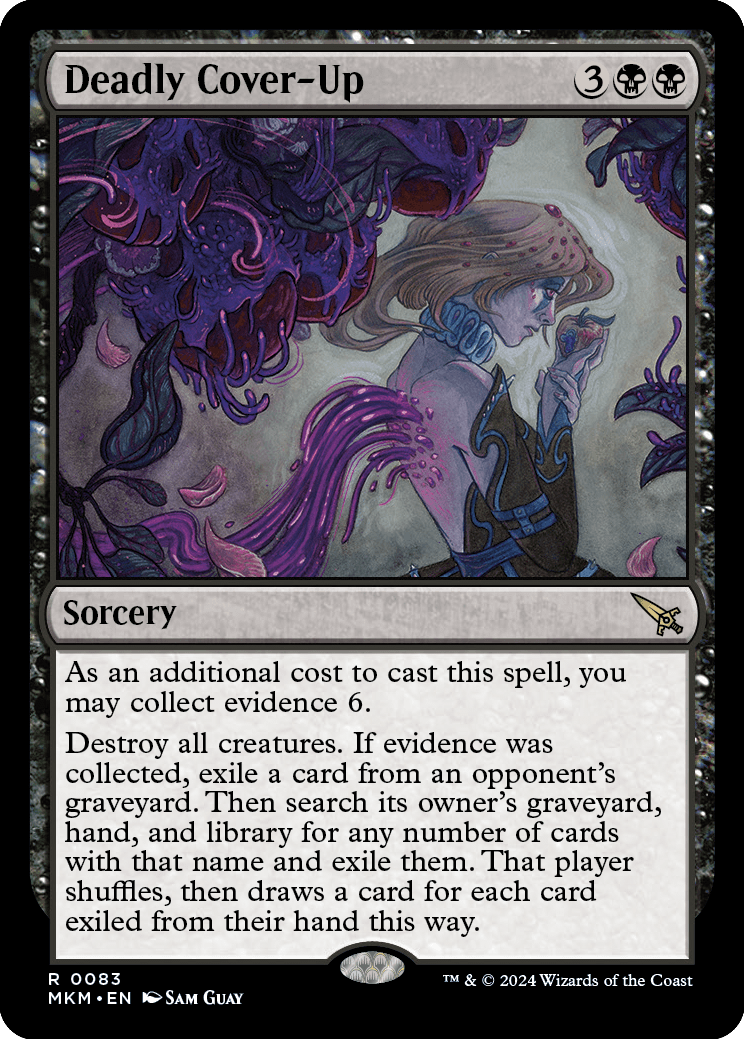
Deadly Cover-Up
{3}{B}{B}
Sorcery
As an additional cost to cast this spell, you may collect evidence 6.
Destroy all creatures. If evidence was collected, exile a card from an opponent's graveyard. Then search its owner's graveyard, hand, and library for any number of cards with that name and exile them. That player shuffles, then draws a card for each card exiled from their hand this way.
- Unlike many other effects of this kind, Deadly Cover-Up allows its controller to exile a basic land.
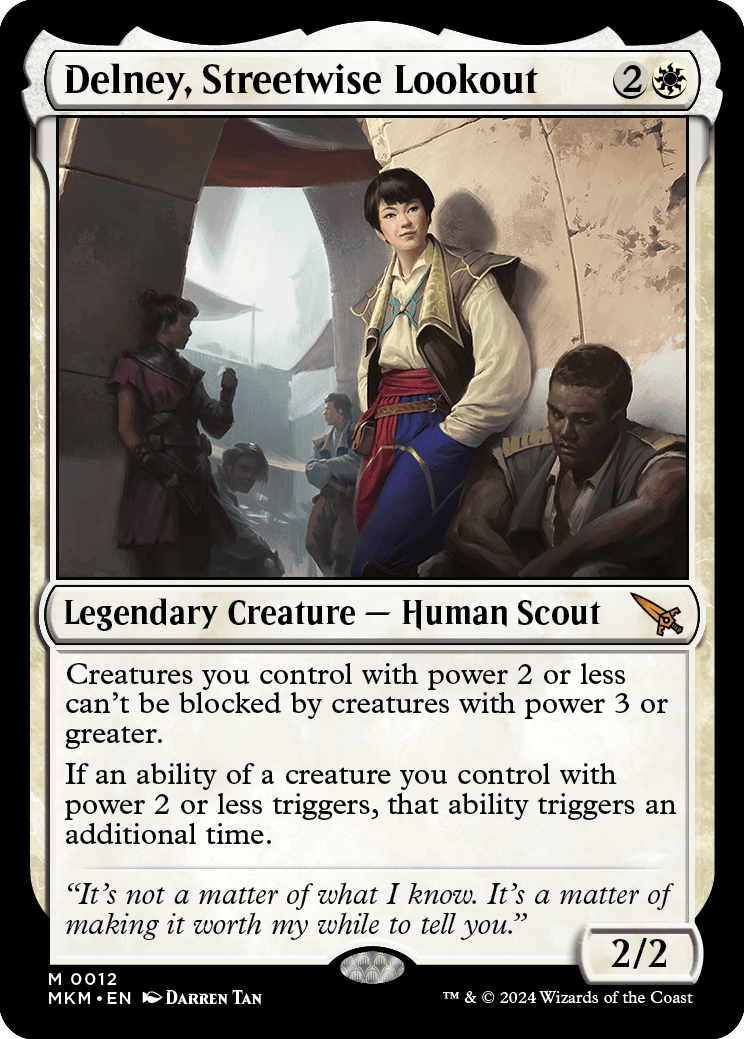
Delney, Streetwise Lookout
{2}{W}
Legendary Creature — Human Scout
2/2
Creatures you control with power 2 or less can't be blocked by creatures with power 3 or greater.
If an ability of a creature you control with power 2 or less triggers, that ability triggers an additional time.
- Once a creature you control has become blocked, reducing its power to 2 or less and/or increasing the power of the creature blocking it to 3 or greater won't cause it to become unblocked.
- Triggered abilities use the word "when," "whenever," or "at." They're often written as "[Trigger condition], [effect]." Some keyword abilities are triggered abilities and will have "when," "whenever," or "at the beginning of" in their reminder text.
- Replacement effects are unaffected by Delney, Streetwise Lookout's last ability. For example, a 1/1 creature that enters the battlefield under your control with one +1/+1 counter on it won't receive an additional +1/+1 counter.
- Abilities that apply "as [this creature] enters the battlefield" or "as [this creature] is turned face up" are also unaffected.
- Delney, Streetwise Lookout's last ability doesn't copy the triggered ability; it just causes the ability to trigger an additional time. Any choices made as you put the ability onto the stack, such as modes and targets, are made separately for each instance of the ability. Any choices made on resolution, such as whether to put counters on a permanent, are also made individually.
- If you somehow control two Delney, Streetwise Lookouts, abilities of creatures you control with power 2 or less trigger three times. A third Delney causes such abilities to trigger four times, a fourth causes such abilities to trigger five times, and so on.
- If a triggered ability is linked to a second ability, additional instances of that triggered ability are also linked to that second ability. If the second ability refers to "the exiled card," it refers to all cards exiled by instances of the triggered ability.
- In some cases involving linked abilities, an ability requires information about "the exiled card." When this happens, the ability gets multiple answers. If these answers are being used to determine the value of a variable, the sum is used. For example, if Elite Arcanist's enters-the-battlefield ability triggers twice, two cards are exiled. The value of X in the activation cost of Elite Arcanist's other ability is the sum of the two cards' mana values. As the ability resolves, you create copies of both cards and can cast none, one, or both of the copies in any order.
- Abilities that apply "when [this creature] is turned face up" will trigger an additional time only if that creature's power is 2 or less once it has been turned face up.
- Once an ability of a creature you control has triggered, reducing its power to 2 or less won't cause that ability to trigger an additional time. Similarly, once an ability of a creature you control with power 2 or less has triggered an additional time due to Delney, Streetwise Lookout's last ability, increasing its power to 3 or greater won't remove that additional triggered ability from the stack.
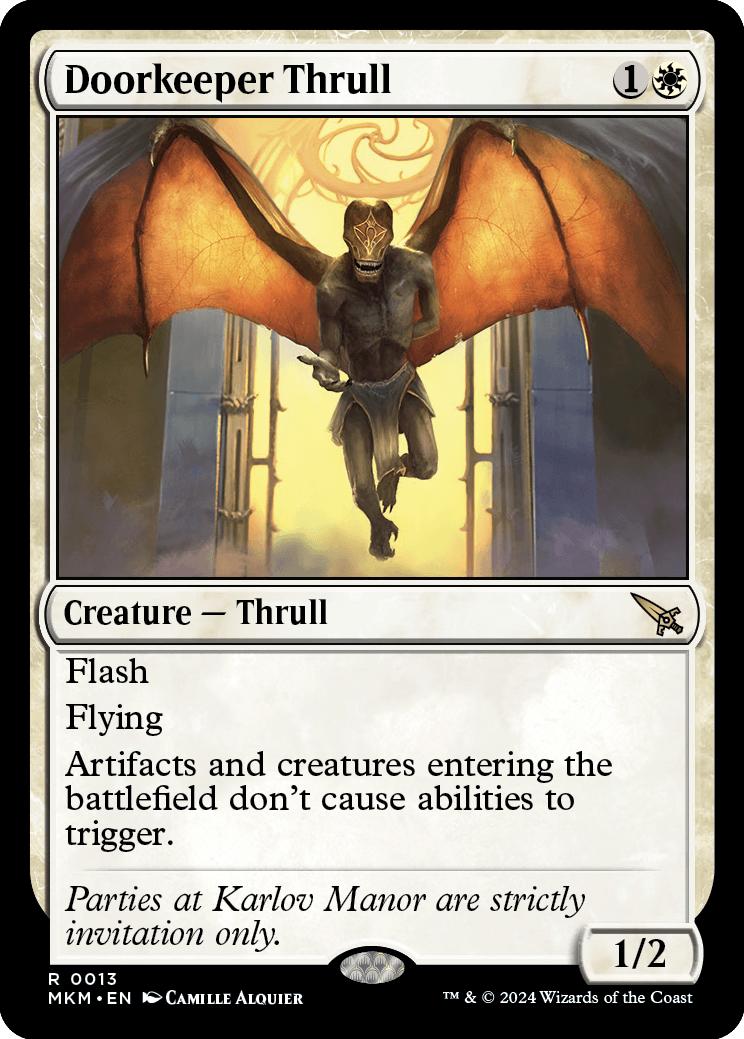
Doorkeeper Thrull
{1}{W}
Creature — Thrull
1/2
Flash
Flying
Artifacts and creatures entering the battlefield don't cause abilities to trigger.
- Triggered abilities use the word "when," "whenever," or "at." They're often written as "[Trigger condition], [effect]." Some keyword abilities are triggered abilities and will have "when," "whenever," or "at the beginning of" in their reminder text.
- Replacement effects, such as a permanent entering the battlefield tapped or with counters on it, are unaffected. Abilities that apply "as [this permanent] enters the battlefield" are replacement effects.
- The trigger event doesn't have to specify artifacts or creatures entering the battlefield. For example, Tireless Tracker has an ability that says "Whenever a land enters the battlefield under your control, investigate." If an artifact land or creature land enters the battlefield under your control, that ability won't trigger. If a nonartifact, noncreature land enters the battlefield under your control, the ability will trigger.
- Look at the permanent as it exists on the battlefield, taking into account continuous effects, to determine whether any triggered abilities will trigger. For example, if you control Opalescence, which says, in part, "Each other non-Aura enchantment is a creature," each enchantment will be a creature at the time it enters the battlefield and will not cause triggered abilities to trigger.
- If Doorkeeper Thrull and another creature or an artifact enter the battlefield at the same time, neither one will cause triggered abilities to trigger when they enter the battlefield.
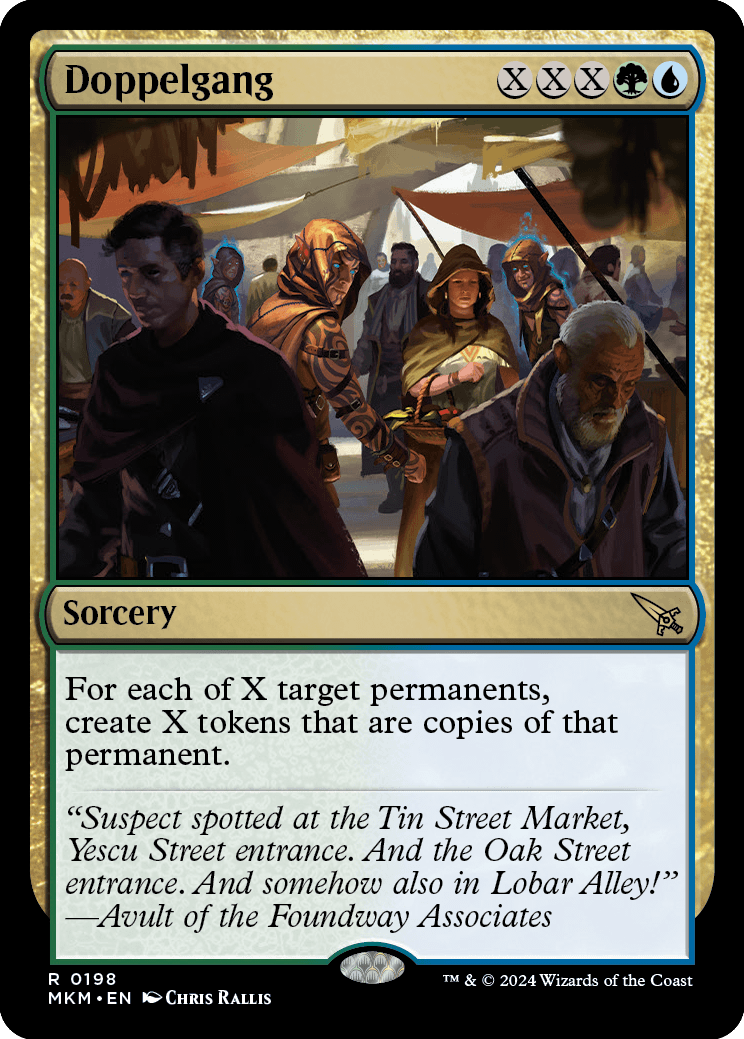
Doppelgang
{X}{X}{X}{G}{U}
Sorcery
For each of X target permanents, create X tokens that are copies of that permanent.
- The tokens copy exactly what was printed on the original permanent and nothing else (unless that permanent is itself copying something else; see below). They don't copy whether that permanent is tapped or untapped, whether it has any counters on it or Auras attached to it, or any non-copy effects that have changed its power, toughness, types, color, and so on.
- If the copied permanent is copying something else, then the tokens enter the battlefield as whatever that permanent copied.
- If the copied permanent has {X} in its mana cost, X is 0.
- Any enters-the-battlefield abilities of the copied permanent will trigger when the tokens enter the battlefield. Any "as [this permanent] enters the battlefield" or "[this permanent] enters the battlefield with" abilities of the permanent will also work.
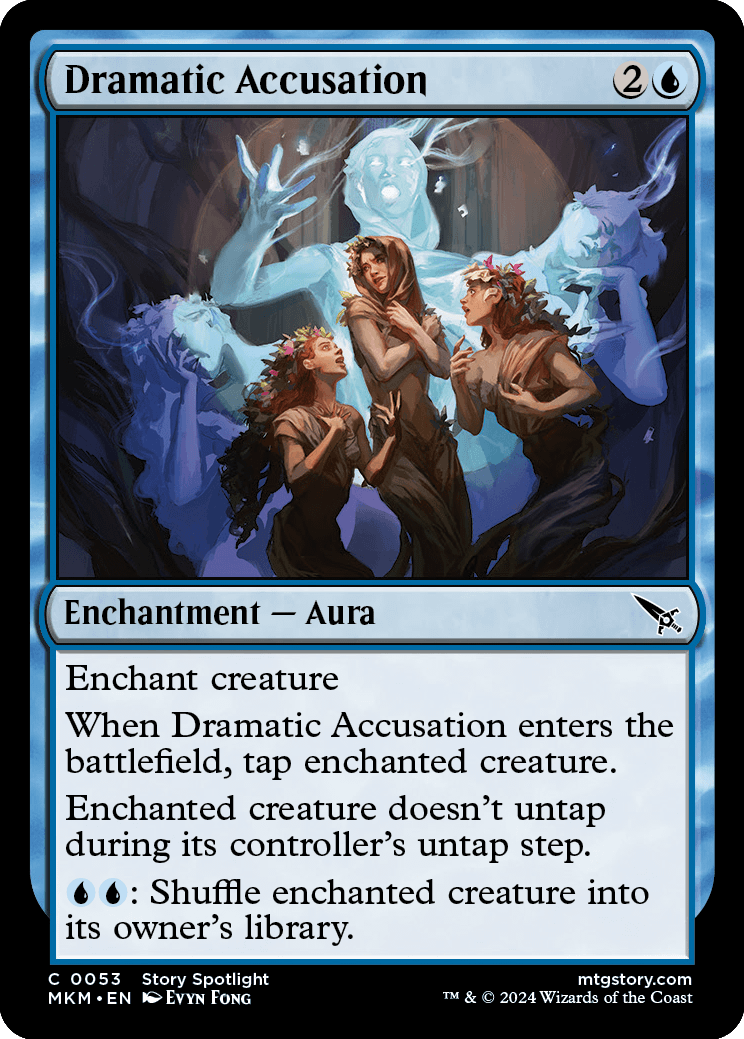
Dramatic Accusation
{2}{U}
Enchantment — Aura
Enchant creature
When Dramatic Accusation enters the battlefield, tap enchanted creature.
Enchanted creature doesn't untap during its controller's untap step.
{U}{U}: Shuffle enchanted creature into its owner's library.
- Only the controller of Dramatic Accusation may activate its ability.
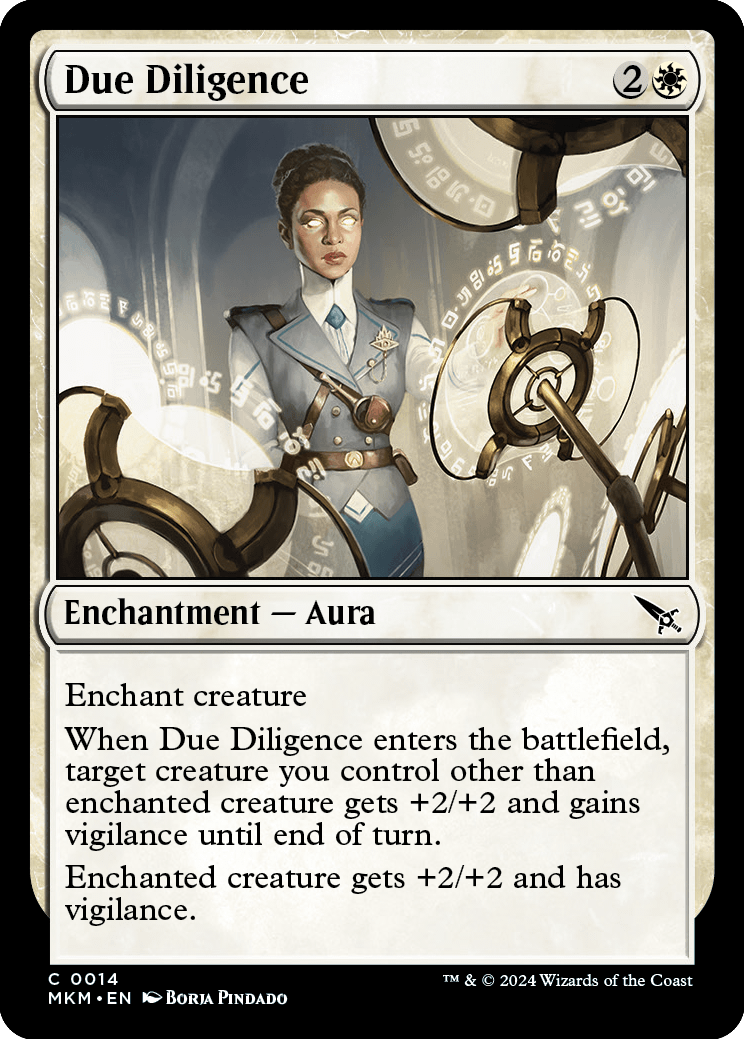
Due Diligence
{2}{W}
Enchantment — Aura
Enchant creature
When Due Diligence enters the battlefield, target creature you control other than enchanted creature gets +2/+2 and gains vigilance until end of turn.
Enchanted creature gets +2/+2 and has vigilance.
- In the unusual case where Due Diligence's second ability triggers and then Due Diligence becomes attached to the target of its own triggered ability before that ability resolves, when the triggered ability tries to resolve, it won't resolve and none of its effects will happen.
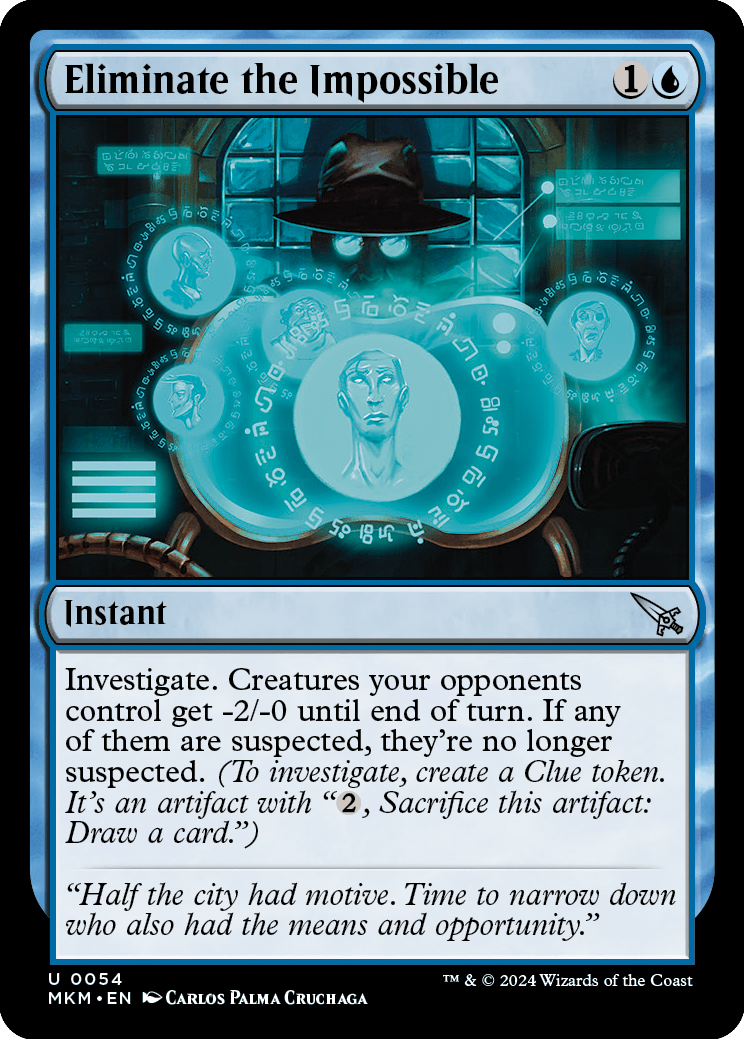
Eliminate the Impossible
{1}{U}
Instant
Investigate. Creatures your opponents control get -2/-0 until end of turn. If any of them are suspected, they're no longer suspected. (To investigate, create a Clue token. It's an artifact with "{2}, Sacrifice this artifact: Draw a card.")
- Eliminate the Impossible affects only creatures your opponents control at the time it resolves. Creatures they begin to control later in the turn won't get -2/-0 and won't stop being suspected.
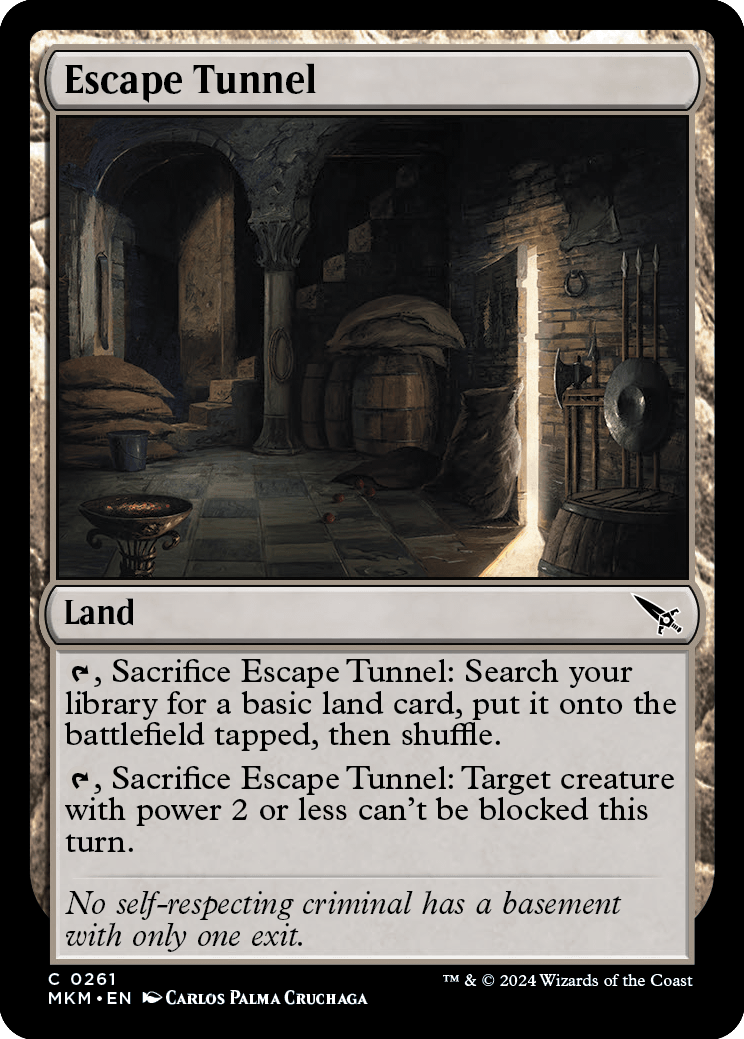
Escape Tunnel
Land
{T}, Sacrifice Escape Tunnel: Search your library for a basic land card, put it onto the battlefield tapped, then shuffle.
{T}, Sacrifice Escape Tunnel: Target creature with power 2 or less can't be blocked this turn.
- If the target creature's power is increased to 3 or greater after Escape Tunnel's last ability is activated but before it resolves, the ability doesn't resolve. However, if instead the creature's power is increased to 3 or greater after the ability resolves, it still can't be blocked that turn.
- Once a creature with power 2 or less has been blocked, Escape Tunnel's last ability won't cause it to become unblocked.
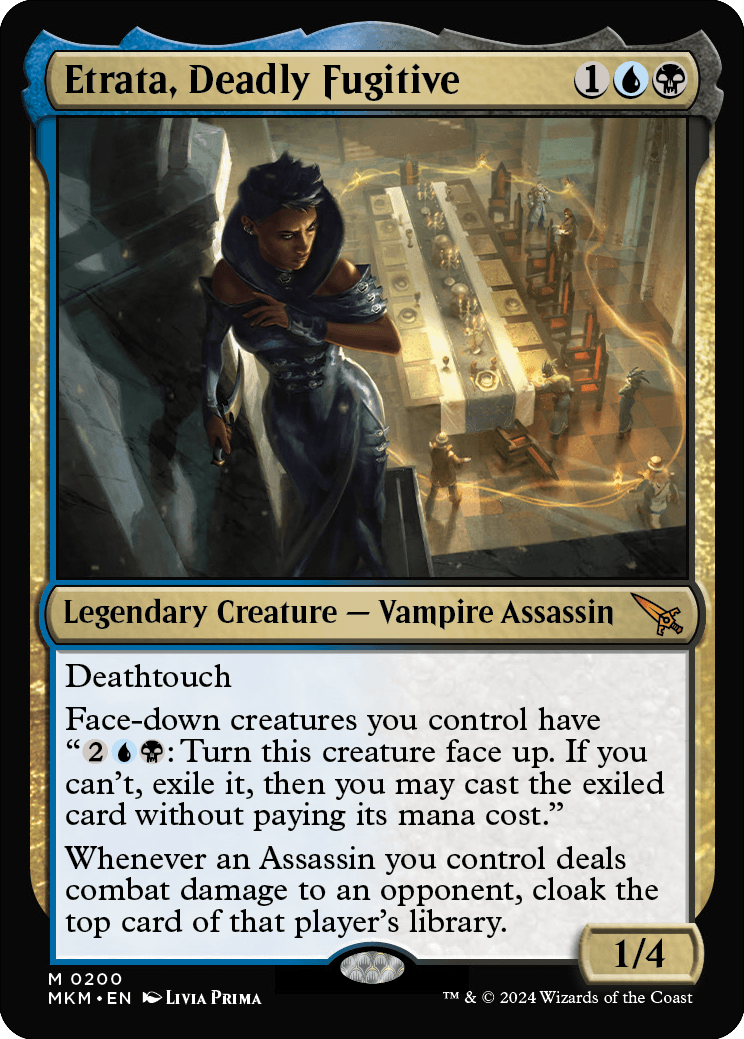
Etrata, Deadly Fugitive
{1}{U}{B}
Legendary Creature — Vampire Assassin
1/4
Deathtouch
Face-down creatures you control have "{2}{U}{B}: Turn this creature face up. If you can't, exile it, then you may cast the exiled card without paying its mana cost."
Whenever an Assassin you control deals combat damage to an opponent, cloak the top card of that player's library.
- You might be unable to turn a face-down creature face up because it's an instant or sorcery. Alternatively, abilities such as that of Karlov Watchdog might prevent you from turning face-down creatures face up altogether. In those cases, you'll exile that creature, and then you'll choose whether or not to cast that card without paying its mana cost.
- If you cast a spell "without paying its mana cost", you can't choose to cast it for any alternative costs. You can, however, pay additional costs, such as kicker costs. If the card has any mandatory additional costs, such as that of Demand Answers, those must be paid to cast the spell.
- If the spell you cast has {X} in its mana cost, you must choose 0 as the value of X when casting it without paying its mana cost.
- Your opponents can't look at cards they own that you cloaked.
- In a multiplayer game, if an opponent leaves the game, all of the cards they own that you cloaked leave as well. If you leave the game, the creatures you cloaked with Etrata, Deadly Fugitive's triggered ability are exiled.
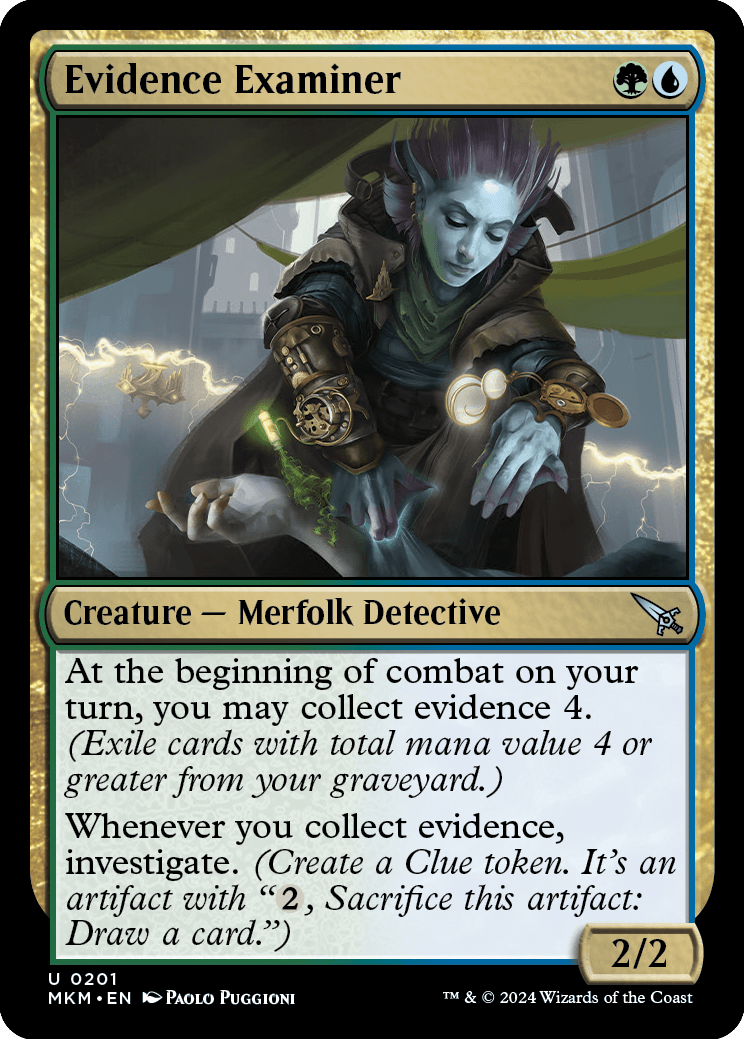
Evidence Examiner
{G}{U}
Creature — Merfolk Detective
2/2
At the beginning of combat on your turn, you may collect evidence 4. (Exile cards with total mana value 4 or greater from your graveyard.)
Whenever you collect evidence, investigate. (Create a Clue token. It's an artifact with "{2}, Sacrifice this artifact: Draw a card.")
- Evidence Examiner's last ability triggers whenever you collect evidence for any reason, not just when you collect evidence with its first ability.
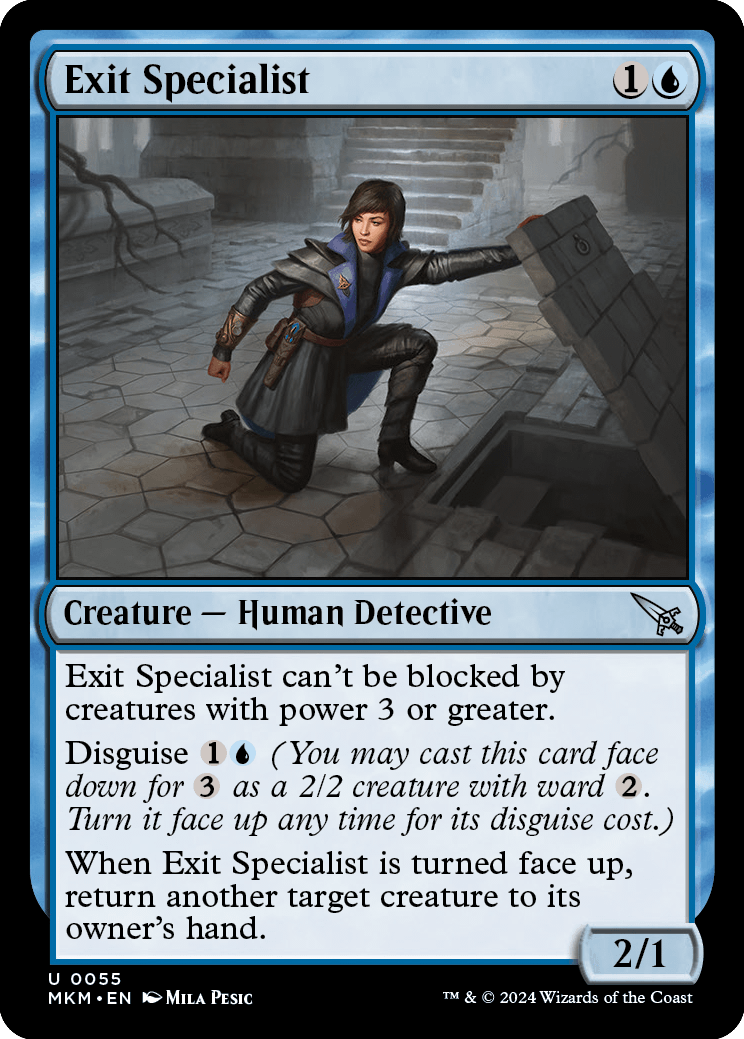
Exit Specialist
{1}{U}
Creature — Human Detective
2/1
Exit Specialist can't be blocked by creatures with power 3 or greater.
Disguise {1}{U} (You may cast this card face down for {3} as a 2/2 creature with ward {2}. Turn it face up any time for its disguise cost.)
When Exit Specialist is turned face up, return another target creature to its owner's hand.
- Once Exit Specialist has been blocked, increasing the blocking creature's power to 3 or greater won't cause Exit Specialist to become unblocked.
- If Exit Specialist becomes blocked while it's face-down, turning it face up won't cause it to become unblocked.
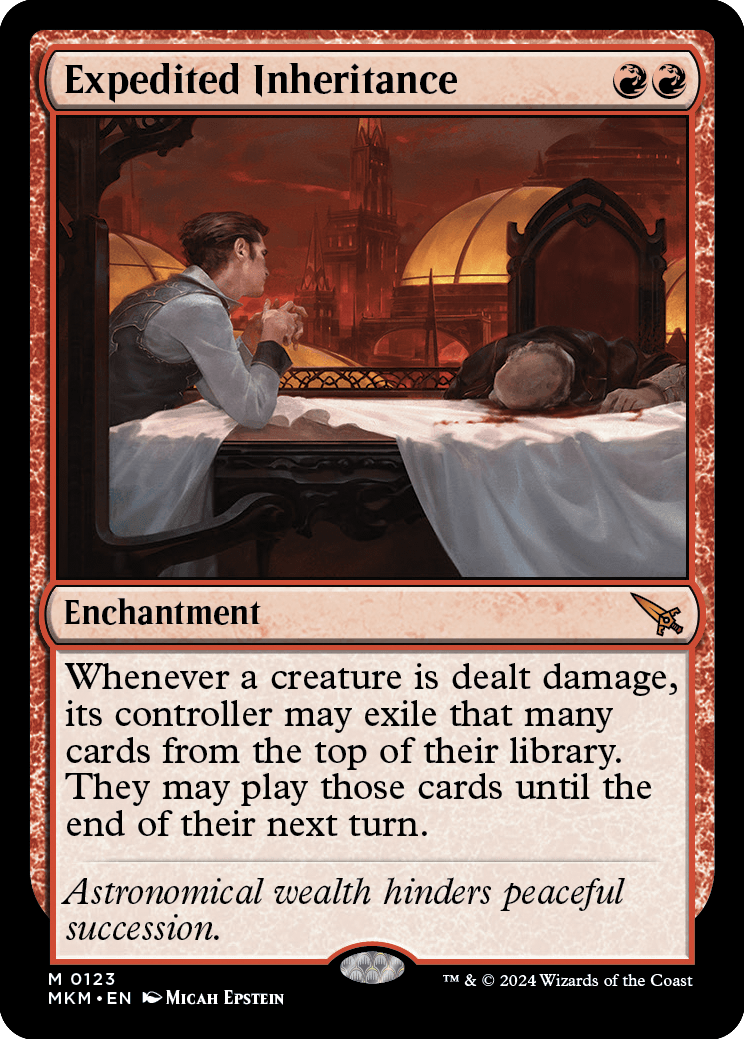
Expedited Inheritance
{R}{R}
Enchantment
Whenever a creature is dealt damage, its controller may exile that many cards from the top of their library. They may play those cards until the end of their next turn.
- Players pay all costs and follow all normal timing rules for cards played from exile with Expedited Inheritance's permission. For example, if one of the exiled cards is a land card, they may play it only during their main phase while the stack is empty.
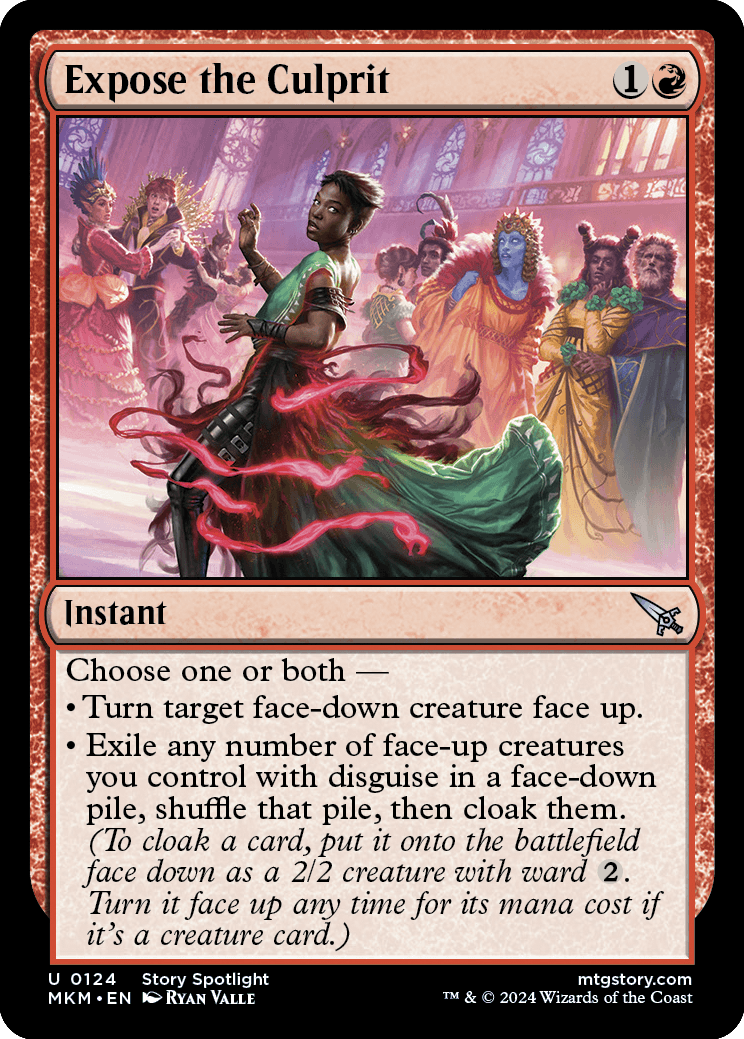
Expose the Culprit
{1}{R}
Instant
Choose one or both —
• Turn target face-down creature face up.
• Exile any number of face-up creatures you control with disguise in a face-down pile, shuffle that pile, then cloak them. (To cloak a card, put it onto the battlefield face down as a 2/2 creature with ward {2}. Turn it face up any time for its mana cost if it's a creature card.)
- The pile is shuffled to disguise from your opponents which cloaked creature is which. After you cloak the creatures, you may look at them.
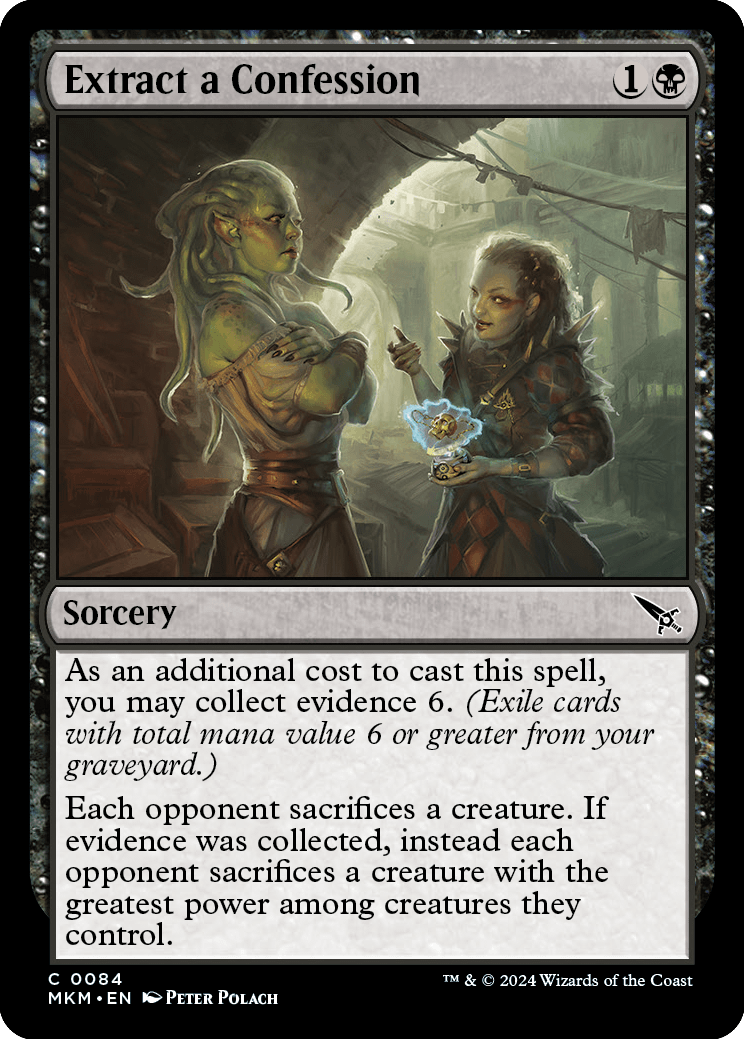
Extract a Confession
{1}{B}
Sorcery
As an additional cost to cast this spell, you may collect evidence 6. (Exile cards with total mana value 6 or greater from your graveyard.)
Each opponent sacrifices a creature. If evidence was collected, instead each opponent sacrifices a creature with the greatest power among creatures they control.
- Starting with the next opponent in turn order (or, if you cast Extract a Confession on an opponent's turn, starting with the opponent whose turn it is) and proceeding in turn order, each opponent chooses a creature they control to sacrifice. Then those creatures are sacrificed at the same time.
- If evidence was collected and an opponent has multiple creatures tied for the greatest power, that player chooses which one to sacrifice.
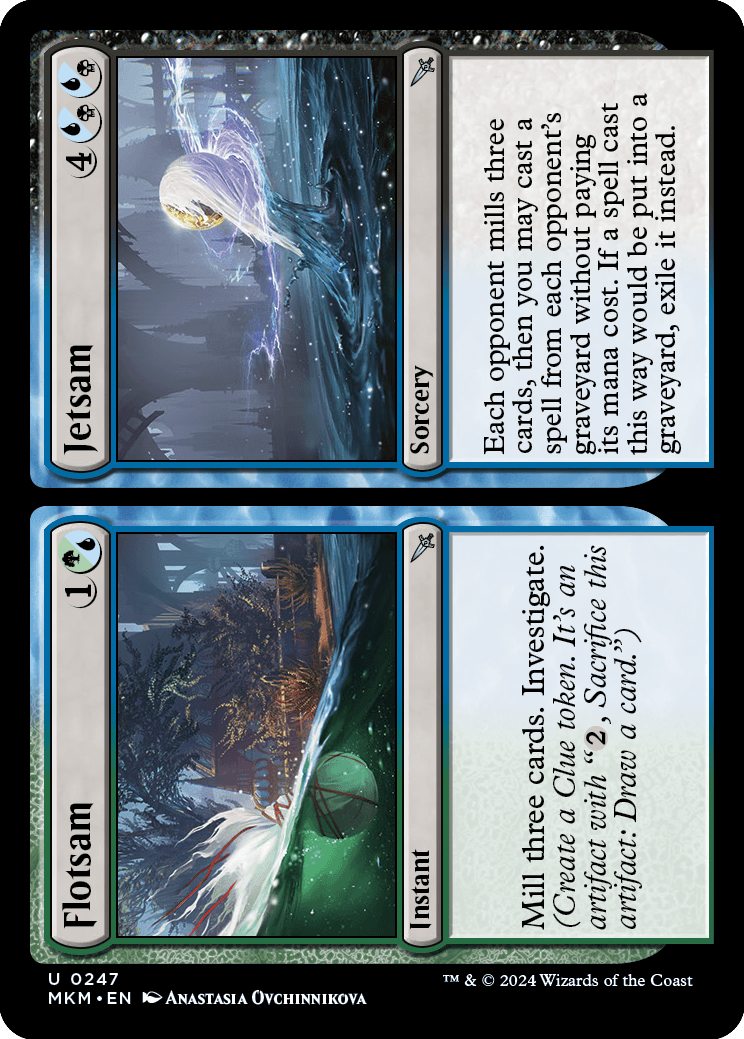
Flotsam
{1}{G/U}
Instant
Mill three cards. Investigate. (Create a Clue token. It's an artifact with "{2}, Sacrifice this artifact: Draw a card.")
//
Jetsam
{4}{U/B}{U/B}
Sorcery
Each opponent mills three cards, then you may cast a spell from each opponent's graveyard without paying its mana cost. If a spell cast this way would be put into a graveyard, exile it instead.
- You choose whether to cast spells from opponents' graveyards as Jetsam resolves. If you do, you do so as part of the resolution of Jetsam. You can't wait to cast them later in the turn. Timing restrictions based on the cards' types are ignored.
- If you cast a spell "without paying its mana cost", you can't choose to cast it for any alternative costs. You can, however, pay additional costs, such as kicker costs. If the card has any mandatory additional costs, those must be paid to cast the spell.
- If a spell you cast has {X} in its mana cost, you must choose 0 as the value of X when casting it without paying its mana cost.
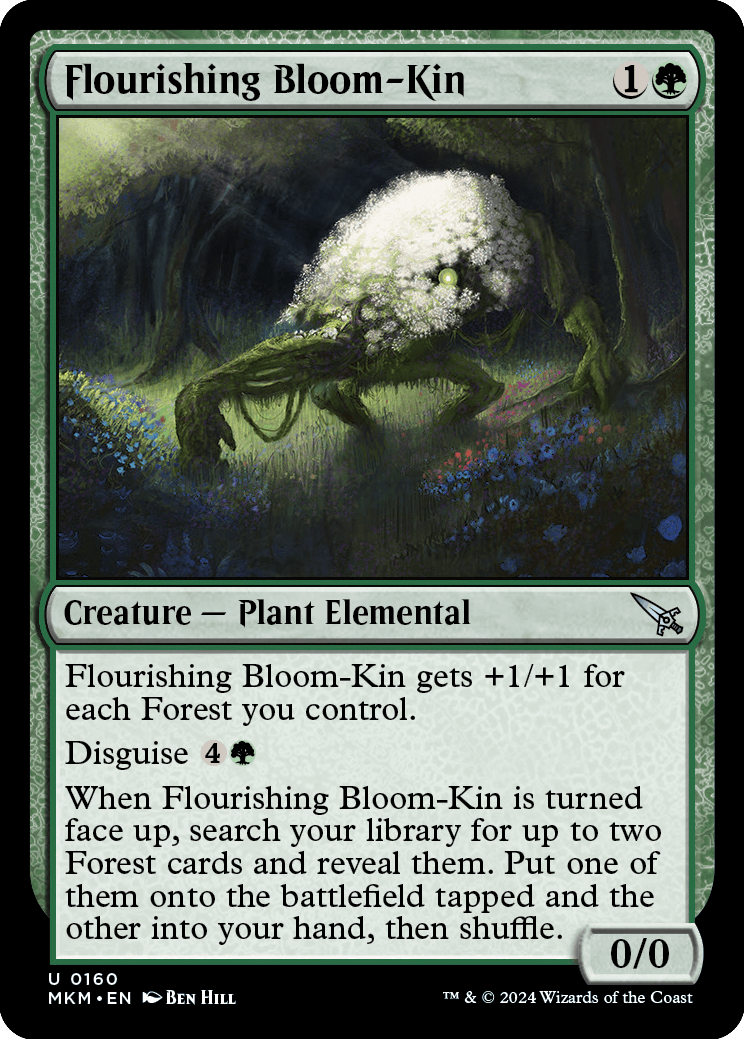
Flourishing Bloom-Kin
{1}{G}
Creature — Plant Elemental
0/0
Flourishing Bloom-Kin gets +1/+1 for each Forest you control.
Disguise {4}{G}
When Flourishing Bloom-Kin is turned face up, search your library for up to two Forest cards and reveal them. Put one of them onto the battlefield tapped and the other into your hand, then shuffle.
- If you find only one Forest card with Flourishing Bloom-Kin's last ability, you'll put it onto the battlefield tapped. You won't have the option to put it into your hand.
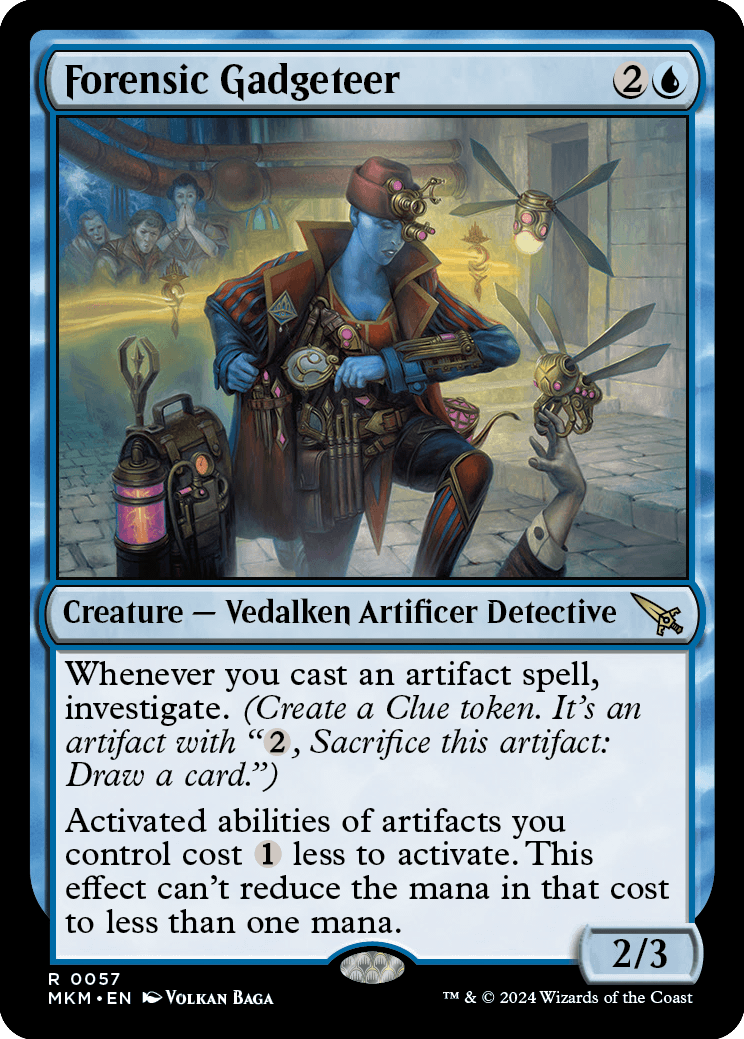
Forensic Gadgeteer
{2}{U}
Creature — Vedalken Artificer Detective
2/3
Whenever you cast an artifact spell, investigate. (Create a Clue token. It's an artifact with "{2}, Sacrifice this artifact: Draw a card.")
Activated abilities of artifacts you control cost {1} less to activate. This effect can't reduce the mana in that cost to less than one mana.
- Activated abilities contain a colon. They're generally written "[Cost]: [Effect]." Some keywords are activated abilities and will have colons in their reminder text. Triggered abilities (starting with "when," "whenever," or "at") are unaffected by the cost reduction ability of Forensic Gadgeteer.
- Forensic Gadgeteer's last ability affects only abilities of artifacts you control on the battlefield. The costs of activated abilities of artifact cards that work in other zones, such as cycling, won't be reduced.
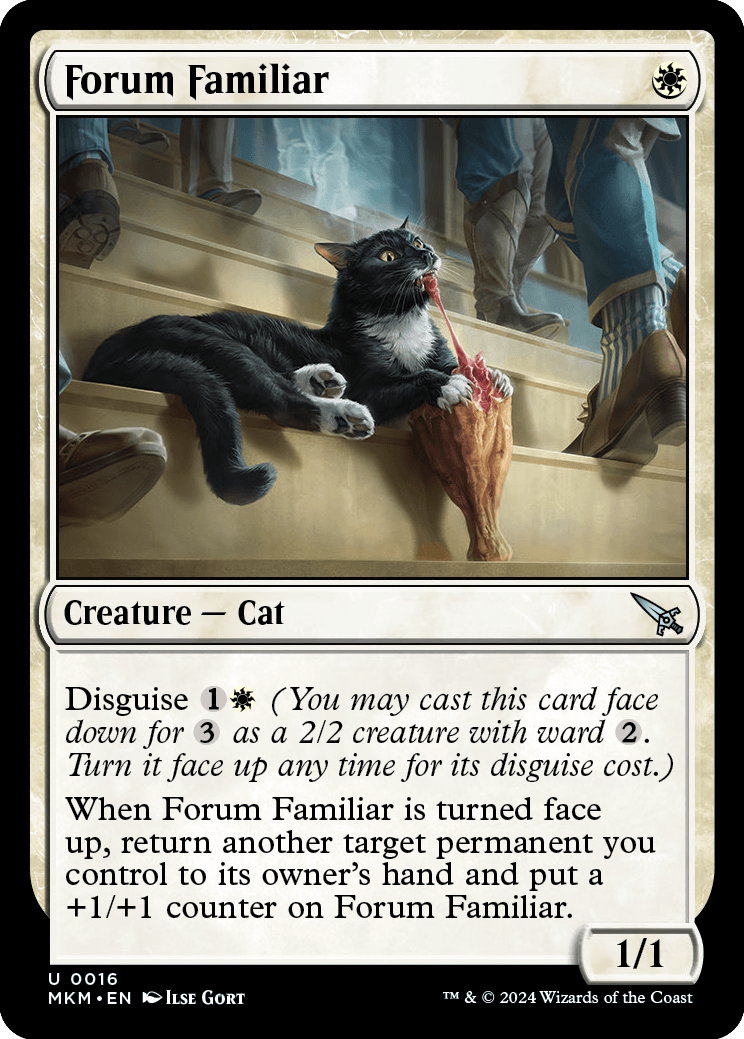
Forum Familiar
{W}
Creature — Cat
1/1
Disguise {1}{W} (You may cast this card face down for {3} as a 2/2 creature with ward {2}. Turn it face up any time for its disguise cost.)
When Forum Familiar is turned face up, return another target permanent you control to its owner's hand and put a +1/+1 counter on Forum Familiar.
- If the target of Forum Familiar's last ability is illegal when the ability tries to resolve, it won't resolve and none of its effects will happen. You won't put a +1/+1 counter on Forum Familiar.

Fugitive Codebreaker
{1}{R}
Creature — Goblin Rogue
2/1
Prowess, haste
Disguise {5}{R}. This cost is reduced by {1} for each instant and sorcery card in your graveyard. (You may cast this card face down for {3} as a 2/2 creature with ward {2}. Turn it face up any time for its disguise cost.)
When Fugitive Codebreaker is turned face up, discard your hand, then draw three cards.
- If you have no cards in hand when Fugitive Codebreaker's last ability resolves, you won't discard any cards, but you'll still draw three cards.
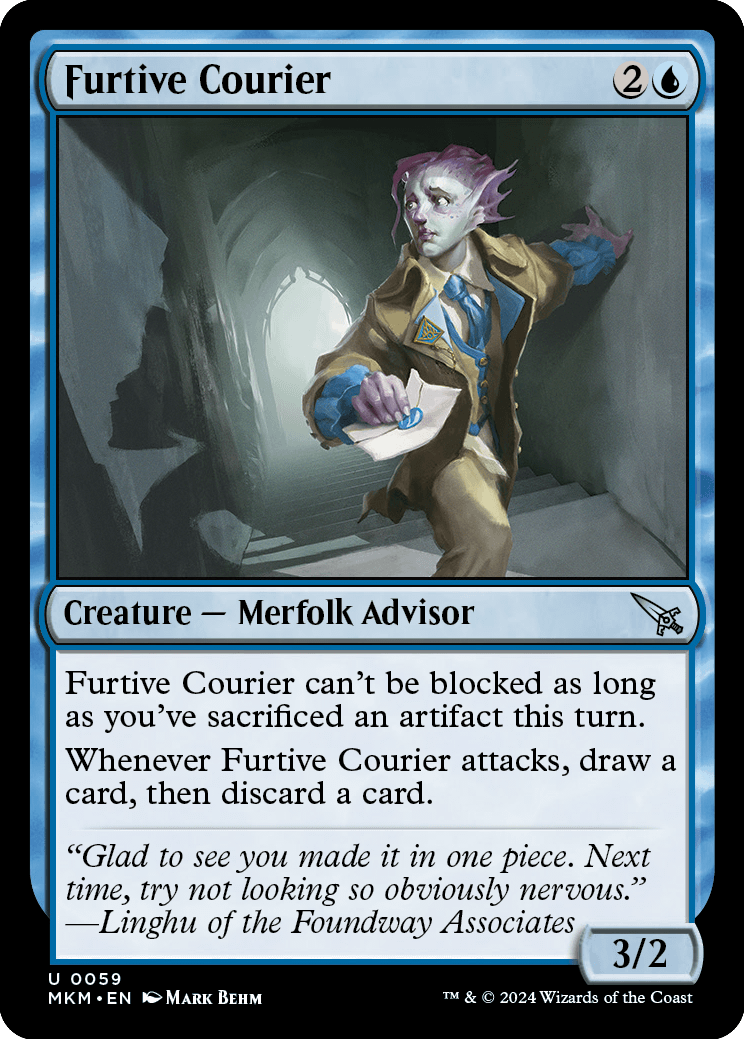
Furtive Courier
{2}{U}
Creature — Merfolk Advisor
3/2
Furtive Courier can't be blocked as long as you've sacrificed an artifact this turn.
Whenever Furtive Courier attacks, draw a card, then discard a card.
- Sacrificing an artifact after Furtive Courier has been blocked won't cause it to become unblocked.
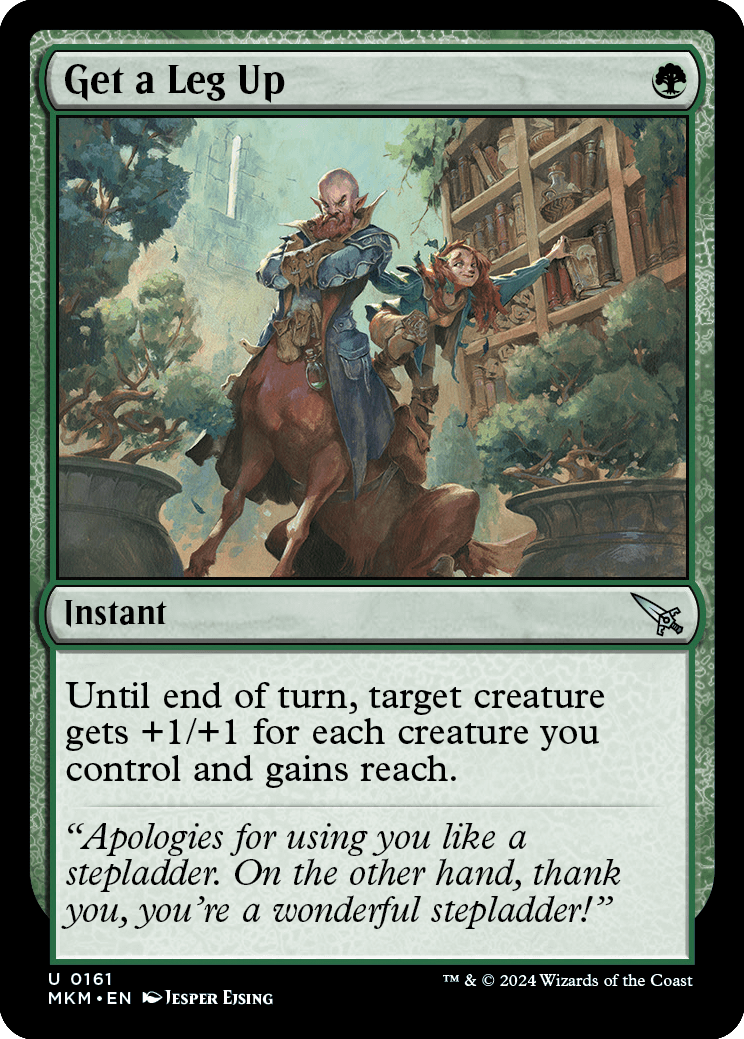
Get a Leg Up
{G}
Instant
Until end of turn, target creature gets +1/+1 for each creature you control and gains reach.
- The number of creatures you control is checked only once, as Get a Leg Up resolves. The bonus won't change if the number of creatures you control changes later in the turn.
- If you target a creature you control with Get a Leg Up, remember to count that creature.
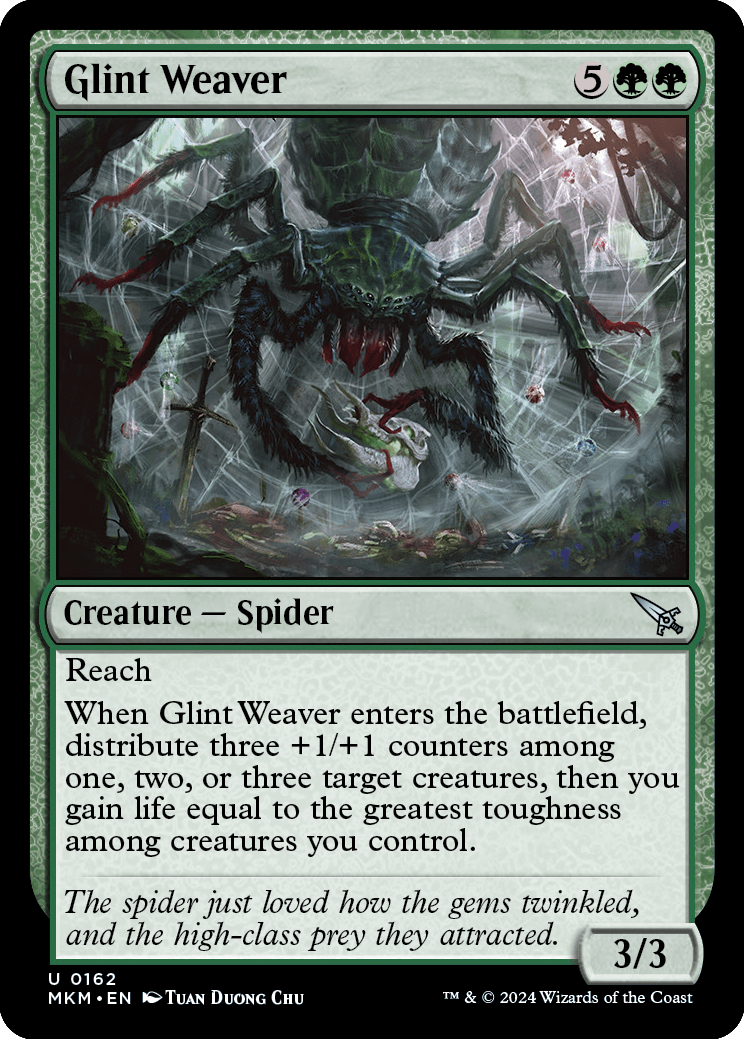
Glint Weaver
{5}{G}{G}
Creature — Spider
3/3
Reach
When Glint Weaver enters the battlefield, distribute three +1/+1 counters among one, two, or three target creatures, then you gain life equal to the greatest toughness among creatures you control.
- You choose how many targets Glint Weaver's triggered ability has and how the counters are distributed as you put the ability onto the stack. Each target must receive at least one counter.
- If some of the creatures are illegal targets as Glint Weaver's triggered ability tries to resolve, the original distribution of counters still applies and the counters that would have been put on the illegal targets are lost.
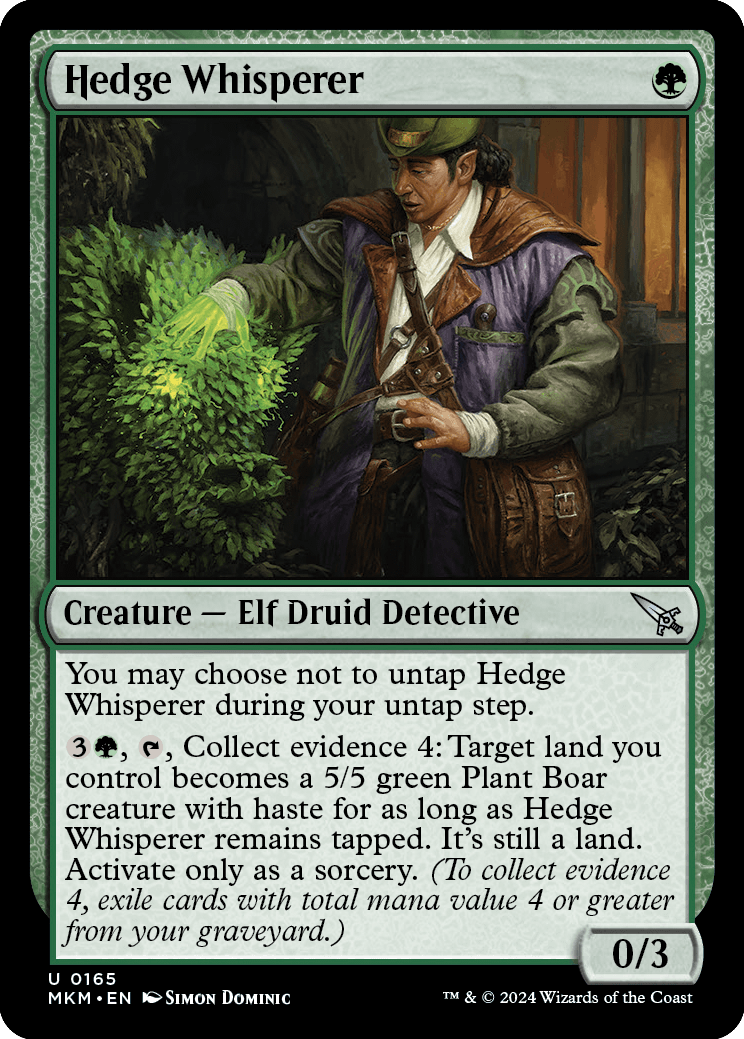
Hedge Whisperer
{G}
Creature — Elf Druid Detective
0/3
You may choose not to untap Hedge Whisperer during your untap step.
{3}{G}, {T}, Collect evidence 4: Target land you control becomes a 5/5 green Plant Boar creature with haste for as long as Hedge Whisperer remains tapped. It's still a land. Activate only as a sorcery. (To collect evidence 4, exile cards with total mana value 4 or greater from your graveyard.)
- If Hedge Whisperer leaves the battlefield before its activated ability resolves, the target land won't become a creature at all.
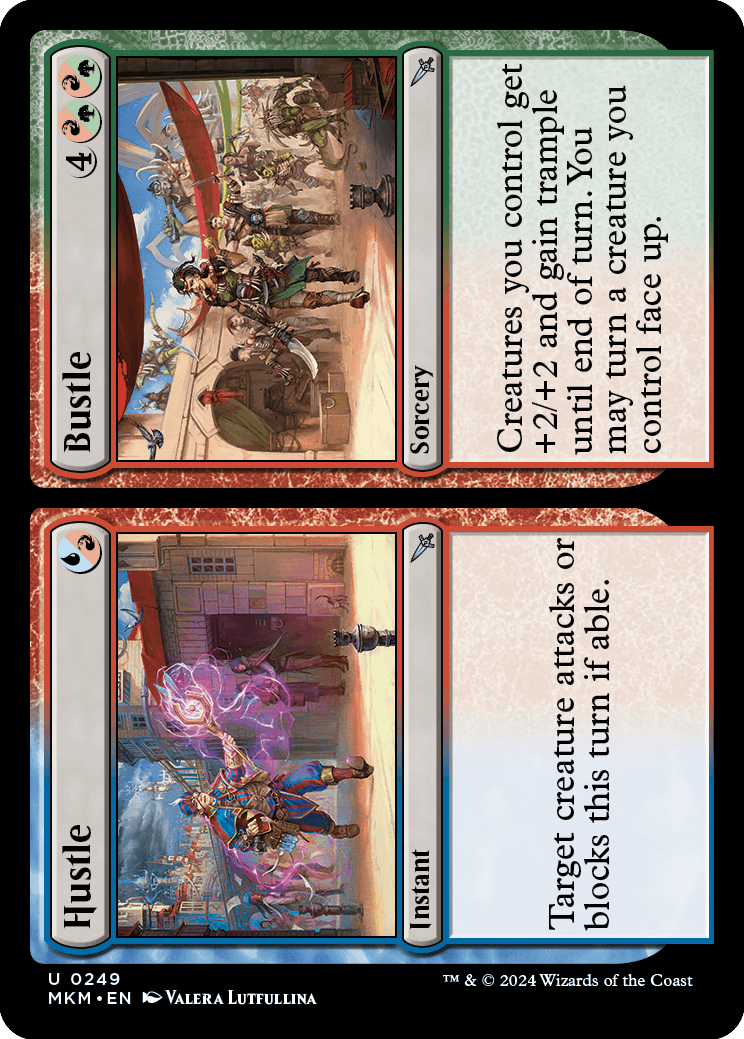
Hustle
{U/R}
Instant
Target creature attacks or blocks this turn if able.
//
Bustle
{4}{R/G}{R/G}
Sorcery
Creatures you control get +2/+2 and gain trample until end of turn. You may turn a creature you control face up.
- If the creature targeted by Hustle is tapped or is affected by a spell or ability that says it can't attack or block, then it won't attack or block this turn. If there's a cost associated with having that creature attack or block, its controller isn't forced to pay that cost, so it doesn't have to attack or block in that case either.
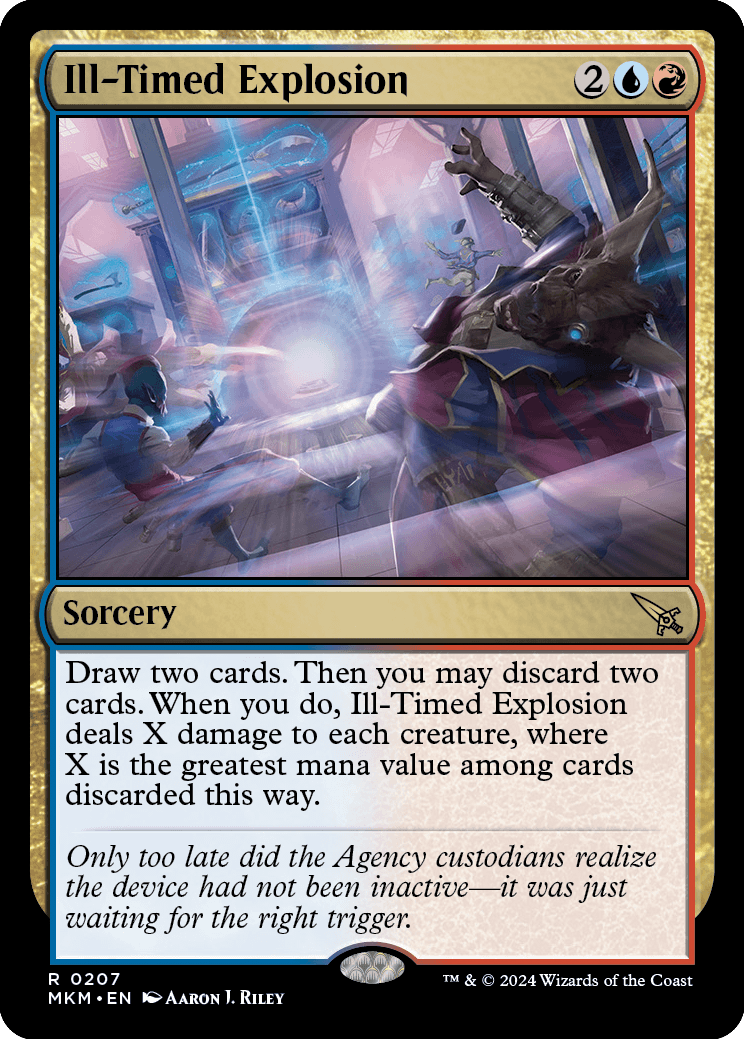
Ill-Timed Explosion
{2}{U}{R}
Sorcery
Draw two cards. Then you may discard two cards. When you do, Ill-Timed Explosion deals X damage to each creature, where X is the greatest mana value among cards discarded this way.
- If a card discarded this way has {X} in its mana cost, X is 0.
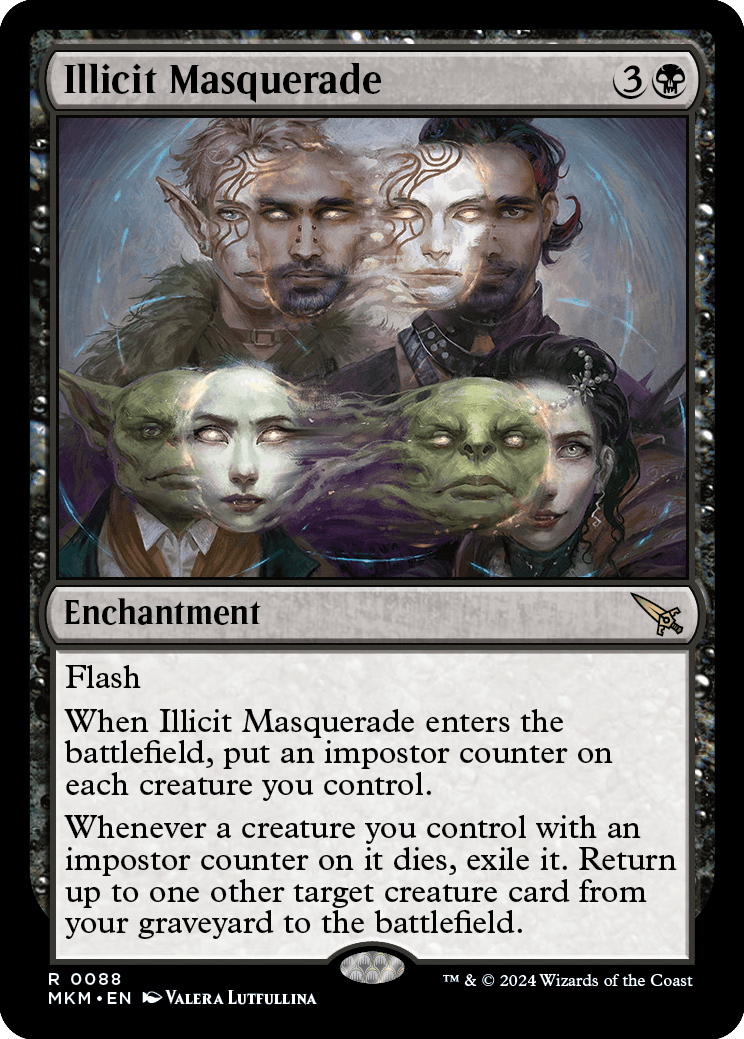
Illicit Masquerade
{3}{B}
Enchantment
Flash
When Illicit Masquerade enters the battlefield, put an impostor counter on each creature you control.
Whenever a creature you control with an impostor counter on it dies, exile it. Return up to one other target creature card from your graveyard to the battlefield.
- Illicit Masquerade's last ability affects all creatures you control with impostor counters on them, not just ones that had impostor counters put on them with Illicit Masquerade's second ability.
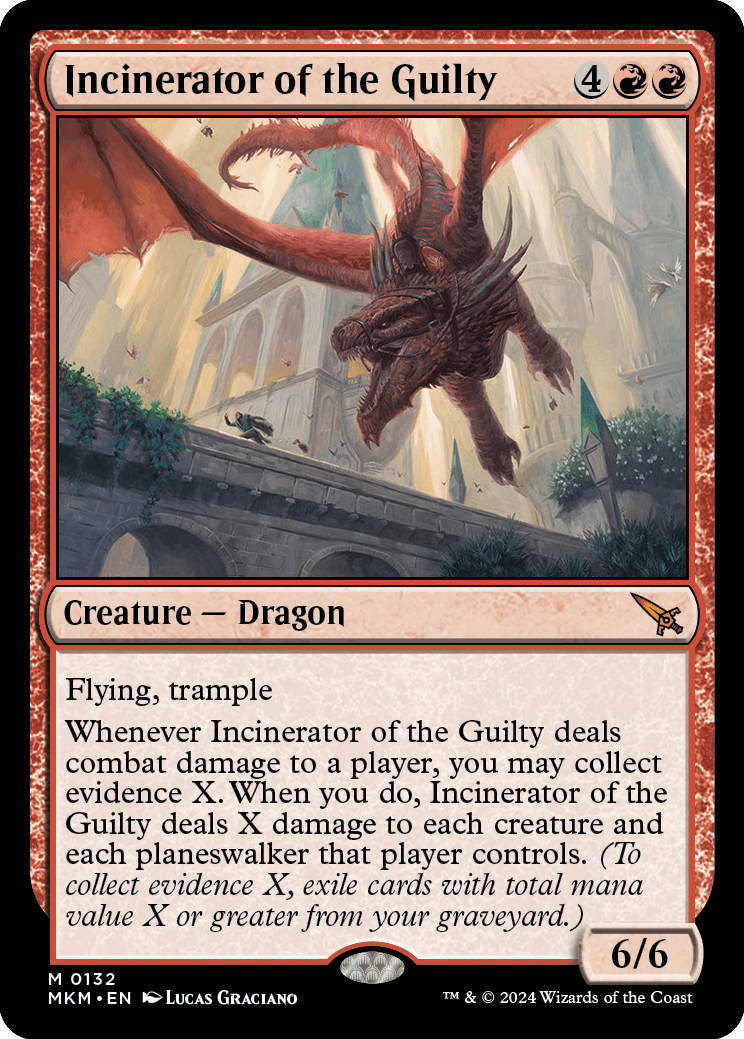
Incinerator of the Guilty
{4}{R}{R}
Creature — Dragon
6/6
Flying, trample
Whenever Incinerator of the Guilty deals combat damage to a player, you may collect evidence X. When you do, Incinerator of the Guilty deals X damage to each creature and each planeswalker that player controls. (To collect evidence X, exile cards with total mana value X or greater from your graveyard.)
- You may collect evidence 0, but you would be a lazy detective with no crispy culprits. Nevertheless, if you choose to do so, abilities that trigger "whenever you collect evidence", such as those of Surveillance Monitor and Evidence Examiner, will still trigger.
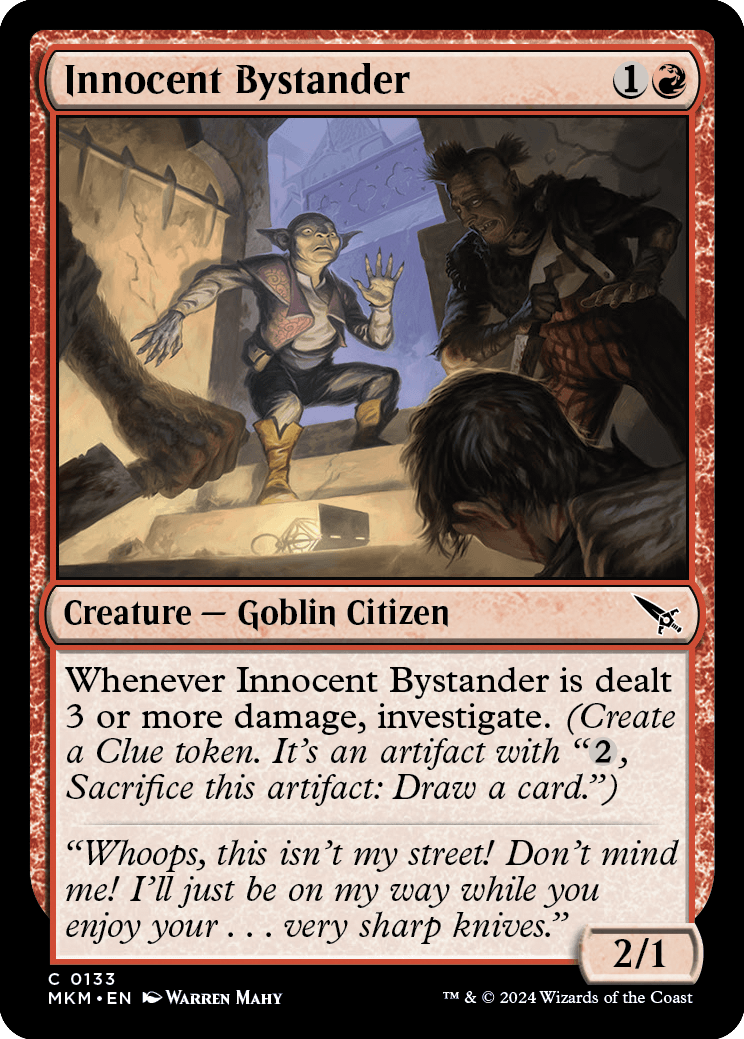
Innocent Bystander
{1}{R}
Creature — Goblin Citizen
2/1
Whenever Innocent Bystander is dealt 3 or more damage, investigate. (Create a Clue token. It's an artifact with "{2}, Sacrifice this artifact: Draw a card.")
- Innocent Bystander's ability triggers only if it's dealt 3 or more damage all at once. It doesn't trigger if damage that adds up to 3 or more is dealt to it at different times.
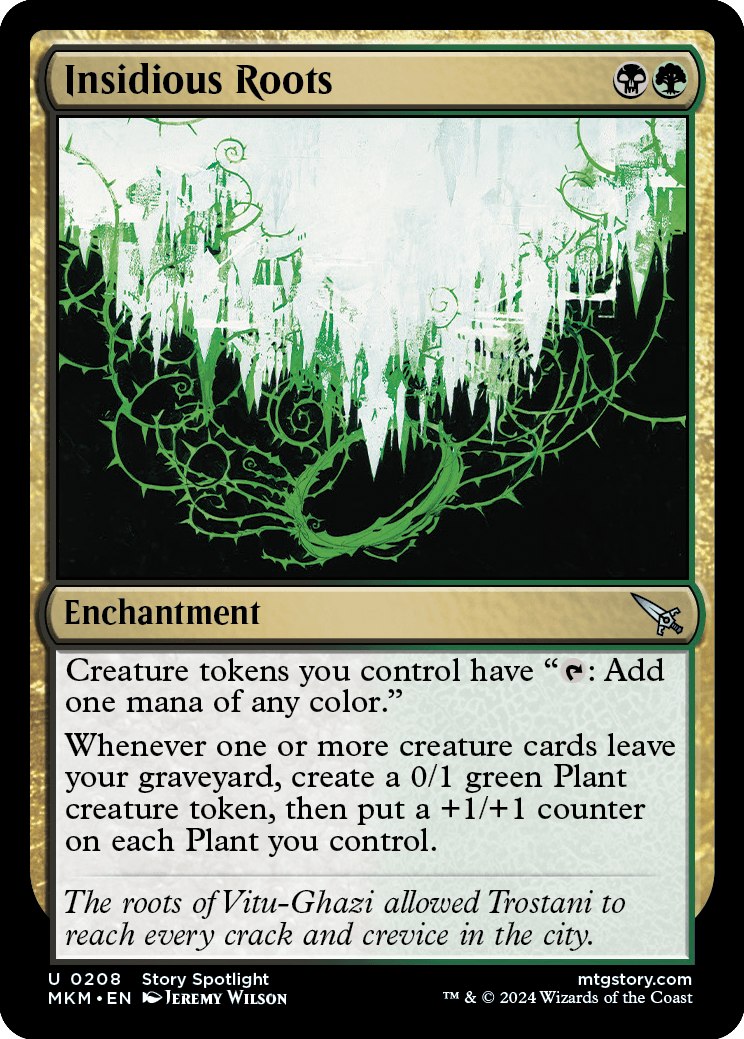
Insidious Roots
{B}{G}
Enchantment
Creature tokens you control have "{T}: Add one mana of any color."
Whenever one or more creature cards leave your graveyard, create a 0/1 green Plant creature token, then put a +1/+1 counter on each Plant you control.
- If Insidious Roots somehow becomes a creature token, it will grant itself the ability "{T}: Add one mana of any color."
- If multiple creature cards leave your graveyard at the same time, Insidious Roots's last ability will trigger only once.
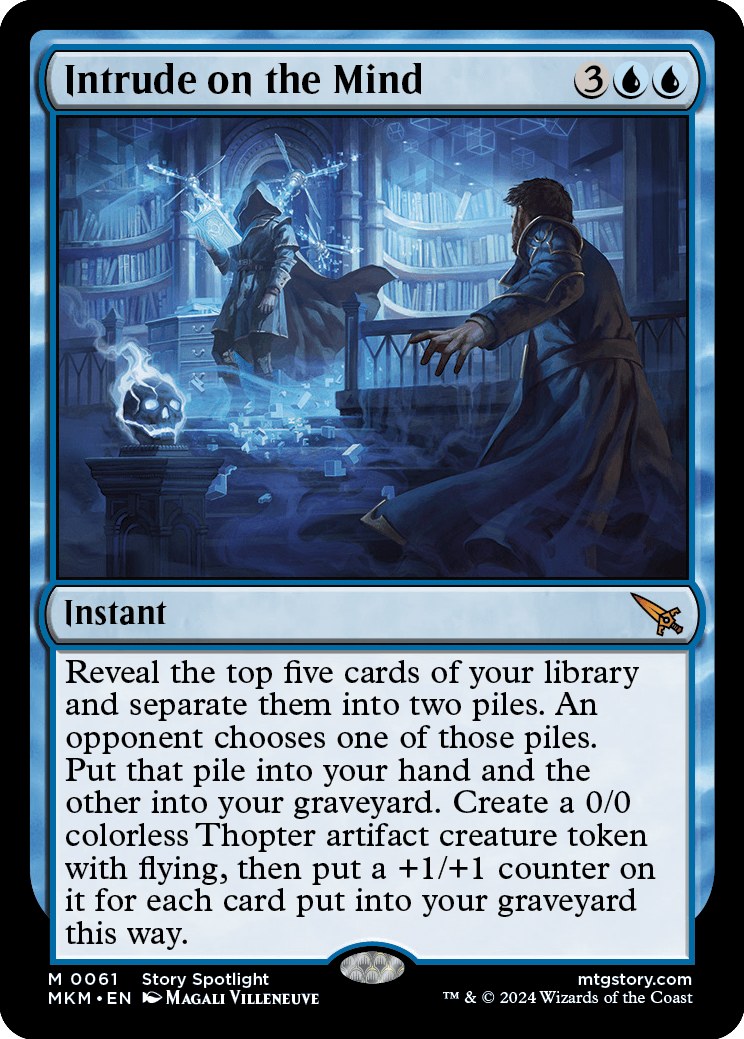
Intrude on the Mind
{3}{U}{U}
Instant
Reveal the top five cards of your library and separate them into two piles. An opponent chooses one of those piles. Put that pile into your hand and the other into your graveyard. Create a 0/0 colorless Thopter artifact creature token with flying, then put a +1/+1 counter on it for each card put into your graveyard this way.
- You decide which opponent chooses the pile while resolving Intrude on the Mind.
- You may choose to put all of the cards into one pile and leave the other pile empty. If you do, the opponent will choose whether to put the revealed cards into your hand or your graveyard.
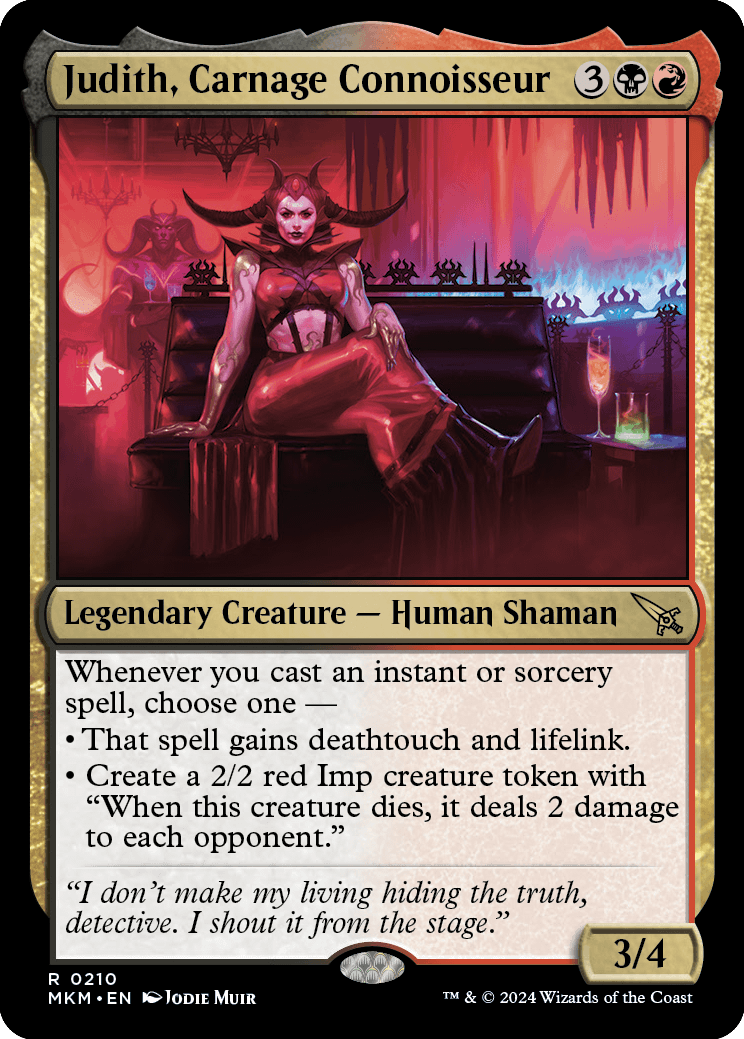
Judith, Carnage Connoisseur
{3}{B}{R}
Legendary Creature — Human Shaman
3/4
Whenever you cast an instant or sorcery spell, choose one —
• That spell gains deathtouch and lifelink.
• Create a 2/2 red Imp creature token with "When this creature dies, it deals 2 damage to each opponent."
- Judith, Carnage Connoisseur's triggered ability resolves before the spell that caused it to trigger. The ability will resolve even if that spell is countered.
- An instant or sorcery spell with deathtouch must actually deal damage to a creature for it to be destroyed. If the spell instructs another object to deal damage (for example, Hard-Hitting Question), the spell doesn't deal any damage itself and its instance of deathtouch doesn't apply. Dealing 0 damage isn't dealing damage.
- Similarly, an instant or sorcery spell with lifelink must actually deal damage in order to cause its controller to gain life. If the spell instructs another object to deal damage, its controller won't gain life when that damage is dealt.
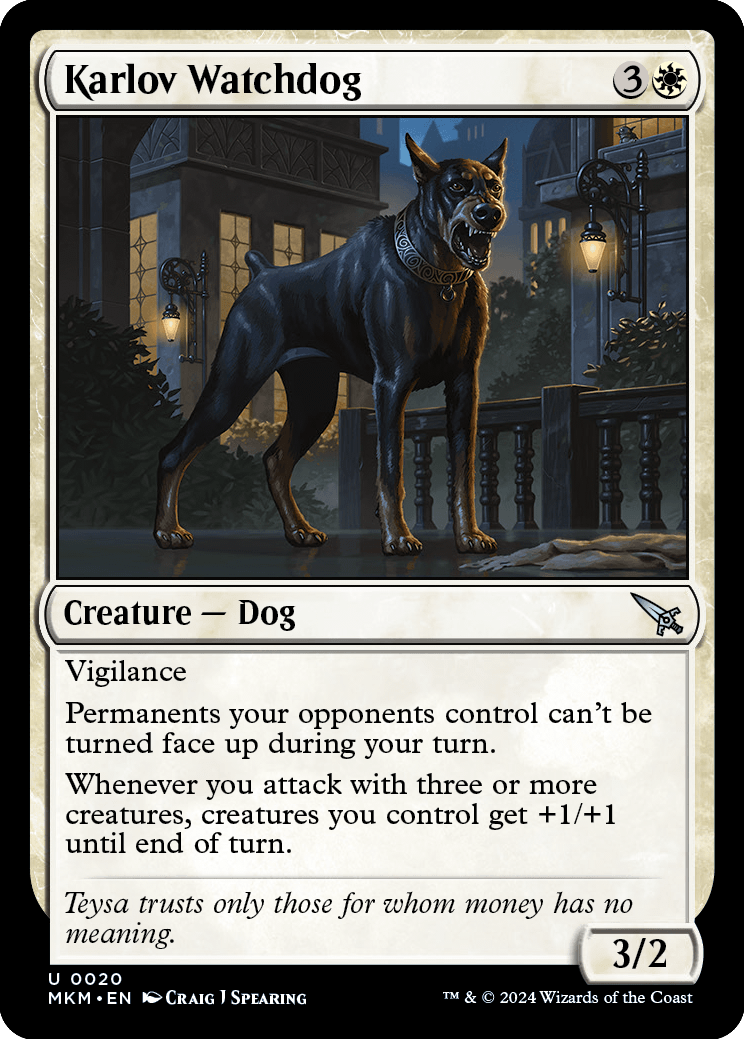
Karlov Watchdog
{3}{W}
Creature — Dog
3/2
Vigilance
Permanents your opponents control can't be turned face up during your turn.
Whenever you attack with three or more creatures, creatures you control get +1/+1 until end of turn.
- While Karlov Watchdog is on the battlefield, opponents can't attempt to turn face-down creatures face up either by paying a disguise or morph cost or by paying the mana cost of a cloaked or manifested creature.
- It doesn't matter what happens to the creatures in response. As long as you attacked with at least three creatures, creatures you control will get +1/+1 until end of turn when Karlov Watchdog's triggered ability resolves.
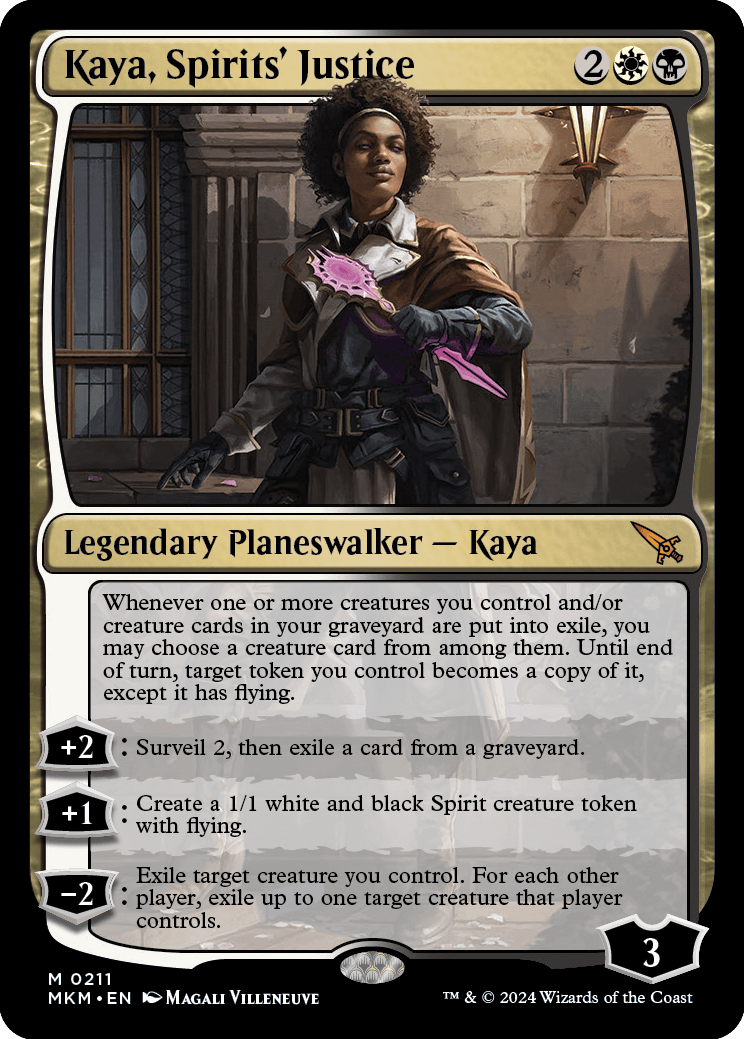
Kaya, Spirits' Justice
{2}{W}{B}
Legendary Planeswalker — Kaya
3
Whenever one or more creatures you control and/or creature cards in your graveyard are put into exile, you may choose a creature card from among them. Until end of turn, target token you control becomes a copy of it, except it has flying.
+2: Surveil 2, then exile a card from a graveyard.
+1: Create a 1/1 white and black Spirit creature token with flying.
−2: Exile target creature you control. For each other player, exile up to one target creature that player controls.
- The target token copies the printed values of the card in exile, with the noted exception. It doesn't matter if that card was a copy of something else when it was on the battlefield.
- If a creature card that was exiled is no longer in exile when Kaya, Spirits' Justice's first ability resolves (perhaps because of Pull from Eternity or a similar effect), you can't choose that creature card with that ability.
- You choose all targets for Kaya, Spirits' Justice's last ability.
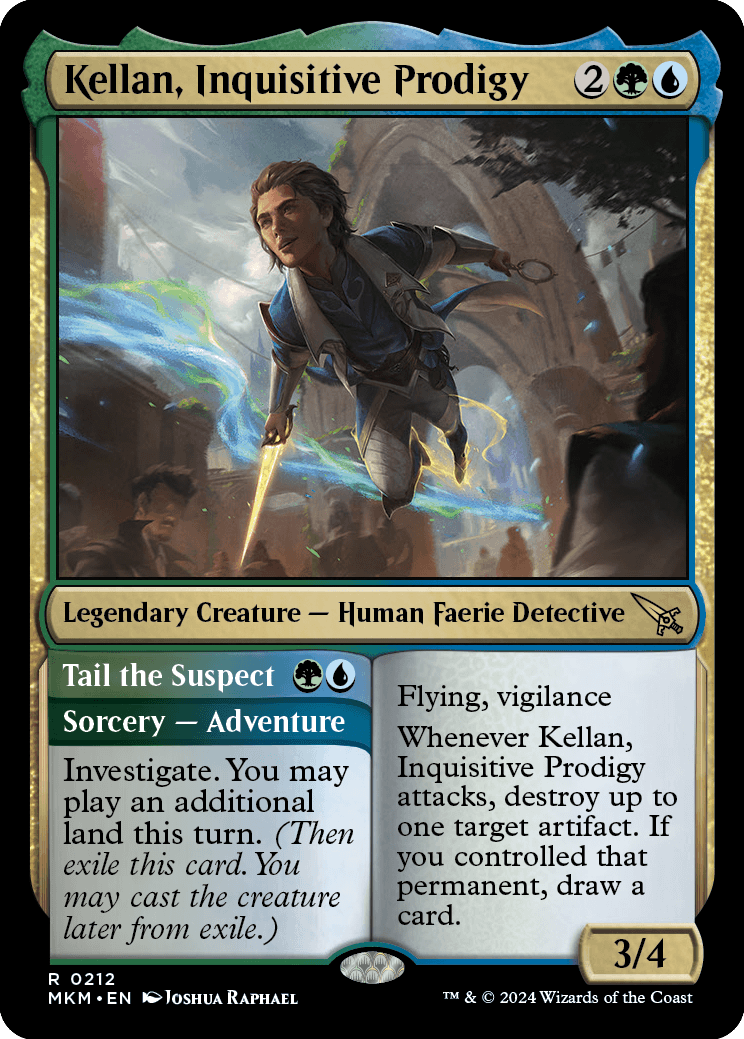
Kellan, Inquisitive Prodigy
{2}{G}{U}
Legendary Creature — Human Faerie Detective
3/4
Flying, vigilance
Whenever Kellan, Inquisitive Prodigy attacks, destroy up to one target artifact. If you controlled that permanent, draw a card.
//ADV//
Tail the Suspect
{G}{U}
Sorcery — Adventure
Investigate. You may play an additional land this turn. (Then exile this card. You may cast the creature later from exile.)
- If the artifact you target with Kellan, Inquisitive Prodigy's triggered ability isn't destroyed (perhaps because it's indestructible), you will still draw a card as long as you control the artifact.
- The effect of Tail the Suspect that allows you to play an additional land is cumulative with similar effects. For example, on a turn where you cast two Tail the Suspects, you'll be able to play three lands.
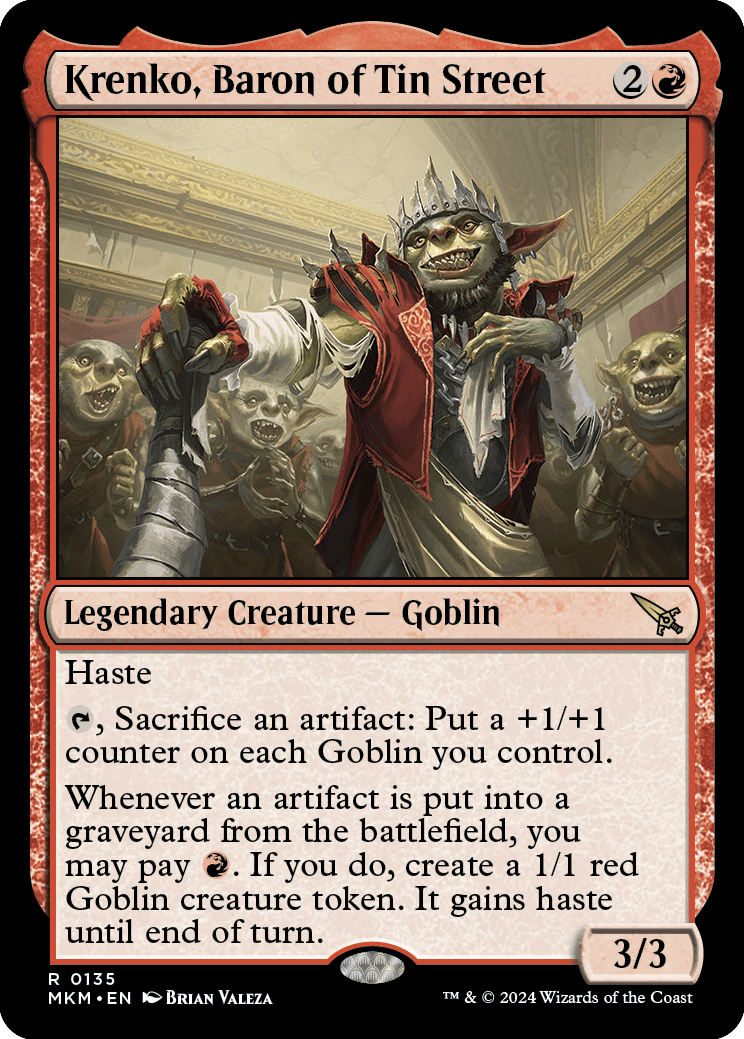
Krenko, Baron of Tin Street
{2}{R}
Legendary Creature — Goblin
3/3
Haste
{T}, Sacrifice an artifact: Put a +1/+1 counter on each Goblin you control.
Whenever an artifact is put into a graveyard from the battlefield, you may pay {R}. If you do, create a 1/1 red Goblin creature token. It gains haste until end of turn.
- If Krenko, Baron of Tin Street dies at the same time as one or more artifacts are put into a graveyard from the battlefield, its last ability will still trigger for each of those artifacts.
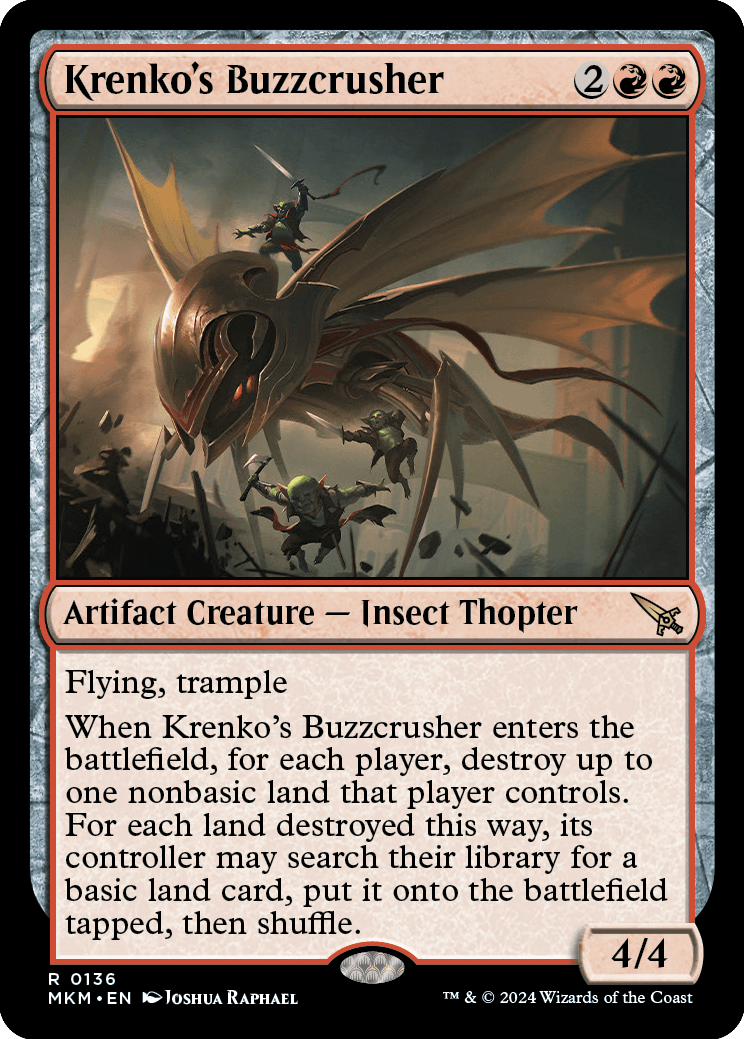
Krenko's Buzzcrusher
{2}{R}{R}
Artifact Creature — Insect Thopter
4/4
Flying, trample
When Krenko's Buzzcrusher enters the battlefield, for each player, destroy up to one nonbasic land that player controls. For each land destroyed this way, its controller may search their library for a basic land card, put it onto the battlefield tapped, then shuffle.
- None of the nonbasic lands are targets of Krenko's Buzzcrusher's triggered ability.
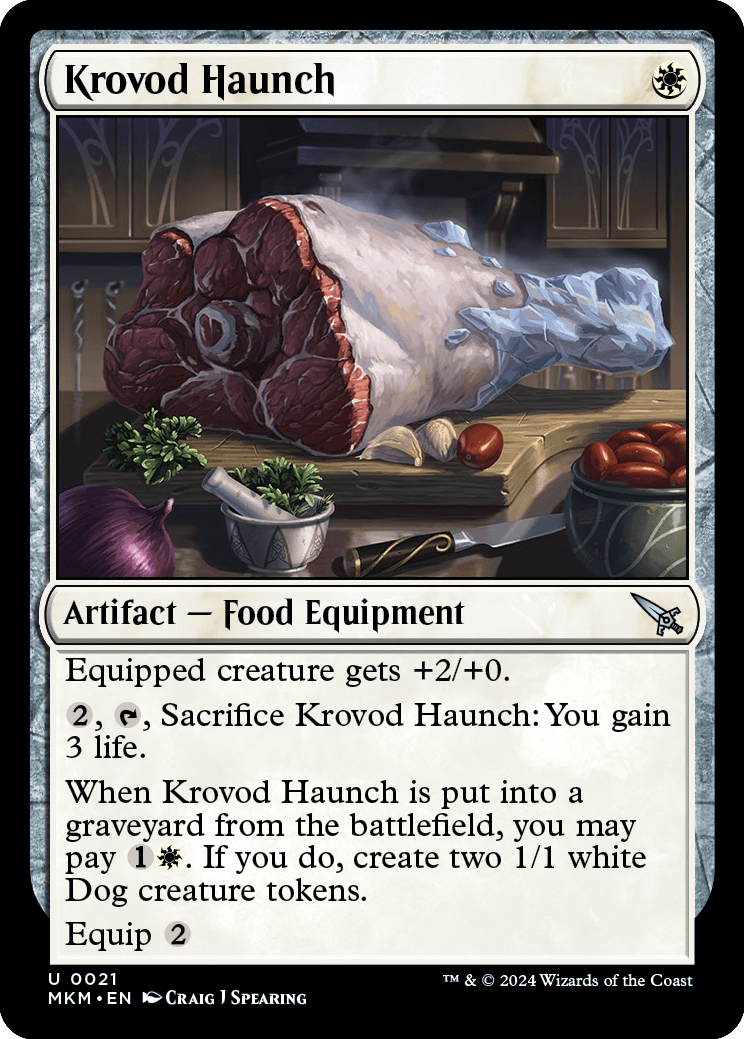
Krovod Haunch
{W}
Artifact — Food Equipment
Equipped creature gets +2/+0.
{2}, {T}, Sacrifice Krovod Haunch: You gain 3 life.
When Krovod Haunch is put into a graveyard from the battlefield, you may pay {1}{W}. If you do, create two 1/1 white Dog creature tokens.
Equip {2}
- If an effect refers to a Food, it means any Food artifact, not just a Food artifact token. For example, you can tap Krovod Haunch to pay for Apothecary White's activated ability.
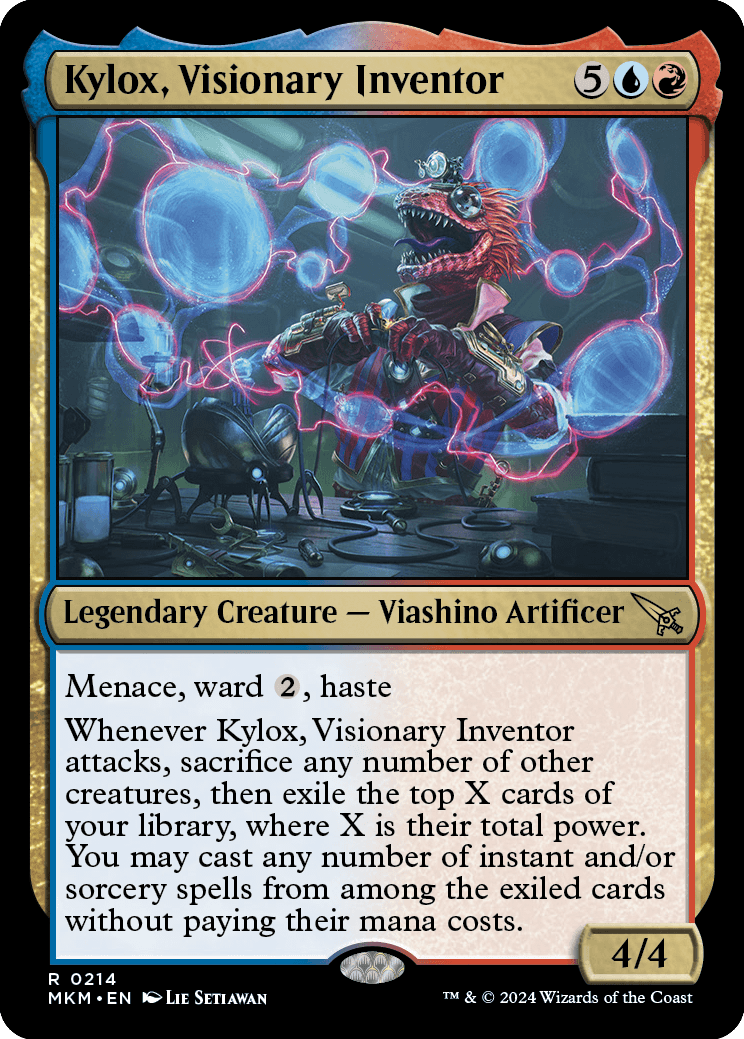
Kylox, Visionary Inventor
{5}{U}{R}
Legendary Creature — Viashino Artificer
4/4
Menace, ward {2}, haste
Whenever Kylox, Visionary Inventor attacks, sacrifice any number of other creatures, then exile the top X cards of your library, where X is their total power. You may cast any number of instant and/or sorcery spells from among the exiled cards without paying their mana costs.
- Use the power of the sacrificed creatures as they last existed on the battlefield to determine the value of X.
- You choose which spells to cast (if any) as Kylox, Visionary Inventor's last ability resolves. If you choose to cast any spells, you do so as part of the resolution of that ability. You can't wait to cast them later in the turn. Timing restrictions based on the cards' types are ignored.
- If you cast a spell "without paying its mana cost", you can't choose to cast it for any alternative costs. You can, however, pay additional costs, such as kicker costs. If the card has any mandatory additional costs, those must be paid to cast the spell.
- If the spell you cast has {X} in its mana cost, you must choose 0 as the value of X when casting it without paying its mana cost.
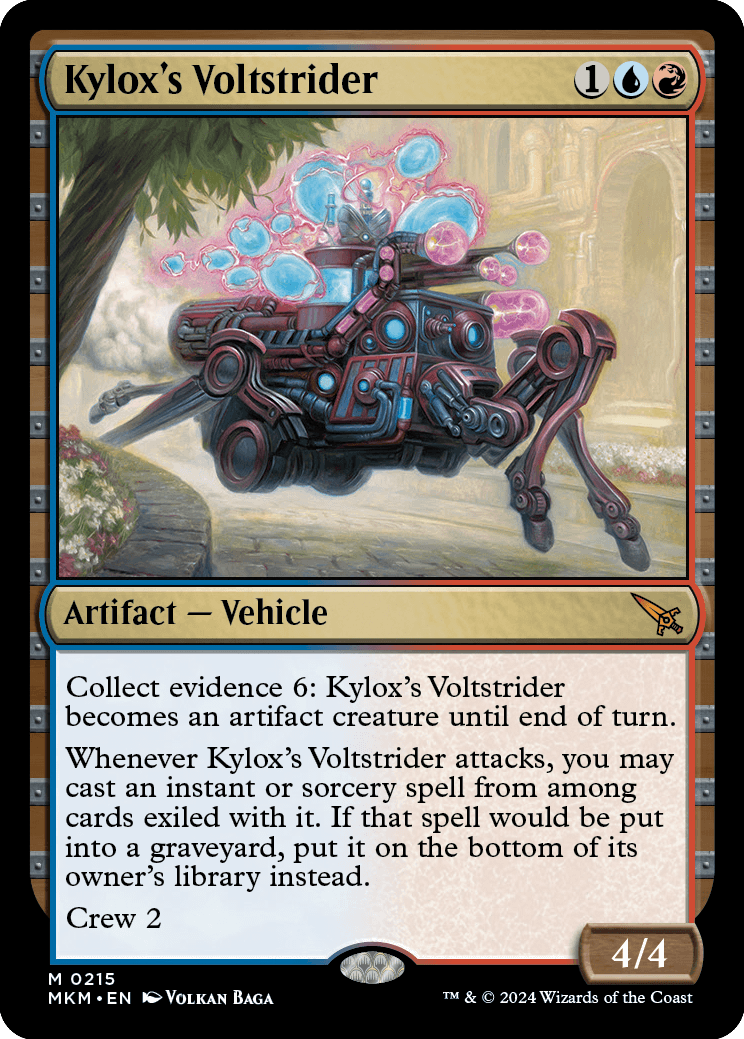
Kylox's Voltstrider
{1}{U}{R}
Artifact — Vehicle
4/4
Collect evidence 6: Kylox's Voltstrider becomes an artifact creature until end of turn.
Whenever Kylox's Voltstrider attacks, you may cast an instant or sorcery spell from among cards exiled with it. If that spell would be put into a graveyard, put it on the bottom of its owner's library instead.
Crew 2
- You choose whether or not to cast a spell from among the exiled cards as Kylox's Voltstrider's triggered ability resolves. If you do, you do so as part of the resolution of that ability. You can't wait to cast it later in the turn. Timing restrictions based on the card's type are ignored.
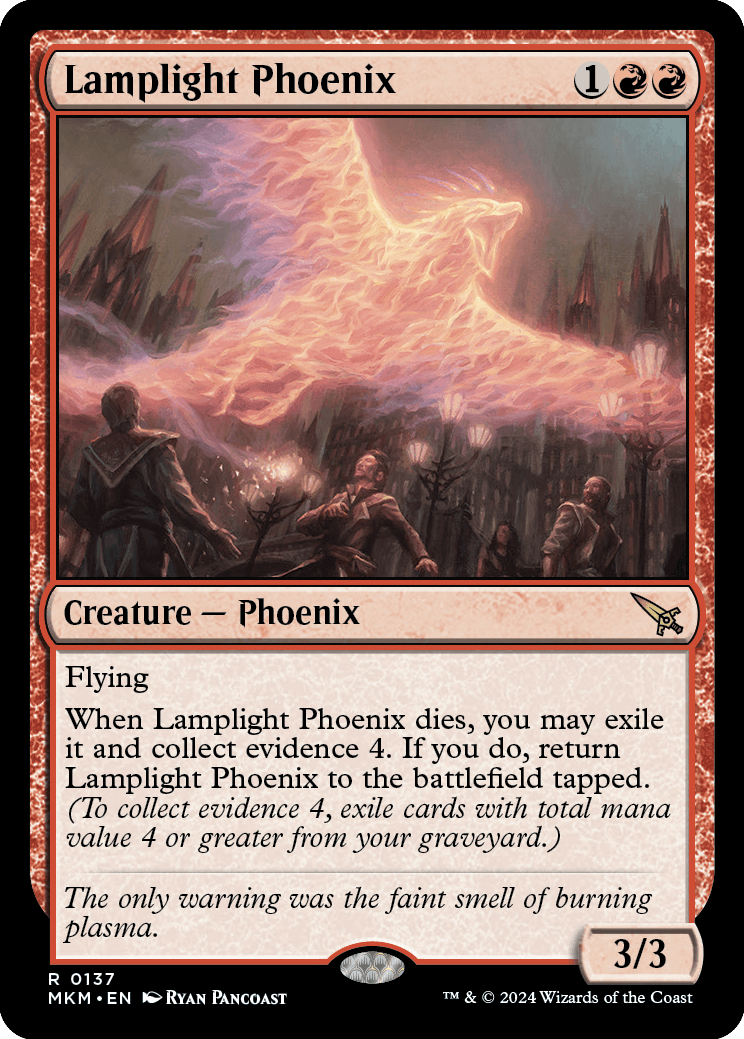
Lamplight Phoenix
{1}{R}{R}
Creature — Phoenix
3/3
Flying
When Lamplight Phoenix dies, you may exile it and collect evidence 4. If you do, return Lamplight Phoenix to the battlefield tapped. (To collect evidence 4, exile cards with total mana value 4 or greater from your graveyard.)
- You can't exile Lamplight Phoenix from your graveyard to pay the collect evidence cost of its triggered ability.
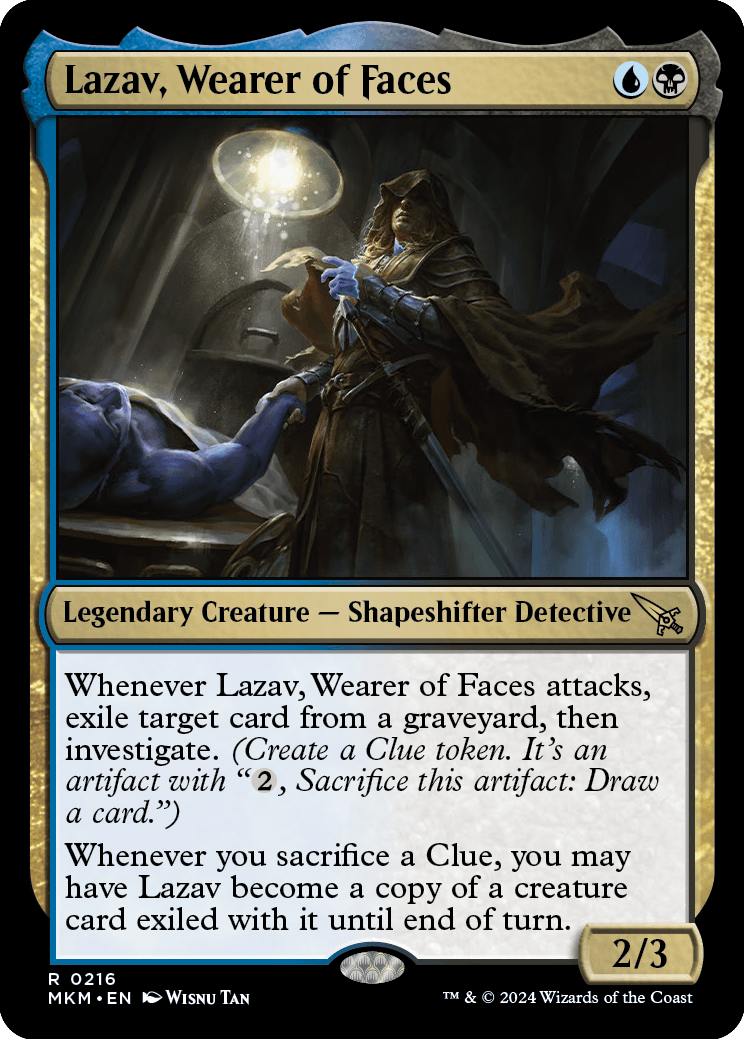
Lazav, Wearer of Faces
{U}{B}
Legendary Creature — Shapeshifter Detective
2/3
Whenever Lazav, Wearer of Faces attacks, exile target card from a graveyard, then investigate. (Create a Clue token. It's an artifact with "{2}, Sacrifice this artifact: Draw a card.")
Whenever you sacrifice a Clue, you may have Lazav become a copy of a creature card exiled with it until end of turn.
- If the target of Lazav, Wearer of Faces's first ability is illegal as the ability tries to resolve, it won't resolve and none of its effects will happen. You won't investigate.
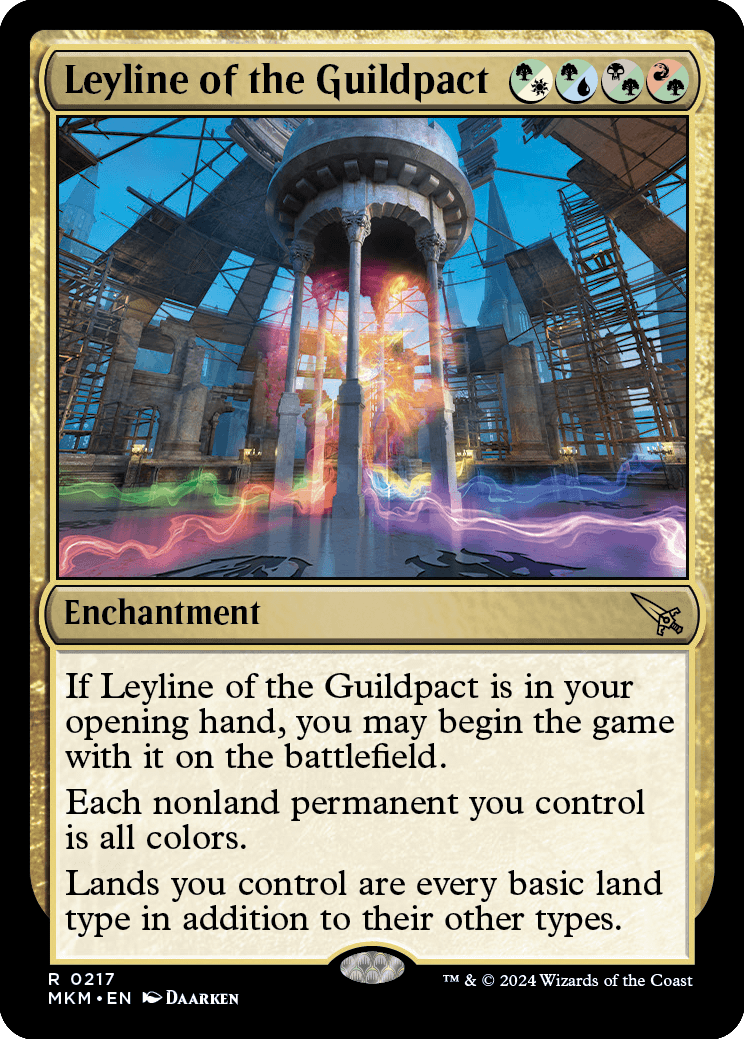
Leyline of the Guildpact
{G/W}{G/U}{G/B}{G/R}
Enchantment
If Leyline of the Guildpact is in your opening hand, you may begin the game with it on the battlefield.
Each nonland permanent you control is all colors.
Lands you control are every basic land type in addition to their other types.
- A player's "opening hand" is the hand of cards the player has after all players have taken mulligans. If players have any cards in hand that allow actions to be taken with them from a player's opening hand, the starting player takes all such actions first in any order, followed by each other player in turn order. Then the first turn begins.
- Each land you control will have the land types Plains, Island, Swamp, Mountain, and Forest. They'll also have the mana ability of each basic land type (for example, Forests have "{T}: Add {G}."). They'll still have their other subtypes and abilities.
- Giving a land additional basic land types doesn't change its name or whether it's legendary or basic.
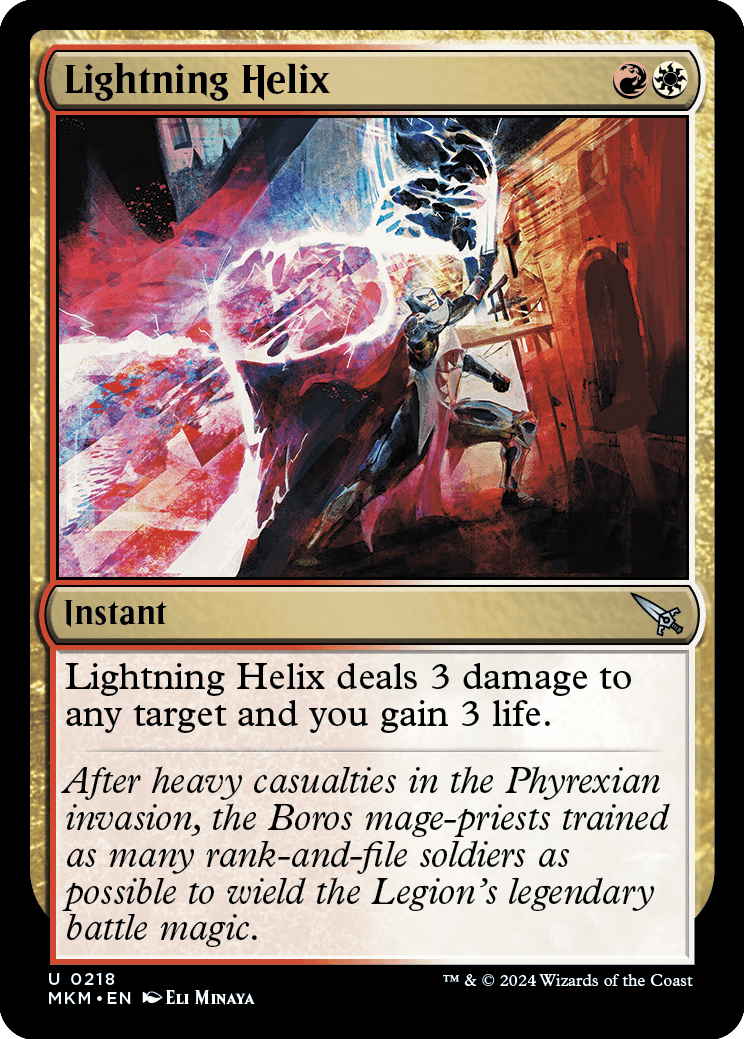
Lightning Helix
{R}{W}
Instant
Lightning Helix deals 3 damage to any target and you gain 3 life.
- If the chosen target is illegal when Lightning Helix tries to resolve, it won't resolve and none of its effects will happen. You won't gain 3 life.
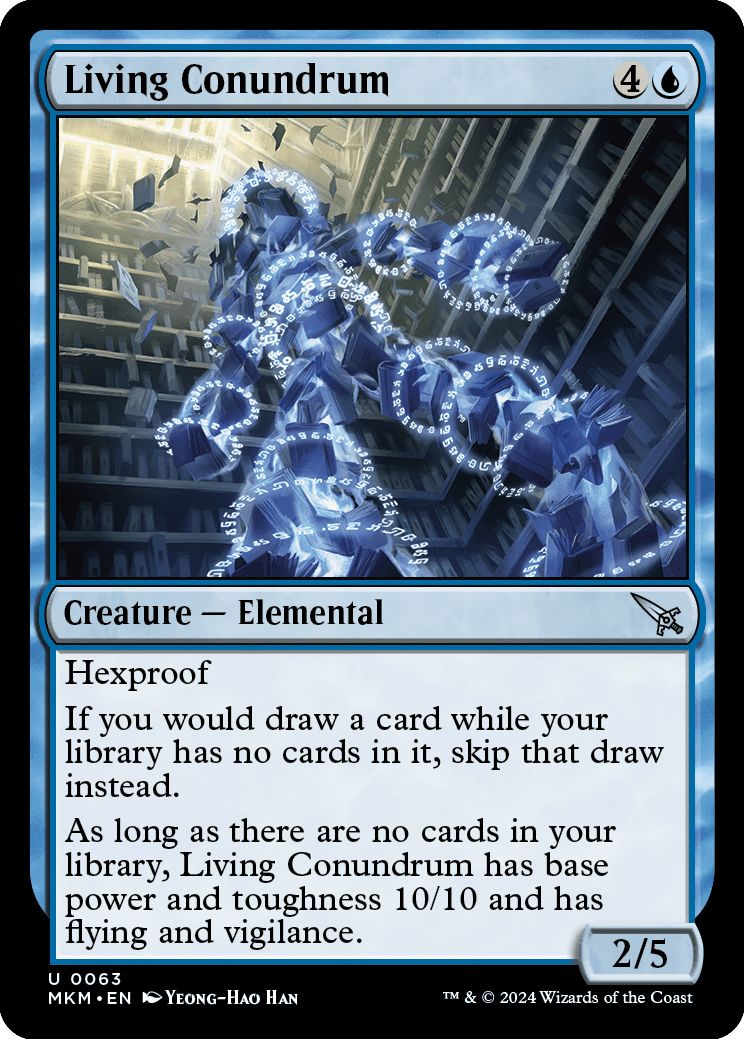
Living Conundrum
{4}{U}
Creature — Elemental
2/5
Hexproof
If you would draw a card while your library has no cards in it, skip that draw instead.
As long as there are no cards in your library, Living Conundrum has base power and toughness 10/10 and has flying and vigilance.
- If you're instructed to draw more than one card and you have fewer cards in your library, you draw each card in your library, then skip the remaining draws.
- If two or more replacement effects would apply to a card-drawing event, the player drawing the card chooses the order in which to apply them.
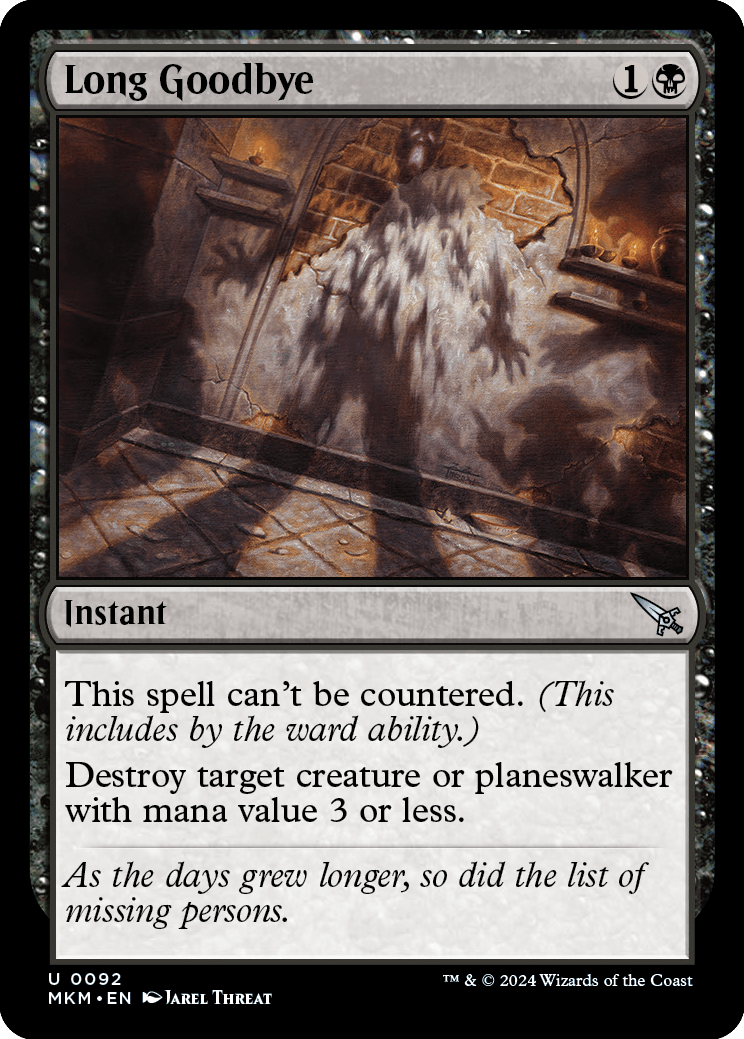
Long Goodbye
{1}{B}
Instant
This spell can't be countered. (This includes by the ward ability.)
Destroy target creature or planeswalker with mana value 3 or less.
- If you target a creature or planeswalker with ward, you may still pay the ward cost, but Long Goodbye won't be countered even if you don't.
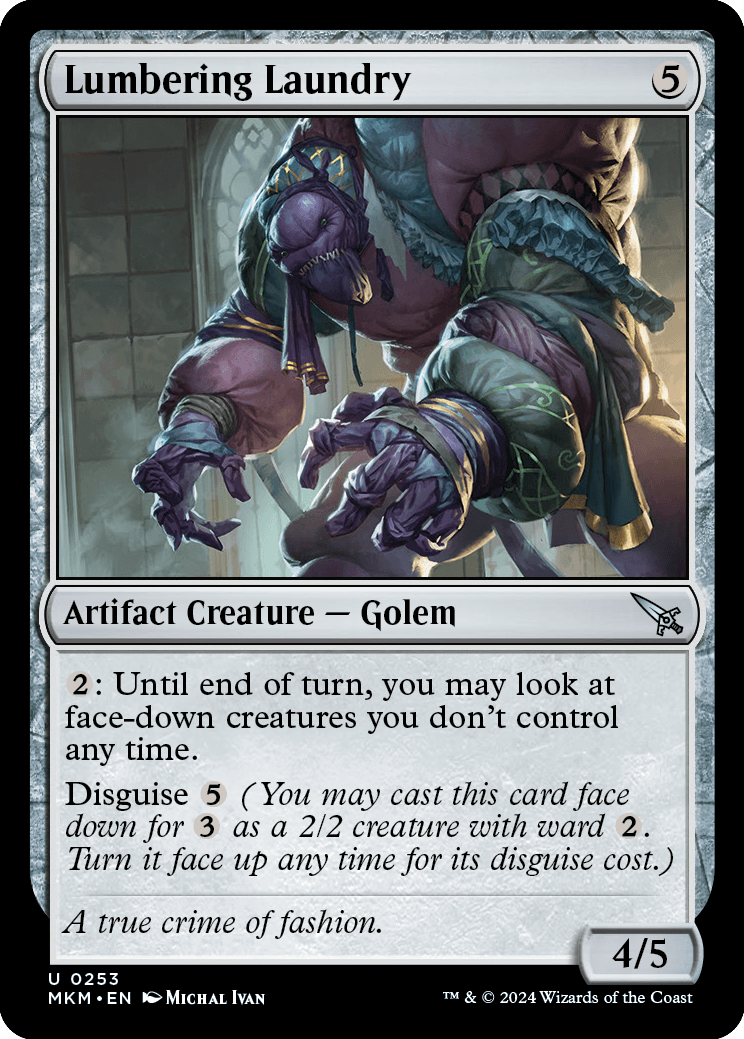
Lumbering Laundry
{5}
Artifact Creature — Golem
4/5
{2}: Until end of turn, you may look at face-down creatures you don't control any time.
Disguise {5} (You may cast this card face down for {3} as a 2/2 creature with ward {2}. Turn it face up any time for its disguise cost.)
- Once it has resolved, Lumbering Laundry's first ability lets you look at face-down creatures whenever you want until end of turn, even if you don't have priority. This action doesn't use the stack. Knowing what those cards are becomes part of the information you have access to, just like you can look at the cards in your hand. Once the turn ends, however, you can no longer look at those creatures.
- Lumbering Laundry's first ability doesn't let you look at face-down spells you don't control on the stack.
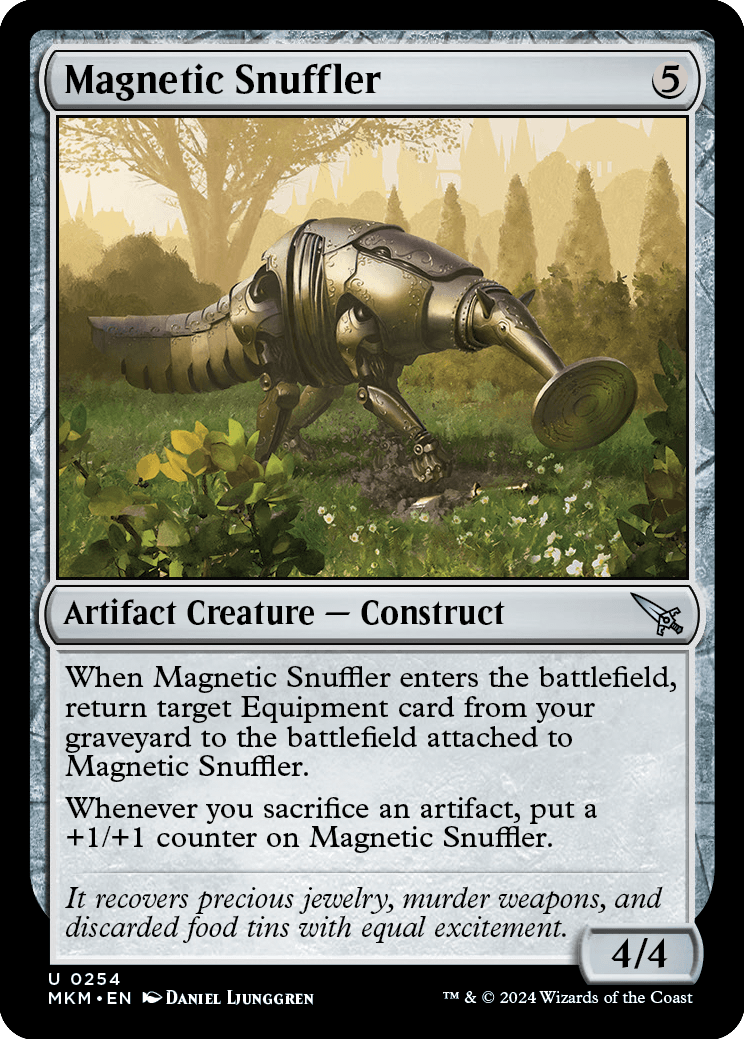
Magnetic Snuffler
{5}
Artifact Creature — Construct
4/4
When Magnetic Snuffler enters the battlefield, return target Equipment card from your graveyard to the battlefield attached to Magnetic Snuffler.
Whenever you sacrifice an artifact, put a +1/+1 counter on Magnetic Snuffler.
- You may target an Equipment card that can't legally be attached to Magnetic Snuffler with its first ability. If you do, it will enter the battlefield unattached.
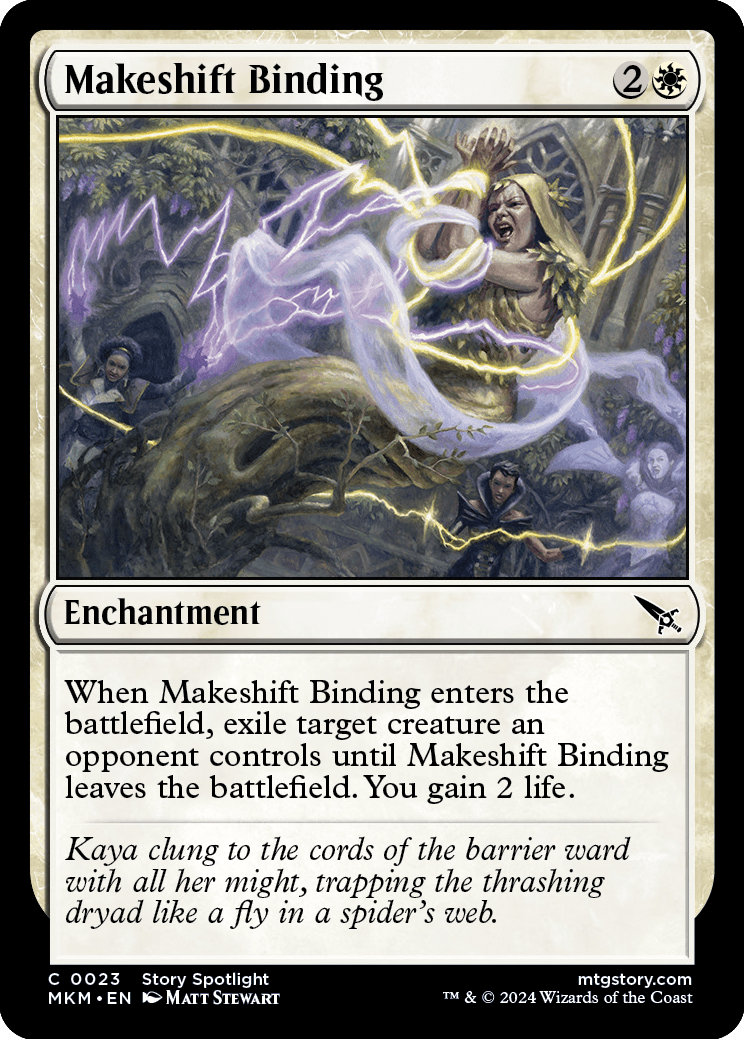
Makeshift Binding
{2}{W}
Enchantment
When Makeshift Binding enters the battlefield, exile target creature an opponent controls until Makeshift Binding leaves the battlefield. You gain 2 life.
- If Makeshift Binding leaves the battlefield before its triggered ability resolves, the target creature won't be exiled, but you'll still gain 2 life.
- If the target creature is an illegal target as Makeshift Binding's ability tries to resolve, it won't resolve and none of its effects will happen. You won't gain life.
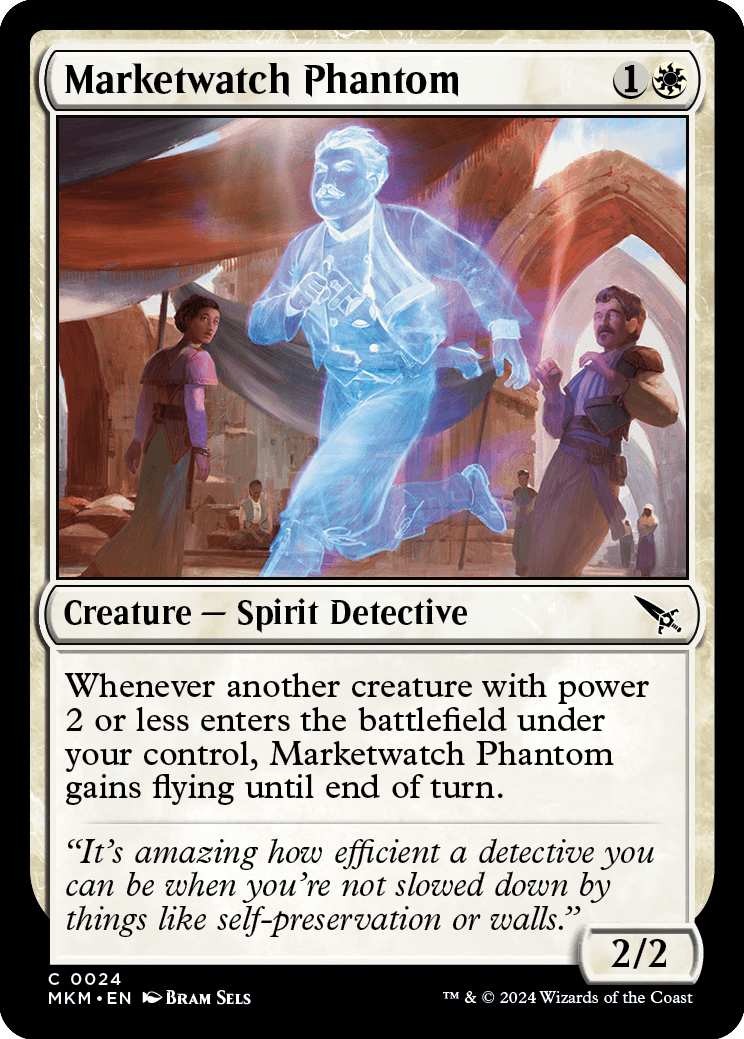
Marketwatch Phantom
{1}{W}
Creature — Spirit Detective
2/2
Whenever another creature with power 2 or less enters the battlefield under your control, Marketwatch Phantom gains flying until end of turn.
- Marketwatch Phantom's ability checks the power of a creature only at the moment it enters the battlefield. If it enters with counters, those counters are included. If that creature's power is 2 or less when it enters the battlefield but becomes greater than 2 after the ability triggers, Marketwatch Phantom will still gain flying until end of turn.
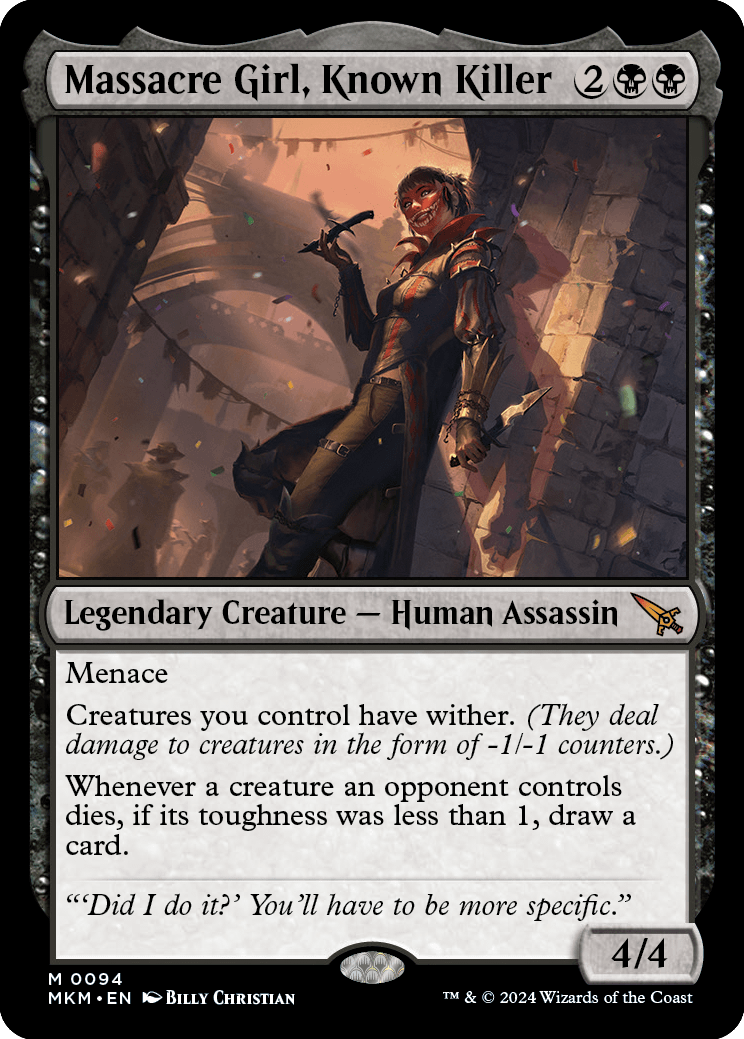
Massacre Girl, Known Killer
{2}{B}{B}
Legendary Creature — Human Assassin
4/4
Menace
Creatures you control have wither. (They deal damage to creatures in the form of -1/-1 counters.)
Whenever a creature an opponent controls dies, if its toughness was less than 1, draw a card.
- Wither applies to any damage dealt to creatures by creatures you control. This includes combat damage as well as anything that causes creatures you control to deal noncombat damage, such as Incinerator of the Guilty's reflexive triggered ability or the effect of Hard-Hitting Question.
- Use the toughness of the creature as it last existed on the battlefield to determine whether or not Massacre Girl's ability triggers.
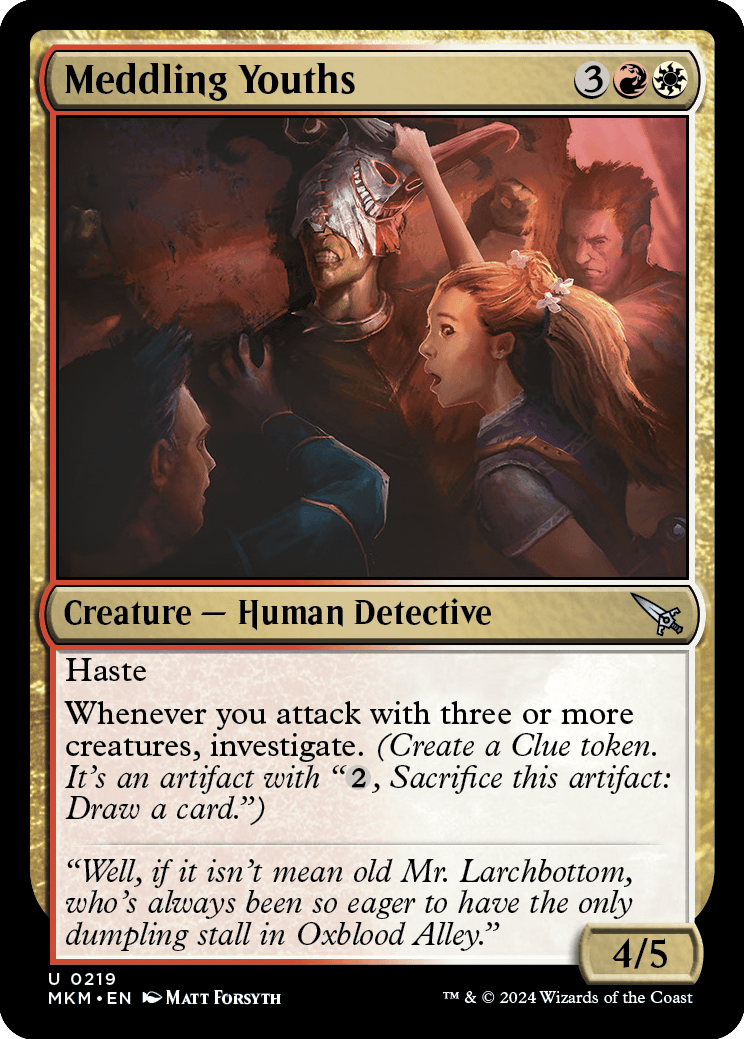
Meddling Youths
{3}{R}{W}
Creature — Human Detective
4/5
Haste
Whenever you attack with three or more creatures, investigate. (Create a Clue token. It's an artifact with "{2}, Sacrifice this artifact: Draw a card.")
- It doesn't matter what happens to the creatures in response. As long as you attacked with at least three creatures, you'll investigate when Meddling Youths's triggered ability resolves.
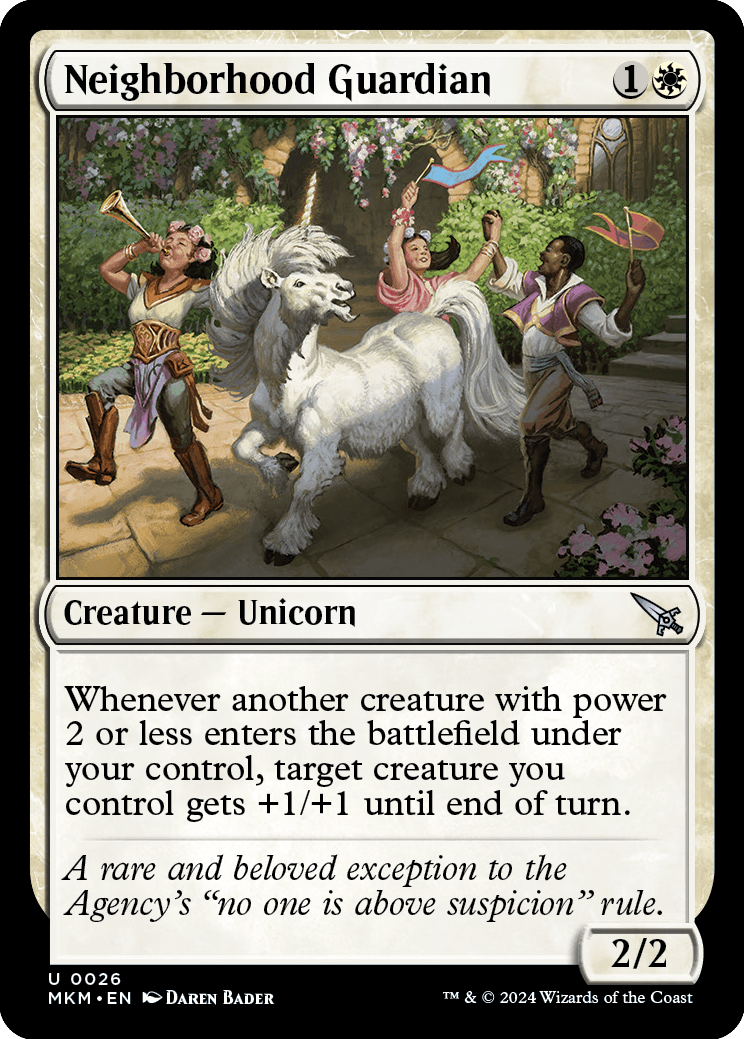
Neighborhood Guardian
{1}{W}
Creature — Unicorn
2/2
Whenever another creature with power 2 or less enters the battlefield under your control, target creature you control gets +1/+1 until end of turn.
- Neighborhood Guardian's ability checks the power of a creature only at the moment it enters the battlefield. If it enters with counters, those counters are included. If that creature's power is 2 or less when it enters the battlefield but becomes greater than 2 after the ability triggers, the target creature will still get +1/+1 until end of turn.
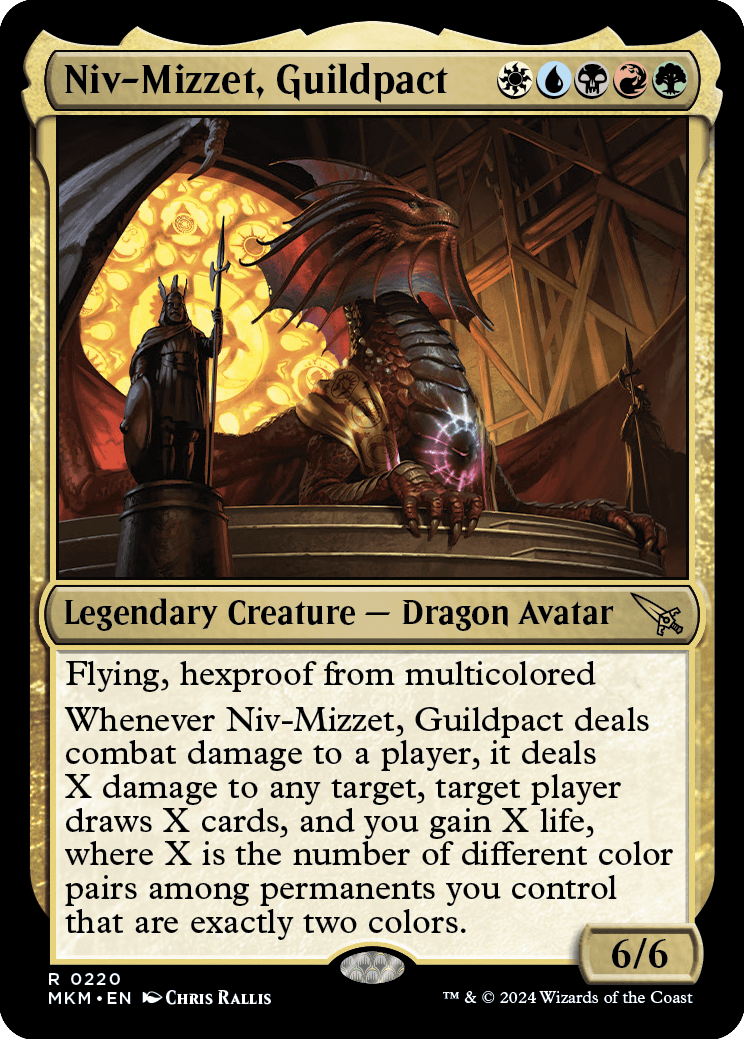
Niv-Mizzet, Guildpact
{W}{U}{B}{R}{G}
Legendary Creature — Dragon Avatar
6/6
Flying, hexproof from multicolored
Whenever Niv-Mizzet, Guildpact deals combat damage to a player, it deals X damage to any target, target player draws X cards, and you gain X life, where X is the number of different color pairs among permanents you control that are exactly two colors.
- A "color pair" is exactly two colors. There are ten color pairs in Magic: white-blue, white-black, blue-black, blue-red, black-red, black-green, red-green, red-white, green-white, and green-blue.
- The value of X is checked only once, as Niv-Mizzet, Guildpact's triggered ability resolves.
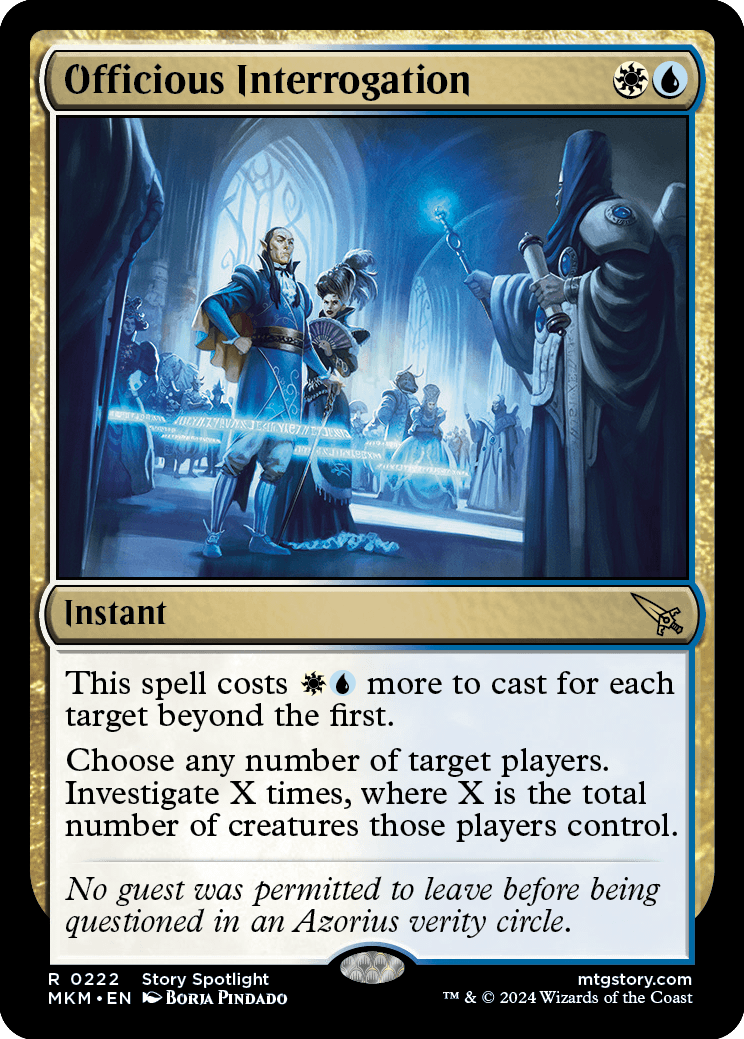
Officious Interrogation
{W}{U}
Instant
This spell costs {W}{U} more to cast for each target beyond the first.
Choose any number of target players. Investigate X times, where X is the total number of creatures those players control.
- Any target players that are no longer legal targets by the time Officious Interrogation resolves won't have their creatures counted when determining how many tokens you create.
- You choose how many targets Officious Interrogation has and what those targets are as you cast it. You can't choose the same target more than once. It's legal to cast Officious Interrogation with no targets, although this particular option should be placed under some serious scrutiny.
- Officious Interrogation's mana value doesn't change no matter how many targets it has.
- If this spell is copied and the effect that copies the spell allows a player to choose new targets for the copy, the number of targets can't be changed. The player may change any number of the targets, including all of them or none of them. If, for one of the targets, the player can't choose a new legal target, then it remains unchanged (even if the current target is illegal).
- If a spell or ability allows you to cast Officious Interrogation without paying its mana cost, you must still pay the additional cost for any targets beyond the first.
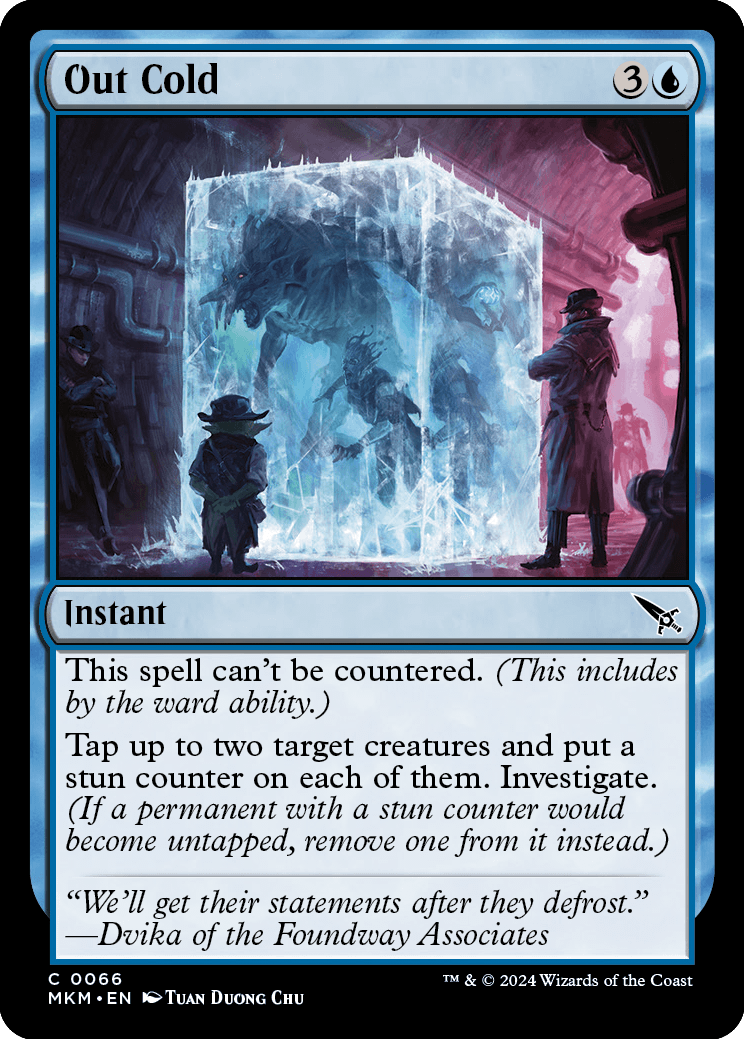
Out Cold
{3}{U}
Instant
This spell can't be countered. (This includes by the ward ability.)
Tap up to two target creatures and put a stun counter on each of them. Investigate. (If a permanent with a stun counter would become untapped, remove one from it instead.)
- If you target a creature with ward, you may still pay the ward cost, but Out Cold won't be countered even if you don't.
- You don't have to choose any targets for Out Cold. However, if you do, and all of those creatures are illegal targets at the time Out Cold tries to resolve, it won't resolve and none of its effects will happen. You won't investigate.
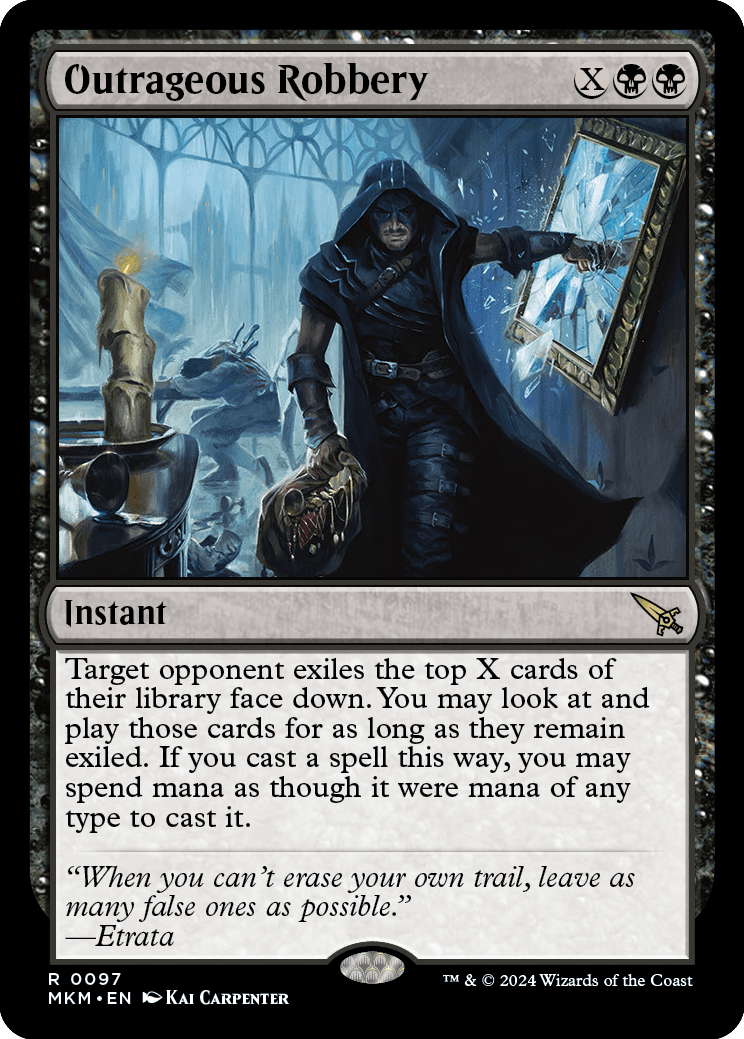
Outrageous Robbery
{X}{B}{B}
Instant
Target opponent exiles the top X cards of their library face down. You may look at and play those cards for as long as they remain exiled. If you cast a spell this way, you may spend mana as though it were mana of any type to cast it.
- You pay all costs and follow all normal timing rules for cards played this way. For example, if one of the exiled cards is a land card, you may play it only during your main phase while the stack is empty.
- If you leave the game, the exiled cards remain exiled face down indefinitely. No player may look at them.

Person of Interest
{3}{R}
Creature — Human Rogue
2/2
When Person of Interest enters the battlefield, suspect it. Create a 2/2 white and blue Detective creature token. (A suspected creature has menace and can't block.)
- If Person of Interest is no longer on the battlefield when its triggered ability resolves, you'll still create a Detective token.
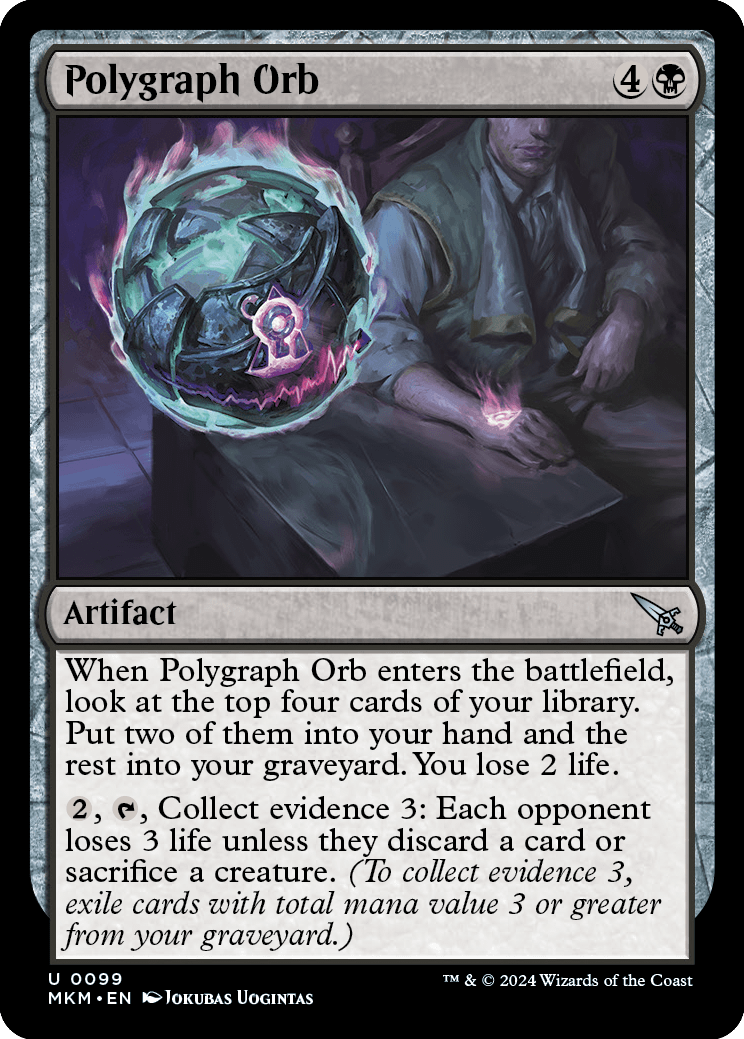
Polygraph Orb
{4}{B}
Artifact
When Polygraph Orb enters the battlefield, look at the top four cards of your library. Put two of them into your hand and the rest into your graveyard. You lose 2 life.
{2}, {T}, Collect evidence 3: Each opponent loses 3 life unless they discard a card or sacrifice a creature. (To collect evidence 3, exile cards with total mana value 3 or greater from your graveyard.)
- While resolving Polygraph Orb's last ability, your opponent chooses a card to be discarded without revealing it, chooses a creature to be sacrificed, or chooses to do neither. Then that player discards that card, sacrifices that creature, or loses 3 life. Your opponent can always choose to lose 3 life, even if they have cards to discard or creatures to sacrifice.
- In a multiplayer game, each opponent in turn order makes their choice once, then all of the actions occur simultaneously. Opponents will know choices made by earlier opponents when making their choices, although a card chosen to be discarded this way isn't revealed until it's discarded.
- In a Two-Headed Giant game, Polygraph Orb's last ability causes both opponents to sacrifice a creature, discard a card, or lose 3 life.
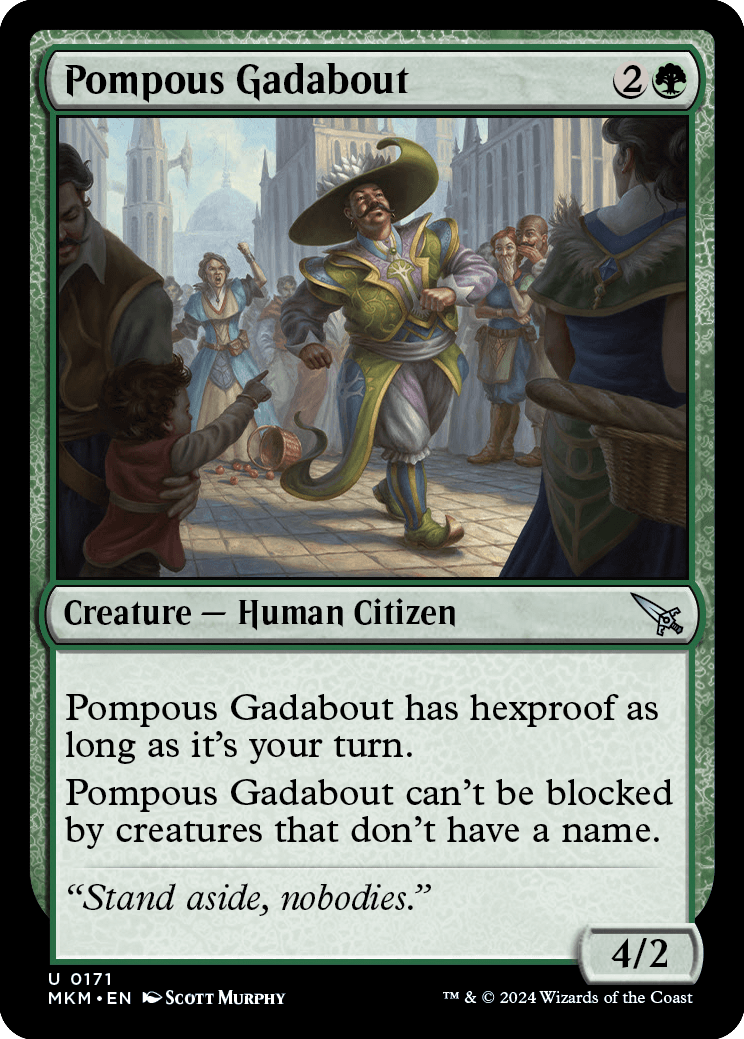
Pompous Gadabout
{2}{G}
Creature — Human Citizen
4/2
Pompous Gadabout has hexproof as long as it's your turn.
Pompous Gadabout can't be blocked by creatures that don't have a name.
- Face-down creatures don't have names unless an effect says otherwise.
- Once Pompous Gadabout has been blocked by a creature, turning that creature face down or otherwise causing it to lose its name won't cause it to stop blocking Pompous Gadabout.
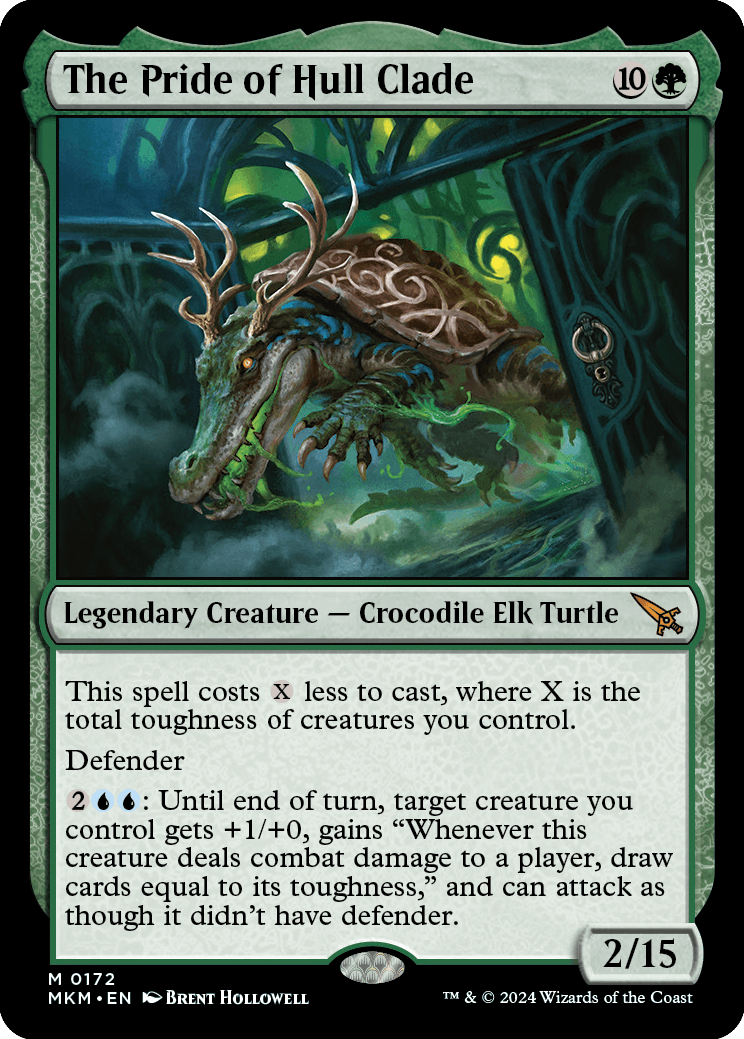
The Pride of Hull Clade
{10}{G}
Legendary Creature — Crocodile Elk Turtle
2/15
This spell costs {X} less to cast, where X is the total toughness of creatures you control.
Defender
{2}{U}{U}: Until end of turn, target creature you control gets +1/+0, gains "Whenever this creature deals combat damage to a player, draw cards equal to its toughness," and can attack as though it didn't have defender.
- The first step of casting a spell is to move it to the stack. If this causes the total toughness of creatures you control to change (perhaps because you control a creature whose toughness is determined by the number of cards in your hand), that new toughness will be used to determine the cost reduction.
- Once you determine the cost to cast The Pride of Hull Clade, you may activate mana abilities to pay that cost. If the total toughness of creatures you control changes while activating mana abilities, the cost to cast The Pride of Hull Clade remains what you previously determined.
- The Pride of Hull Clade's mana value doesn't change no matter what the total toughness of creatures you control is.
- The Pride of Hull Clade's cost reduction ability can't reduce the total cost to cast the spell below {G}.
- Once you announce you're casting a spell, no player may take actions until the spell has been paid for. Notably, opponents can't try to reduce the total toughness of creatures you control.
- If the target of The Pride of Hull Clade's last ability deals combat damage to a player but leaves the battlefield before the granted triggered ability resolves, use its toughness as it last existed on the battlefield to determine how many cards to draw.
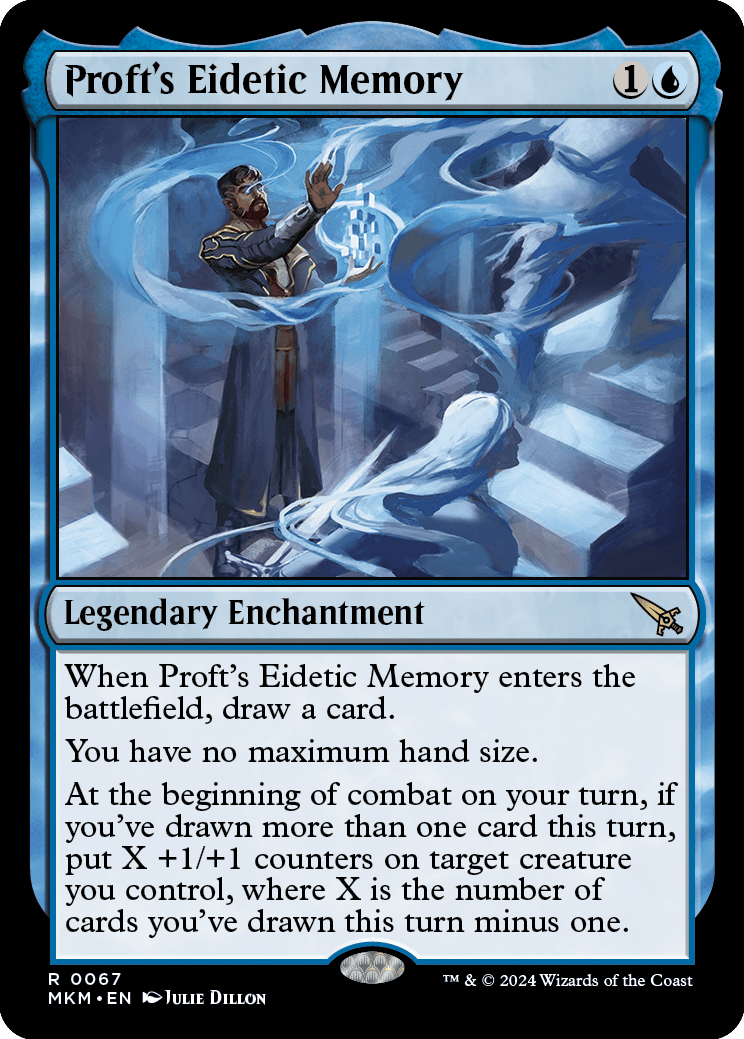
Proft's Eidetic Memory
{1}{U}
Legendary Enchantment
When Proft's Eidetic Memory enters the battlefield, draw a card.
You have no maximum hand size.
At the beginning of combat on your turn, if you've drawn more than one card this turn, put X +1/+1 counters on target creature you control, where X is the number of cards you've drawn this turn minus one.
- If you haven't drawn more than one card by the time a beginning of combat step begins on your turn, Proft's Eidetic Memory's last ability won't trigger at all.
- Proft's Eidetic Memory's last ability looks at how many cards you've drawn this turn, even if it wasn't on the battlefield when you drew those cards.
- The value of X is determined only once, as Proft's Eidetic Memory's last ability resolves.
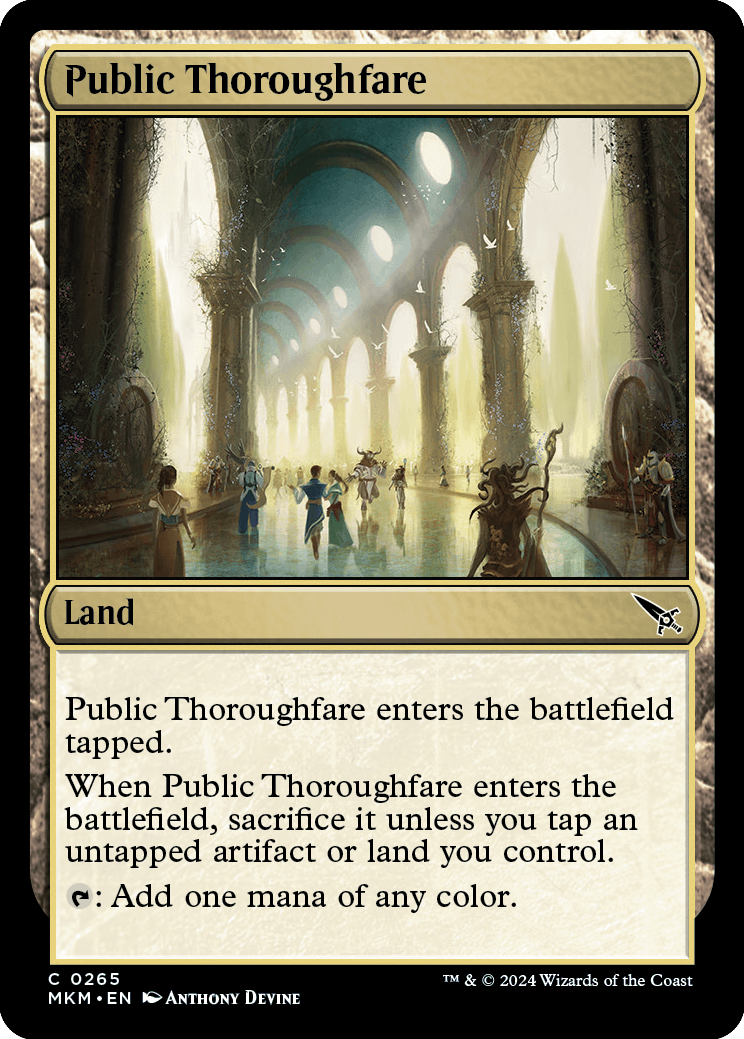
Public Thoroughfare
Land
Public Thoroughfare enters the battlefield tapped.
When Public Thoroughfare enters the battlefield, sacrifice it unless you tap an untapped artifact or land you control.
{T}: Add one mana of any color.
- In the unusual case where Public Thoroughfare is untapped as its triggered ability is resolving, you can tap it for its own triggered ability.
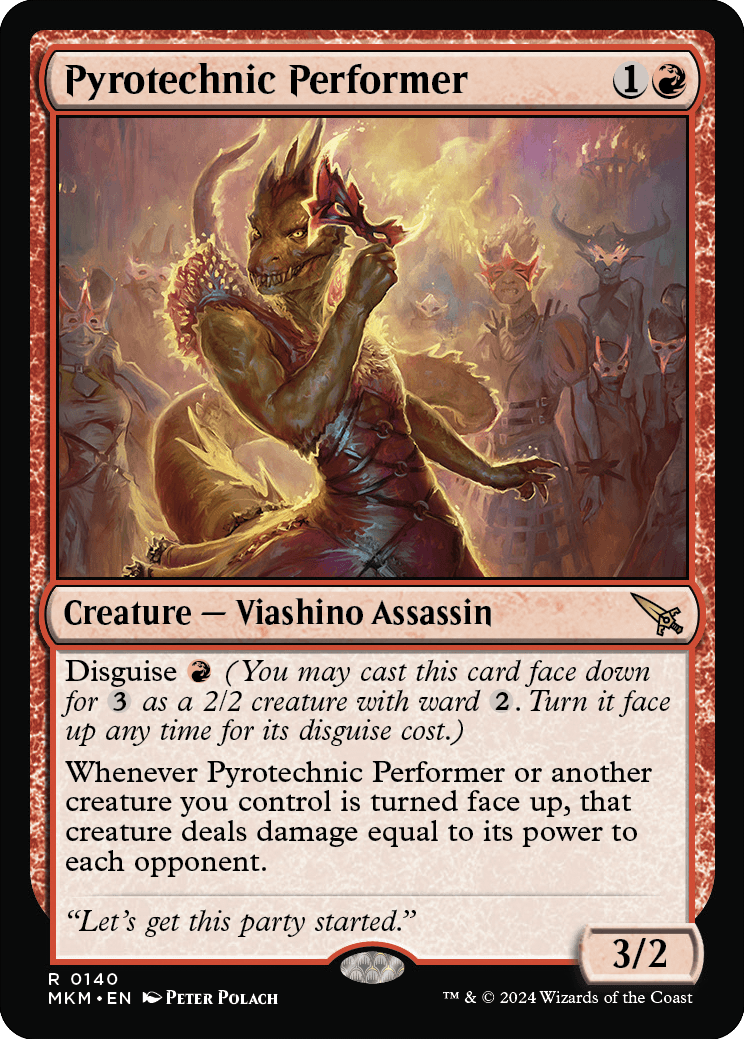
Pyrotechnic Performer
{1}{R}
Creature — Viashino Assassin
3/2
Disguise {R} (You may cast this card face down for {3} as a 2/2 creature with ward {2}. Turn it face up any time for its disguise cost.)
Whenever Pyrotechnic Performer or another creature you control is turned face up, that creature deals damage equal to its power to each opponent.
- If a creature that is turned face up leaves the battlefield before Pyrotechnic Performer's triggered ability resolves, use that creature's power as it last existed on the battlefield to determine how much damage it deals.
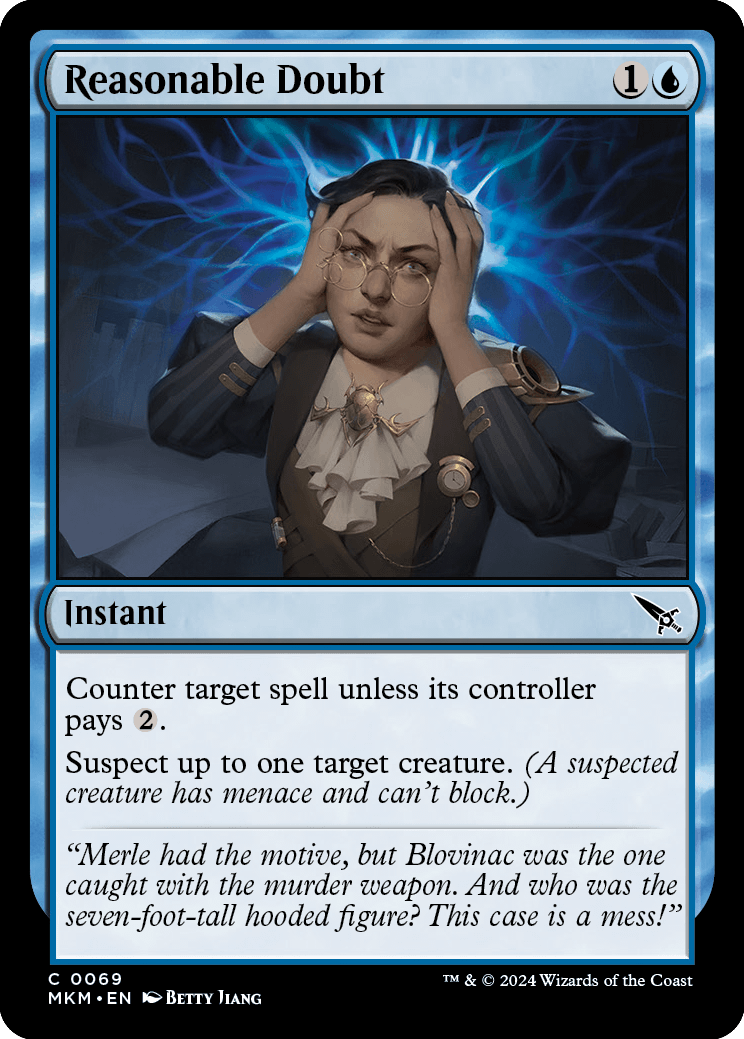
Reasonable Doubt
{1}{U}
Instant
Counter target spell unless its controller pays {2}.
Suspect up to one target creature. (A suspected creature has menace and can't block.)
- You can't cast Reasonable Doubt just to suspect a creature. There has to be a spell on the stack that's a legal target for Reasonable Doubt.
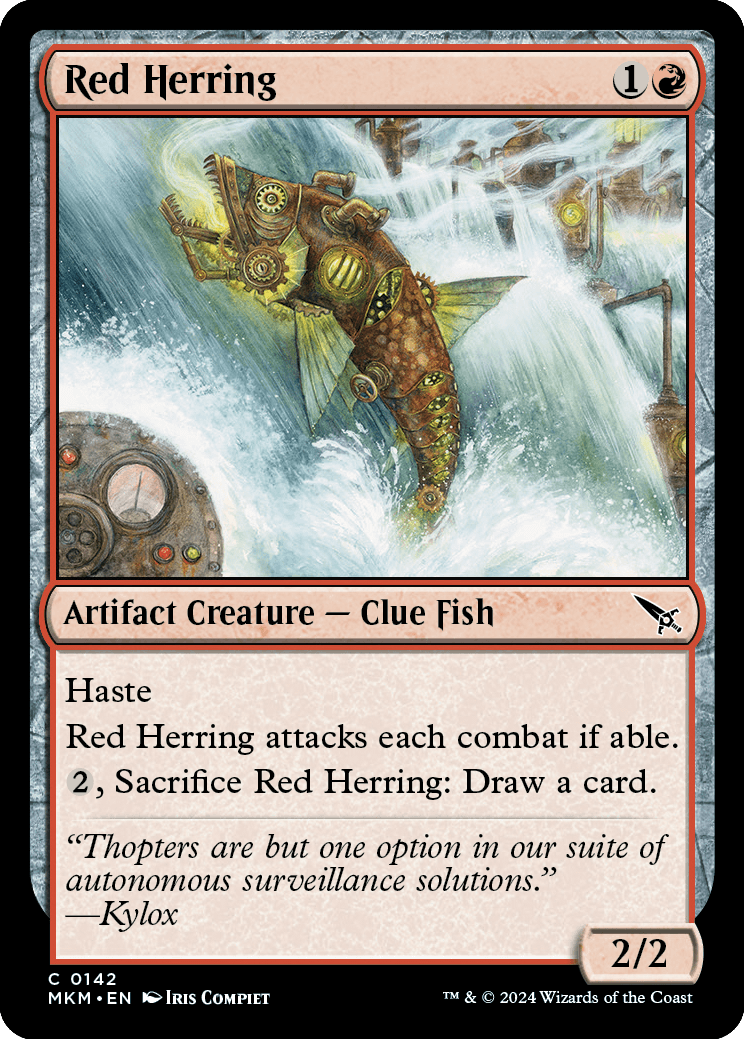
Red Herring
{1}{R}
Artifact Creature — Clue Fish
2/2
Haste
Red Herring attacks each combat if able.
{2}, Sacrifice Red Herring: Draw a card.
- If Red Herring can't attack for any reason (such as being tapped), then it doesn't attack. If there's a cost associated with having it attack, its controller isn't forced to pay that cost, so it doesn't have to attack in that case either.
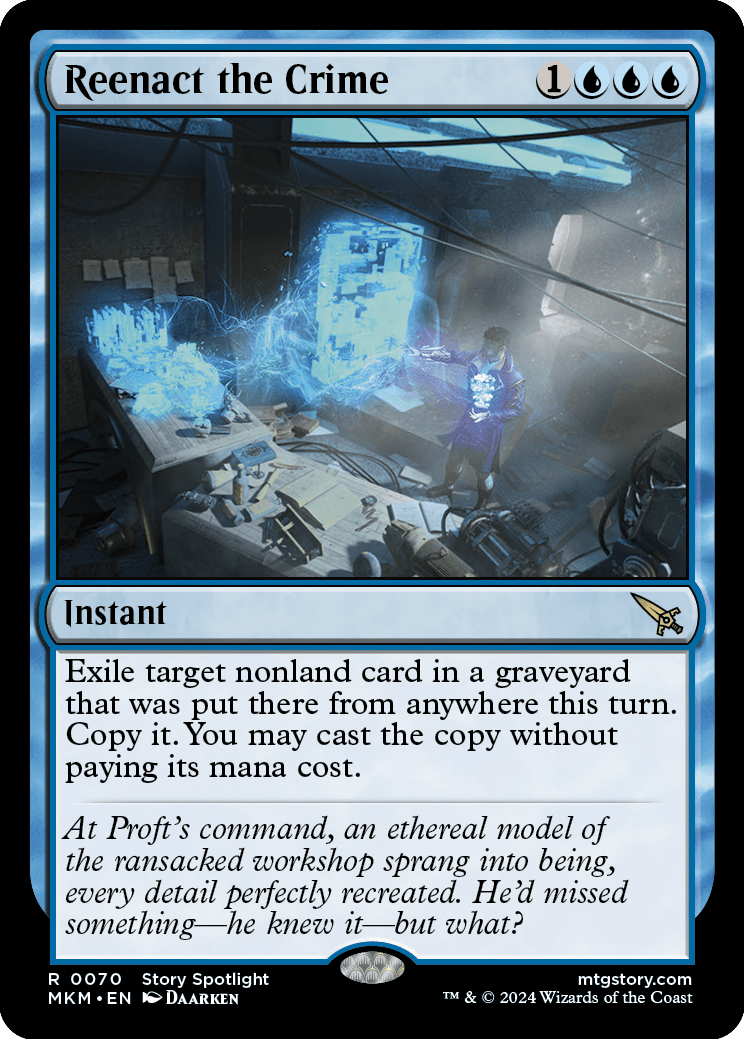
Reenact the Crime
{1}{U}{U}{U}
Instant
Exile target nonland card in a graveyard that was put there from anywhere this turn. Copy it. You may cast the copy without paying its mana cost.
- You cast the copy while Reenact the Crime is resolving and still on the stack. You can't wait to cast it later in the turn.
- If a spell has {X} in its mana cost, you must choose 0 as the value of X when casting it without paying its mana cost.
- If you cast a spell "without paying its mana cost", you can't choose to cast it for any alternative costs. You can, however, pay additional costs, such as kicker costs. If the spell has any mandatory additional costs, such as that of Demand Answers, those must be paid to cast the card.
- If the spell you cast has {X} in its mana cost, you must choose 0 as the value of X when casting it without paying its mana cost.
- If you don't want to cast the copy, you can choose not to; the copy ceases to exist the next time state-based actions are checked.
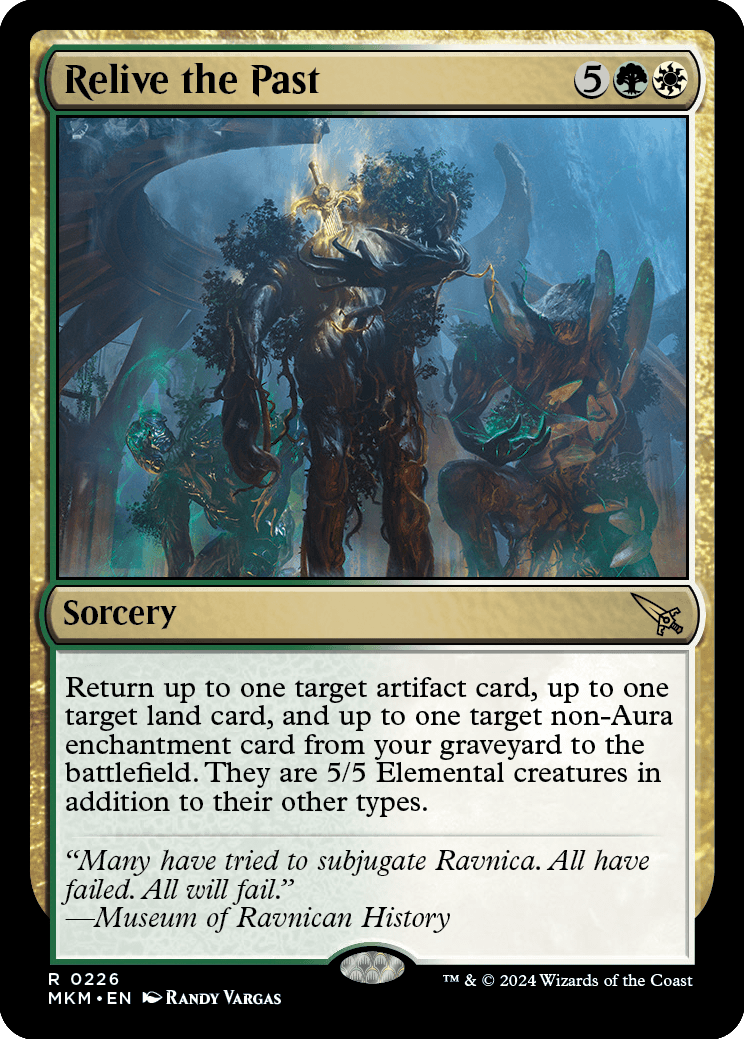
Relive the Past
{5}{G}{W}
Sorcery
Return up to one target artifact card, up to one target land card, and up to one target non-Aura enchantment card from your graveyard to the battlefield. They are 5/5 Elemental creatures in addition to their other types.
- An artifact creature, land creature, or enchantment creature returned this way will be a 5/5 creature and will be an Elemental in addition to its other creature types.
- An Equipment without reconfigure that's also a creature can't be attached to anything. You can activate its equip ability, but it won't become attached.
- If another effect causes one of the returned permanents to become a creature and sets its power and toughness as it does so, that creature will have that power and toughness; it won't be 5/5. Notably, crewing a Vehicle does not set its power and toughness, so a Vehicle will remain a 5/5 creature if you crew it.
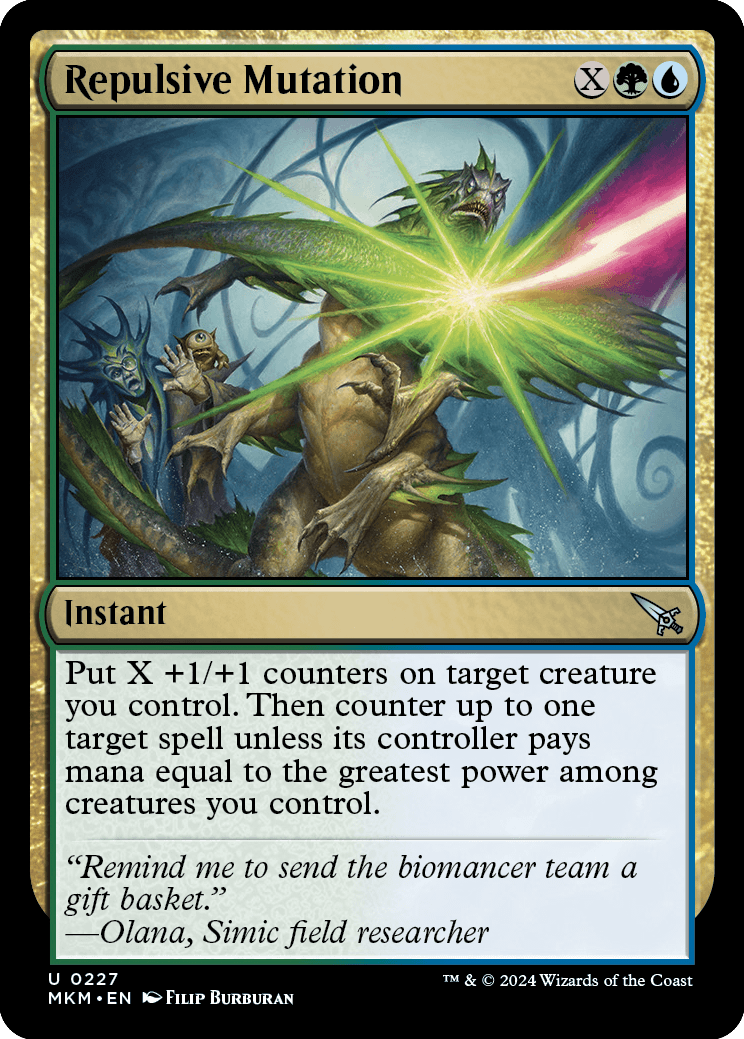
Repulsive Mutation
{X}{G}{U}
Instant
Put X +1/+1 counters on target creature you control. Then counter up to one target spell unless its controller pays mana equal to the greatest power among creatures you control.
- If you control no creatures as Repulsive Mutation is resolving, the amount of mana the target spell's controller must pay to stop their spell from being countered is 0. That player can choose not to pay 0 mana; if they do, the spell will be countered.
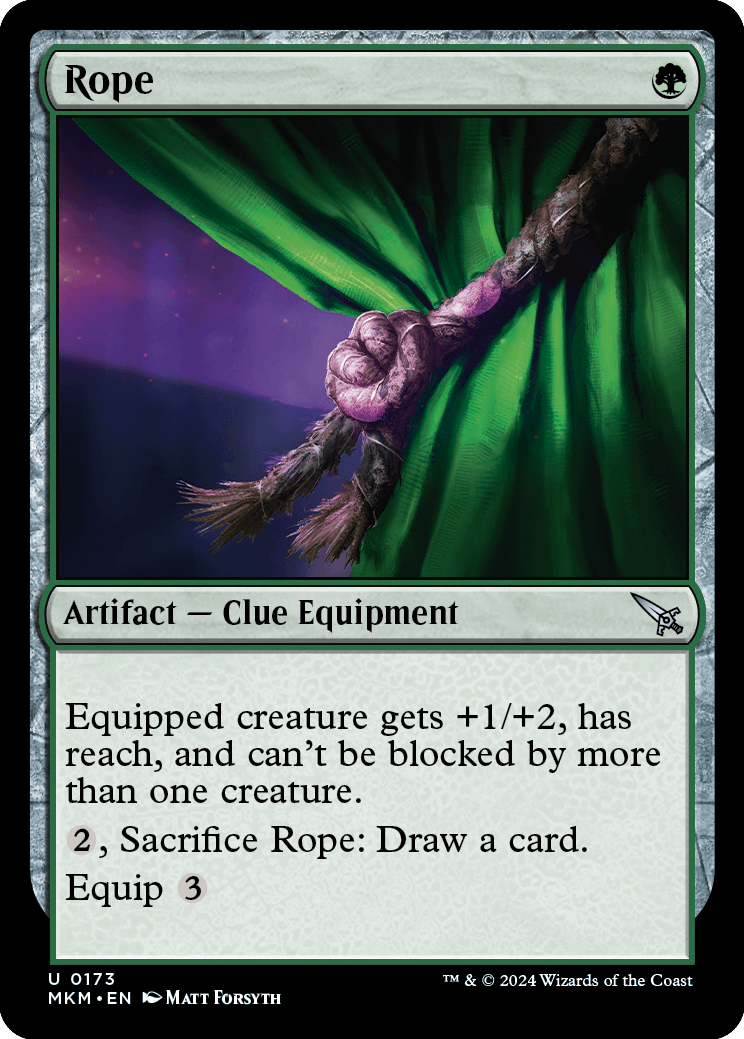
Rope
{G}
Artifact — Clue Equipment
Equipped creature gets +1/+2, has reach, and can't be blocked by more than one creature.
{2}, Sacrifice Rope: Draw a card.
Equip {3}
- If the equipped creature also has menace, it can't be blocked at all.
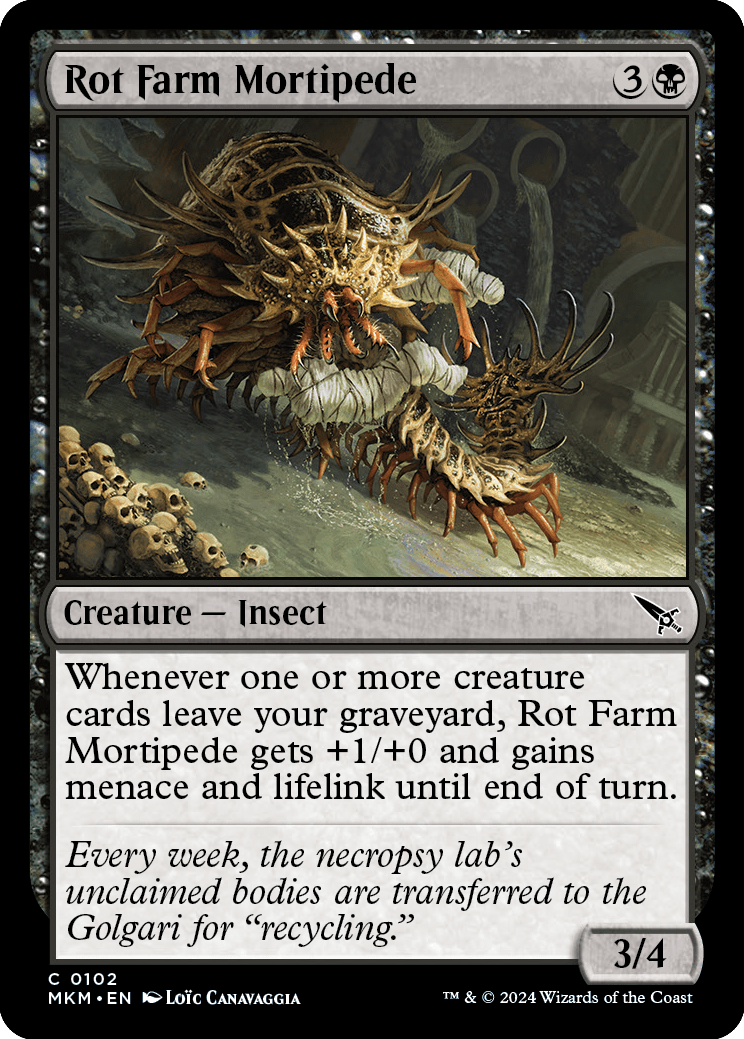
Rot Farm Mortipede
{3}{B}
Creature — Insect
3/4
Whenever one or more creature cards leave your graveyard, Rot Farm Mortipede gets +1/+0 and gains menace and lifelink until end of turn.
- If multiple creature cards leave your graveyard at the same time, Rot Farm Mortipede's ability will trigger only once.
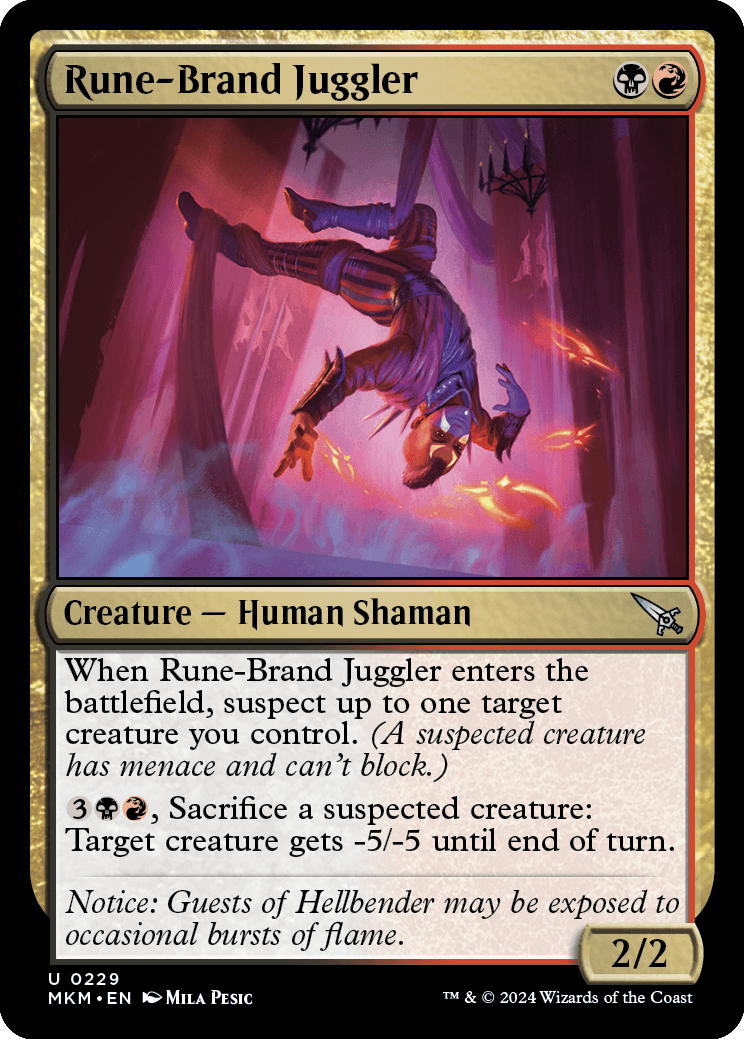
Rune-Brand Juggler
{B}{R}
Creature — Human Shaman
2/2
When Rune-Brand Juggler enters the battlefield, suspect up to one target creature you control. (A suspected creature has menace and can't block.)
{3}{B}{R}, Sacrifice a suspected creature: Target creature gets -5/-5 until end of turn.
- If Rune-Brand Juggler is suspected, you can sacrifice it to pay for its own last ability.
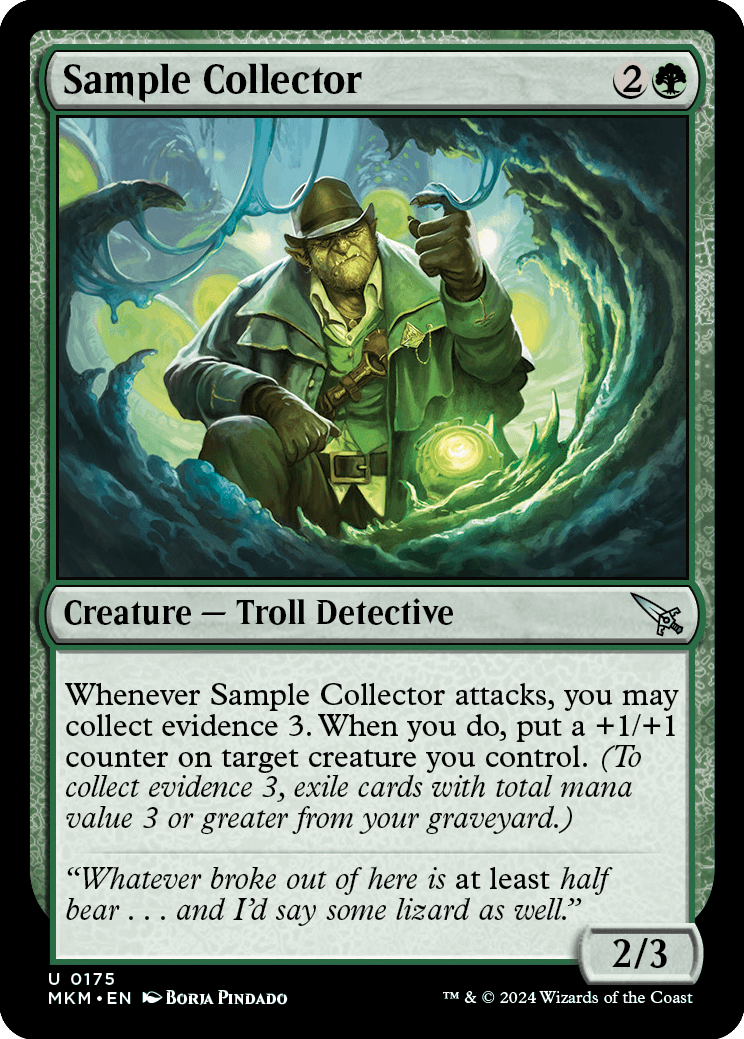
Sample Collector
{2}{G}
Creature — Troll Detective
2/3
Whenever Sample Collector attacks, you may collect evidence 3. When you do, put a +1/+1 counter on target creature you control. (To collect evidence 3, exile cards with total mana value 3 or greater from your graveyard.)
- You don't choose a target for Sample Collector's ability at the time it triggers. Rather, a second "reflexive" ability triggers when you collect evidence 3 this way. You choose a target for that ability as it goes on the stack. Each player may respond to this triggered ability as normal.
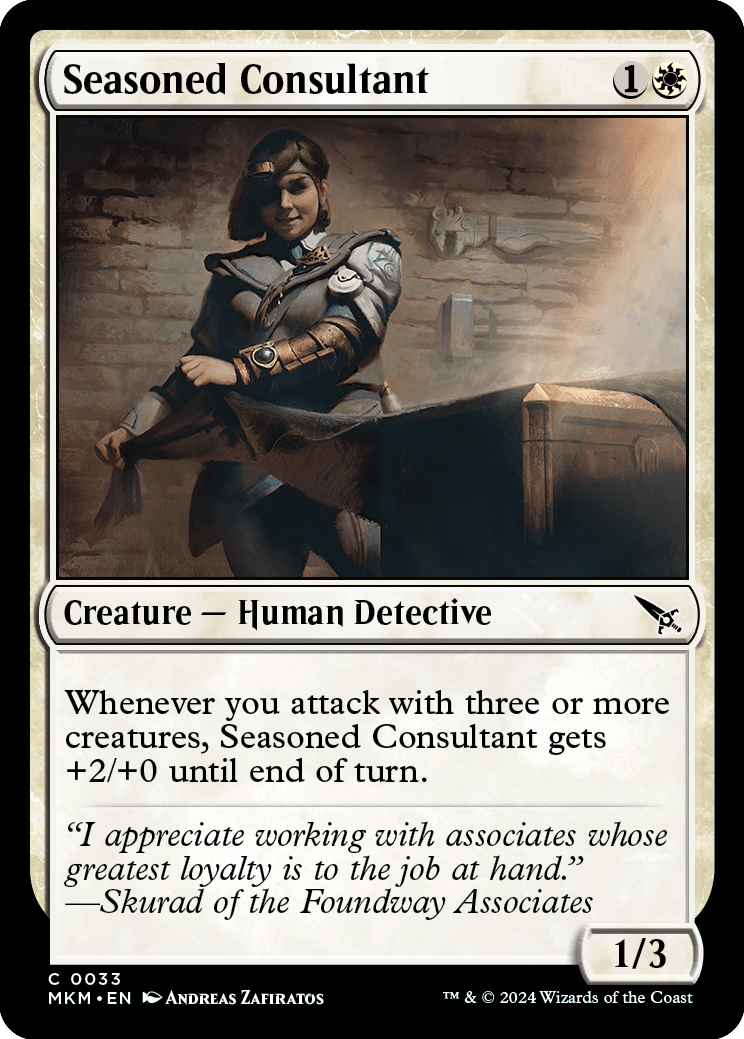
Seasoned Consultant
{1}{W}
Creature — Human Detective
1/3
Whenever you attack with three or more creatures, Seasoned Consultant gets +2/+0 until end of turn.
- It doesn't matter what happens to the creatures in response. As long as you attacked with at least three creatures, Seasoned Consultant will still get +2/+0 until end of turn when its triggered ability resolves.
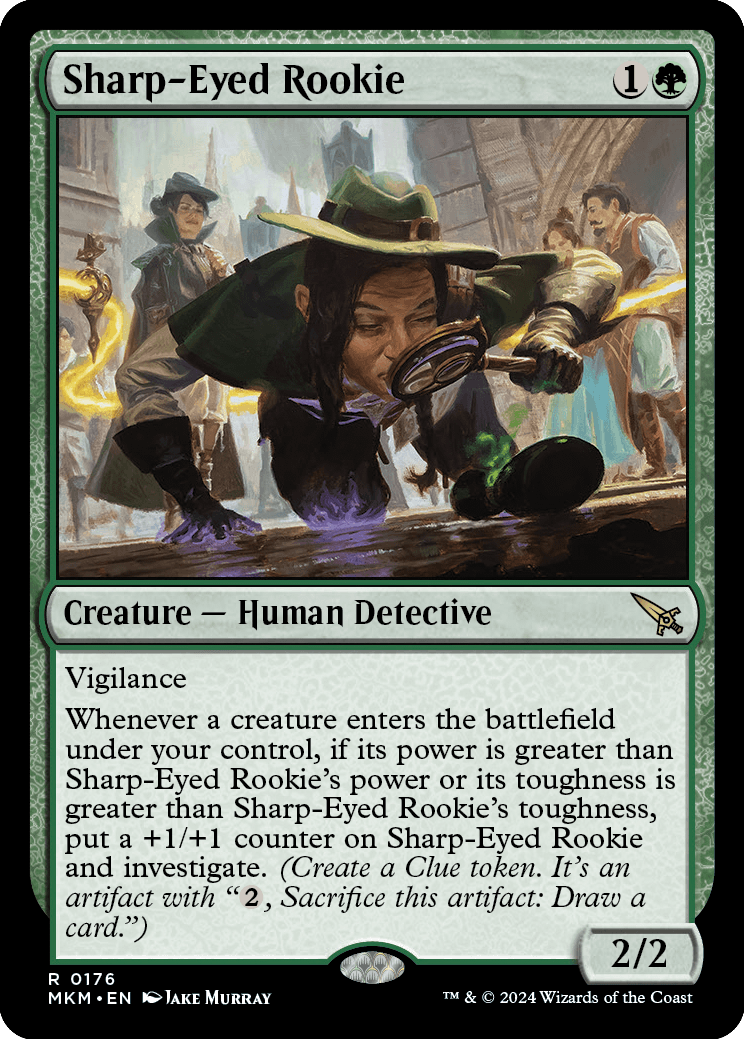
Sharp-Eyed Rookie
{1}{G}
Creature — Human Detective
2/2
Vigilance
Whenever a creature enters the battlefield under your control, if its power is greater than Sharp-Eyed Rookie's power or its toughness is greater than Sharp-Eyed Rookie's toughness, put a +1/+1 counter on Sharp-Eyed Rookie and investigate. (Create a Clue token. It's an artifact with "{2}, Sacrifice this artifact: Draw a card.")
- When a creature enters the battlefield under your control, check its power and toughness against Sharp-Eyed Rookie's power and toughness. If neither stat of the new creature is greater, Sharp-Eyed Rookie's triggered ability won't trigger at all.
- If Sharp-Eyed Rookie's triggered ability triggers, the stat comparison will happen again when the ability tries to resolve. If neither stat of the new creature is greater, the ability will do nothing. If the creature that entered the battlefield leaves the battlefield before the ability tries to resolve, use its power and toughness as it last existed on the battlefield for the purposes of the comparison.
- If a creature enters the battlefield with +1/+1 counters on it, consider those counters when determining if Sharp-Eyed Rookie's triggered ability will trigger. For example, a 1/1 creature that enters the battlefield with two +1/+1 counters on it will cause a 2/2 Sharp-Eyed Rookie's ability to trigger.
- If multiple creatures enter the battlefield at the same time, Sharp-Eyed Rookie's triggered ability may trigger multiple times, although the stat comparison will take place each time one of those abilities tries to resolve. For example, if you control a 2/2 Sharp-Eyed Rookie and two 3/3 creatures enter the battlefield, Sharp-Eyed Rookie's triggered ability will trigger twice. The first ability will resolve, and you'll put a +1/+1 counter on Sharp-Eyed Rookie and investigate. When the second ability tries to resolve, neither the power nor the toughness of the new creature is greater than that of Sharp-Eyed Rookie, so that ability does nothing.
- When comparing the stats as Sharp-Eyed Rookie's ability resolves, it's possible that the stat that's greater changes from power to toughness or vice versa. If this happens, the ability will still resolve and you'll put a +1/+1 counter on Sharp-Eyed Rookie and investigate. For example, if you control a 2/2 Sharp-Eyed Rookie and a 1/3 creature enters the battlefield under your control, its toughness is greater, so Sharp-Eyed Rookie's triggered ability will trigger. In response, the 1/3 creature gets +2/-2. When Sharp-Eyed Rookie's ability tries to resolve, the other creature's power is greater, so you'll put a +1/+1 counter on Sharp-Eyed Rookie and investigate.
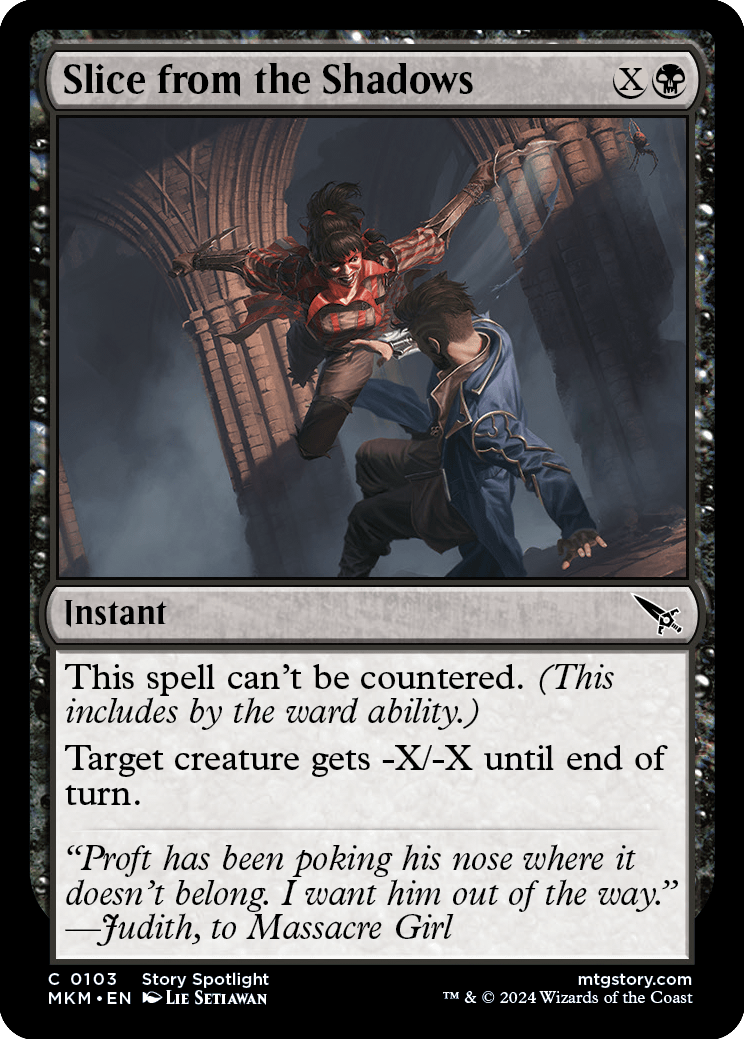
Slice from the Shadows
{X}{B}
Instant
This spell can't be countered. (This includes by the ward ability.)
Target creature gets -X/-X until end of turn.
- If you target a creature with ward, you may still pay the ward cost, but Slice from the Shadows won't be countered even if you don't.
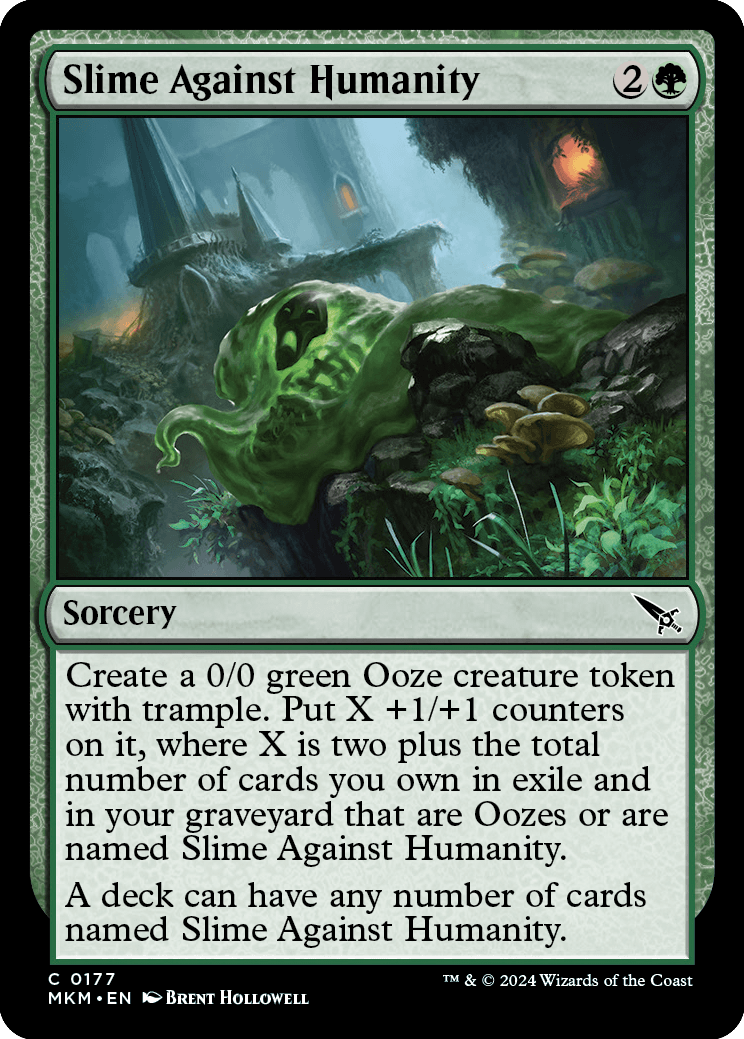
Slime Against Humanity
{2}{G}
Sorcery
Create a 0/0 green Ooze creature token with trample. Put X +1/+1 counters on it, where X is two plus the total number of cards you own in exile and in your graveyard that are Oozes or are named Slime Against Humanity.
A deck can have any number of cards named Slime Against Humanity.
- Slime Against Humanity isn't put into your graveyard until after it finishes resolving, so it doesn't count itself for its own effect.
- If you own face-down cards in exile, they won't count toward the value of X, even if you're allowed to look at them and you know they are Ooze cards or cards named Slime Against Humanity.
- The last ability of Slime Against Humanity lets you ignore the "four-of" rule. It doesn't let you ignore format legality. For example, during a Murders at Karlov Manor Limited event, you can't add Slime Against Humanity from your personal collection.
- The last ability of Slime Against Humanity also lets you ignore the "singleton" rule in formats like Commander.
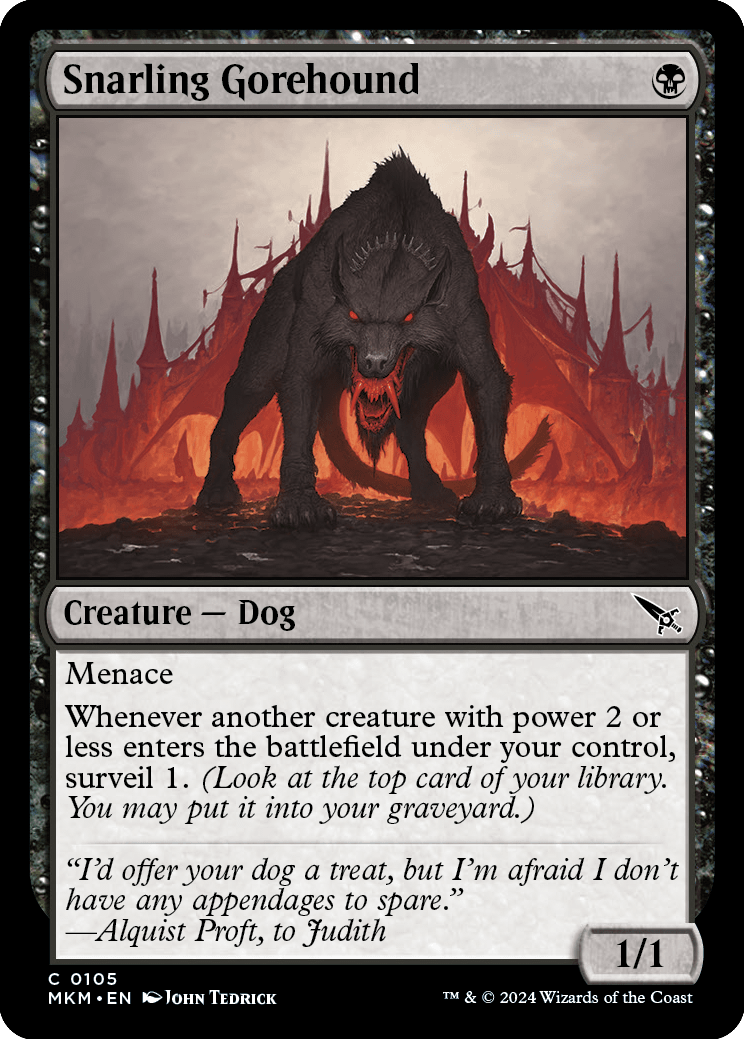
Snarling Gorehound
{B}
Creature — Dog
1/1
Menace
Whenever another creature with power 2 or less enters the battlefield under your control, surveil 1. (Look at the top card of your library. You may put it into your graveyard.)
- Snarling Gorehound's ability checks the power of a creature only at the moment it enters the battlefield. If it enters with counters, those counters are included. If that creature's power is 2 or less when it enters the battlefield but becomes greater than 2 after the ability triggers, you'll still surveil 1.
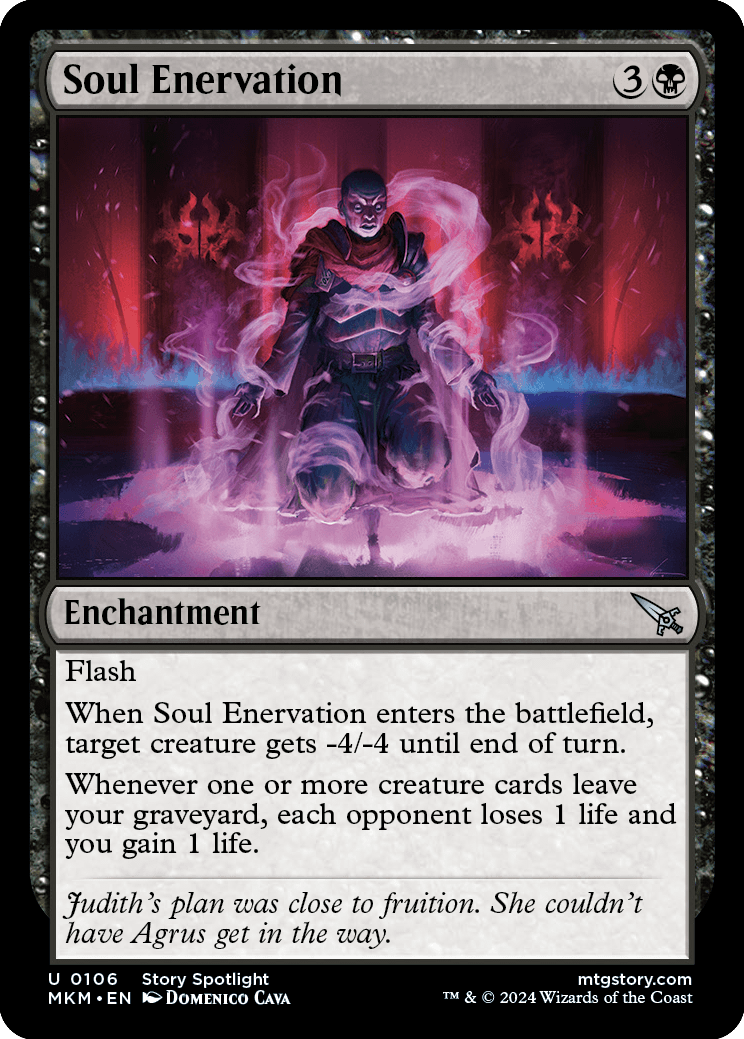
Soul Enervation
{3}{B}
Enchantment
Flash
When Soul Enervation enters the battlefield, target creature gets -4/-4 until end of turn.
Whenever one or more creature cards leave your graveyard, each opponent loses 1 life and you gain 1 life.
- If multiple creature cards leave your graveyard at the same time, Soul Enervation's last ability will trigger only once.
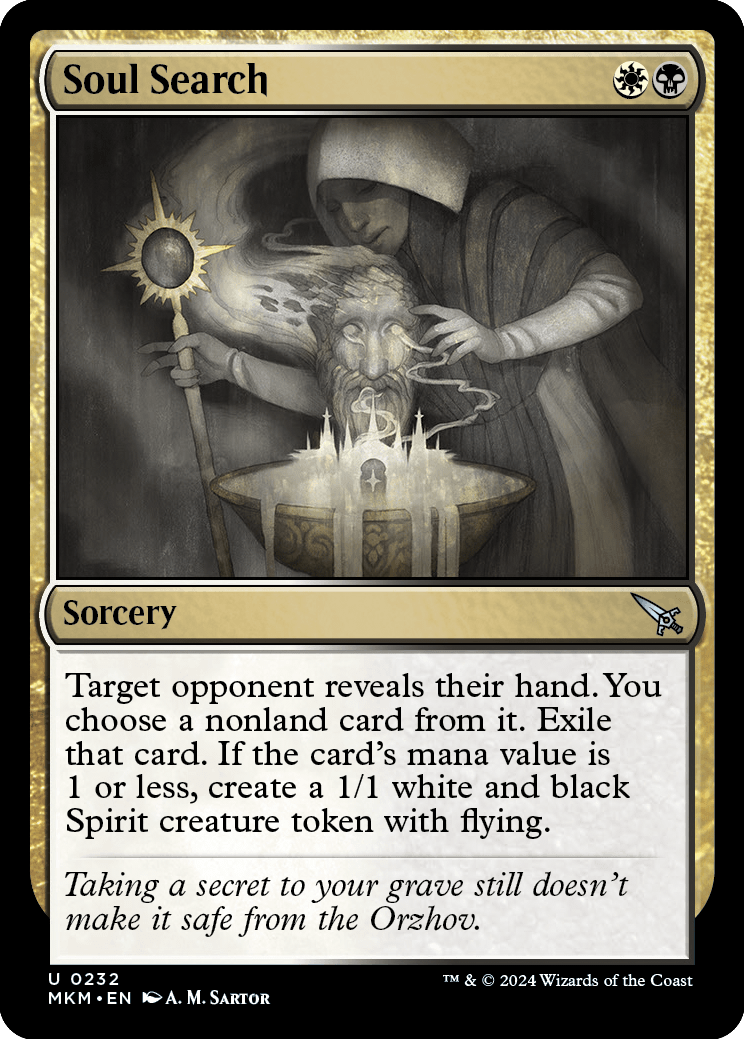
Soul Search
{W}{B}
Sorcery
Target opponent reveals their hand. You choose a nonland card from it. Exile that card. If the card's mana value is 1 or less, create a 1/1 white and black Spirit creature token with flying.
- If the exiled card has {X} in its mana cost, X is 0.
- If the exiled card doesn't have a mana cost, its mana value is 0.
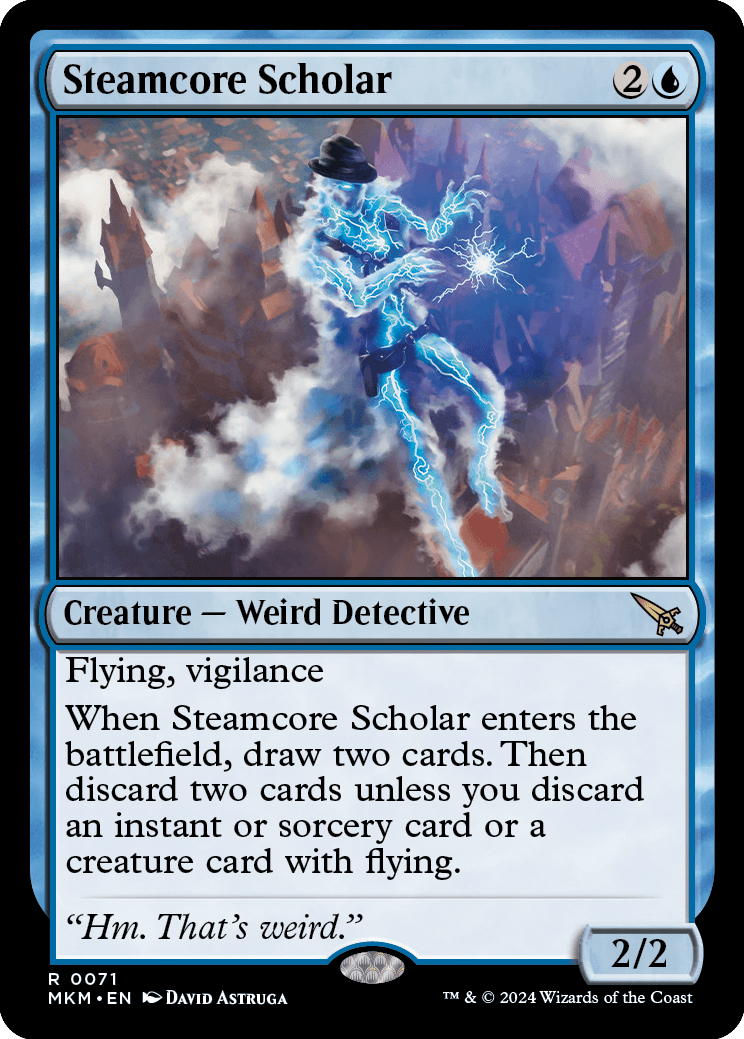
Steamcore Scholar
{2}{U}
Creature — Weird Detective
2/2
Flying, vigilance
When Steamcore Scholar enters the battlefield, draw two cards. Then discard two cards unless you discard an instant or sorcery card or a creature card with flying.
- You can discard an instant card, a sorcery card, a creature card with flying, or any two cards, even if one or both of those cards have the listed characteristics.
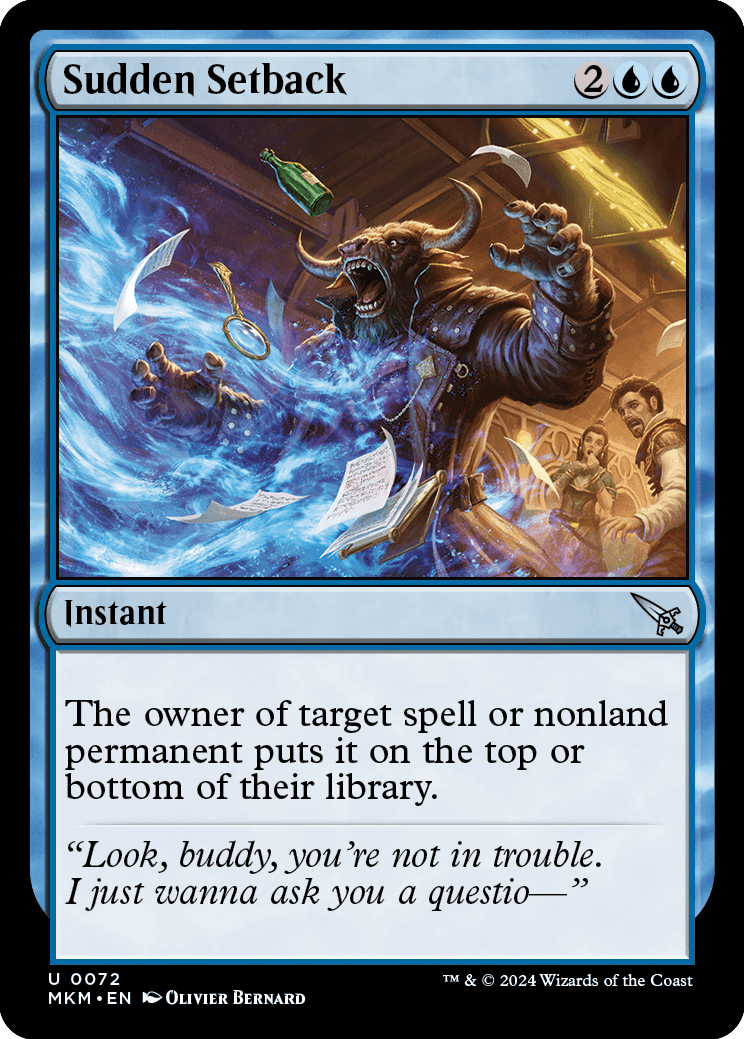
Sudden Setback
{2}{U}{U}
Instant
The owner of target spell or nonland permanent puts it on the top or bottom of their library.
- The spell or permanent's owner chooses whether to put it on the top or bottom of their library. If multiple cards are put into the library this way (such as when the spell targets a melded permanent), that spell or permanent's owner puts all the cards on top or all the cards on the bottom. They put them in whatever order they wish, and they do not need to reveal the order.
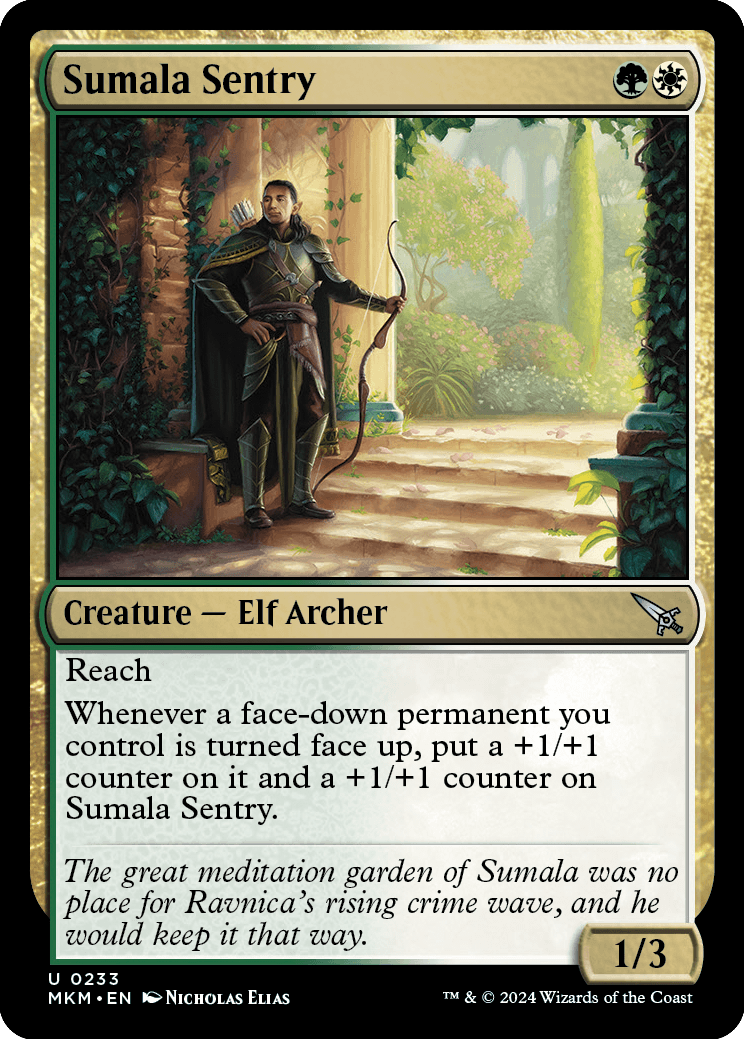
Sumala Sentry
{G}{W}
Creature — Elf Archer
1/3
Reach
Whenever a face-down permanent you control is turned face up, put a +1/+1 counter on it and a +1/+1 counter on Sumala Sentry.
- If the permanent that was turned face up is no longer on the battlefield when Sumala Sentry's triggered ability resolves, you'll still put a +1/+1 counter on Sumala Sentry. Similarly, if Sumala Sentry is no longer on the battlefield, you'll still put a +1/+1 counter on the permanent that turned face up.
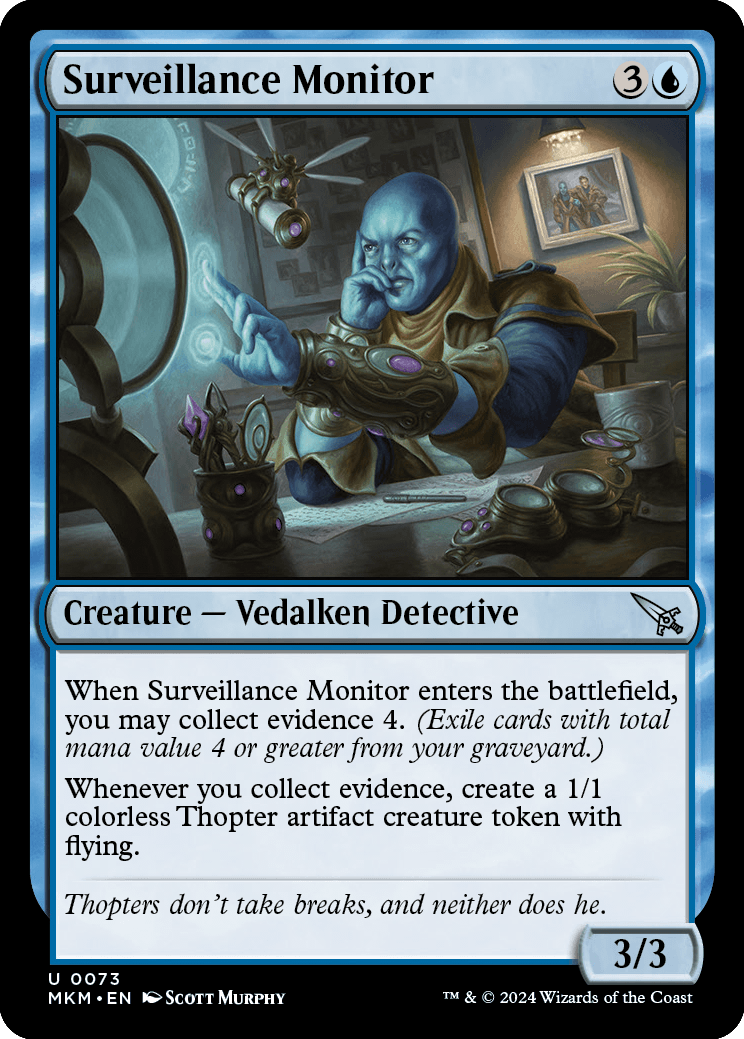
Surveillance Monitor
{3}{U}
Creature — Vedalken Detective
3/3
When Surveillance Monitor enters the battlefield, you may collect evidence 4. (Exile cards with total mana value 4 or greater from your graveyard.)
Whenever you collect evidence, create a 1/1 colorless Thopter artifact creature token with flying.
- Surveillance Monitor's last ability triggers whenever you collect evidence for any reason, not just when you collect evidence with its first ability.
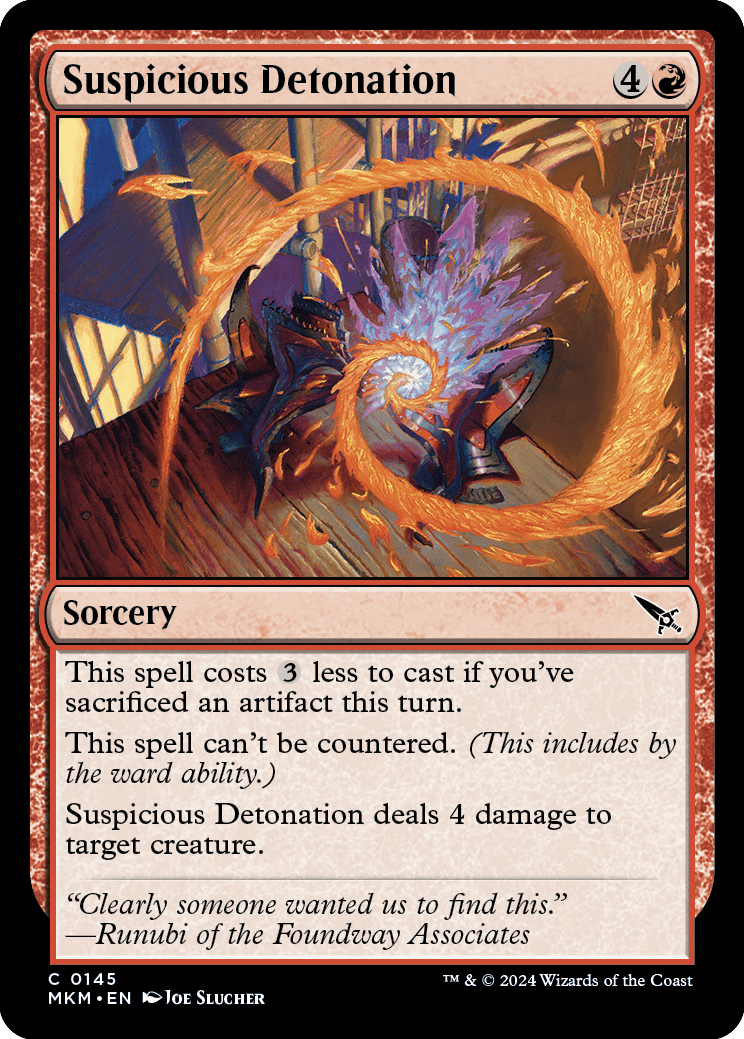
Suspicious Detonation
{4}{R}
Sorcery
This spell costs {3} less to cast if you've sacrificed an artifact this turn.
This spell can't be countered. (This includes by the ward ability.)
Suspicious Detonation deals 4 damage to target creature.
- If you target a creature or planeswalker with ward, you may still pay the ward cost, but Suspicious Detonation won't be countered even if you don't.
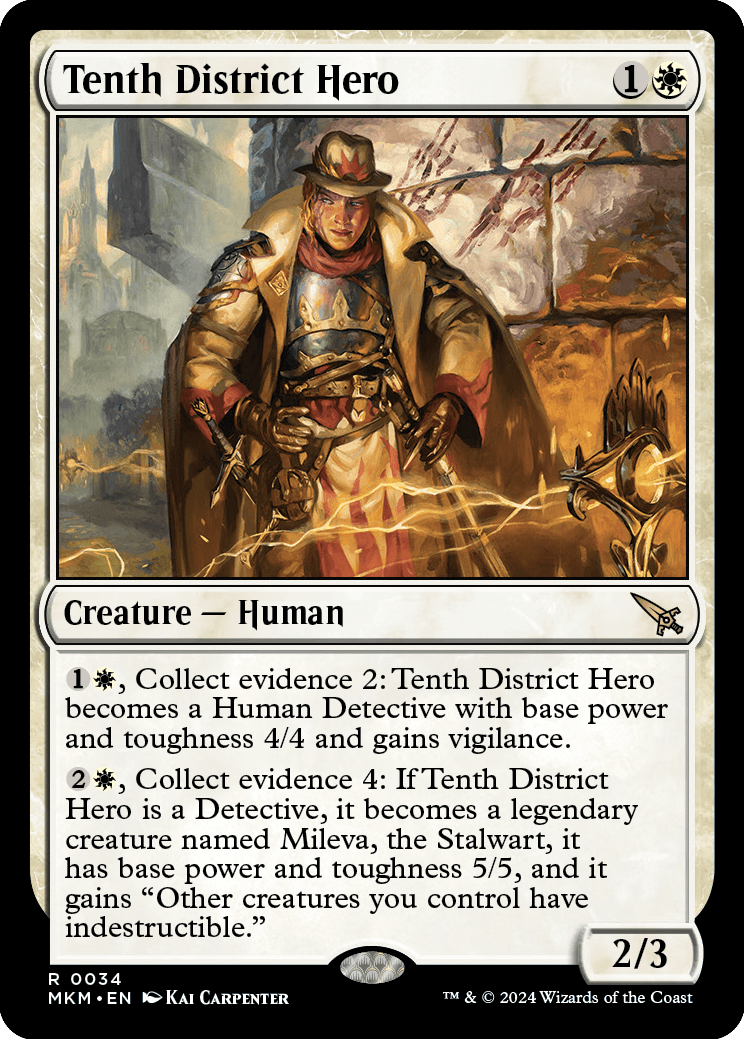
Tenth District Hero
{1}{W}
Creature — Human
2/3
{1}{W}, Collect evidence 2: Tenth District Hero becomes a Human Detective with base power and toughness 4/4 and gains vigilance.
{2}{W}, Collect evidence 4: If Tenth District Hero is a Detective, it becomes a legendary creature named Mileva, the Stalwart, it has base power and toughness 5/5, and it gains "Other creatures you control have indestructible."
- Neither of these abilities have durations. If one of them resolves, it will remain in effect until the game ends, Tenth District Hero leaves the battlefield, or some subsequent effect changes its characteristics, whichever comes first.
- Typically, Tenth District Hero's abilities are activated in the order they appear on the card. However, if Tenth District Hero is a 5/5 legendary Human Detective named Mileva, the Stalwart with vigilance and "Other creatures you control have indestructible" and you activate its first ability again, it will become a 4/4 legendary Human Detective named Mileva, the Stalwart with the same abilities, plus an additional (and almost certainly redundant) instance of vigilance.
- You can activate Tenth District Hero's second ability regardless of what creature types it is. The ability checks Tenth District Hero's creature types when it resolves. If Tenth District Hero isn't a Detective at that time, the ability does nothing.
- Tenth District Hero's second ability checks whether it's a Detective. It doesn't matter how it became a Detective.
- The effects from Tenth District Hero's abilities overwrite other effects that set power and/or toughness if and only if those effects existed before the ability resolved. They will not overwrite effects that modify power or toughness without setting it (whether from a static ability, counters, or a resolved spell or ability), nor will they overwrite effects that set power and toughness which come into existence after they resolve. Effects that switch the creature's power and toughness are always applied after any other power or toughness changing effects, including these two, regardless of the order in which they are created.
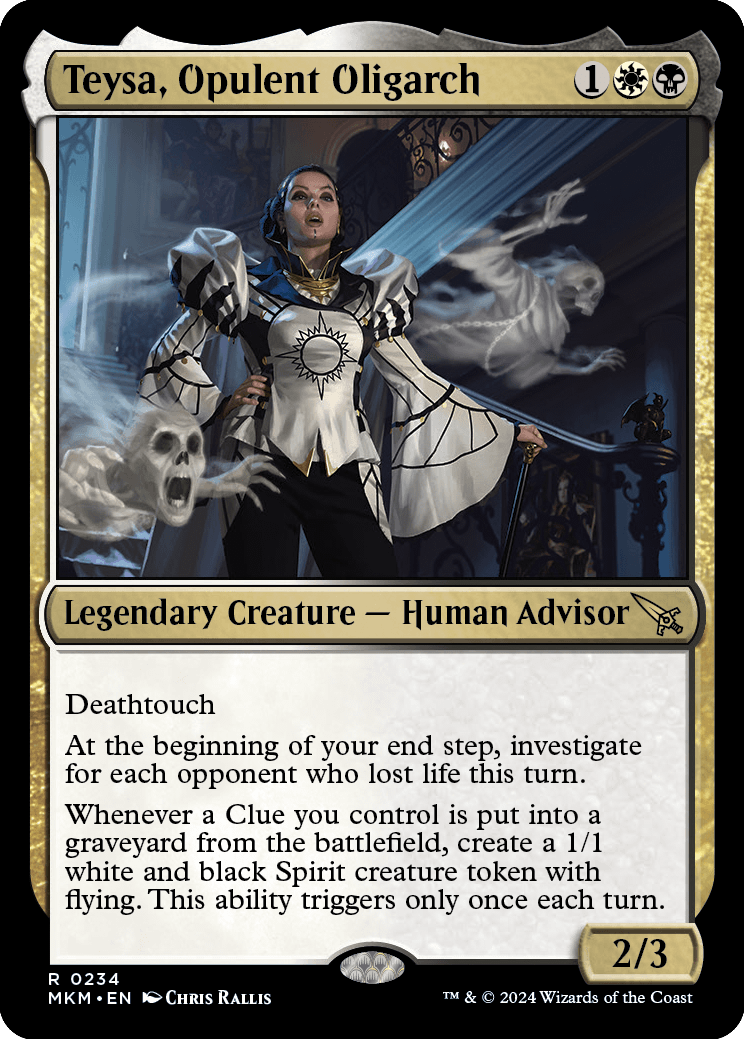
Teysa, Opulent Oligarch
{1}{W}{B}
Legendary Creature — Human Advisor
2/3
Deathtouch
At the beginning of your end step, investigate for each opponent who lost life this turn.
Whenever a Clue you control is put into a graveyard from the battlefield, create a 1/1 white and black Spirit creature token with flying. This ability triggers only once each turn.
- If an opponent lost life and subsequently lost the game, Teysa's second ability still counts that player when determining how many times to investigate.
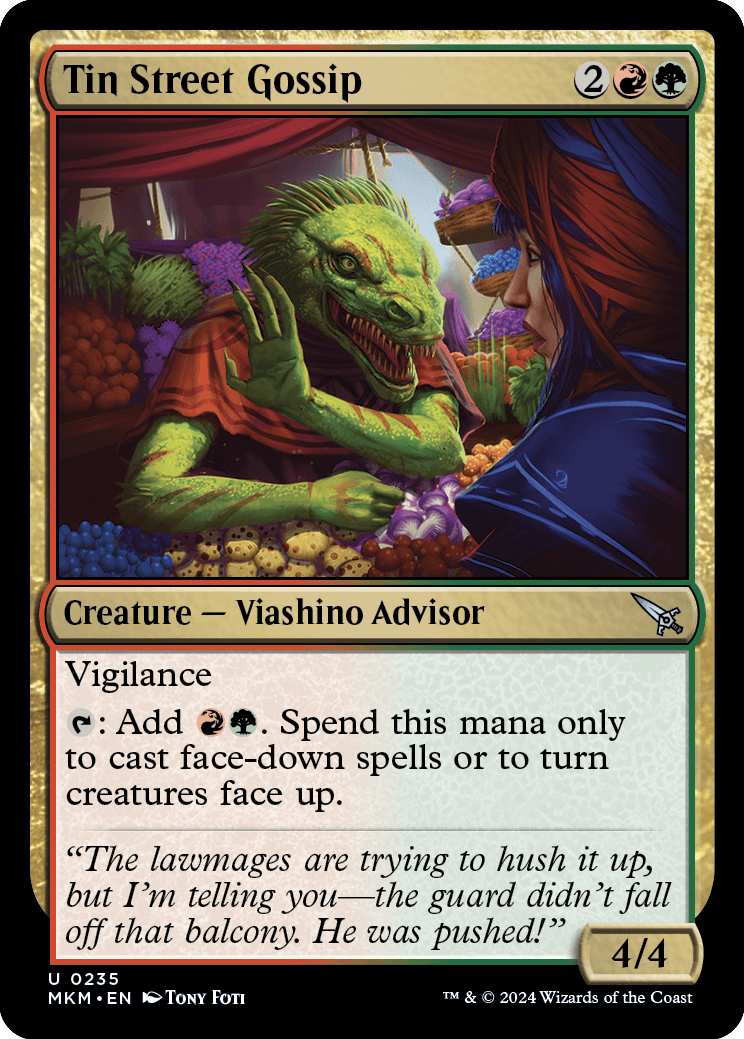
Tin Street Gossip
{2}{R}{G}
Creature — Viashino Advisor
4/4
Vigilance
{T}: Add {R}{G}. Spend this mana only to cast face-down spells or to turn creatures face up.
- The mana produced by Tin Street Gossip can't be used to cast a spell that instructs you to cloak or manifest cards.
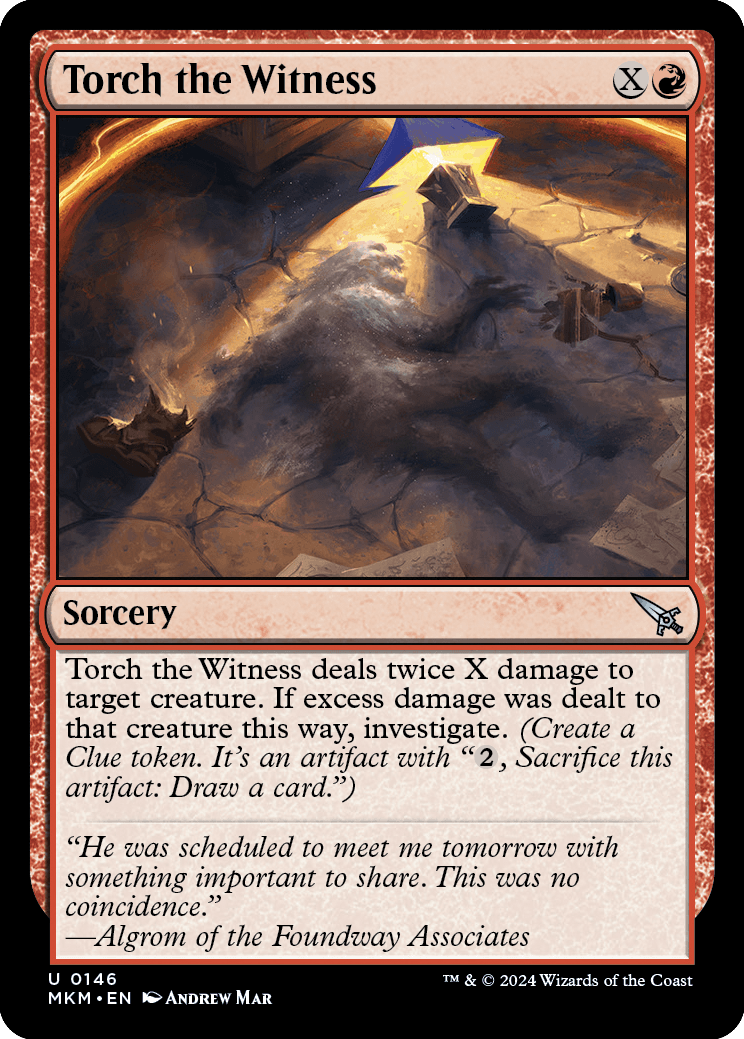
Torch the Witness
{X}{R}
Sorcery
Torch the Witness deals twice X damage to target creature. If excess damage was dealt to that creature this way, investigate. (Create a Clue token. It's an artifact with "{2}, Sacrifice this artifact: Draw a card.")
- A creature has been dealt excess damage if one or more sources dealt more damage to it than the minimum amount of damage required to be lethal damage. In most cases, this means damage greater than its toughness, but consider the damage already dealt to it this turn.
- Even 1 damage dealt to a creature from a source with deathtouch is considered lethal damage. If Torch the Witness has deathtouch (perhaps due to the effect of Judith, Carnage Connoisseur), any amount greater than 1 damage will cause excess damage to be dealt, even if the total amount of damage dealt to that creature this turn isn't greater than the creature's toughness.
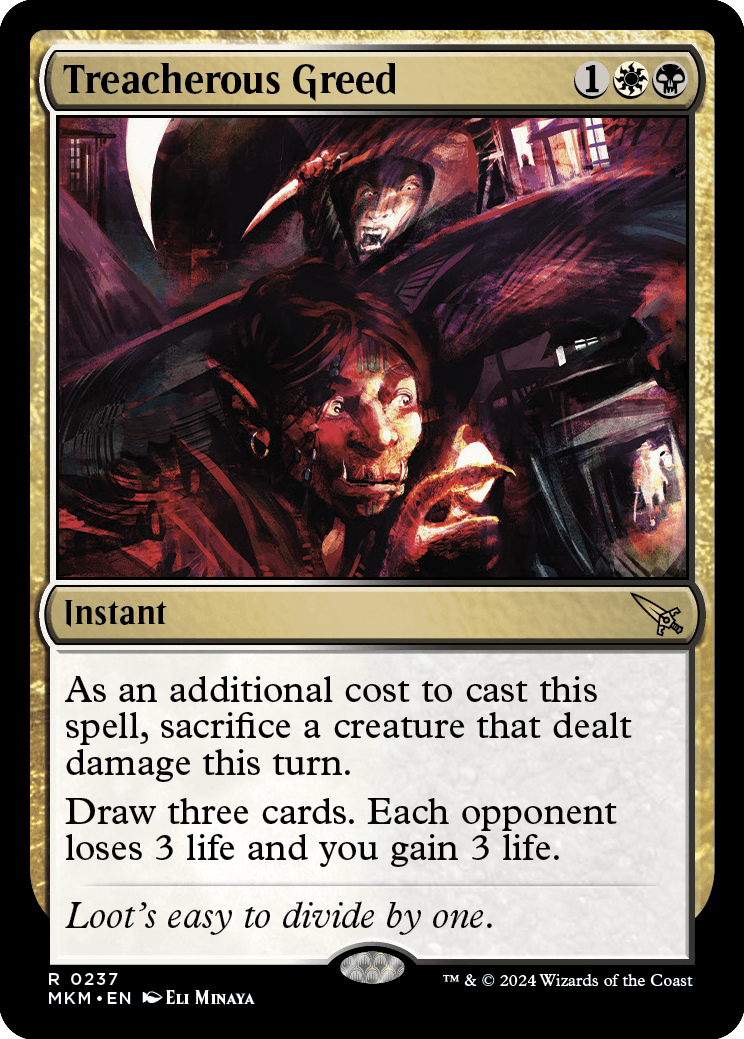
Treacherous Greed
{1}{W}{B}
Instant
As an additional cost to cast this spell, sacrifice a creature that dealt damage this turn.
Draw three cards. Each opponent loses 3 life and you gain 3 life.
- You can sacrifice any creature you control that dealt damage this turn to pay Treacherous Greed's additional cost, even if the permanent it dealt damage to is no longer on the battlefield or the player it dealt damage to is no longer in the game.
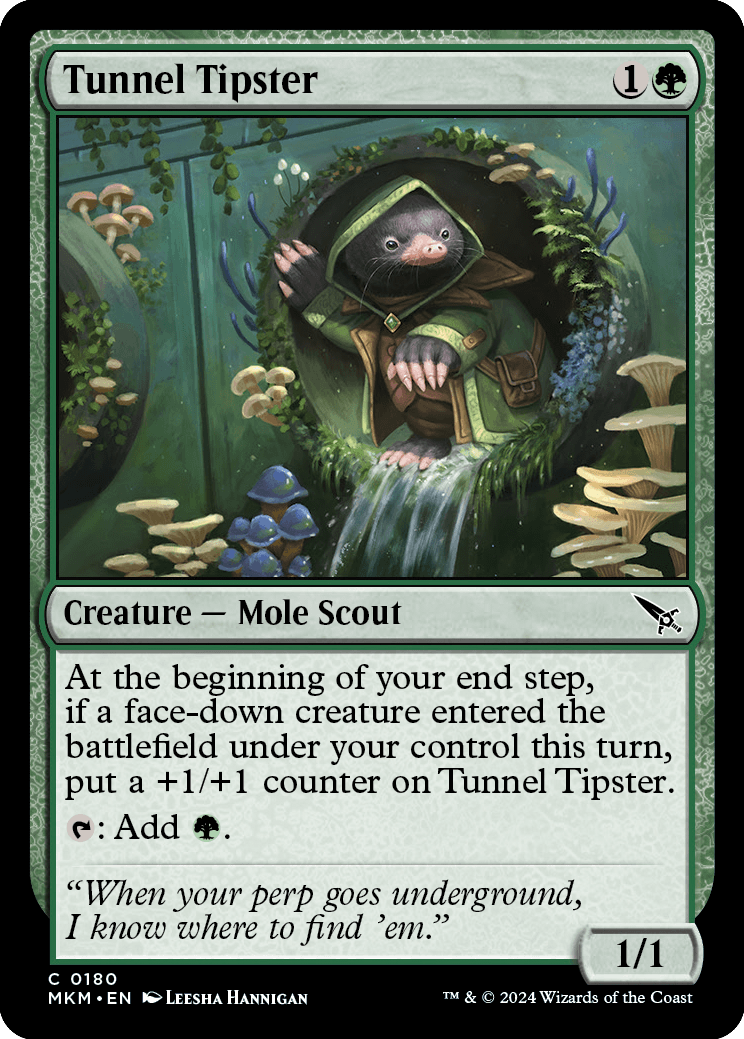
Tunnel Tipster
{1}{G}
Creature — Mole Scout
1/1
At the beginning of your end step, if a face-down creature entered the battlefield under your control this turn, put a +1/+1 counter on Tunnel Tipster.
{T}: Add {G}.
- Tunnel Tipster's first ability will trigger as long as a face-down creature entered the battlefield under your control this turn, even if that creature has turned face up or left the battlefield since. A creature that enters the battlefield face up and turns face down later in the turn won't cause Tunnel Tipster's first ability to trigger.
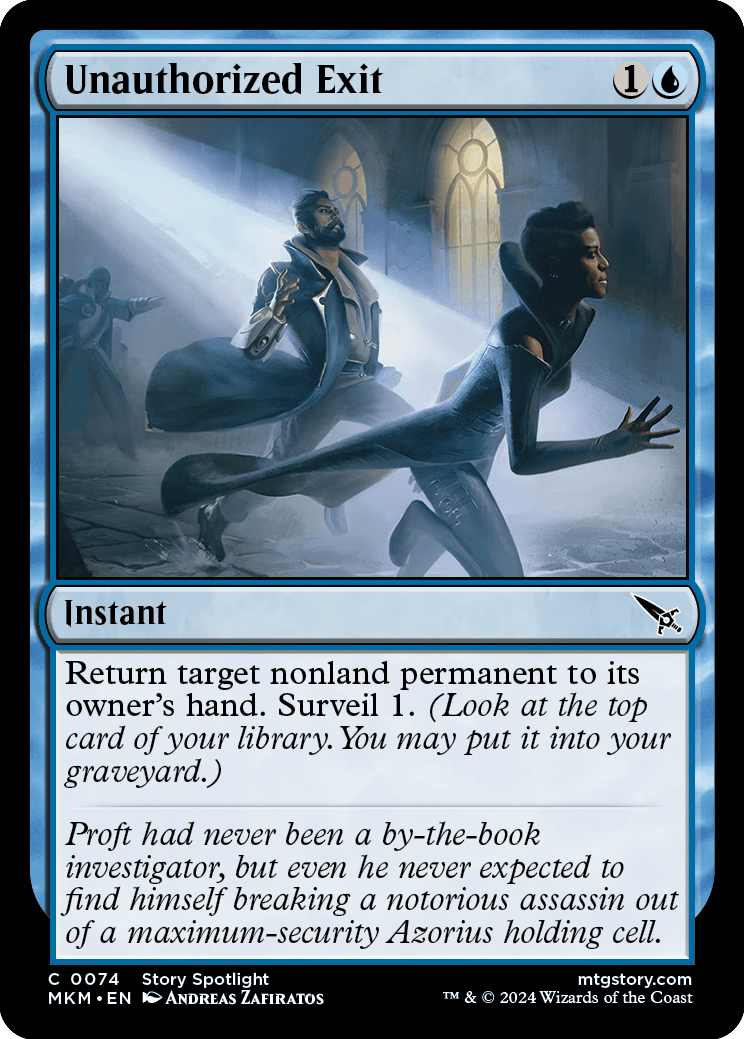
Unauthorized Exit
{1}{U}
Instant
Return target nonland permanent to its owner's hand. Surveil 1. (Look at the top card of your library. You may put it into your graveyard.)
- If the target nonland permanent is an illegal target as Unauthorized Exit tries to resolve, it won't resolve and none of its effects will happen. You won't surveil 1.
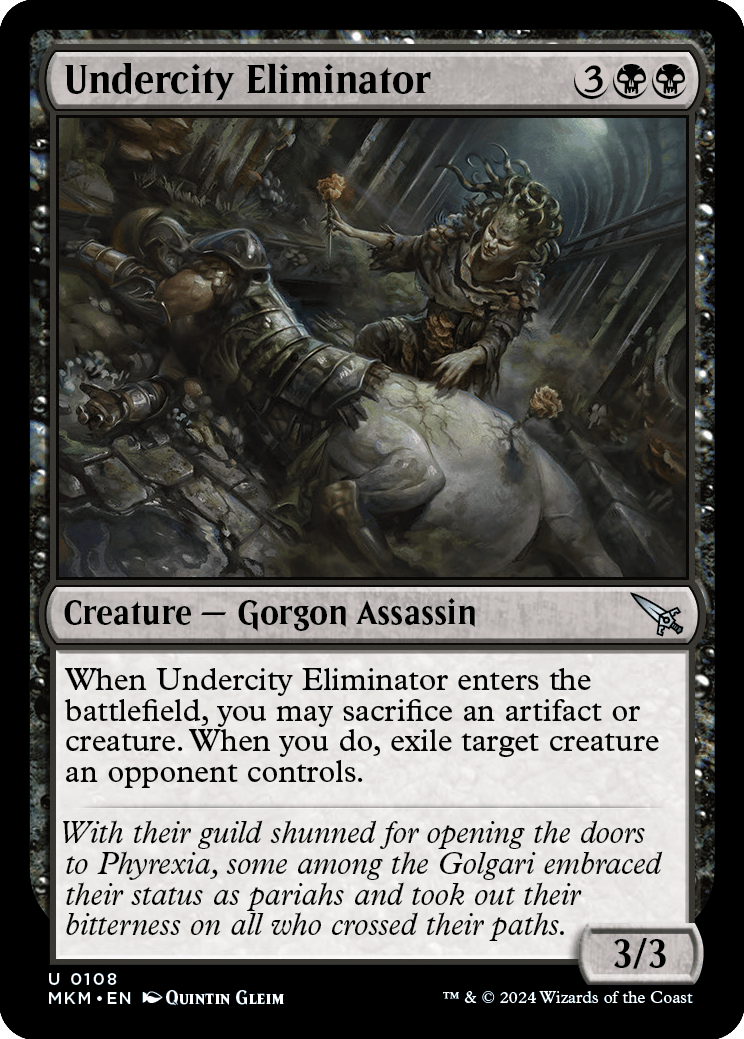
Undercity Eliminator
{3}{B}{B}
Creature — Gorgon Assassin
3/3
When Undercity Eliminator enters the battlefield, you may sacrifice an artifact or creature. When you do, exile target creature an opponent controls.
- You don't choose a target at the time Undercity Eliminator's ability triggers. Rather, a second "reflexive" ability triggers when you sacrifice an artifact or creature this way. You choose a target for that ability as it goes on the stack. Each player may respond to this triggered ability as normal.
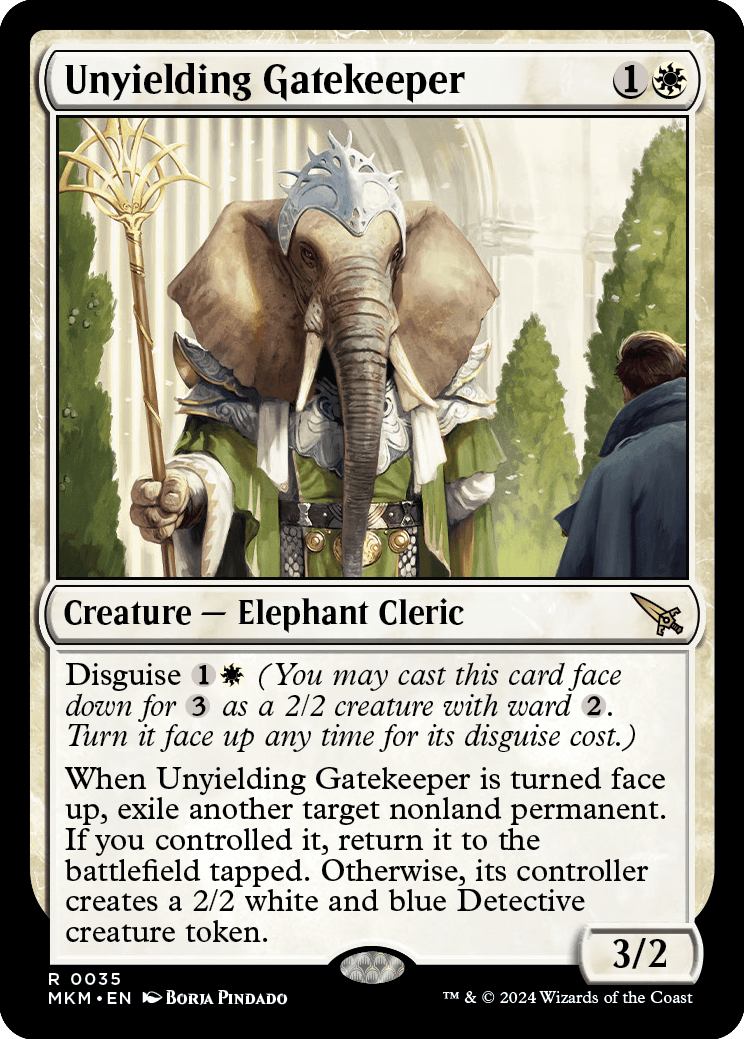
Unyielding Gatekeeper
{1}{W}
Creature — Elephant Cleric
3/2
Disguise {1}{W} (You may cast this card face down for {3} as a 2/2 creature with ward {2}. Turn it face up any time for its disguise cost.)
When Unyielding Gatekeeper is turned face up, exile another target nonland permanent. If you controlled it, return it to the battlefield tapped. Otherwise, its controller creates a 2/2 white and blue Detective creature token.
- If you controlled the target permanent earlier in the turn but not at the time Unyielding Gatekeeper's last ability resolves, you won't return it to the battlefield tapped. The player who controlled that permanent at the time it was exiled will create a Detective.
- If the controller of Unyielding Gatekeeper's last ability controlled the target permanent at the time the ability began to resolve, the permanent will return to the battlefield tapped under that player's control, regardless of who its owner is.
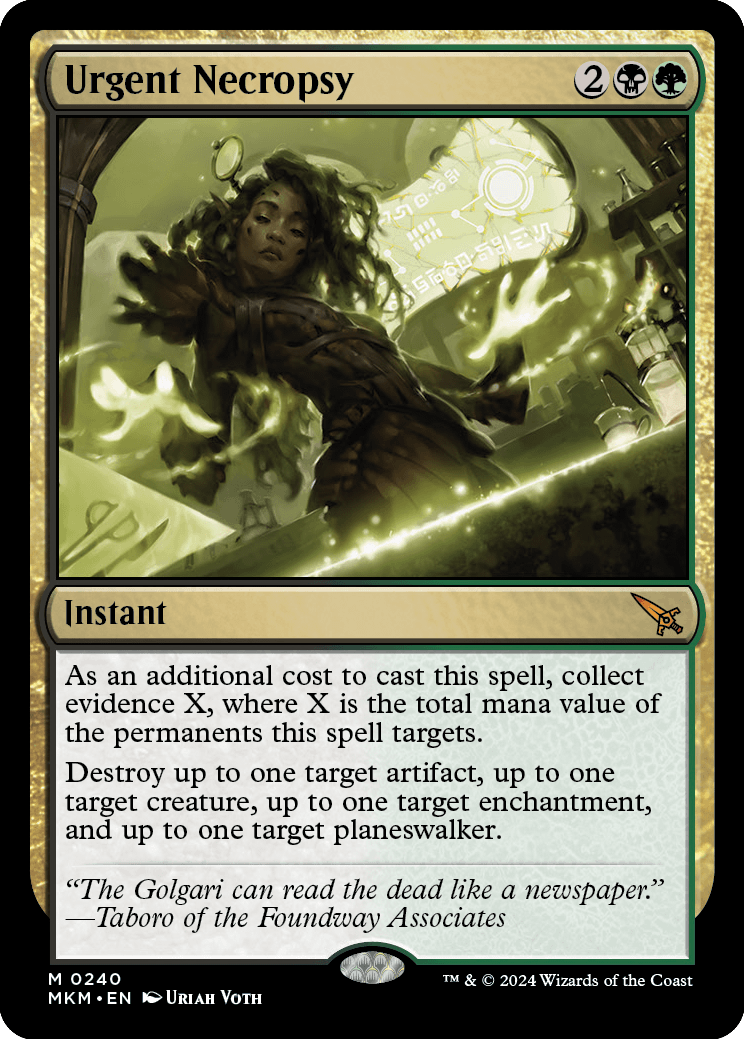
Urgent Necropsy
{2}{B}{G}
Instant
As an additional cost to cast this spell, collect evidence X, where X is the total mana value of the permanents this spell targets.
Destroy up to one target artifact, up to one target creature, up to one target enchantment, and up to one target planeswalker.
- The value of X is locked in after you choose targets but before you pay costs for Urgent Necropsy. In the extremely unusual case where the mana value of one or more of the targets changes while you're paying costs, the cost to cast Urgent Necropsy, including the additional cost, remains what you previously determined.
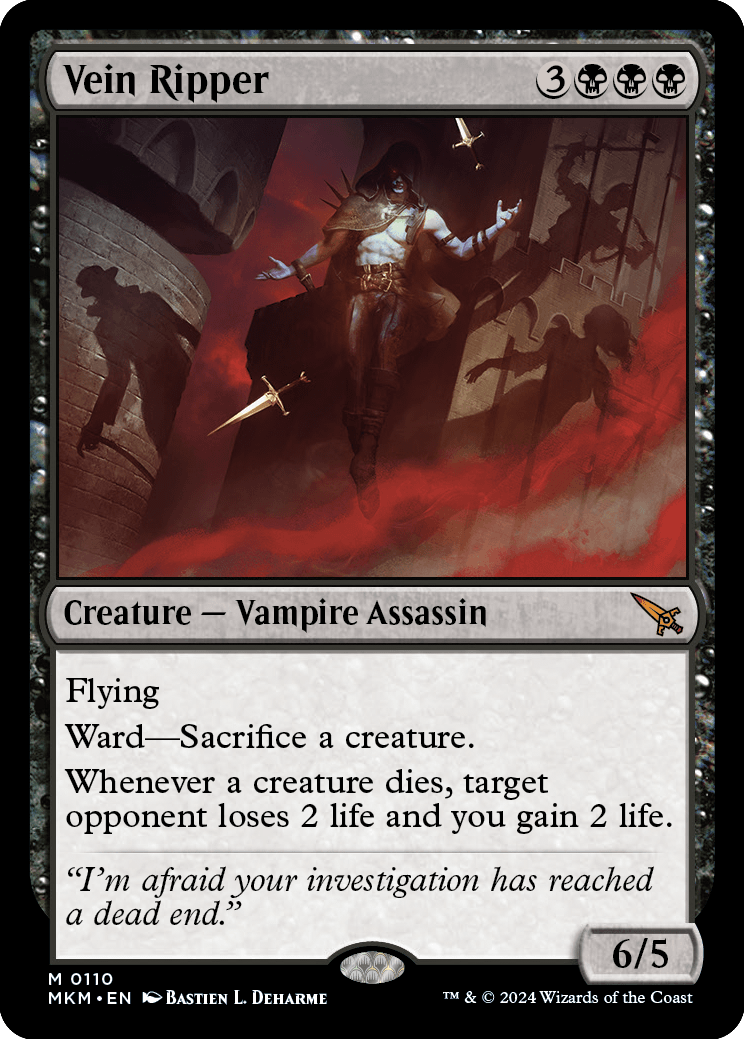
Vein Ripper
{3}{B}{B}{B}
Creature — Vampire Assassin
6/5
Flying
Ward—Sacrifice a creature.
Whenever a creature dies, target opponent loses 2 life and you gain 2 life.
- If Vein Ripper dies at the same time as one or more other creatures, its last ability triggers for each of those creatures.

Vitu-Ghazi Inspector
{1}{G}
Creature — Elf Detective
1/3
As an additional cost to cast this spell, you may collect evidence 6. (Exile cards with total mana value 6 or greater from your graveyard.)
Reach
When Vitu-Ghazi Inspector enters the battlefield, if evidence was collected, put a +1/+1 counter on target creature and you gain 2 life.
- If the target creature is an illegal target as Vitu-Ghazi Inspector's triggered ability tries to resolve, it won't resolve and none of its effects will happen. You won't gain life.
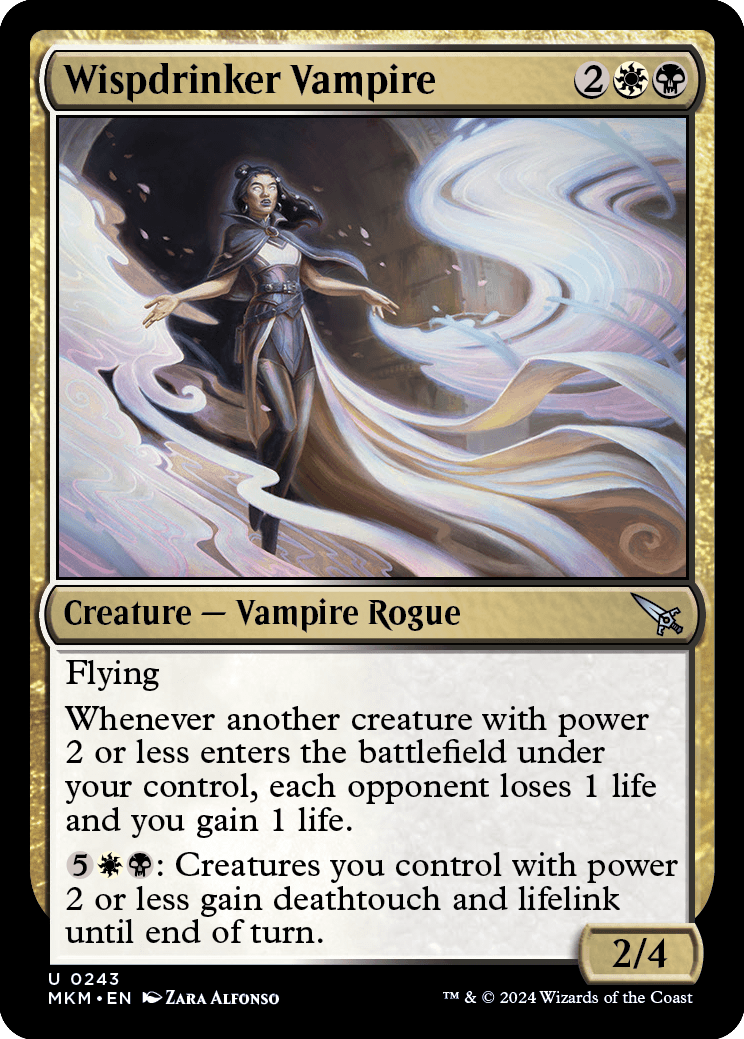
Wispdrinker Vampire
{2}{W}{B}
Creature — Vampire Rogue
2/4
Flying
Whenever another creature with power 2 or less enters the battlefield under your control, each opponent loses 1 life and you gain 1 life.
{5}{W}{B}: Creatures you control with power 2 or less gain deathtouch and lifelink until end of turn.
- Wispdrinker Vampire's triggered ability checks the power of a creature only at the moment it enters the battlefield. If it enters with counters, those counters are included. If that creature's power is 2 or less when it enters the battlefield but becomes greater than 2 after the ability triggers, each opponent will still lose 1 life and you'll still gain 1 life.
- Wispdrinker Vampire's activated ability affects only creatures you control at the time it resolves. Creatures you begin to control later in the turn won't get deathtouch or lifelink.
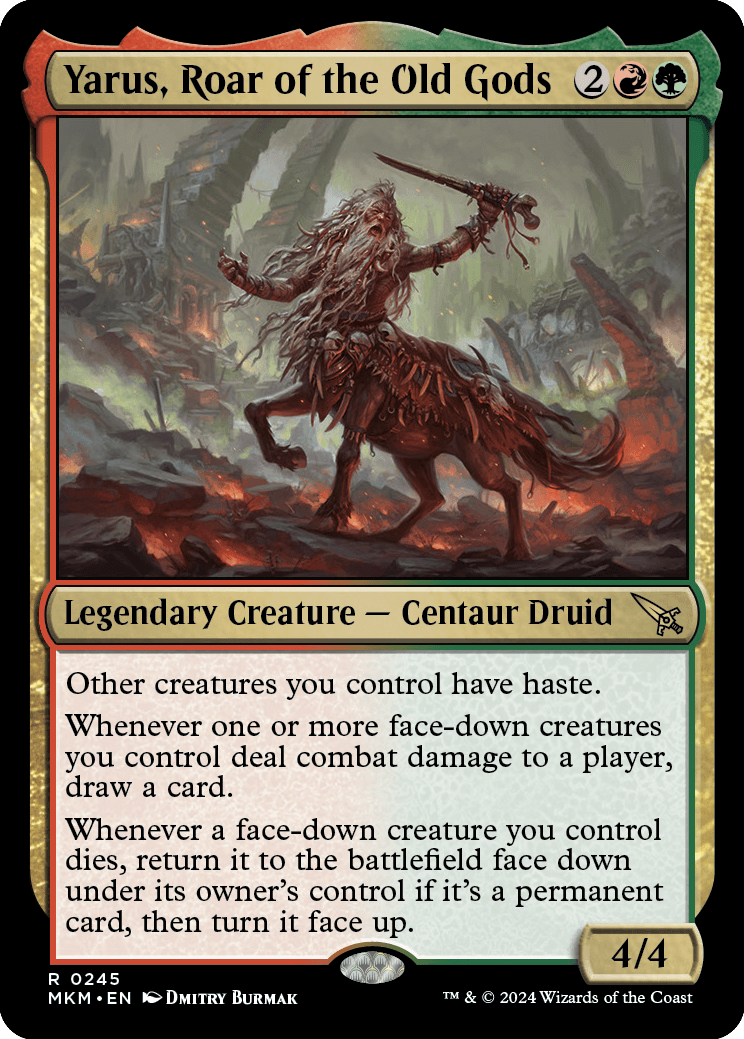
Yarus, Roar of the Old Gods
{2}{R}{G}
Legendary Creature — Centaur Druid
4/4
Other creatures you control have haste.
Whenever one or more face-down creatures you control deal combat damage to a player, draw a card.
Whenever a face-down creature you control dies, return it to the battlefield face down under its owner's control if it's a permanent card, then turn it face up.
- Normally, combat damage is dealt all at the same time. In that case, Yarus, Roar of the Old Gods's last ability triggers once for each player that face-down creatures you control dealt combat damage to, regardless of how many creatures were dealing that damage. If any of those face-down creatures have double strike or first strike, the ability will trigger once for each player dealt damage in each combat damage step.
- If Yarus, Roar of the Old Gods dies at the same time as one or more face-down creatures you control, its last ability triggers for each of those creatures.
- If a face-down creature dies but the permanent card it becomes in the graveyard leaves the graveyard before Yarus, Roar of the Old Gods's last ability resolves, it will not return to the battlefield.
- If a permanent card that would be returned to the battlefield face down by Yarus, Roar of the Old Gods's last ability can't be turned face up for some reason, it'll still be returned to the battlefield, but it will stay face down. In that case, it will be a 2/2 creature with no name, mana cost, or creature types. Since it isn't disguised or cloaked, it won't have ward {2}.
MURDERS AT KARLOV MANOR COMMANDER NEW CARD-SPECIFIC NOTES
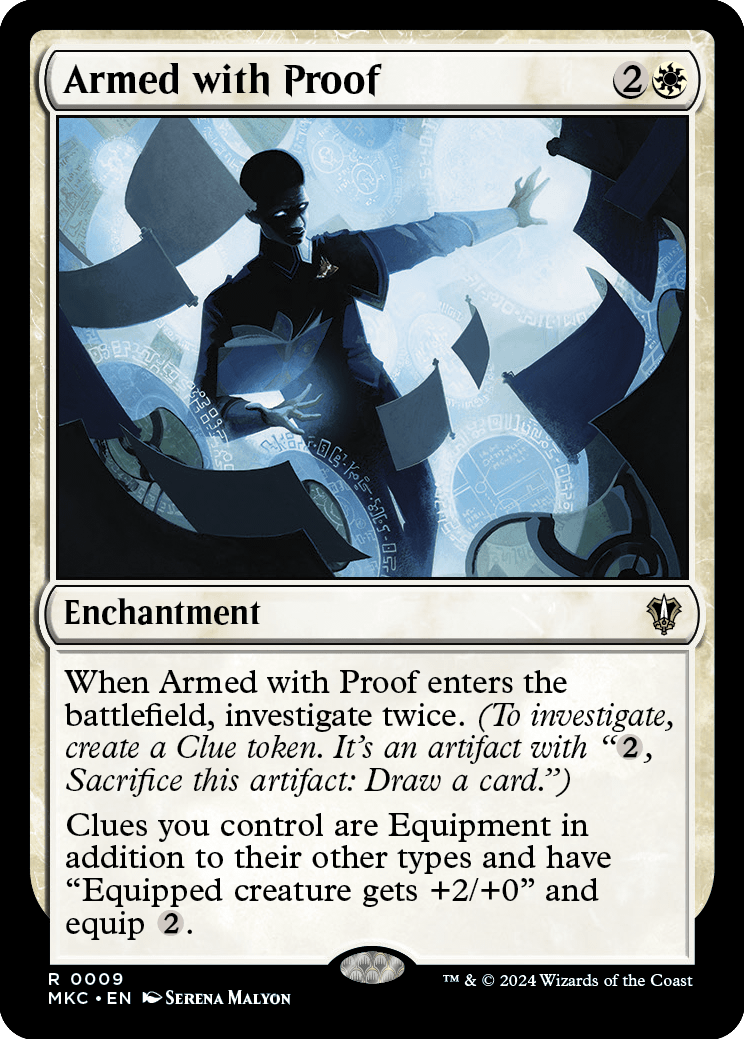
Armed with Proof
{2}{W}
Enchantment
When Armed with Proof enters the battlefield, investigate twice. (To investigate, create a Clue token. It's an artifact with "{2}, Sacrifice this artifact: Draw a card.")
Clues you control are Equipment in addition to their other types and have "Equipped creature gets +2/+0" and equip {2}.
- Clues stop being Equipment if Armed with Proof leaves the battlefield. If any of them are attached to creatures at that time, they become unattached.
- If you control more than one Armed with Proof, creatures equipped with Clue Equipment will get +2/+0 for each Armed with Proof you control. The equip cost is still {2}.
- An Equipment without reconfigure that's also a creature can't be attached to anything. You can activate its equip ability, but it won't become attached. For example, if you control both Red Herring and Armed with Proof, Red Herring will be an Artifact Creature – Clue Equipment Fish with "Equipped creature gets +2/+0" and equip {2}, but activating its equip ability won't result in it becoming attached to the target creature.
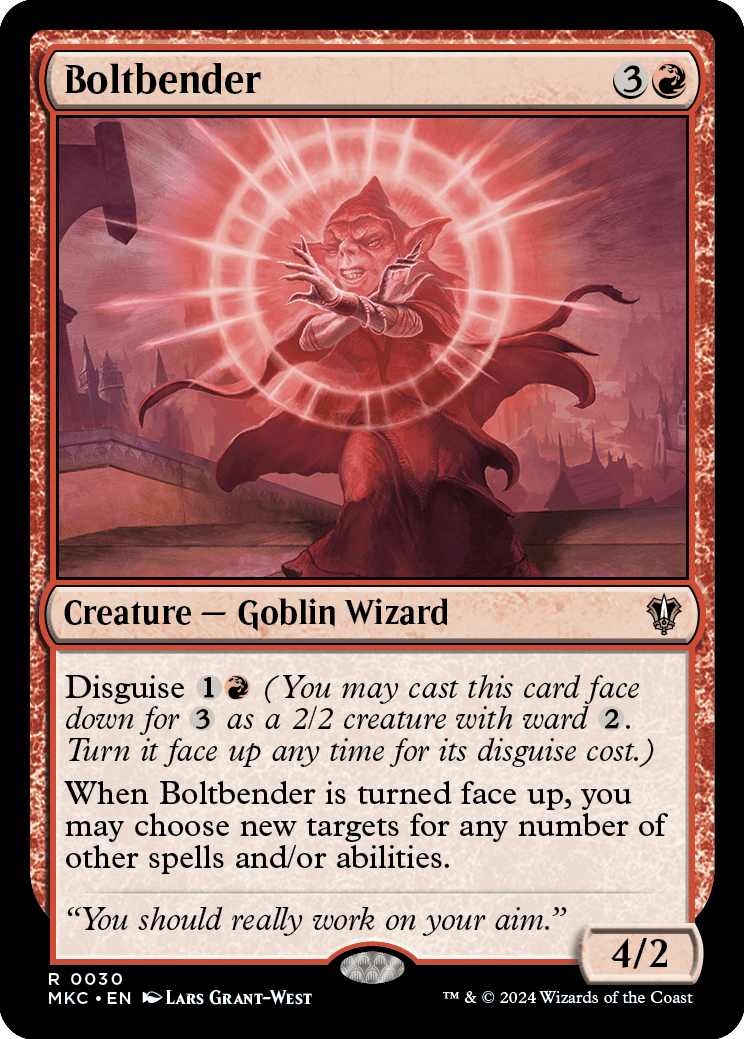
Boltbender
{3}{R}
Creature — Goblin Wizard
4/2
Disguise {1}{R} (You may cast this card face down for {3} as a 2/2 creature with ward {2}. Turn it face up any time for its disguise cost.)
When Boltbender is turned face up, you may choose new targets for any number of other spells and/or abilities.
- If you choose new targets for a spell or ability, those new targets must be legal.
- If a spell or ability has a variable number of targets, you can't change how many targets it has.
- If a spell or ability has damage divided, the division can't be changed, although the targets receiving that damage still can. The same is true of spells and abilities that distribute counters.
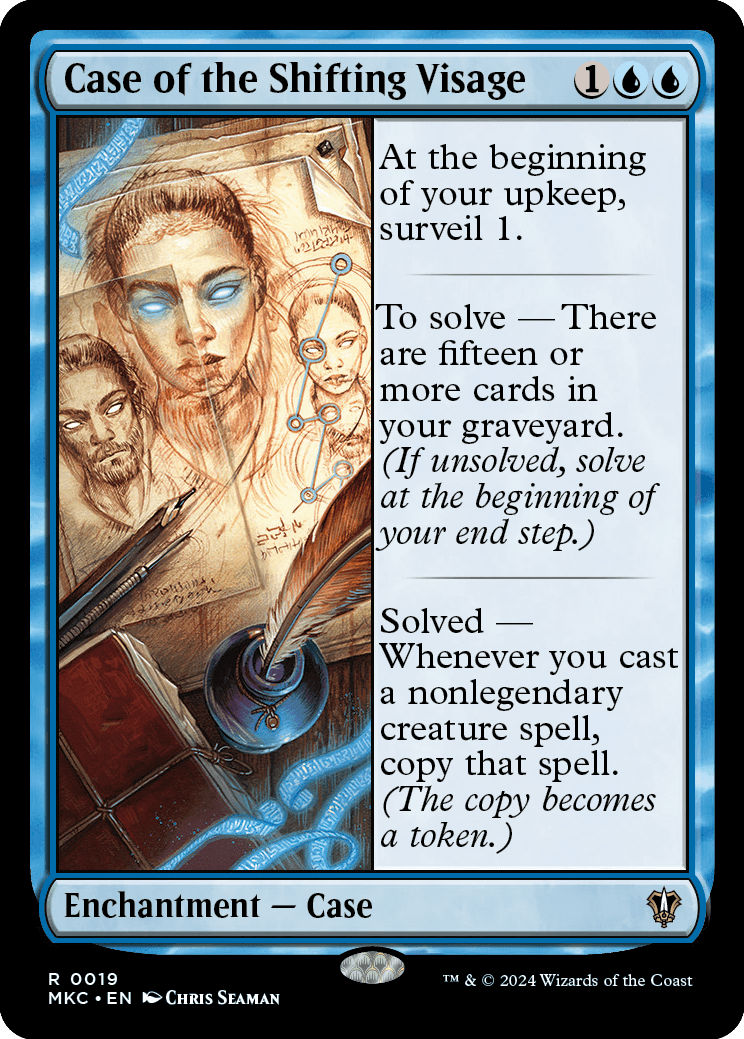
Case of the Shifting Visage
{1}{U}{U}
Enchantment — Case
At the beginning of your upkeep, surveil 1.
To solve — There are fifteen or more cards in your graveyard. (If unsolved, solve at the beginning of your end step.)
Solved — Whenever you cast a nonlegendary creature spell, copy that spell. (The copy becomes a token.)
- The triggered ability Case of the Shifting Visage has when it's solved and the copy it creates will resolve before the spell that caused the ability to trigger.
- The copy is created on the stack, so it's not "cast." Creating the copy won't cause abilities that trigger when a player casts a spell to trigger.
- If the spell that's copied has an X whose value was determined as it was cast, the copy has the same value of X.
- You can't choose to pay any additional costs for a copied spell. However, effects based on any additional costs that were paid for the original spell are copied as though those same costs were paid for the copy too.
- Any choices made when the spell resolves won't have been made yet when it's copied. Any such choices will be made separately when the copy resolves.
- If a permanent spell is copied, it's put onto the battlefield as a token as the spell resolves rather than putting the copy of the spell onto the battlefield. The rules that apply to a permanent spell becoming a permanent apply to a copy of a spell becoming a token.
- The token that a resolving copy of a permanent spell becomes isn't "created" and won't interact with abilities that care about tokens being created, such as that of Case of the Pilfered Proof.
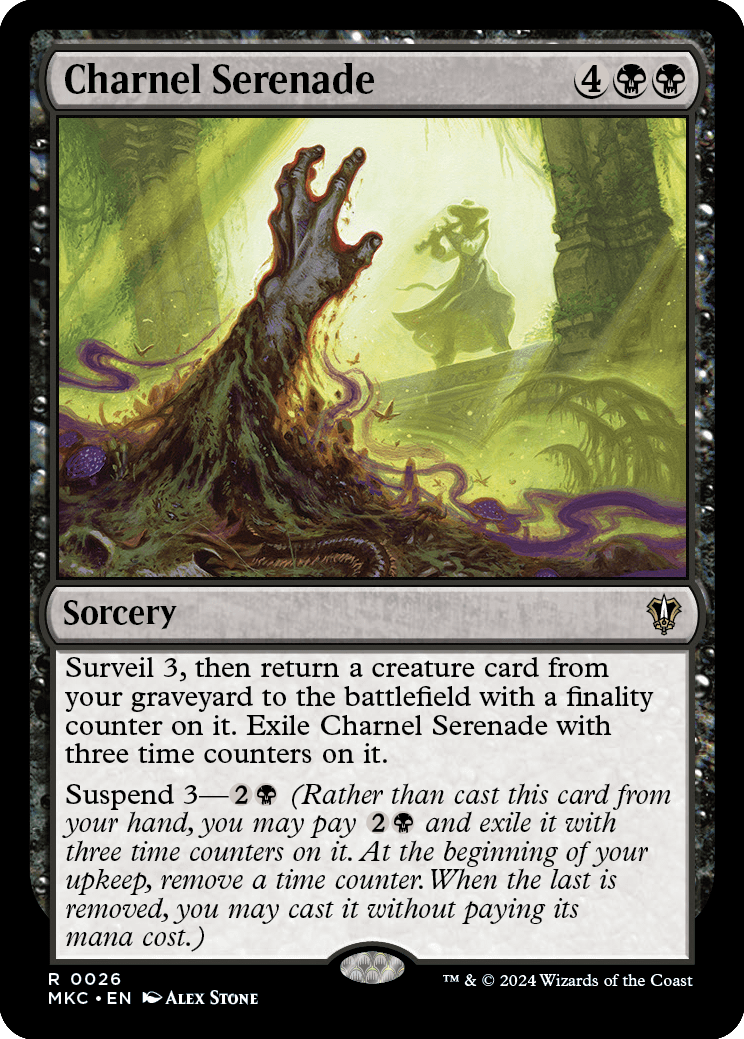
Charnel Serenade
{4}{B}{B}
Sorcery
Surveil 3, then return a creature card from your graveyard to the battlefield with a finality counter on it. Exile Charnel Serenade with three time counters on it.
Suspend 3—{2}{B} (Rather than cast this card from your hand, you may pay {2}{B} and exile it with three time counters on it. At the beginning of your upkeep, remove a time counter. When the last is removed, you may cast it without paying its mana cost.)
- The creature card you choose doesn't need to be a card you put in your graveyard with surveil. You may choose a creature card that was already in your graveyard before you surveilled.
- Finality counters work on any permanent, not only creatures. If a permanent with a finality counter on it would go to a graveyard from the battlefield, exile it instead.
- Finality counters don't stop permanents from going to zones other than the graveyard from the battlefield. For example, if a permanent with a finality counter on it would be put into its owner's hand from the battlefield, it does so normally.
- Finality counters aren't keyword counters, and a finality counter doesn't give any abilities to the permanent it's on. If that permanent loses its abilities and then would go to a graveyard, it will still be exiled instead.
- Multiple finality counters on a single permanent are redundant.
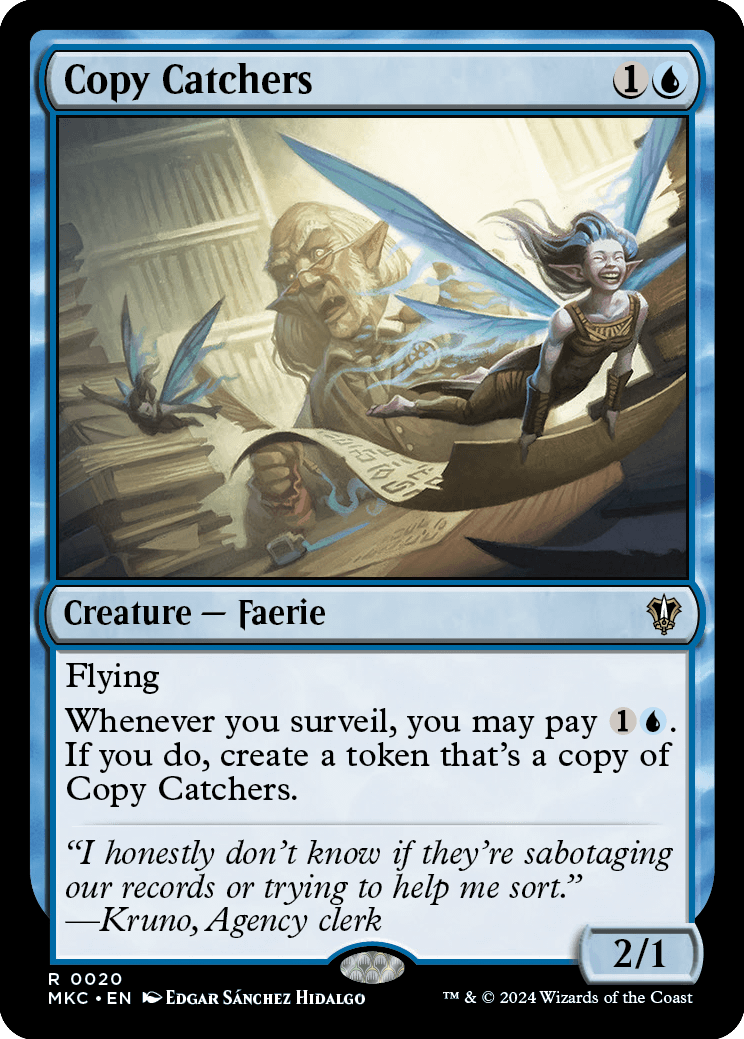
Copy Catchers
{1}{U}
Creature — Faerie
2/1
Flying
Whenever you surveil, you may pay {1}{U}. If you do, create a token that's a copy of Copy Catchers.
- An ability that triggers "whenever you surveil" triggers after you're done surveilling, even if you have fewer cards in your library than the number of cards you're instructed to surveil. It triggers even if you have no cards in your library.
- The token copy will have Copy Catchers's abilities and will be able to create copies of itself.
- The token doesn't copy whether Copy Catchers is tapped or untapped, whether it has any counters on it or Auras attached to it, or any non-copy effects that have changed its power, toughness, types, color, and so on.
- If Copy Catchers leaves the battlefield before its triggered ability resolves, the token will still enter the battlefield as a copy of Copy Catchers, using Copy Catchers's copiable values from when it was last on the battlefield.
- In the unusual case where Copy Catchers becomes a copy of something else while its triggered ability is on the stack but before it resolves, the token will enter the battlefield as a copy of whatever Copy Catchers is copying. (Do you copy? Over.)
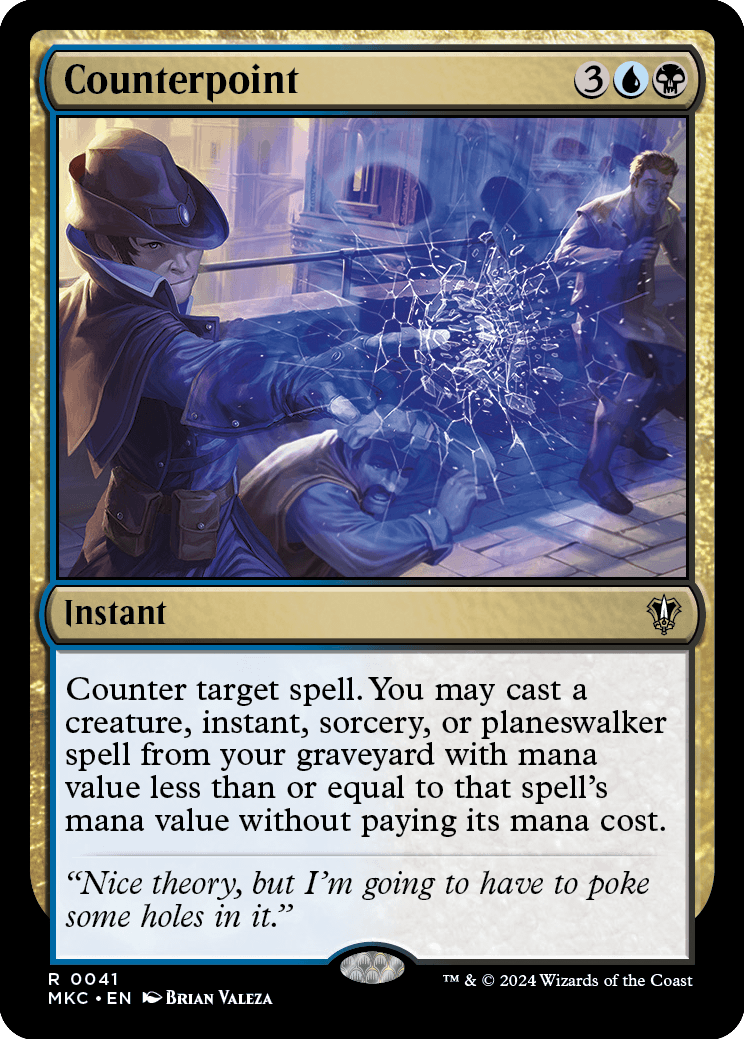
Counterpoint
{3}{U}{B}
Instant
Counter target spell. You may cast a creature, instant, sorcery, or planeswalker spell from your graveyard with mana value less than or equal to that spell's mana value without paying its mana cost.
- If the target spell has {X} in its mana cost, use the value chosen for X when determining that spell's mana value.
- If the target spell is an illegal target as Counterpoint tries to resolve, it won't resolve and none of its effects will happen.
- Alternatively, if the target spell is still a legal target but can't be countered, Counterpoint will still resolve and allow you to cast a spell from your graveyard with mana value less than or equal to the target spell's mana value.
- You cast the card from your graveyard as Counterpoint resolves. You can't wait to cast it later in the turn. Timing restrictions based on the card's types are ignored.
- If you cast a spell "without paying its mana cost," you can't choose to cast it for any alternative costs. You can, however, pay additional costs, such as kicker costs. If the card has any mandatory additional costs, those must be paid to cast the spell.
- If a spell you cast has {X} in its mana cost, you must choose 0 as the value of X when casting it without paying its mana cost.
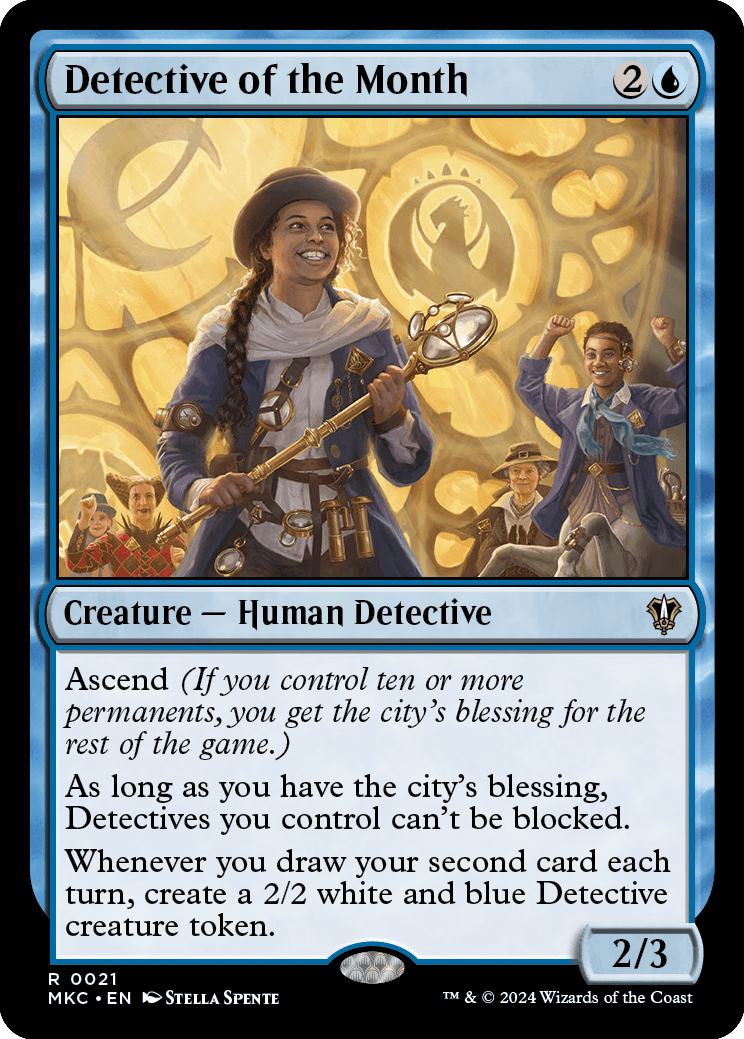
Detective of the Month
{2}{U}
Creature — Human Detective
2/3
Ascend (If you control ten or more permanents, you get the city's blessing for the rest of the game.)
As long as you have the city's blessing, Detectives you control can't be blocked.
Whenever you draw your second card each turn, create a 2/2 white and blue Detective creature token.
- If you cast a spell with ascend, you don't get the city's blessing until it resolves. Players may respond to that spell by trying to change whether you get the city's blessing.
- Once you have the city's blessing, you have it for the rest of the game, even if you lose control of some or all your permanents. The city's blessing isn't a permanent itself and can't be removed by any effect.
- A permanent is any object on the battlefield, including tokens and lands. Spells and emblems aren't permanents.
- If you control ten permanents but don't control a permanent or resolving spell with ascend, you don't get the city's blessing. For example, if you control ten permanents, lose control of two, then cast Detective of the Month, you won't have the city's blessing.
- If your tenth permanent enters the battlefield and then a permanent leaves the battlefield immediately afterwards (most likely due to the "legend rule" or due to being a creature with 0 toughness), you get the city's blessing before it leaves the battlefield.
- Ascend on a permanent isn't a triggered ability and doesn't use the stack. Players can respond to a spell that will give you your tenth permanent, but they can't respond to you getting the city's blessing once you control that tenth permanent. This means that if your tenth permanent is a land you play, players can't respond before you get the city's blessing.
- Gaining the city's blessing after a Detective you control has become blocked won't cause that Detective to become unblocked.
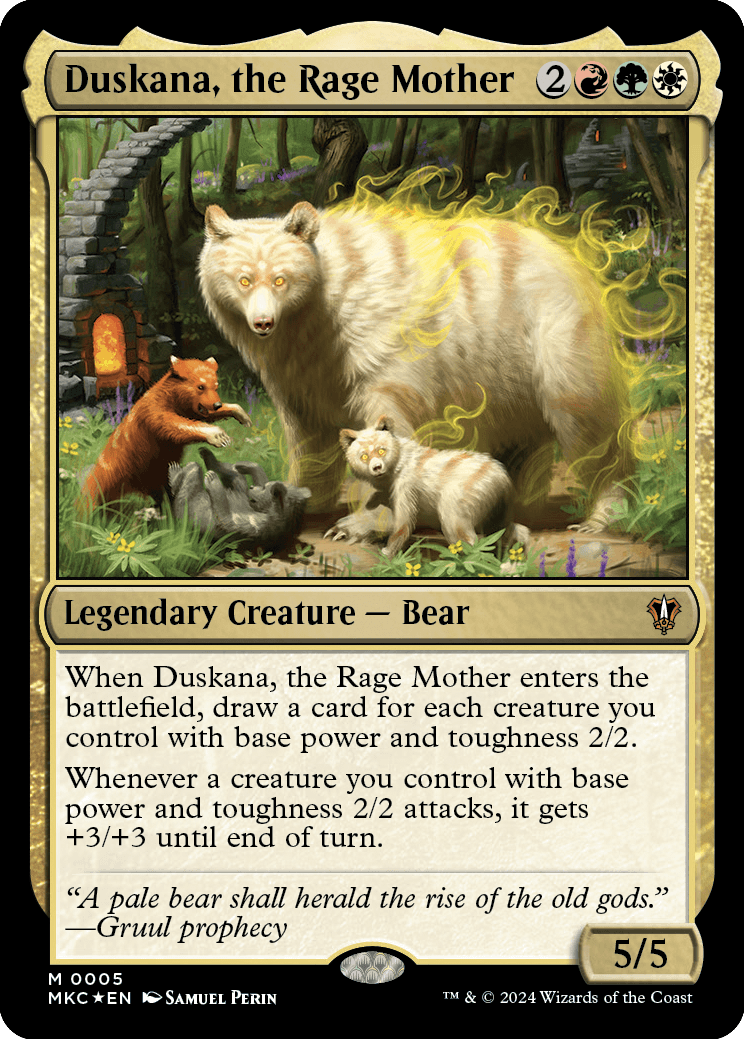
Duskana, the Rage Mother
{2}{R}{G}{W}
Legendary Creature — Bear
5/5
When Duskana, the Rage Mother enters the battlefield, draw a card for each creature you control with base power and toughness 2/2.
Whenever a creature you control with base power and toughness 2/2 attacks, it gets +3/+3 until end of turn.
- Normally, a creature's base power and toughness are the power and toughness printed on the card or, for a token, the power and toughness set by the effect that created it. If another effect sets a creature's power and toughness to specific numbers or values, those become its base power and toughness. If an effect modifies a creature's power and/or toughness without setting them, that is not included when determining its base power and toughness.
- If a creature has a characteristic-defining ability that sets its power and toughness, indicated with a */* or similar in the power and toughness box, that ability is taken into account when determining its base power and toughness.
- Some creatures have base power and toughness 0/0 and an ability that gives them a bonus based on some criteria. Those are not characteristic-defining abilities, and that ability doesn't change its base power and toughness.
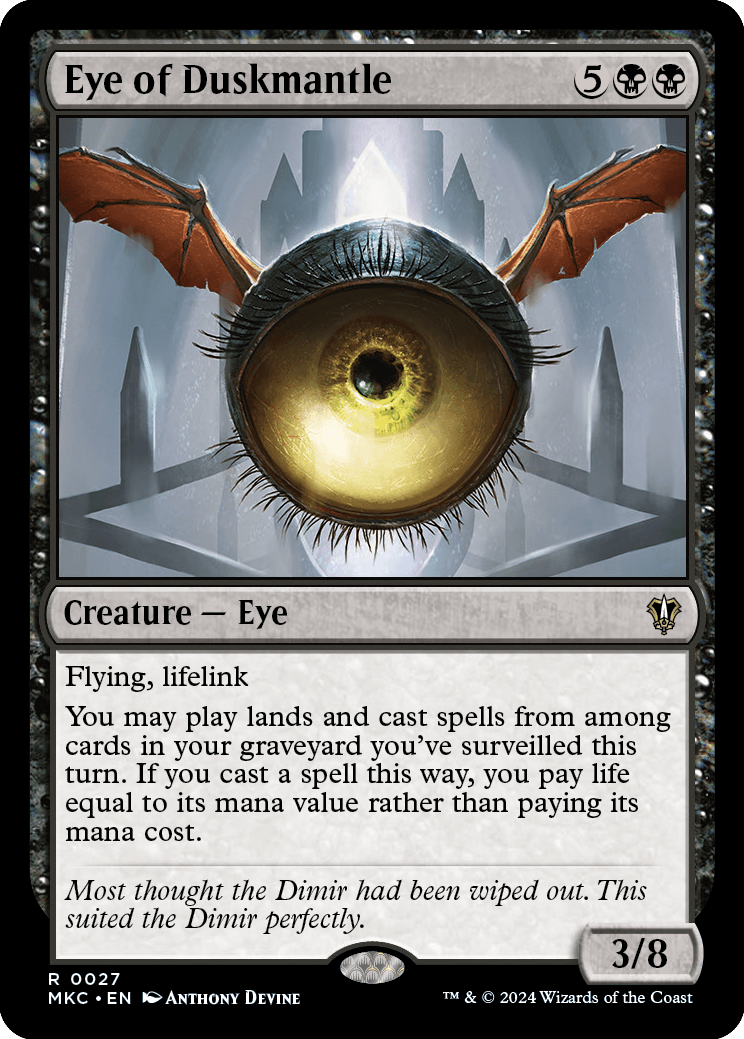
Eye of Duskmantle
{5}{B}{B}
Creature — Eye
3/8
Flying, lifelink
You may play lands and cast spells from among cards in your graveyard you've surveilled this turn. If you cast a spell this way, you pay life equal to its mana value rather than paying its mana cost.
- "Cards in your graveyard you've surveilled this turn" includes cards you put into your graveyard while surveilling. It does not include cards you saw while surveilling, left on top of your library, and then put into your graveyard later that turn by other means.
- You may only cast spells this way by paying the appropriate amount of life. You may not pay their normal costs and may not pay any other alternative costs. You may still pay for additional costs, such as kicker costs. If the spell has mandatory additional costs, you must pay those.
- If you cast a spell with {X} in its mana cost this way, the only legal choice for X is 0.
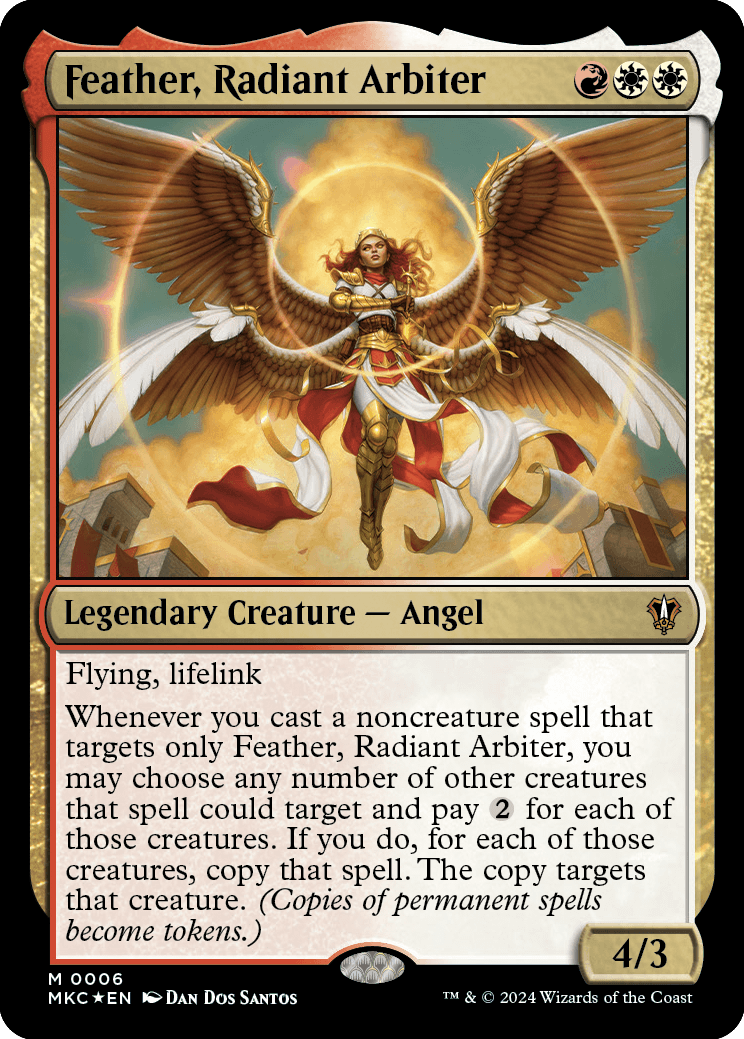
Feather, Radiant Arbiter
{R}{W}{W}
Legendary Creature — Angel
4/3
Flying, lifelink
Whenever you cast a noncreature spell that targets only Feather, Radiant Arbiter, you may choose any number of other creatures that spell could target and pay {2} for each of those creatures. If you do, for each of those creatures, copy that spell. The copy targets that creature. (Copies of permanent spells become tokens.)
- Feather, Radiant Arbiter's ability triggers whenever you cast a noncreature spell that targets only Feather and no other object or player.
- If you cast a noncreature spell that has multiple targets, but it's targeting Feather, Radiant Arbiter with all of them, Feather's last ability will trigger. In that case, each of those copies will also only target one of the chosen creatures.
- You control all the copies, and you choose the order the copies are put on the stack. The original spell will be on the stack beneath those copies and will resolve last.
- The copies created by Feather, Radiant Arbiter's last ability are created on the stack, so they're not cast. Abilities that trigger when a player casts a spell (like Feather's own ability) won't trigger.
- If the spell that's copied is modal (that is, it says "Choose one —" or the like), the copies will have the same mode. You can't choose different modes.
- If the spell that's copied has an X whose value was determined as it was cast, the copies have the same value of X.
- You can't choose to pay any alternative or additional costs for the copies. However, effects based on any alternative or additional costs that were paid for the original spell are copied as though those same costs were paid for the copy.
- Any choices made when the spell resolves won't have been made yet when it's copied. Any such choices will be made separately when the copy resolves.
- If a permanent spell is copied, the copies are put onto the battlefield as a token as the spell resolves rather than putting the copy of the spell onto the battlefield. The rules that apply to a permanent spell becoming a permanent apply to a copy of a spell becoming a token.
- The token that a resolving copy of a permanent spell becomes isn't "created" and won't interact with abilities that care about tokens being created, such as that of Case of the Pilfered Proof.
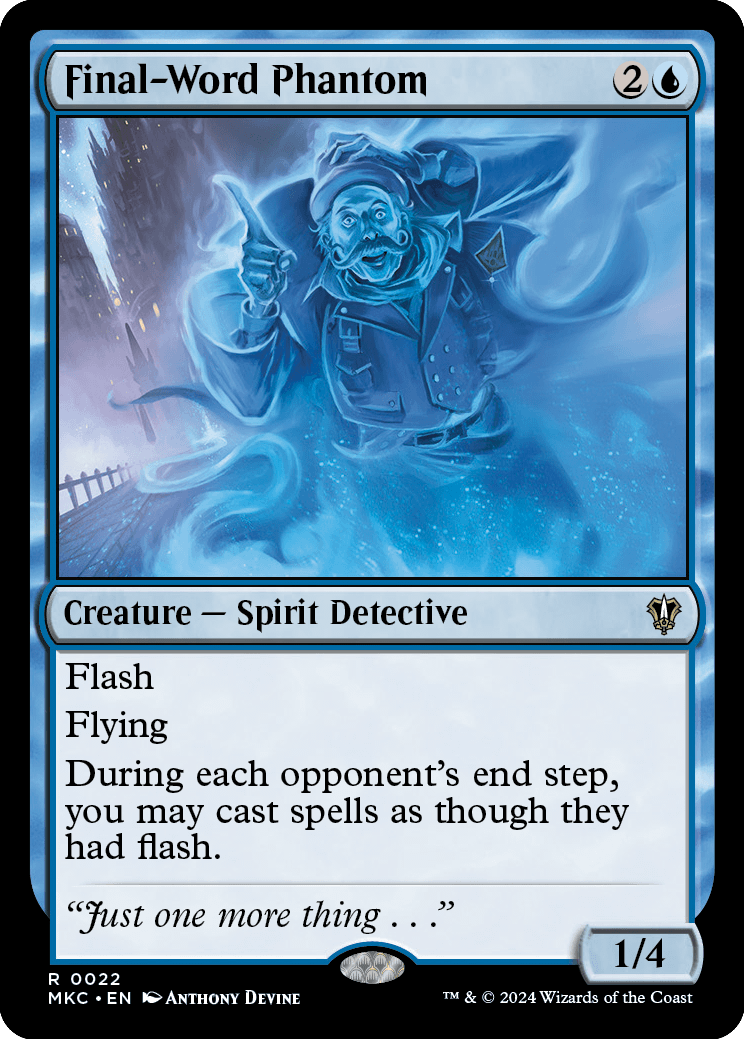
Final-Word Phantom
{2}{U}
Creature — Spirit Detective
1/4
Flash
Flying
During each opponent's end step, you may cast spells as though they had flash.
- Final-Word Phantom's last ability applies only to casting spells. It does not, for example, change when you may activate abilities that can be activated "only as a sorcery."
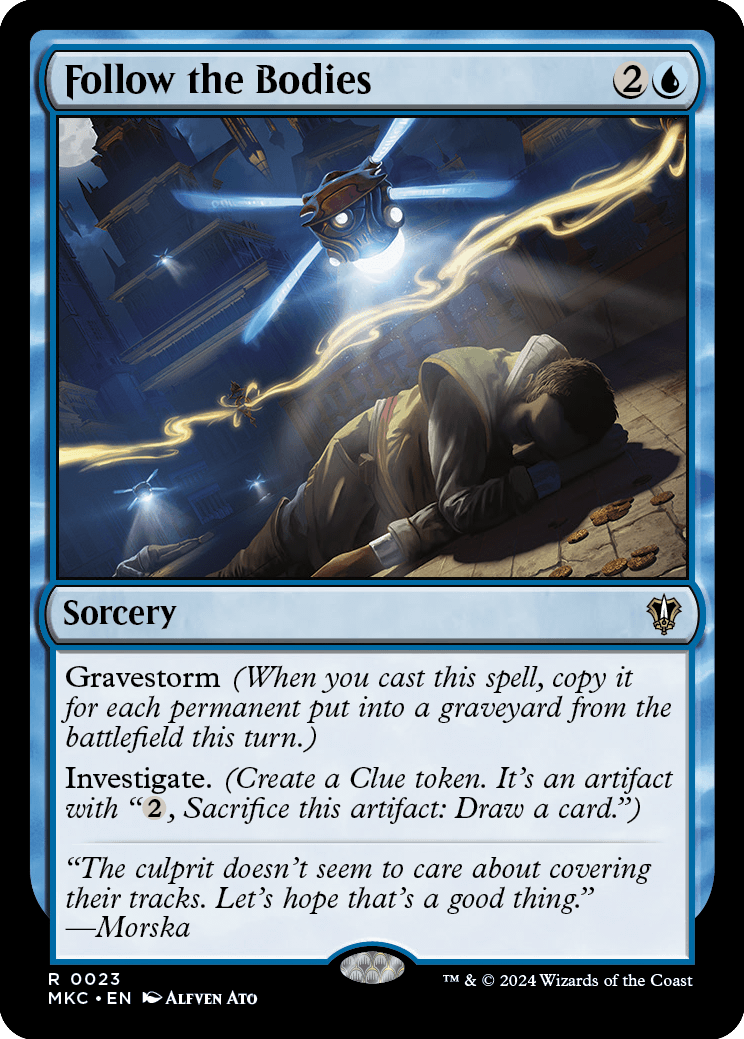
Follow the Bodies
{2}{U}
Sorcery
Gravestorm (When you cast this spell, copy it for each permanent put into a graveyard from the battlefield this turn.)
Investigate. (Create a Clue token. It's an artifact with "{2}, Sacrifice this artifact: Draw a card.")
- Gravestorm counts all permanents put into graveyards from the battlefield this turn. It doesn't matter who controlled those permanents, who owns them, or whether or not they were tokens.
- The copies of Follow the Bodies created by its gravestorm ability are created on the stack, so they're not cast and won't cause abilities that trigger when a player casts a spell to trigger.
- A copy of a spell can be countered like any other spell, but it must be countered individually. Countering a spell with gravestorm won't affect the copies.
- The triggered ability that creates the copies can itself be countered by anything that can counter a triggered ability. If it is countered, no copies will be put onto the stack.
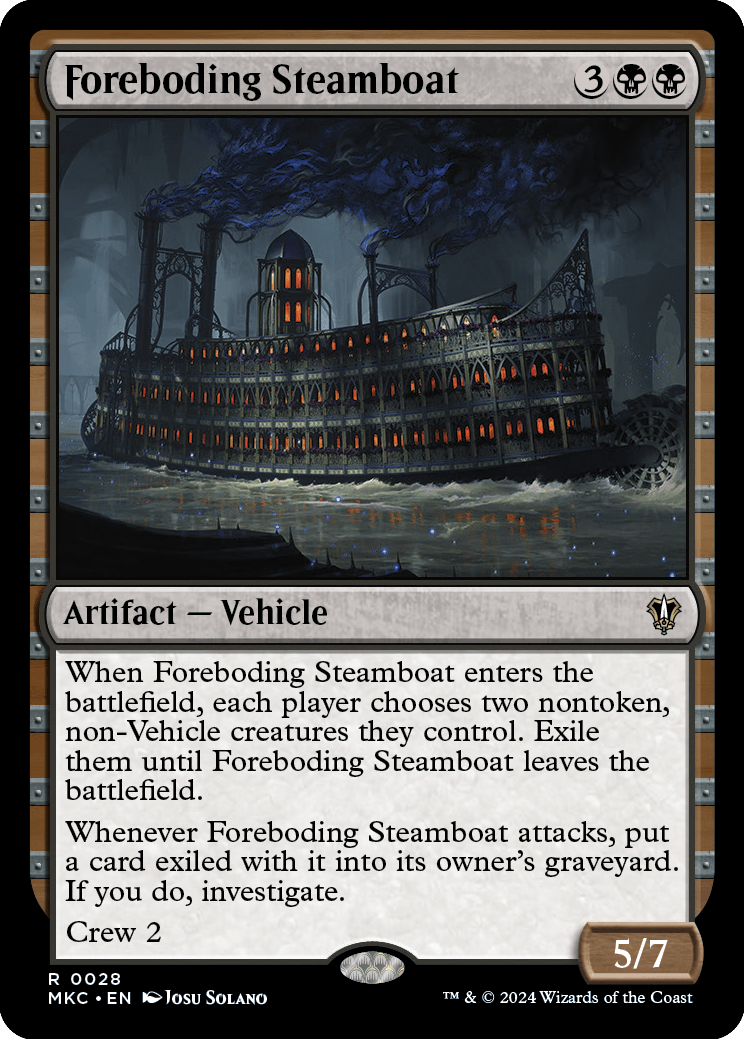
Foreboding Steamboat
{3}{B}{B}
Artifact — Vehicle
5/7
When Foreboding Steamboat enters the battlefield, each player chooses two nontoken, non-Vehicle creatures they control. Exile them until Foreboding Steamboat leaves the battlefield.
Whenever Foreboding Steamboat attacks, put a card exiled with it into its owner's graveyard. If you do, investigate.
Crew 2
- Starting with the player whose turn it is, each player in turn order chooses two nontoken, non-Vehicle creatures they control, then all the creatures chosen by all players are exiled at the same time. Players get to know the choices made by players who chose before them.
- If Foreboding Steamboat leaves the battlefield before its first triggered ability resolves, the chosen creatures won't be exiled at all.
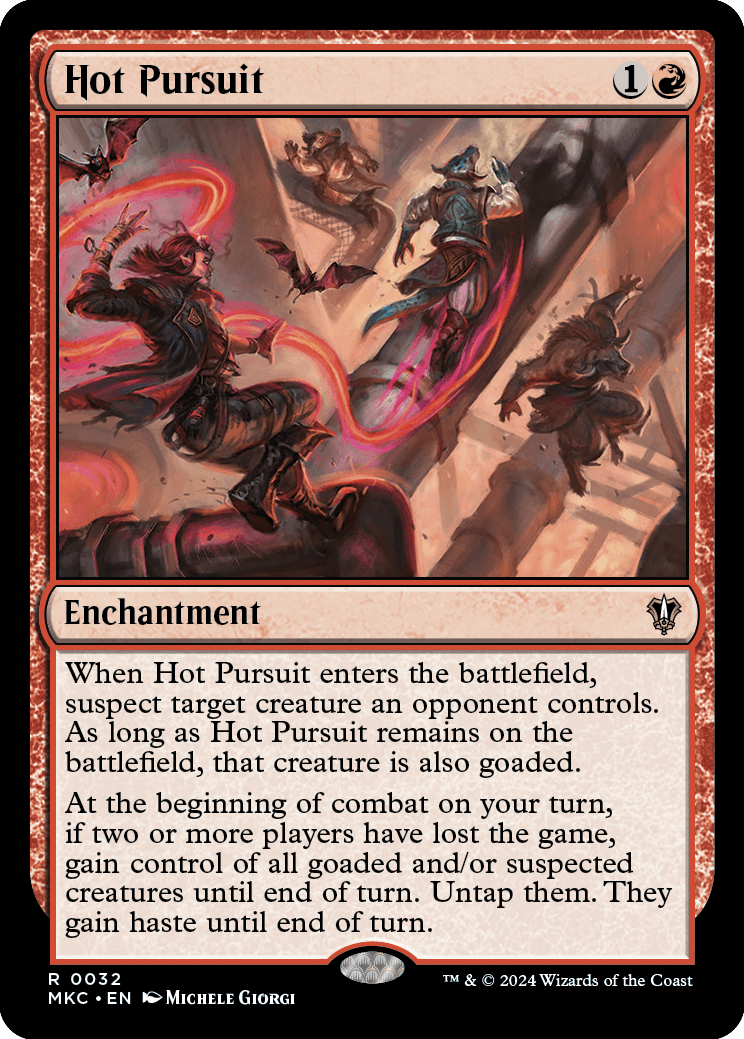
Hot Pursuit
{1}{R}
Enchantment
When Hot Pursuit enters the battlefield, suspect target creature an opponent controls. As long as Hot Pursuit remains on the battlefield, that creature is also goaded.
At the beginning of combat on your turn, if two or more players have lost the game, gain control of all goaded and/or suspected creatures until end of turn. Untap them. They gain haste until end of turn.
- If Hot Pursuit leaves the battlefield before its first triggered ability resolves, the target creature will become suspected, but it won't become goaded at all.
- Hot Pursuit's second triggered ability causes you to gain control of all creatures that are goaded, suspected, or both. You don't have to make any choices.
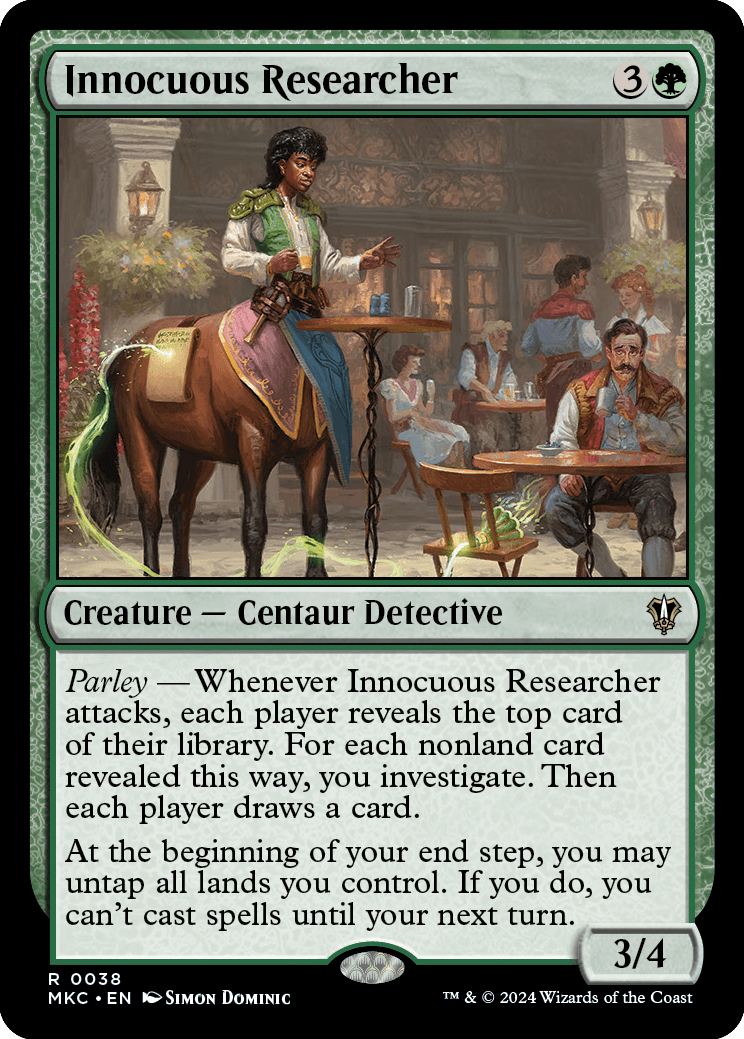
Innocuous Researcher
{3}{G}
Creature — Centaur Detective
3/4
Parley — Whenever Innocuous Researcher attacks, each player reveals the top card of their library. For each nonland card revealed this way, you investigate. Then each player draws a card.
At the beginning of your end step, you may untap all lands you control. If you do, you can't cast spells until your next turn.
- Except in some very unusual cases, the card each player reveals is the one they'll draw.
- There's no window for you to cast spells after untapping all lands you control but before the "you can't cast spells" portion of Innocuous Researcher's last ability takes effect. Once that ability resolves, it doesn't matter whether Innocuous Researcher stays on the battlefield; you'll still be unable to cast spells until your next turn begins.
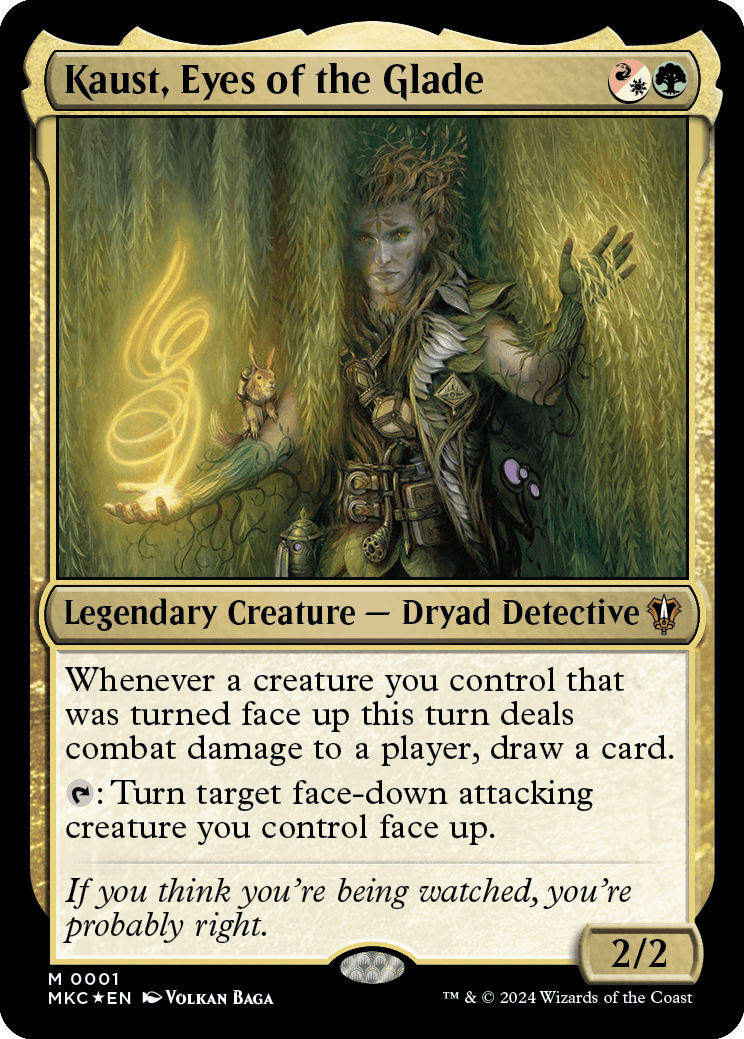
Kaust, Eyes of the Glade
{R/W}{G}
Legendary Creature — Dryad Detective
2/2
Whenever a creature you control that was turned face up this turn deals combat damage to a player, draw a card.
{T}: Turn target face-down attacking creature you control face up.
- The creature must have been turned face up before dealing combat damage to a player for Kaust, Eyes of the Glade's first ability to trigger.
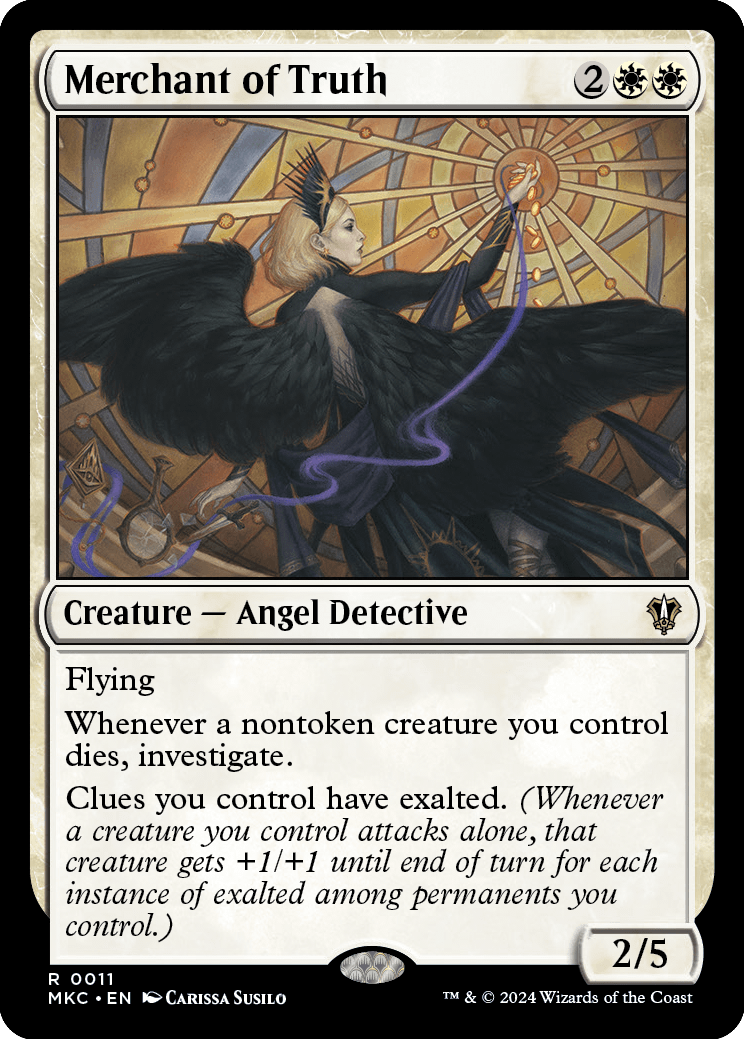
Merchant of Truth
{2}{W}{W}
Creature — Angel Detective
2/5
Flying
Whenever a nontoken creature you control dies, investigate.
Clues you control have exalted. (Whenever a creature you control attacks alone, that creature gets +1/+1 until end of turn for each instance of exalted among permanents you control.)
- If Merchant of Truth dies at the same time as one or more other nontoken creatures you control, its second ability will trigger for each of those creatures.
- A creature attacks alone if it's the only creature declared as an attacker during the declare attackers step (including creatures controlled by your teammates, if applicable). For example, exalted won't trigger if you attack with multiple creatures and all but one of them are removed from combat. Similarly, creatures that enter the battlefield attacking later in combat won't affect exalted abilities that have already triggered or resolved.
- If you control multiple Merchants of Truth, Clues you control will have multiple instances of exalted.
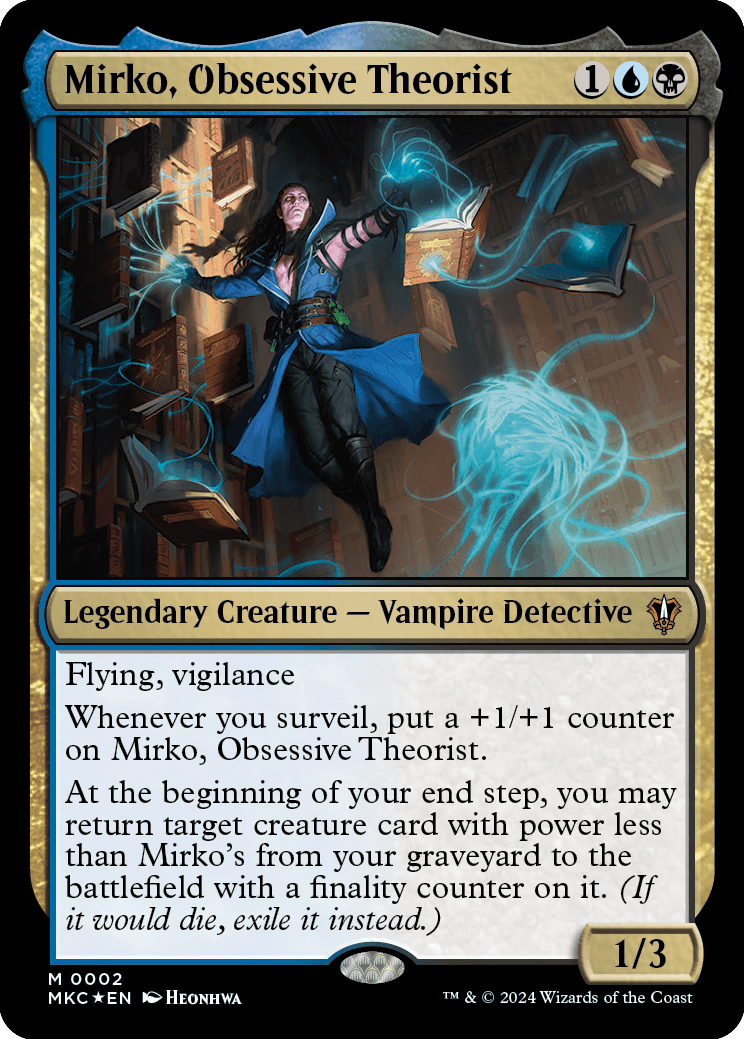
Mirko, Obsessive Theorist
{1}{U}{B}
Legendary Creature — Vampire Detective
1/3
Flying, vigilance
Whenever you surveil, put a +1/+1 counter on Mirko, Obsessive Theorist.
At the beginning of your end step, you may return target creature card with power less than Mirko's from your graveyard to the battlefield with a finality counter on it. (If it would die, exile it instead.)
- An ability that triggers "whenever you surveil" triggers after you're done surveilling, even if you have fewer cards in your library than the number of cards you're instructed to surveil. It even triggers if you have no cards in your library.
- Finality counters work on any permanent, not only creatures. If a permanent with a finality counter on it would go to a graveyard from the battlefield, exile it instead.
- Finality counters don't stop permanents from going to zones other than the graveyard from the battlefield. For example, if a permanent with a finality counter on it would be put into its owner's hand from the battlefield, it does so normally.
- Finality counters aren't keyword counters, and a finality counter doesn't give any abilities to the permanent it's on. If that permanent loses its abilities and then would go to a graveyard, it will still be exiled instead.
- Multiple finality counters on a single permanent are redundant.
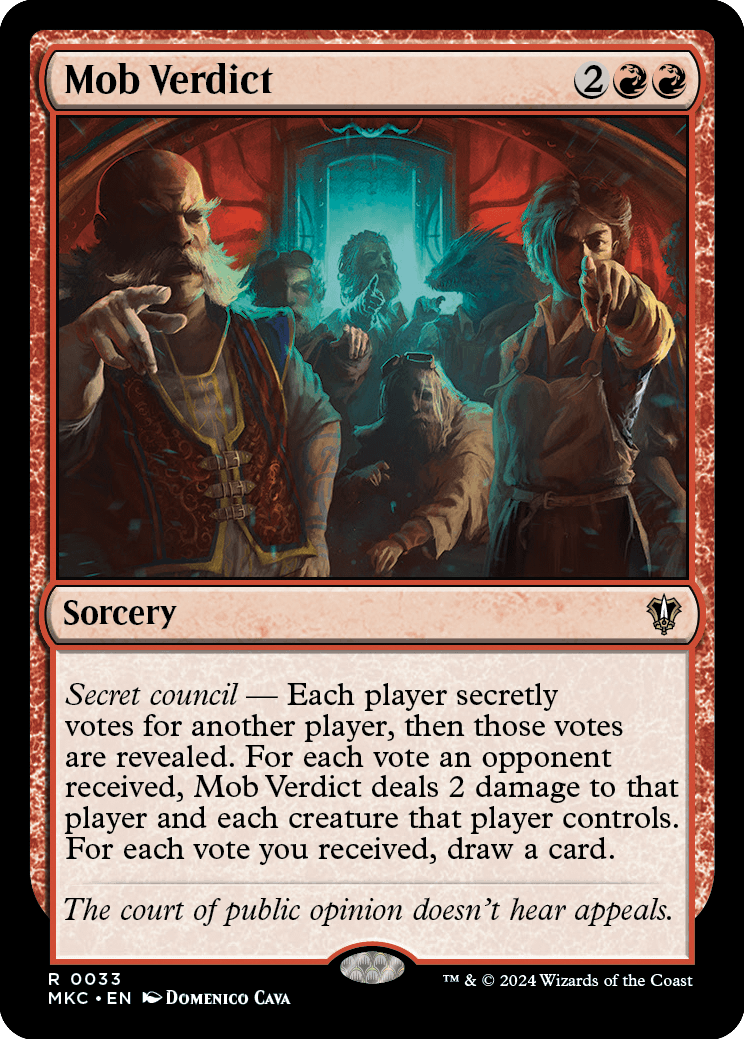
Mob Verdict
{2}{R}{R}
Sorcery
Secret council — Each player secretly votes for another player, then those votes are revealed. For each vote an opponent received, Mob Verdict deals 2 damage to that player and each creature that player controls. For each vote you received, draw a card.
- To secretly vote, each player writes down their chosen option without showing it to anyone else. Each player then keeps their vote secret until all players simultaneously reveal their votes.
- Before secret votes are revealed, players may announce how they intend to vote, but they can't reveal what they actually wrote down until all votes are simultaneously revealed. Players can lie about how they intend to vote before the votes are revealed.
- Abilities that trigger "whenever players finish voting" trigger once all players have voted or once all secret votes are revealed, but they won't go on the stack until the current spell or ability finishes resolving.
- Each player must vote for another player. They can't abstain.
- Votes are cast during the resolution of Mob Verdict, so any responses to Mob Verdict must be made without knowing the outcome of the vote.
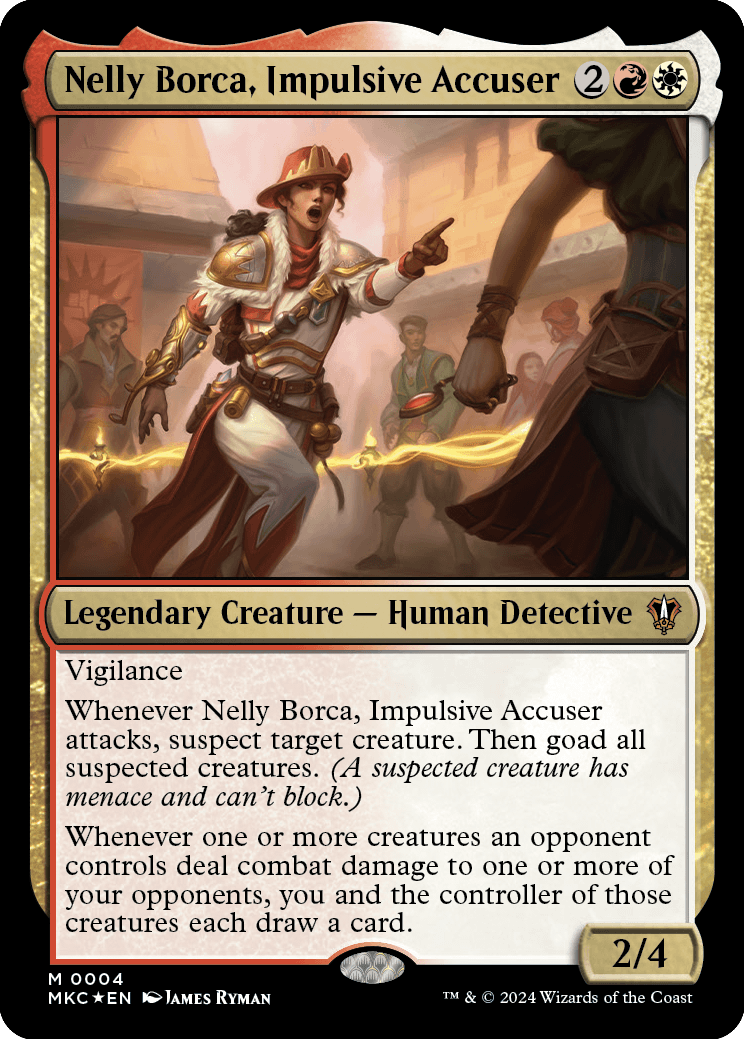
Nelly Borca, Impulsive Accuser
{2}{R}{W}
Legendary Creature — Human Detective
2/4
Vigilance
Whenever Nelly Borca, Impulsive Accuser attacks, suspect target creature. Then goad all suspected creatures. (A suspected creature has menace and can't block.)
Whenever one or more creatures an opponent controls deal combat damage to one or more of your opponents, you and the controller of those creatures each draw a card.
- You can target a creature that's already suspected with Nelly Borca, Impulsive Accuser's second ability.
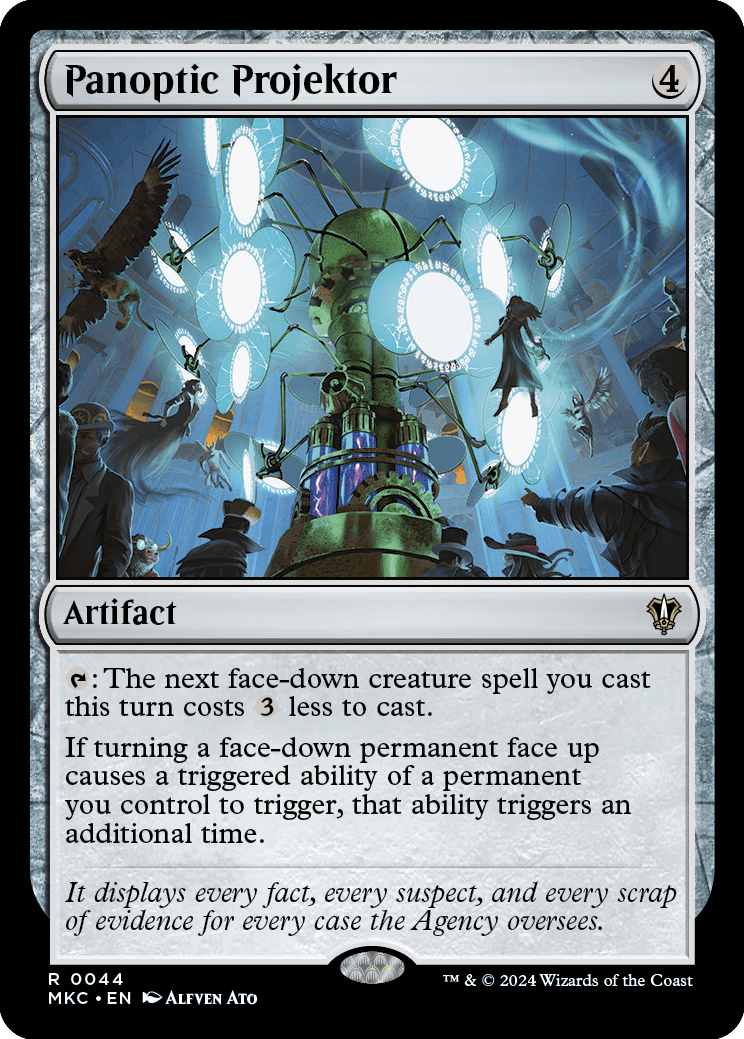
Panoptic Projektor
{4}
Artifact
{T}: The next face-down creature spell you cast this turn costs {3} less to cast.
If turning a face-down permanent face up causes a triggered ability of a permanent you control to trigger, that ability triggers an additional time.
- Panoptic Projektor's last ability affects a permanent's own abilities that trigger when it turns face up as well as other triggered abilities that trigger when that permanent turns face up. Such triggered abilities start with "when" or "whenever".
- Replacement effects are unaffected by Panoptic Projektor's last ability. For example, abilities that apply "as [this permanent] is turned face up," such as that of Crowd-Control Warden, are unaffected.
- Panoptic Projektor's last ability doesn't copy the triggered ability; it just causes the ability to trigger twice. Any choices made as you put the ability onto the stack, such as modes and targets, are made separately for each instance of the ability. Any choices made on resolution, such as whether to put counters on a permanent, are also made individually.
- If you control two copies of Panoptic Projektor, a face-down permanent turning face up causes abilities to trigger three times, not four. A third Panoptic Projektor causes abilities to trigger four times, a fourth causes abilities to trigger five times, and so on.
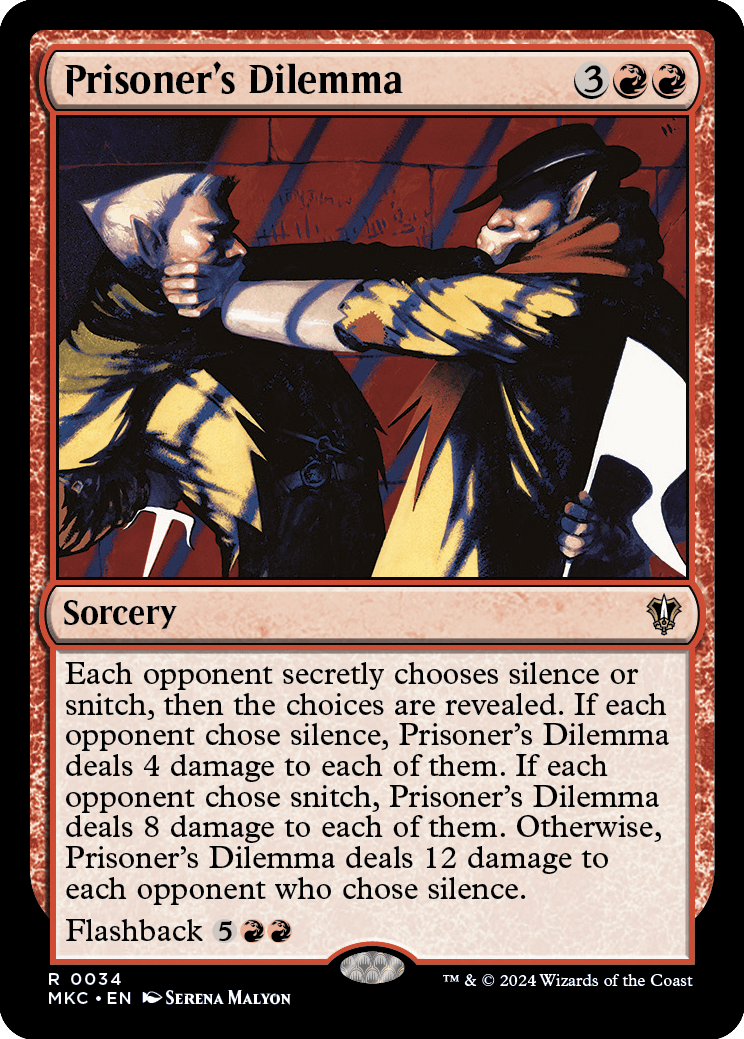
Prisoner's Dilemma
{3}{R}{R}
Sorcery
Each opponent secretly chooses silence or snitch, then the choices are revealed. If each opponent chose silence, Prisoner's Dilemma deals 4 damage to each of them. If each opponent chose snitch, Prisoner's Dilemma deals 8 damage to each of them. Otherwise, Prisoner's Dilemma deals 12 damage to each opponent who chose silence.
Flashback {5}{R}{R}
- To secretly vote, each player writes down their chosen option without showing it to anyone else. Each player then keeps their vote secret until all players simultaneously reveal their votes.
- Before secret votes are revealed, players may announce how they intend to vote, but they can't reveal what they actually wrote down until all votes are simultaneously revealed. Players can lie about how they intend to vote before the votes are revealed.
- Abilities that trigger "whenever players finish voting" trigger once all players have voted or once all secret votes are revealed, but they won't go on the stack until the current spell or ability finishes resolving.
- Each player must vote for one of the available options. They can't abstain.
- Votes are cast during the resolution of Prisoner's Dilemma, so any responses to Prisoner's Dilemma must be made without knowing the outcome of the vote. Have fun iterating!
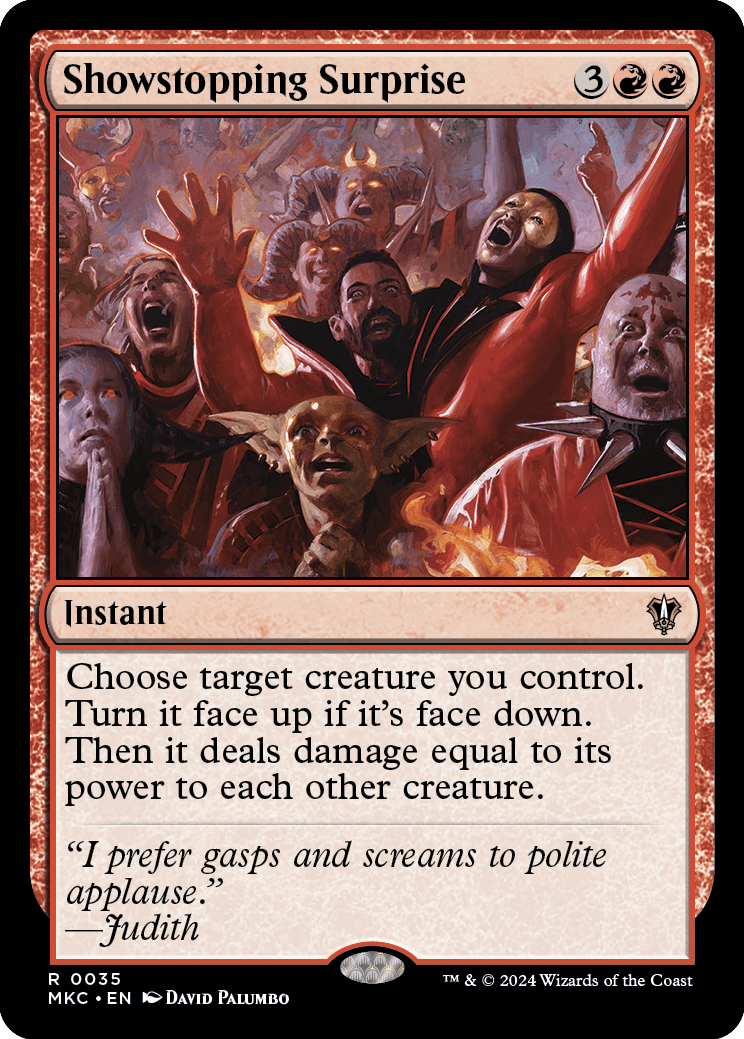
Showstopping Surprise
{3}{R}{R}
Instant
Choose target creature you control. Turn it face up if it's face down. Then it deals damage equal to its power to each other creature.
- If the target creature is a face-down creature that can't be turned face up for any reason, it will remain face down on the battlefield and still deal damage equal to its power (which is very likely to be 2) to each other creature.
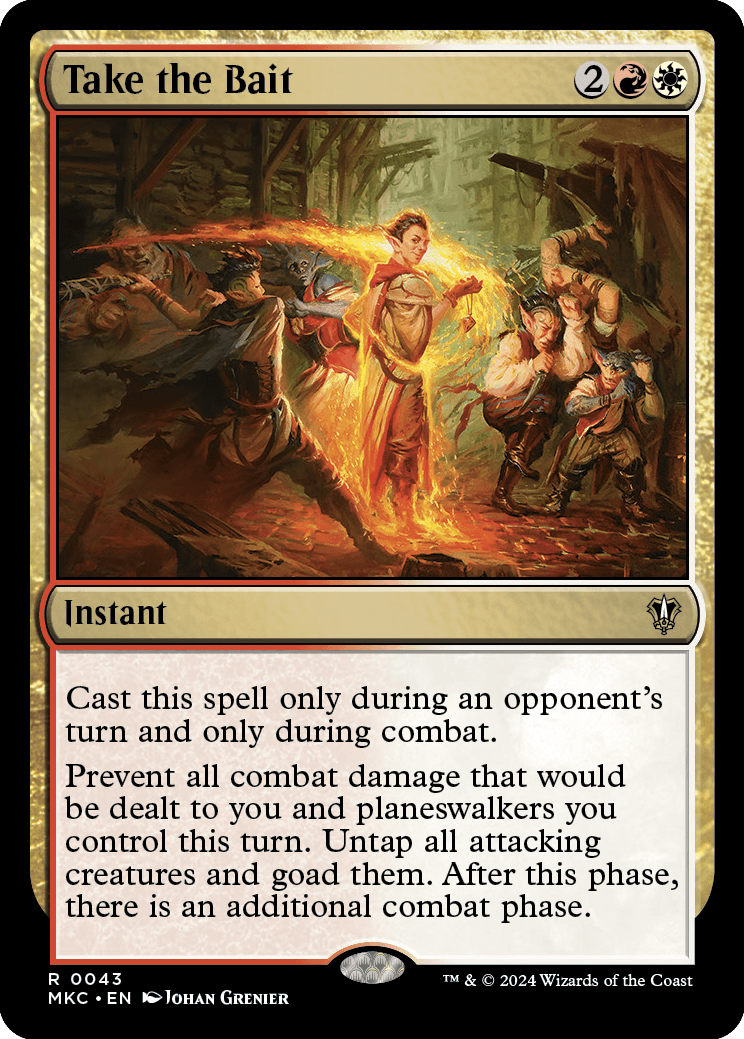
Take the Bait
{2}{R}{W}
Instant
Cast this spell only during an opponent's turn and only during combat.
Prevent all combat damage that would be dealt to you and planeswalkers you control this turn. Untap all attacking creatures and goad them. After this phase, there is an additional combat phase.
- Untapping and goading the attacking creatures won't remove them from combat, even if they're attacking you.
- Take the Bait doesn't give the opponent whose turn it is an additional main phase. They will move directly from the end of combat step of one combat phase to the beginning of combat step of the next one.
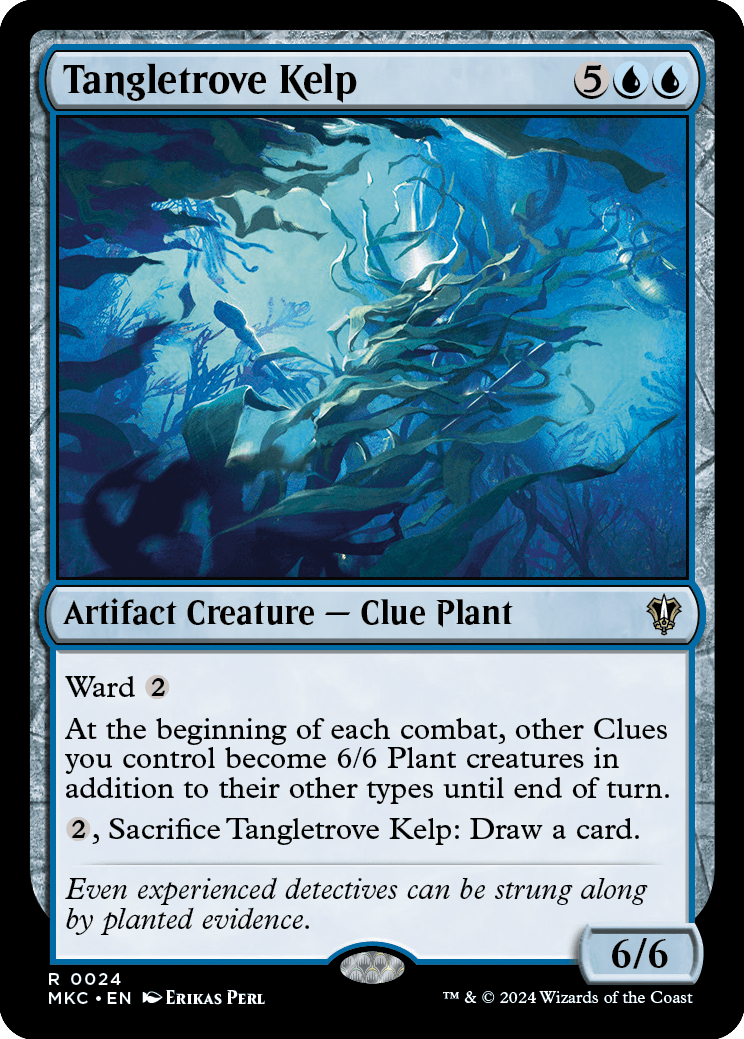
Tangletrove Kelp
{5}{U}{U}
Artifact Creature — Clue Plant
6/6
Ward {2}
At the beginning of each combat, other Clues you control become 6/6 Plant creatures in addition to their other types until end of turn.
{2}, Sacrifice Tangletrove Kelp: Draw a card.
- If a Clue you control is already a creature when Tangletrove Kelp's second ability resolves, Tangletrove Kelp's second ability will overwrite any previous effects that set that creature's power and toughness to specific numbers. Effects that otherwise modify its power and toughness will still apply no matter when they took effect. The same is true for +1/+1 counters.
- Clues you control will keep any abilities they previously had while they're creatures.
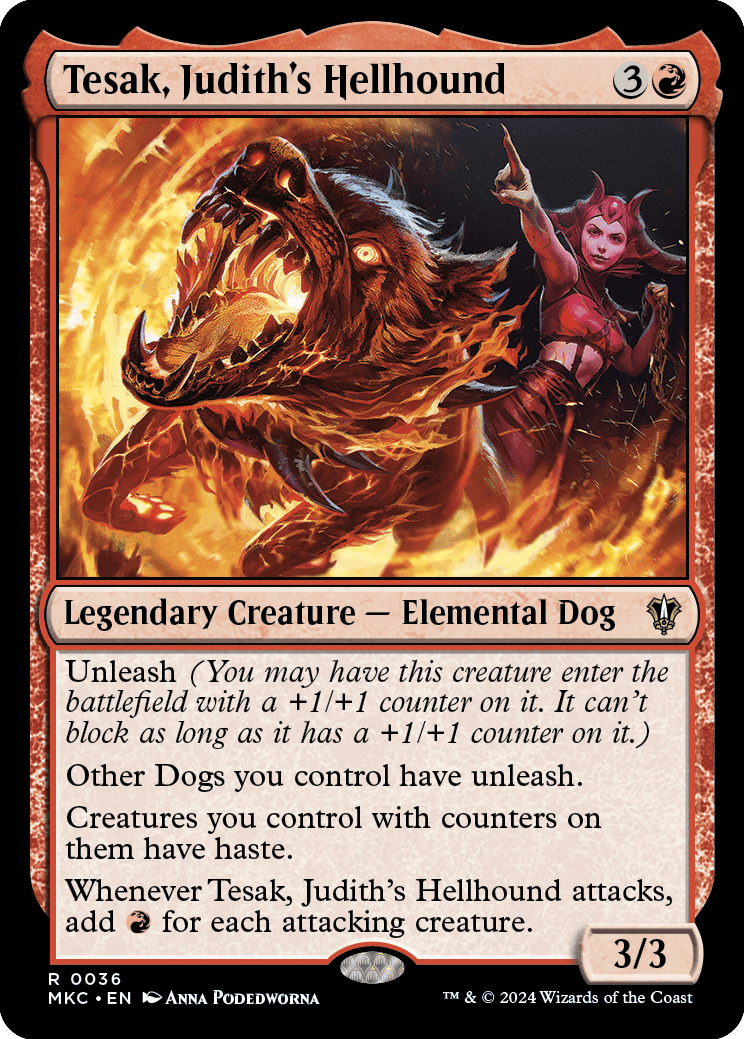
Tesak, Judith's Hellhound
{3}{R}
Legendary Creature — Elemental Dog
3/3
Unleash (You may have this creature enter the battlefield with a +1/+1 counter on it. It can't block as long as it has a +1/+1 counter on it.)
Other Dogs you control have unleash.
Creatures you control with counters on them have haste.
Whenever Tesak, Judith's Hellhound attacks, add {R} for each attacking creature.
- You make the choice to have the creature with unleash enter the battlefield with a +1/+1 counter or not as it's entering the battlefield. At that point, it's too late for a player to respond to the creature spell by trying to counter it, for example.
- The unleash ability applies no matter where the creature is entering the battlefield from.
- A creature with unleash can't block if it has any +1/+1 counter on it, not just one put on it by the unleash ability.
- Putting a +1/+1 counter on a creature with unleash that's already blocking won't remove it from combat. It will continue to block.
- Count the number of attacking creatures when Tesak, Judith's Hellhound's last ability resolves, including Tesak itself if it's still on the battlefield, to determine how much mana to add.
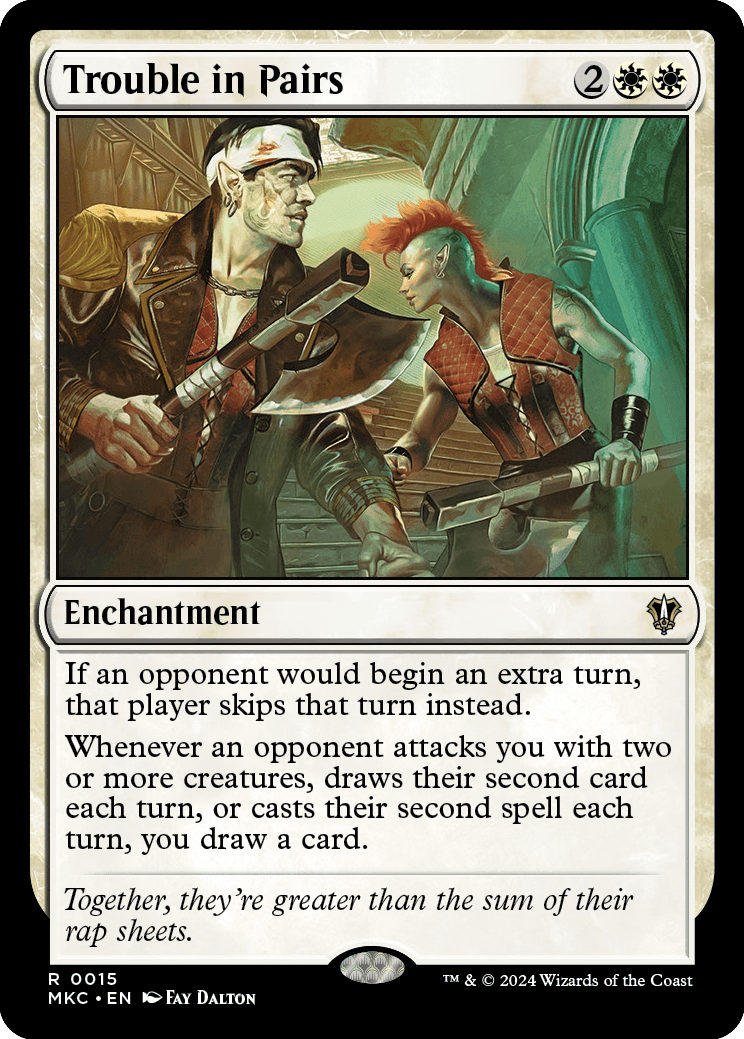
Trouble in Pairs
{2}{W}{W}
Enchantment
If an opponent would begin an extra turn, that player skips that turn instead.
Whenever an opponent attacks you with two or more creatures, draws their second card each turn, or casts their second spell each turn, you draw a card.
- An "extra turn" is any turn created by a spell or ability. Notably, it doesn't include additional turns taken in tournaments after time expires for a round.
- Extra turns can still be created while Trouble in Pairs is on the battlefield. They're not skipped until they would begin, so if Trouble in Pairs leaves the battlefield before that happens, the extra turns will be unaffected.
- Trouble in Pairs's last ability can trigger multiple times per opponent per turn. For example, if an opponent draws a second card, casts a second spell, and attacks you with two or more creatures in a single turn, Trouble in Pairs's last ability will trigger once when each of those events occurs, for a total of three times.
- If an opponent attacks you with two or more creatures more than once in a turn (probably because they've generated extra combat phases), Trouble in Pairs's last ability will trigger each time that happens.
- Trouble in Pairs doesn't have to be on the battlefield to see the first card an opponent draws in a turn or the first spell they cast in a turn. As long as it's already on the battlefield when they draw their second card or cast their second spell in a turn, its last ability will trigger.
- Trouble in Pairs counts spells that were cast even if they didn't resolve. This means it still counts spells that were countered.
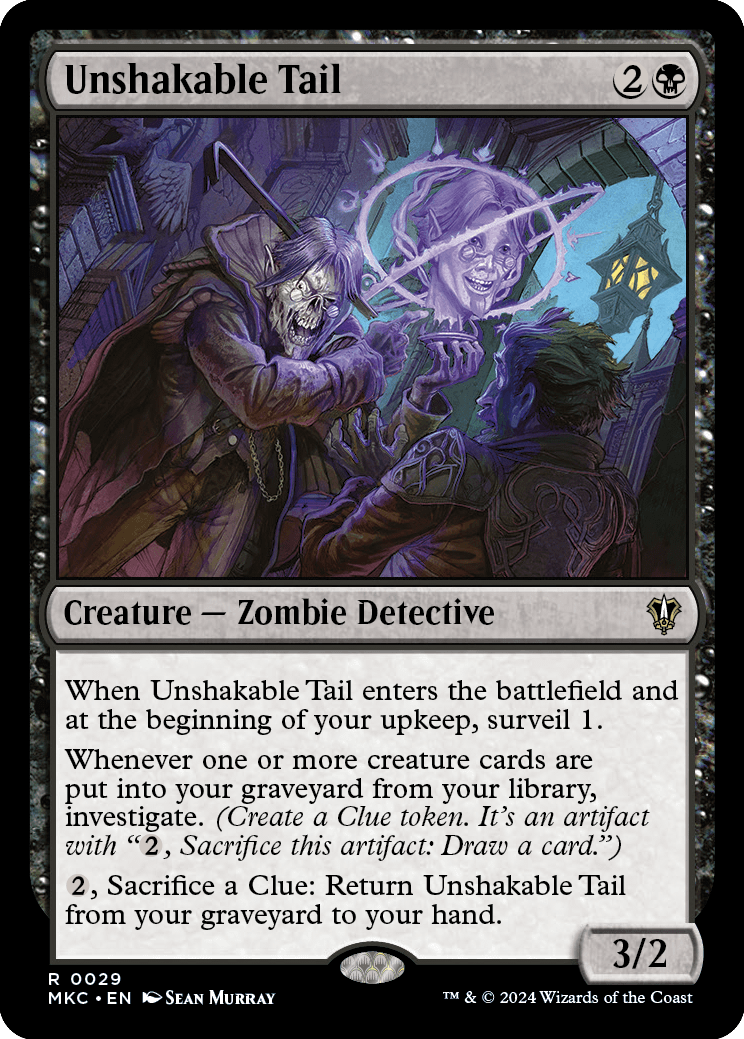
Unshakable Tail
{2}{B}
Creature — Zombie Detective
3/2
When Unshakable Tail enters the battlefield and at the beginning of your upkeep, surveil 1.
Whenever one or more creature cards are put into your graveyard from your library, investigate. (Create a Clue token. It's an artifact with "{2}, Sacrifice this artifact: Draw a card.")
{2}, Sacrifice a Clue: Return Unshakable Tail from your graveyard to your hand.
- If an effect puts multiple cards from a library into a graveyard, all of those cards move at the same time. For example, when Aftermath Analyst's enters the battlefield triggered ability resolves, you'll mill three cards at once. If one or more of those cards are creature cards, Unshakable Tail's second ability will trigger.
RAVNICA: CLUE EDITION (RAVNICA: CLUEDO EDITION) CARD-SPECIFIC NOTES
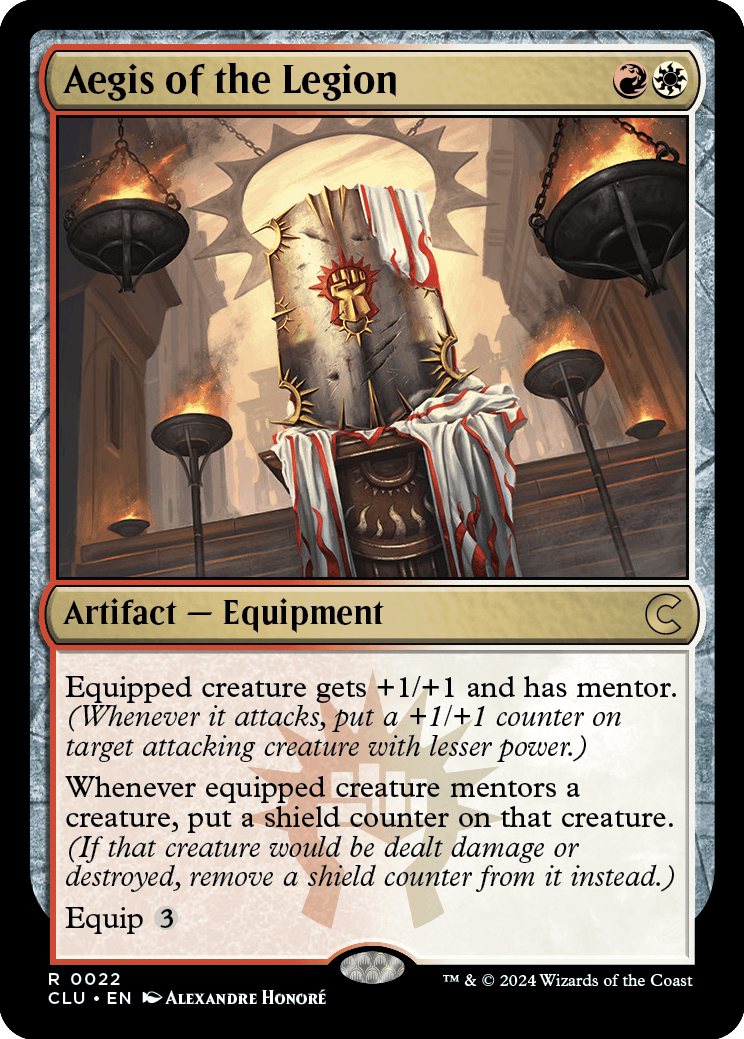
Aegis of the Legion
{R}{W}
Artifact — Equipment
Equipped creature gets +1/+1 and has mentor. (Whenever it attacks, put a +1/+1 counter on target attacking creature with lesser power.)
Whenever equipped creature mentors a creature, put a shield counter on that creature. (If that creature would be dealt damage or destroyed, remove a shield counter from it instead.)
Equip {3}
- Mentor compares the power of the creature with mentor with that of the target creature at two different times: once as the triggered ability is put onto the stack, and once as the triggered ability resolves. If you wish to raise a creature's power so its mentor ability can target a bigger creature, the last chance you have to do so is during the beginning of combat step.
- If the target creature's power is no longer less than the attacking creature's power as the ability resolves, mentor doesn't add a +1/+1 counter. For example, if two 3/3 creatures with mentor attack and both mentor triggers target the same 2/2 creature, the first to resolve puts a +1/+1 counter on it and the second does nothing.
- If the creature with mentor leaves the battlefield with the mentor ability on the stack, use its power as that creature last existed on the battlefield to determine whether the target creature has lesser power.
- Aegis of the Legion's last ability triggers when a mentor ability of the equipped creature resolves. If it became unattached from a creature before a mentor ability of that creature resolves, Aegis of the Legion's last ability won't trigger when that ability resolves. Similarly, if Aegis of the Legion becomes attached to a creature that is the source of a mentor ability on the stack, Aegis of the Legion's last ability will trigger when that mentor ability resolves.
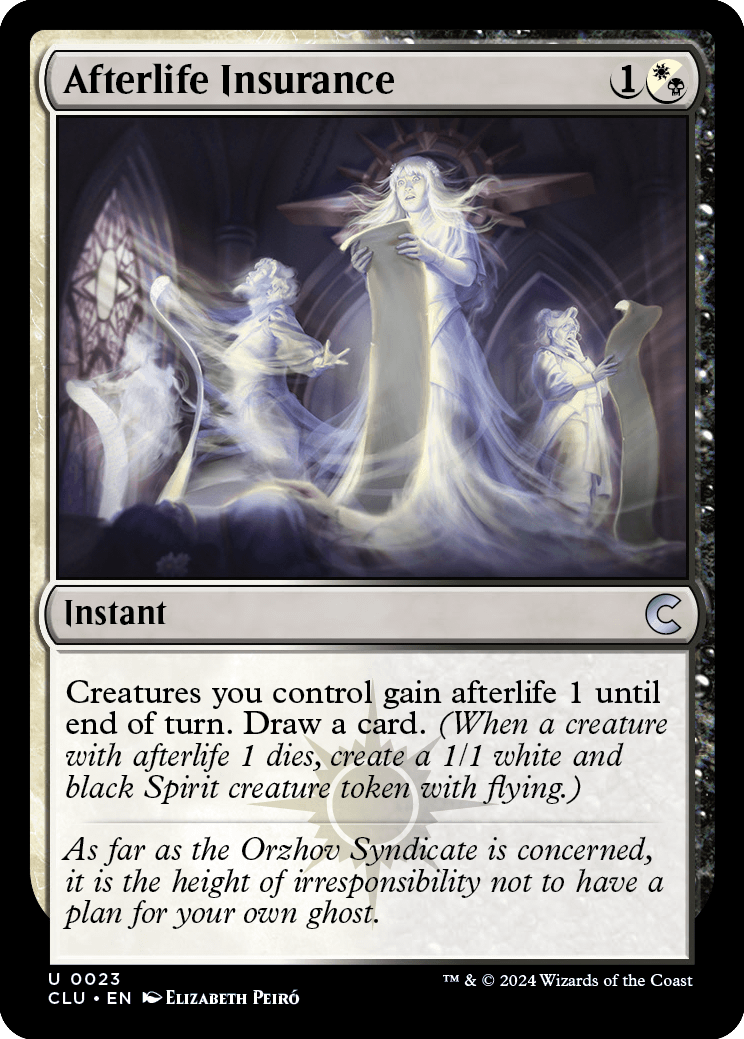
Afterlife Insurance
{1}{W/B}
Instant
Creatures you control gain afterlife 1 until end of turn. Draw a card. (When a creature with afterlife 1 dies, create a 1/1 white and black Spirit creature token with flying.)
- Because blockers are chosen all at once, you can't block with a creature with afterlife, wait for it to die, then block with the resulting Spirit tokens.
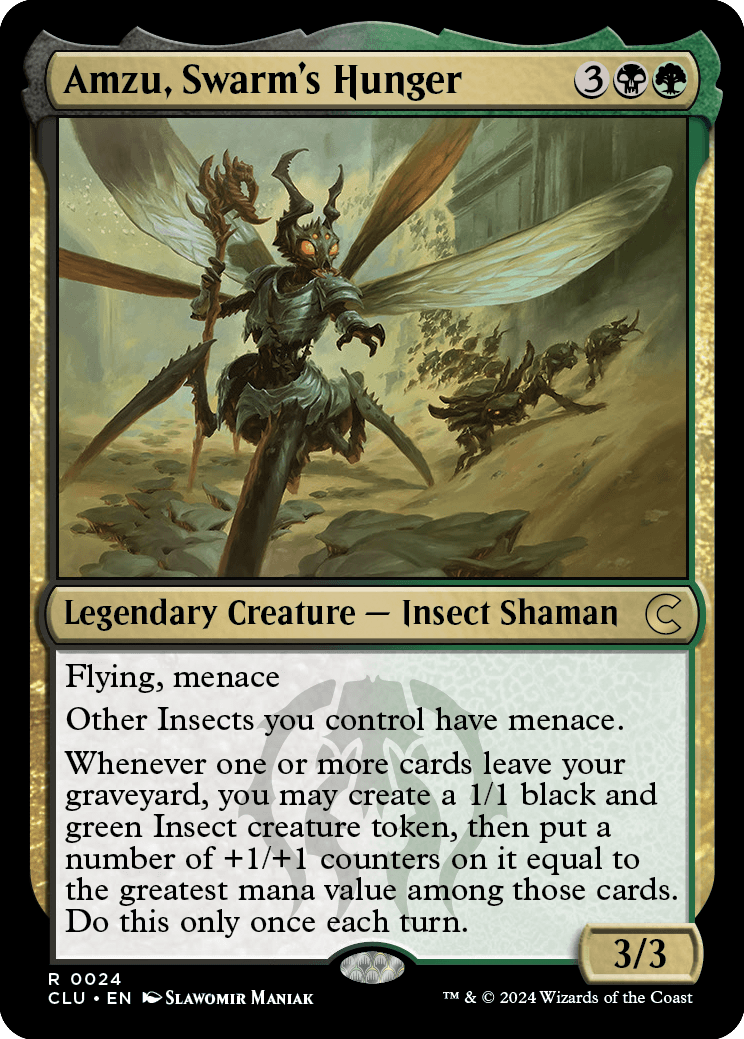
Amzu, Swarm's Hunger
{3}{B}{G}
Legendary Creature — Insect Shaman
3/3
Flying, menace
Other Insects you control have menace.
Whenever one or more cards leave your graveyard, you may create a 1/1 black and green Insect creature token, then put a number of +1/+1 counters on it equal to the greatest mana value among those cards. Do this only once each turn.
- If multiple cards leave your graveyard at the same time, Amzu, Swarm's Hunger ability will trigger only once.
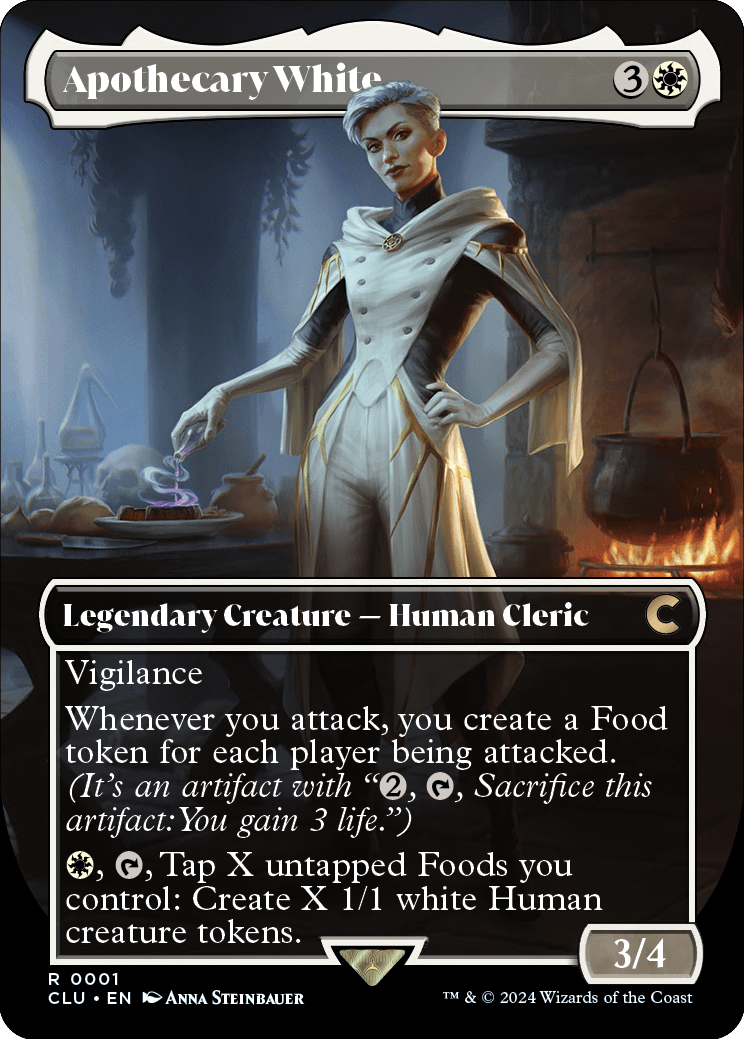
Apothecary White
{3}{W}
Legendary Creature — Human Cleric
3/4
Vigilance
Whenever you attack, you create a Food token for each player being attacked. (It's an artifact with "{2}, {T}, Sacrifice this artifact: You gain 3 life.")
{W}, {T}, Tap X untapped Foods you control: Create X 1/1 white Human creature tokens.
- If an effect refers to a Food, it means any Food artifact, not just a Food artifact token. For example, you can tap Krovod Haunch to pay for Apothecary White's activated ability.
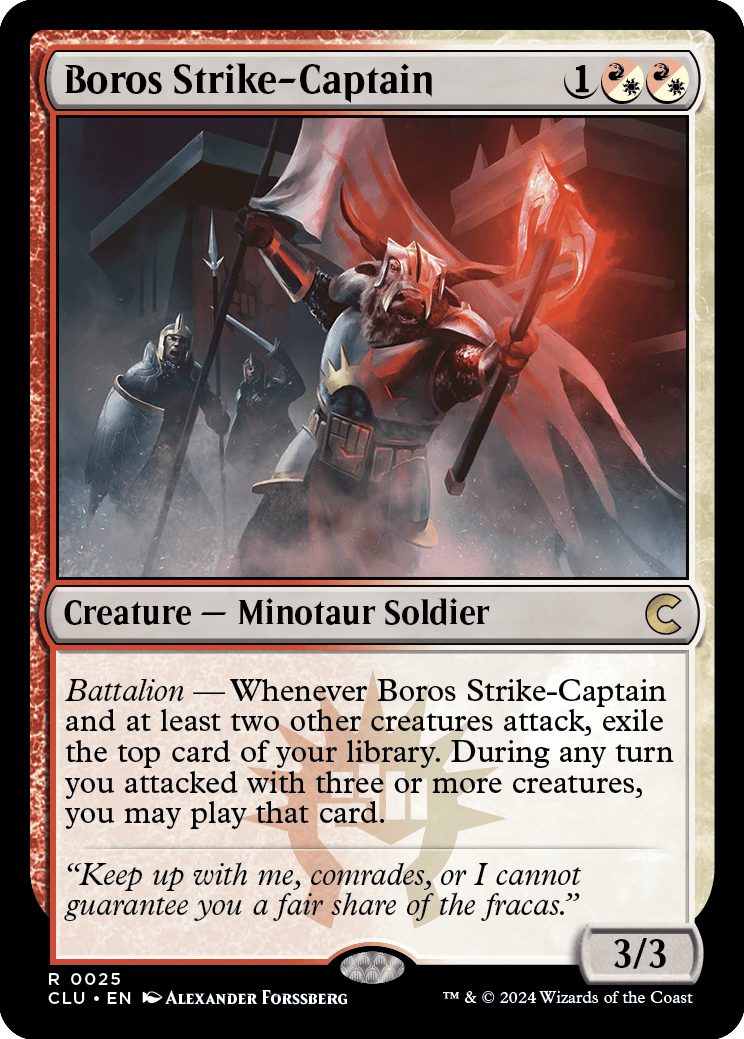
Boros Strike-Captain
{1}{R/W}{R/W}
Creature — Minotaur Soldier
3/3
Battalion — Whenever Boros Strike-Captain and at least two other creatures attack, exile the top card of your library. During any turn you attacked with three or more creatures, you may play that card.
- The three attacking creatures don't have to be attacking the same player, planeswalker, or battle.
- Once a battalion ability has triggered, it doesn't matter how many creatures are still attacking when that ability resolves.
- Similarly, once you attack with three or more creatures in a single turn, you can still play the exiled card that turn no matter what happens to those creatures.
- If Boros Strike-Captain leaves the battlefield, the effect allowing you to play the exiled card if you attacked with three or more creatures continues to apply, even during later turns, as long as you attack with three or more creatures during those later turns.
- You pay all costs and follow all normal timing rules for a card played this way. For example, if the exiled card is a land card, you may play it only during your main phase while the stack is empty.
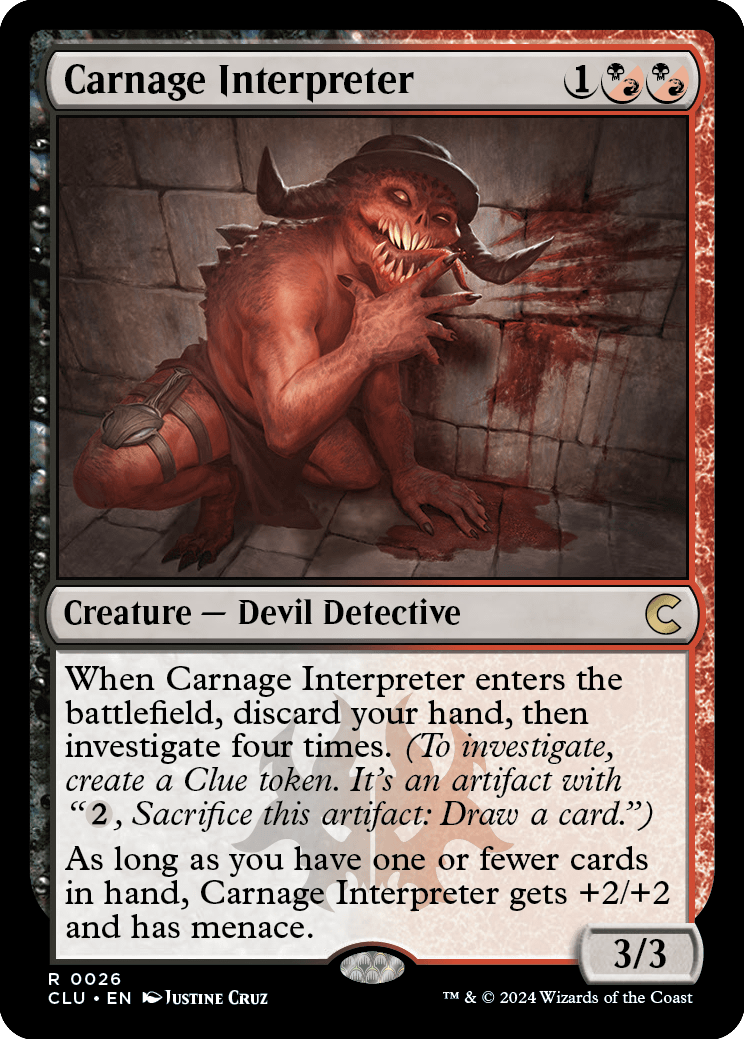
Carnage Interpreter
{1}{B/R}{B/R}
Creature — Devil Detective
3/3
When Carnage Interpreter enters the battlefield, discard your hand, then investigate four times. (To investigate, create a Clue token. It's an artifact with "{2}, Sacrifice this artifact: Draw a card.")
As long as you have one or fewer cards in hand, Carnage Interpreter gets +2/+2 and has menace.
- Once Carnage Interpreter has been blocked, causing it to gain menace by removing cards from your hand won't cause it to stop being blocked.
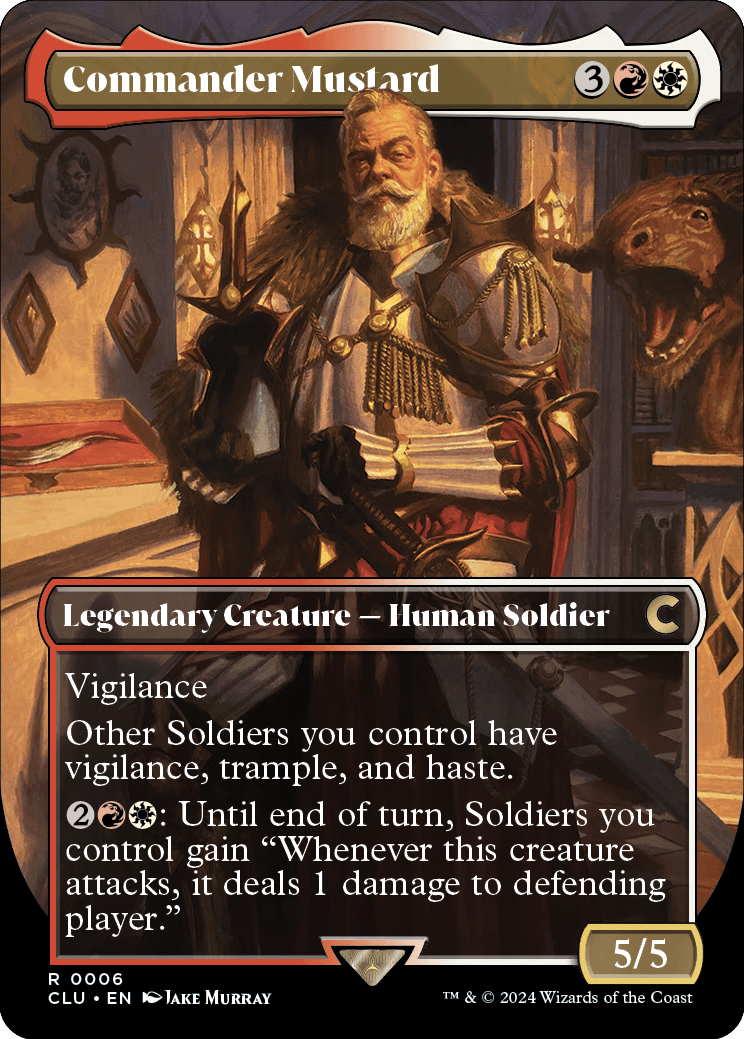
Commander Mustard
{3}{R}{W}
Legendary Creature — Human Soldier
5/5
Vigilance
Other Soldiers you control have vigilance, trample, and haste.
{2}{R}{W}: Until end of turn, Soldiers you control gain "Whenever this creature attacks, it deals 1 damage to defending player."
- Activating Commander Mustard's last ability multiple times will cause Soldiers you control to gain multiple instances of the triggered ability. For example, if you activate Commander Mustard's last ability twice and then attack with Commander Mustard, it will have two instances of the triggered ability. Both will trigger, and the defending player will take 2 damage.
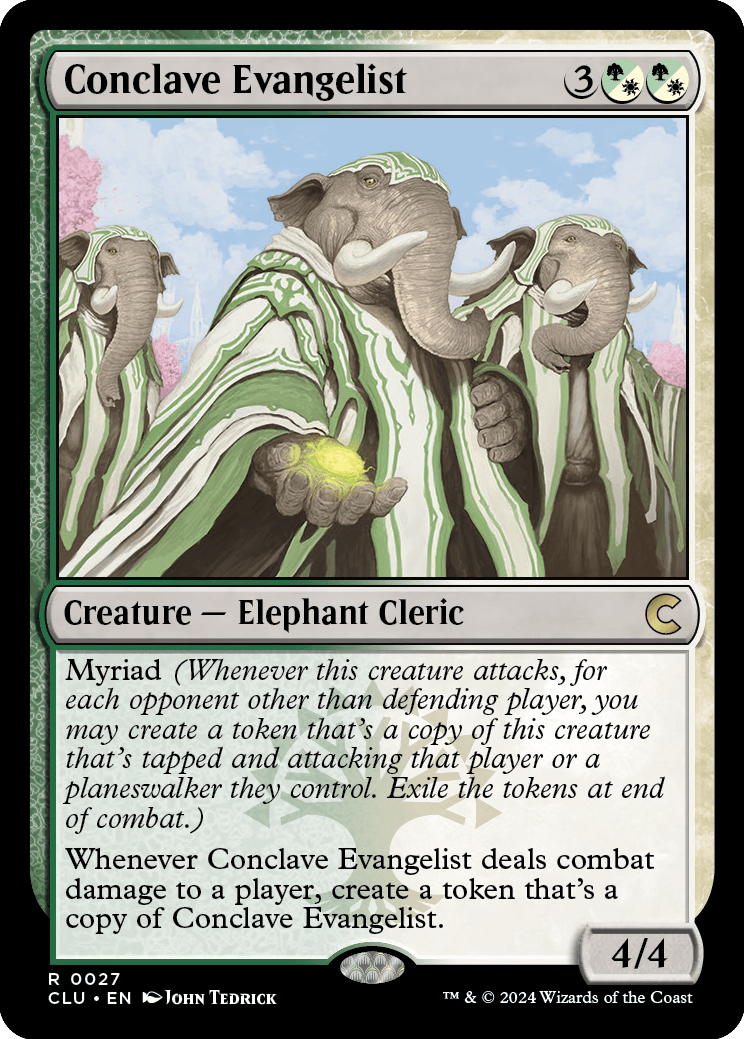
Conclave Evangelist
{3}{G/W}{G/W}
Creature — Elephant Cleric
4/4
Myriad (Whenever this creature attacks, for each opponent other than defending player, you may create a token that's a copy of this creature that's tapped and attacking that player or a planeswalker they control. Exile the tokens at end of combat.)
Whenever Conclave Evangelist deals combat damage to a player, create a token that's a copy of Conclave Evangelist.
- The term "defending player" in the myriad rules (or any other ability of an attacking creature) refers to the player the creature with myriad was attacking at the time it became an attacking creature this combat, the controller of the planeswalker the creature was attacking at the time it became an attacking creature this combat, or the protector of the battle this creature was attacking at the time it became an attacking creature this combat.
- If the defending player is your only opponent, no tokens are put onto the battlefield.
- You choose whether each token is attacking the player or a planeswalker they control as the token is created.
- Although the tokens enter the battlefield attacking, they were never declared as attackers. Abilities that trigger whenever a creature attacks won't trigger, including the myriad ability of the tokens. If there are any costs to have a creature attack, those costs won't apply to the tokens.
- The token creatures all enter the battlefield at the same time.
- Each token copies exactly what was printed on the original creature and nothing else. It doesn't copy whether that creature is tapped or untapped, whether it has any counters on it or Auras and Equipment attached to it, or any non-copy effects that have changed its power, toughness, types, color, and so on.
- Any enters-the-battlefield abilities of the copied creature will trigger when the token enters the battlefield. Any "as [this permanent] enters the battlefield" or "[this permanent] enters the battlefield with" abilities of the copied creature will also work.
- If myriad creates more than one token for any given player (due to an effect such as the one Doubling Season creates), you may choose separately for each token whether it's attacking the player or a planeswalker they control.
- If a token created by Conclave Evangelist's myriad ability deals combat damage to a player, the token created by its last ability will not be exiled at end of combat.
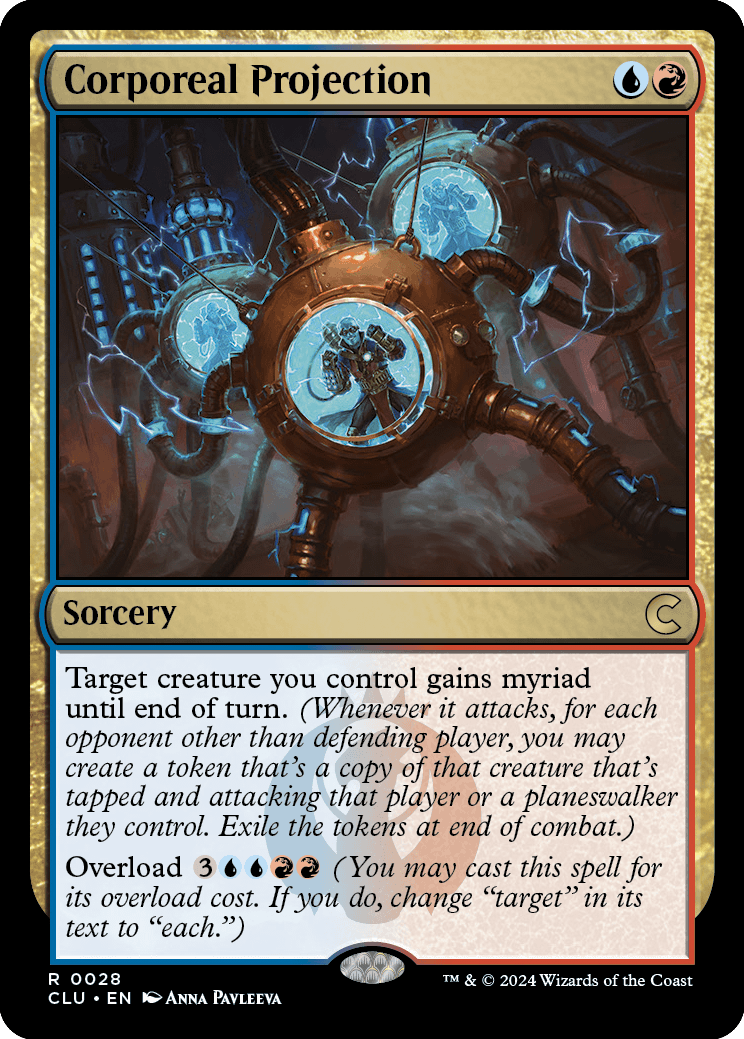
Corporeal Projection
{U}{R}
Sorcery
Target creature you control gains myriad until end of turn. (Whenever it attacks, for each opponent other than defending player, you may create a token that's a copy of that creature that's tapped and attacking that player or a planeswalker they control. Exile the tokens at end of combat.)
Overload {3}{U}{U}{R}{R} (You may cast this spell for its overload cost. If you do, change "target" in its text to "each.")
- The term "defending player" in the myriad rules (or any other ability of an attacking creature) refers to the player the creature with myriad was attacking at the time it became an attacking creature this combat, the controller of the planeswalker the creature was attacking at the time it became an attacking creature this combat, or the protector of the battle this creature was attacking at the time it became an attacking creature this combat.
- If the defending player is your only opponent, no tokens are put onto the battlefield.
- You choose whether each token is attacking the player or a planeswalker they control as the token is created.
- Although the tokens enter the battlefield attacking, they were never declared as attackers. Abilities that trigger whenever a creature attacks won't trigger, including the myriad ability of the tokens. If there are any costs to have a creature attack, those costs won't apply to the tokens.
- The token creatures all enter the battlefield at the same time.
- Each token copies exactly what was printed on the original creature and nothing else. It doesn't copy whether that creature is tapped or untapped, whether it has any counters on it or Auras and Equipment attached to it, or any non-copy effects that have changed its power, toughness, types, color, and so on.
- Any enters-the-battlefield abilities of the copied creature will trigger when the token enters the battlefield. Any "as [this permanent] enters the battlefield" or "[this permanent] enters the battlefield with" abilities of the copied creature will also work.
- If myriad creates more than one token for any given player (due to an effect such as the one Doubling Season creates), you may choose separately for each token whether it's attacking the player or a planeswalker they control.
- If you don't pay the overload cost of a spell, that spell will have a single target. If you pay the overload cost, the spell won't have any targets.
- Because a spell with overload doesn't target when its overload cost is paid, it may affect permanents with hexproof or with protection from the appropriate color.
- Overload doesn't change when you can cast the spell.
- Casting a spell with overload doesn't change that spell's mana cost. You just pay the overload cost instead.
- Effects that cause you to pay more or less for a spell will cause you to pay that much more or less while casting it for its overload cost, too.
- If you are instructed to cast a spell with overload "without paying its mana cost," you can't choose to pay its overload cost instead.
- To determine the total cost of a spell, start with the mana cost or alternative cost you're paying (such as an overload cost), add any cost increases, then apply any cost reductions. The mana value of the spell is determined by only its mana cost, no matter what the total cost to cast that spell was.
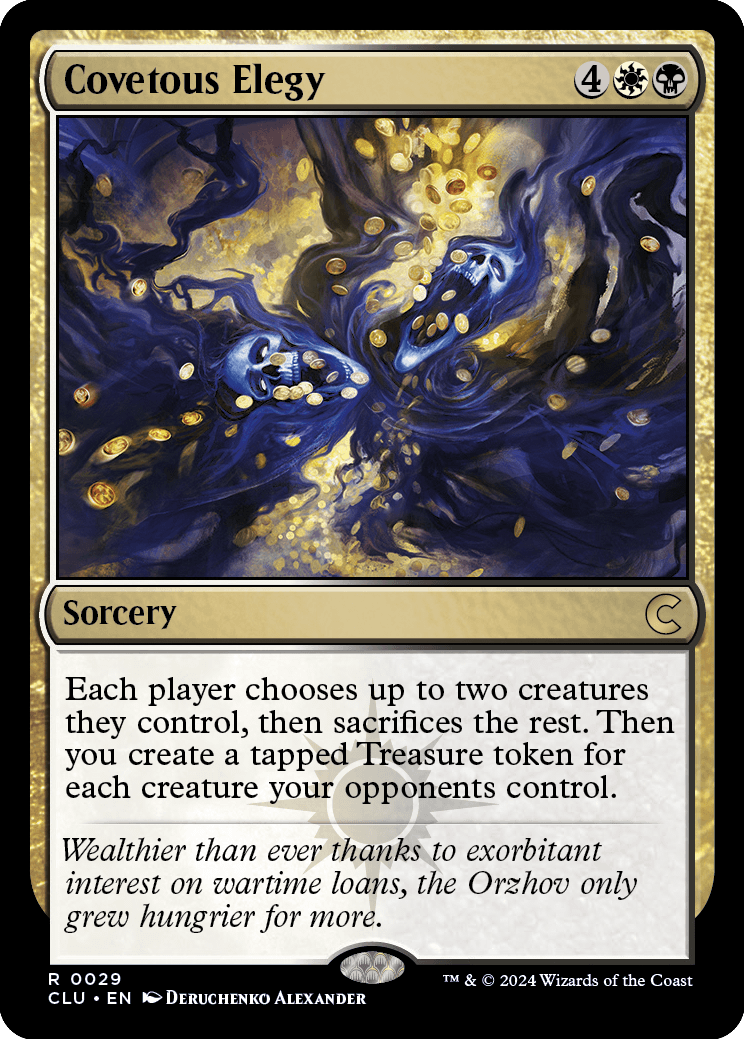
Covetous Elegy
{4}{W}{B}
Sorcery
Each player chooses up to two creatures they control, then sacrifices the rest. Then you create a tapped Treasure token for each creature your opponents control.
- Starting with the player whose turn it is, each player in turn order chooses up to two creatures they control, then all of the creatures not chosen by any player are sacrificed at the same time. Players get to know the choices made by players who chose before them.
- Players may choose fewer than two creatures even if they control two or more creatures.
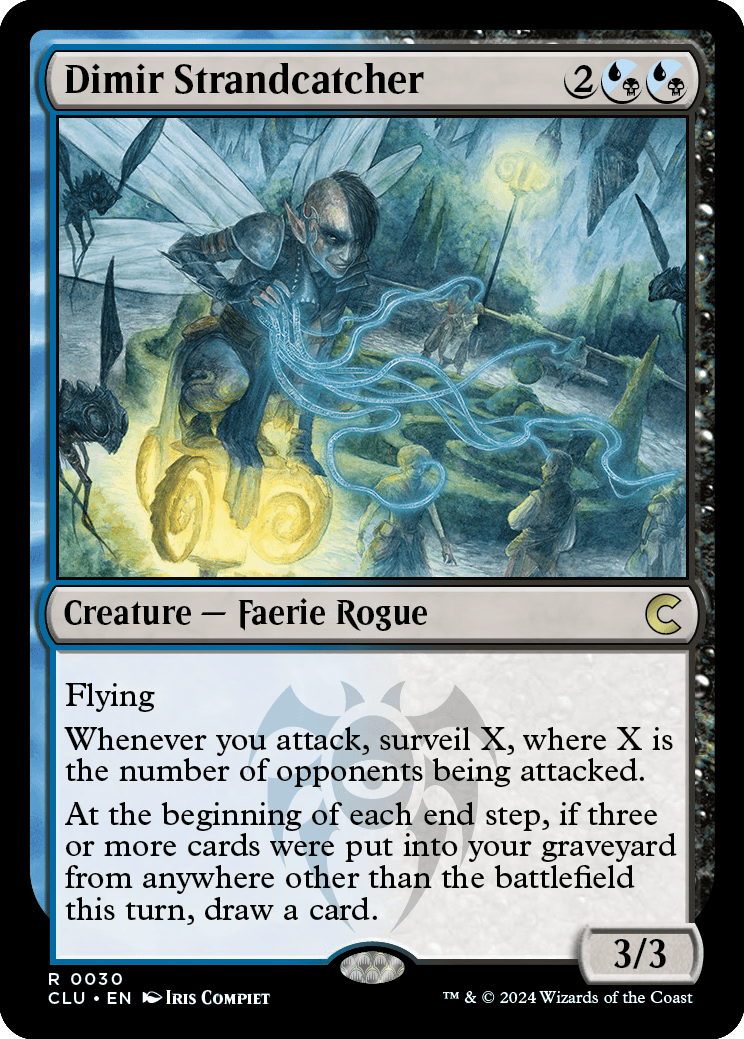
Dimir Strandcatcher
{2}{U/B}{U/B}
Creature — Faerie Rogue
3/3
Flying
Whenever you attack, surveil X, where X is the number of opponents being attacked.
At the beginning of each end step, if three or more cards were put into your graveyard from anywhere other than the battlefield this turn, draw a card.
- The value of X is determined only once, as Dimir Strandcatcher's second ability resolves. If a player leaves the game after the ability triggers but before it resolves, they won't be counted when the ability resolves.
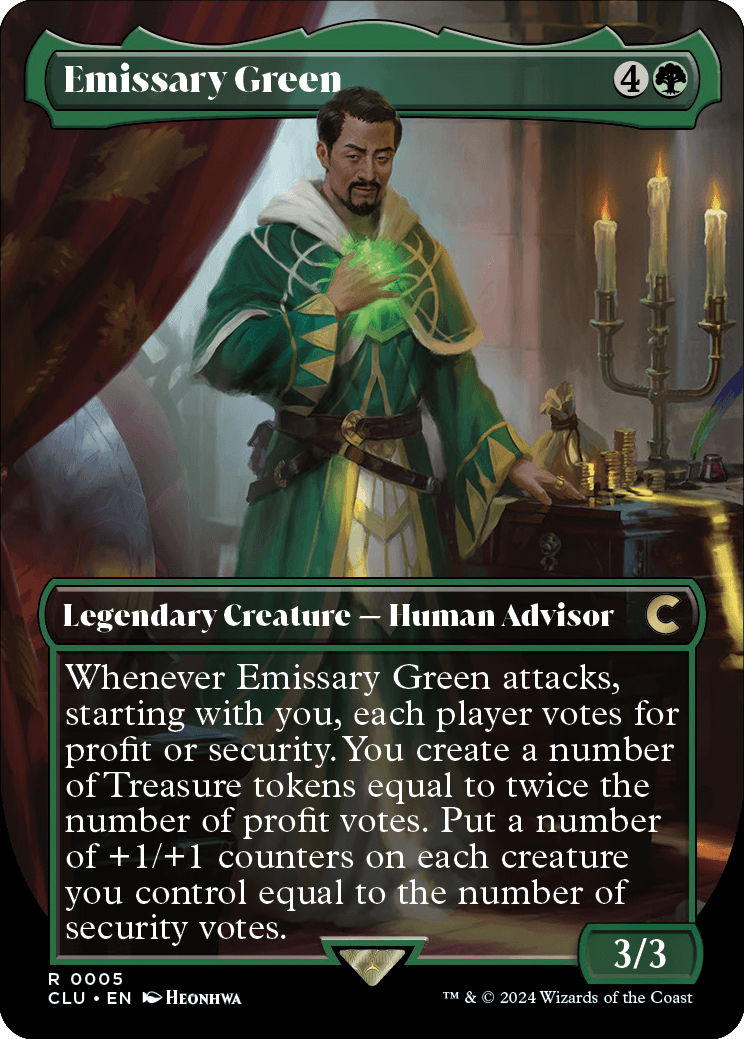
Emissary Green
{4}{G}
Legendary Creature — Human Advisor
3/3
Whenever Emissary Green attacks, starting with you, each player votes for profit or security. You create a number of Treasure tokens equal to twice the number of profit votes. Put a number of +1/+1 counters on each creature you control equal to the number of security votes.
- Abilities that trigger "whenever players finish voting" trigger once all players have voted or once all secret votes are revealed, but they won't go on the stack until the current spell or ability finishes resolving.
- In the case of non-secret voting, votes are cast in turn order, and each player will know the votes of players who voted beforehand.
- Each player must vote for one of the available options. They can't abstain.
- No player votes until the spell or ability resolves. Any responses to that spell or ability must be made without knowing the outcome of the vote.
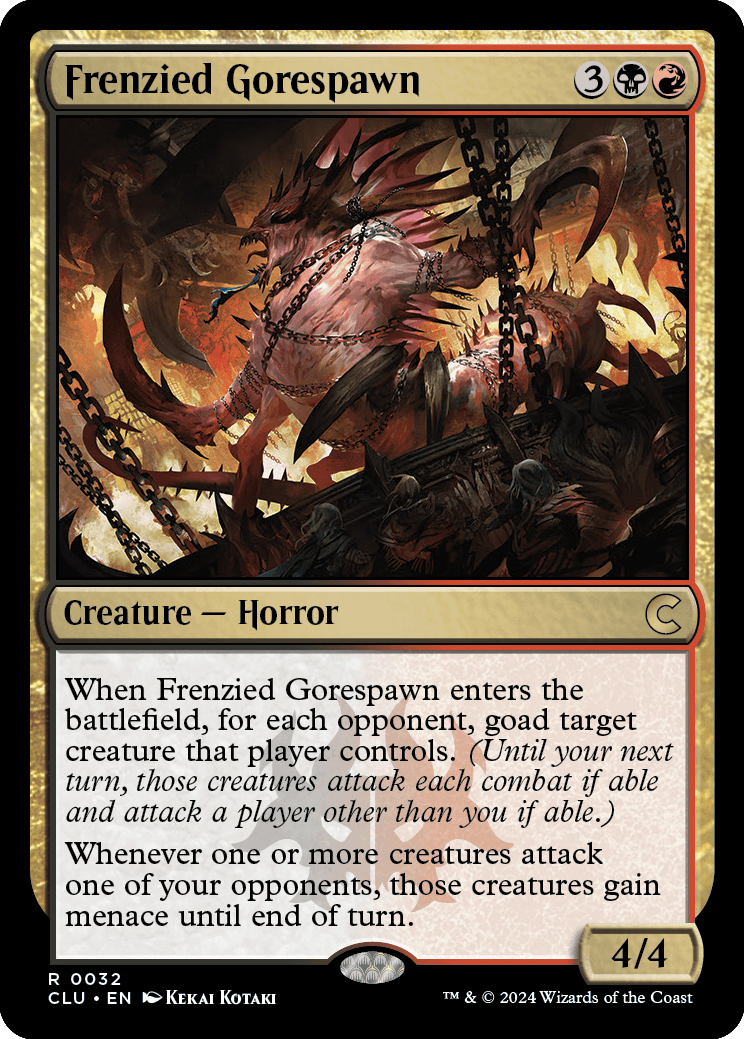
Frenzied Gorespawn
{3}{B}{R}
Creature — Horror
4/4
When Frenzied Gorespawn enters the battlefield, for each opponent, goad target creature that player controls. (Until your next turn, those creatures attack each combat if able and attack a player other than you if able.)
Whenever one or more creatures attack one of your opponents, those creatures gain menace until end of turn.
- Creatures your opponents control attacking one of your opponents will cause Frenzied Gorespawn's ability to trigger.
- Only creatures attacking your opponents will gain menace until end of turn. Creatures attacking planeswalkers or battles won't gain menace, no matter who controls or protects those permanents.
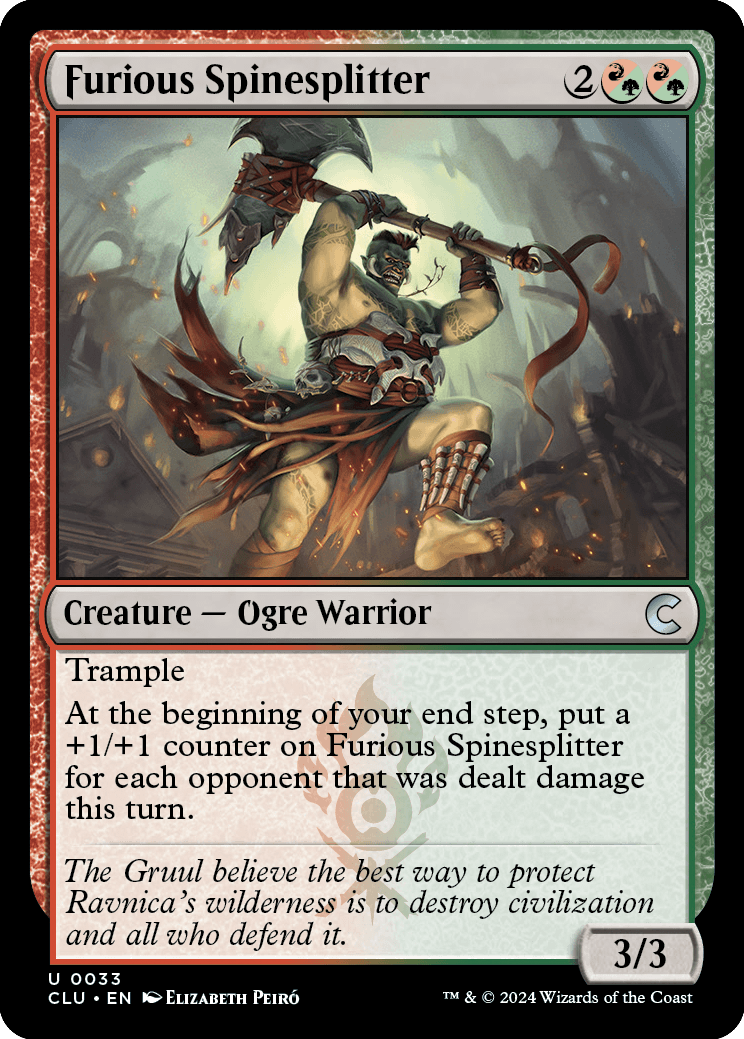
Furious Spinesplitter
{2}{R/G}{R/G}
Creature — Ogre Warrior
3/3
Trample
At the beginning of your end step, put a +1/+1 counter on Furious Spinesplitter for each opponent that was dealt damage this turn.
- Furious Spinesplitter doesn't need to have been on the battlefield when the damage was dealt.
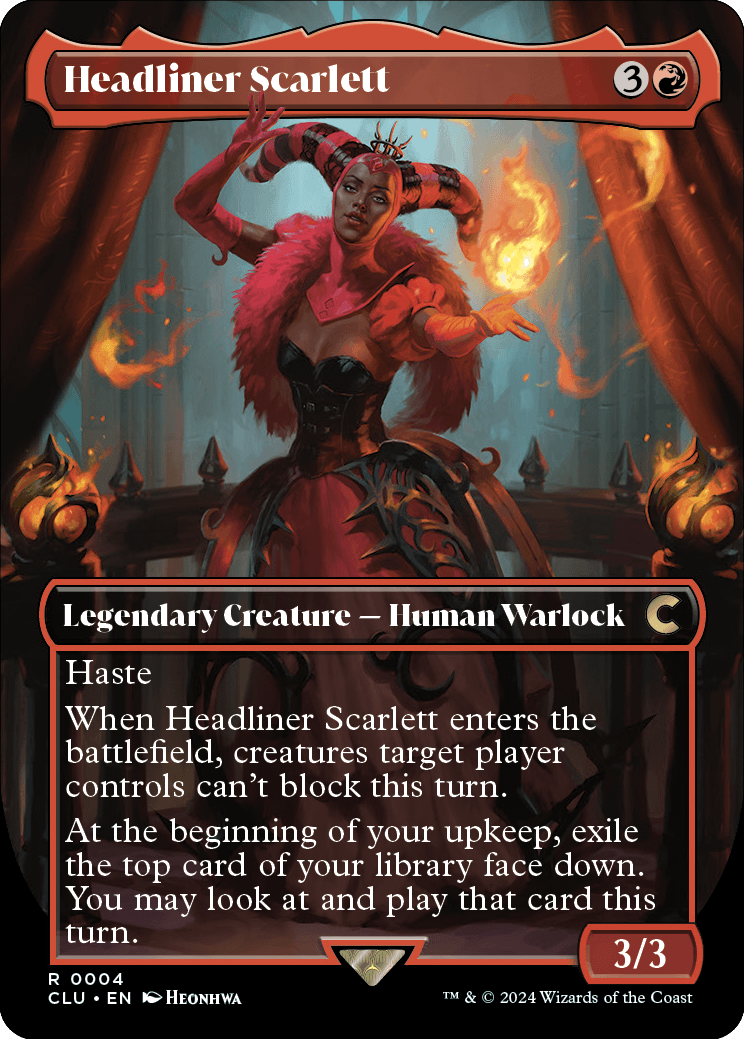
Headliner Scarlett
{3}{R}
Legendary Creature — Human Warlock
3/3
Haste
When Headliner Scarlett enters the battlefield, creatures target player controls can't block this turn.
At the beginning of your upkeep, exile the top card of your library face down. You may look at and play that card this turn.
- Once the turn ends, you can't look at or play the card exiled with Headliner Scarlett that turn. It remains face down in exile, and no one can look at it.
- If Headliner Scarlett leaves the battlefield, the effect allowing you to look at and play the exiled card continues to apply for the rest of the turn.
- You pay all costs and follow all normal timing rules for a card played this way. For example, if the exiled card is a land card, you may play it only during your main phase while the stack is empty.
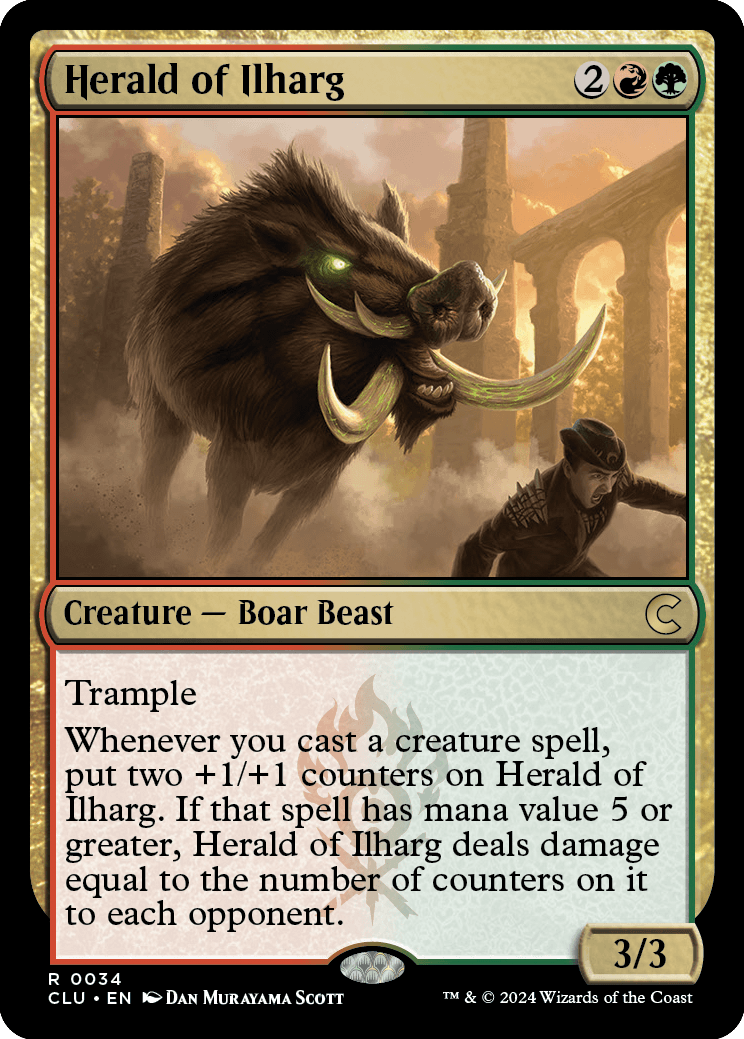
Herald of Ilharg
{2}{R}{G}
Creature — Boar Beast
3/3
Trample
Whenever you cast a creature spell, put two +1/+1 counters on Herald of Ilharg. If that spell has mana value 5 or greater, Herald of Ilharg deals damage equal to the number of counters on it to each opponent.
- Herald of Ilharg's last ability resolves before the spell that caused it to trigger. It resolves even if that spell is countered.
- If Herald of Ilharg leaves the battlefield before its last ability resolves, use the number of counters that were on Herald of Ilharg as it last existed on the battlefield to determine how much damage to deal.
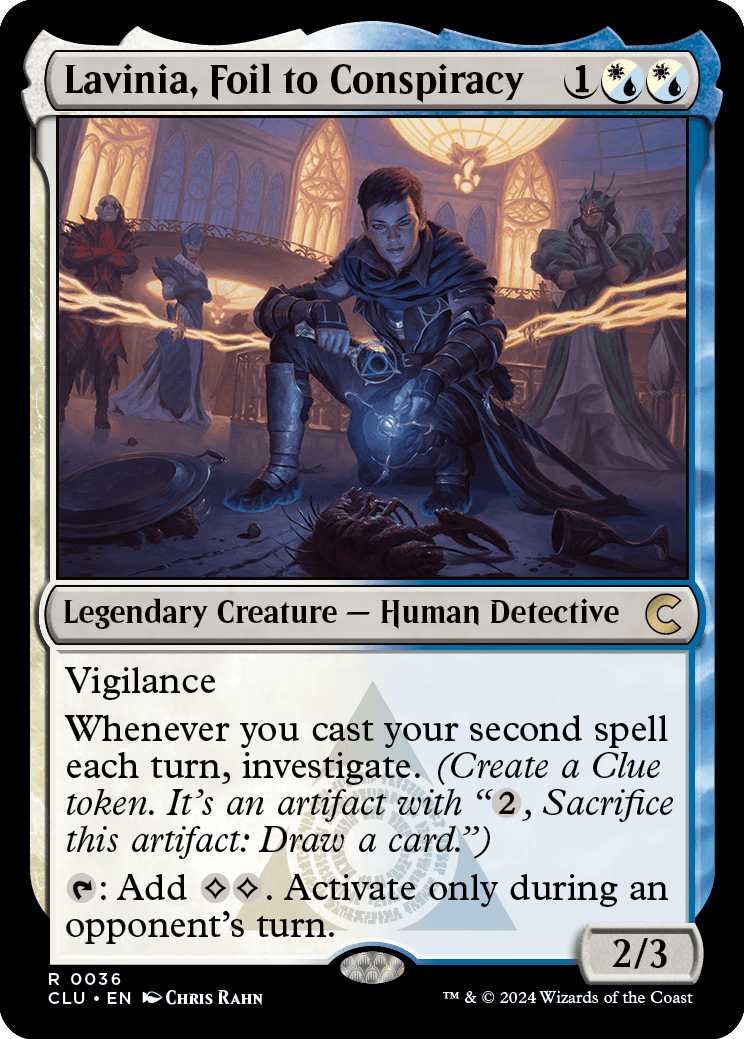
Lavinia, Foil to Conspiracy
{1}{W/U}{W/U}
Legendary Creature — Human Detective
2/3
Vigilance
Whenever you cast your second spell each turn, investigate. (Create a Clue token. It's an artifact with "{2}, Sacrifice this artifact: Draw a card.")
{T}: Add {C}{C}. Activate only during an opponent's turn.
- Spells that were cast before Lavinia, Foil to Conspiracy count. If Lavinia was the first spell you cast this turn, the next spell you cast this turn is your second spell.
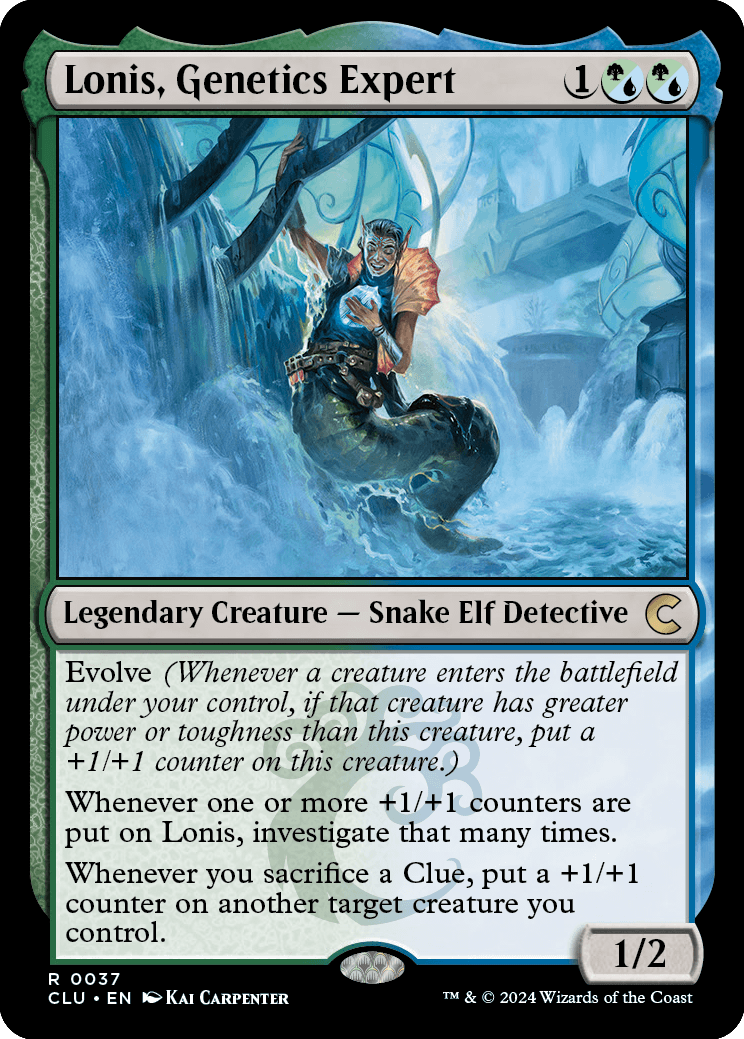
Lonis, Genetics Expert
{1}{G/U}{G/U}
Legendary Creature — Snake Elf Detective
1/2
Evolve (Whenever a creature enters the battlefield under your control, if that creature has greater power or toughness than this creature, put a +1/+1 counter on this creature.)
Whenever one or more +1/+1 counters are put on Lonis, investigate that many times.
Whenever you sacrifice a Clue, put a +1/+1 counter on another target creature you control.
- When comparing the stats of the two creatures for evolve, you always compare power to power and toughness to toughness.
- Whenever a creature enters the battlefield under your control, check its power and toughness against the power and toughness of the creature with evolve. If neither stat of the new creature is greater, evolve won't trigger at all.
- If evolve triggers, the stat comparison will happen again when the ability tries to resolve. If neither stat of the new creature is greater, the ability will do nothing. If the creature that entered the battlefield leaves the battlefield before evolve tries to resolve, use its last known power and toughness to compare the stats.
- If a creature enters the battlefield with +1/+1 counters on it, consider those counters when determining if evolve will trigger. For example, a 1/1 creature that enters the battlefield with two +1/+1 counters on it will cause the evolve ability of a 2/2 creature to trigger.
- If multiple creatures enter the battlefield at the same time, evolve may trigger multiple times, although the stat comparison will take place each time one of those abilities tries to resolve. For example, if you control a 2/2 creature with evolve and two 3/3 creatures enter the battlefield, evolve will trigger twice. The first ability will resolve and put a +1/+1 counter on the creature with evolve. When the second ability tries to resolve, neither the power nor the toughness of the new creature is greater than that of the creature with evolve, so that ability does nothing.
- When comparing the stats as the evolve ability resolves, it's possible that the stat that's greater changes from power to toughness or vice versa. If this happens, the ability will still resolve and you'll put a +1/+1 counter on the creature with evolve. For example, if you control a 2/2 creature with evolve and a 1/3 creature enters the battlefield under your control, it toughness is greater so evolve will trigger. In response, the 1/3 creature gets +2/-2. When the evolve trigger tries to resolve, its power is greater. You'll put a +1/+1 counter on the creature with evolve.
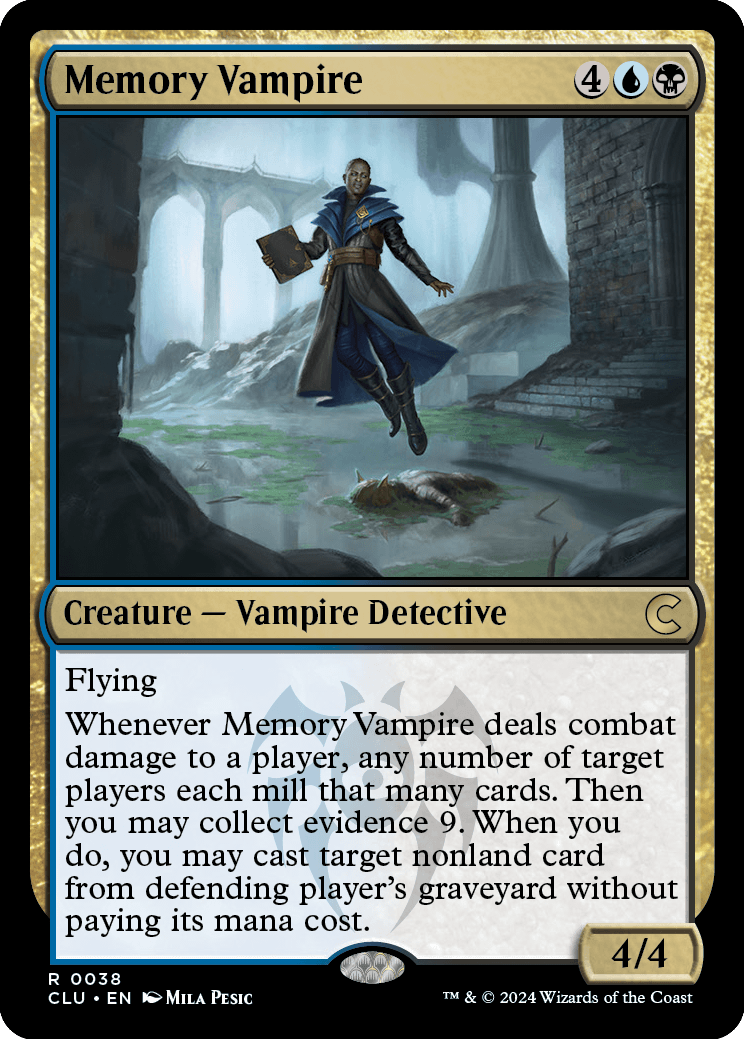
Memory Vampire
{4}{U}{B}
Creature — Vampire Detective
4/4
Flying
Whenever Memory Vampire deals combat damage to a player, any number of target players each mill that many cards. Then you may collect evidence 9. When you do, you may cast target nonland card from defending player's graveyard without paying its mana cost.
- You don't have to choose any target players for Memory Vampire's last ability if you don't want to. In that case, the ability will still resolve and you'll have the opportunity to collect evidence 9.
- You don't choose a target nonland card at the time Memory Vampire's last ability triggers. Rather, a second "reflexive" ability triggers when you collect evidence 9 this way. You choose a target for that ability as it goes on the stack. Each player may respond to this triggered ability as normal.
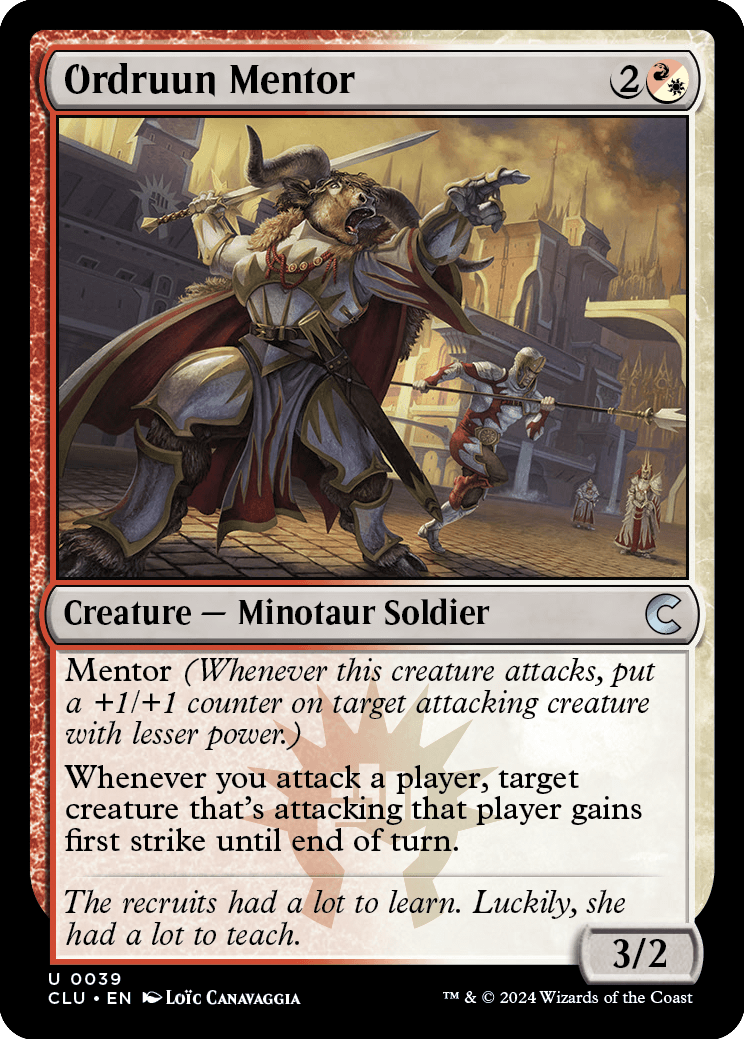
Ordruun Mentor
{2}{R/W}
Creature — Minotaur Soldier
3/2
Mentor (Whenever this creature attacks, put a +1/+1 counter on target attacking creature with lesser power.)
Whenever you attack a player, target creature that's attacking that player gains first strike until end of turn.
- Mentor compares the power of the creature with mentor with that of the target creature at two different times: once as the triggered ability is put onto the stack, and once as the triggered ability resolves. If you wish to raise a creature's power so its mentor ability can target a bigger creature, the last chance you have to do so is during the beginning of combat step.
- If the target creature's power is no longer less than the attacking creature's power as the ability resolves, mentor doesn't add a +1/+1 counter. For example, if two 3/3 creatures with mentor attack and both mentor triggers target the same 2/2 creature, the first to resolve puts a +1/+1 counter on it and the second does nothing.
- If the creature with mentor leaves the battlefield with the mentor ability on the stack, use its power as that creature last existed on the battlefield to determine whether the target creature has lesser power.
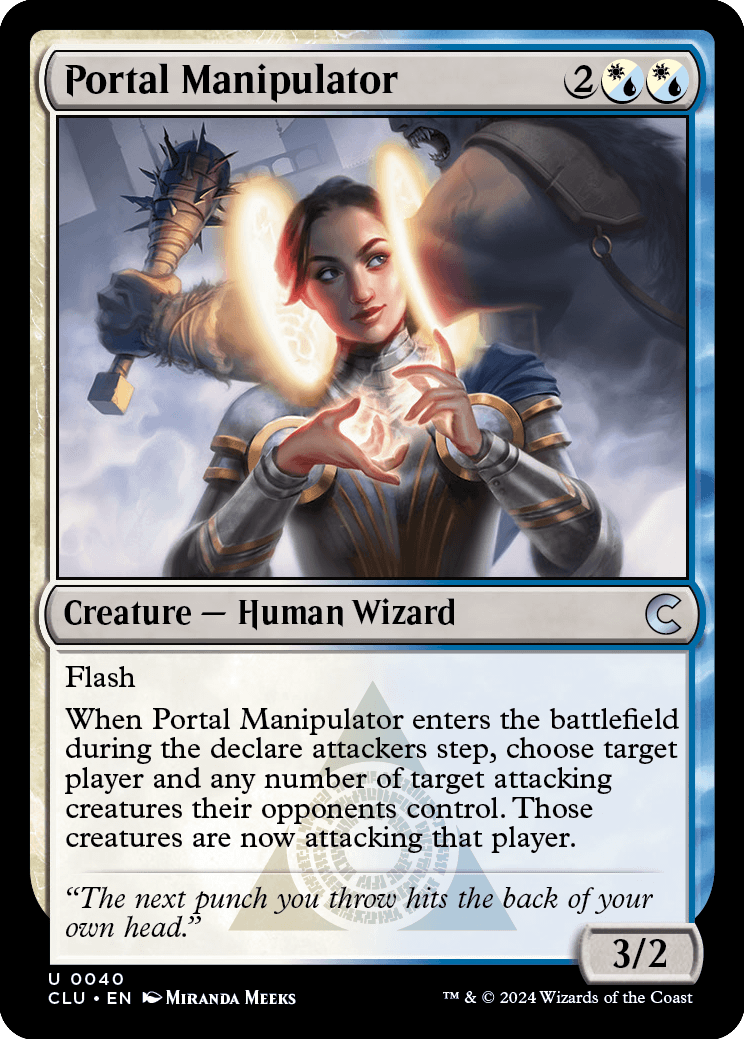
Portal Manipulator
{2}{W/U}{W/U}
Creature — Human Wizard
3/2
Flash
When Portal Manipulator enters the battlefield during the declare attackers step, choose target player and any number of target attacking creatures their opponents control. Those creatures are now attacking that player.
- You may cast Portal Manipulator outside of a declare attackers step. If Portal Manipulator enters the battlefield outside of a declare attackers step, its ability simply doesn't trigger.
- Portal Manipulator's triggered ability ignores all requirements, restrictions, and costs associated with attacking.
- Portal Manipulator's triggered ability doesn't cause "whenever this creature attacks" abilities to trigger.
- Once Portal Manipulator's triggered ability resolves, the target attacking creatures are still considered to have attacked the player, planeswalker, or battle they were initially declared as attacking, but they are now attacking the target player.
- If an ability targets something controlled by the "defending player" of an attacking creature and the defending player for that creature changes before that ability resolves, the ability won't resolve because its target has become illegal.
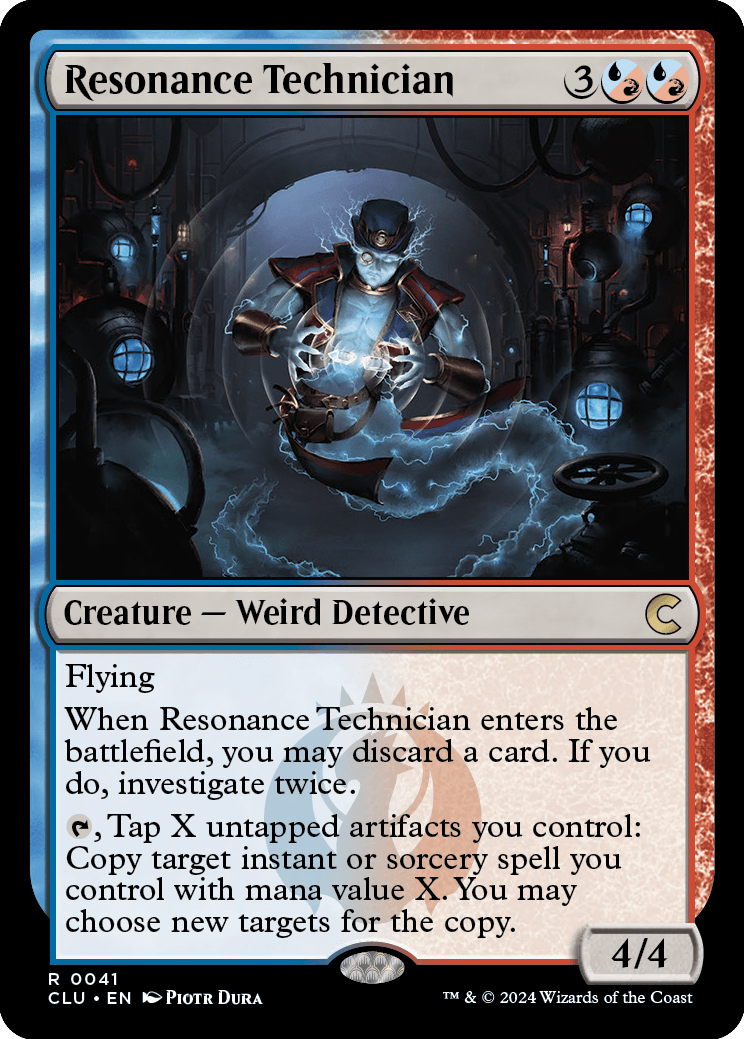
Resonance Technician
{3}{U/R}{U/R}
Creature — Weird Detective
4/4
Flying
When Resonance Technician enters the battlefield, you may discard a card. If you do, investigate twice.
{T}, Tap X untapped artifacts you control: Copy target instant or sorcery spell you control with mana value X. You may choose new targets for the copy.
- The copy is created on the stack, so it's not "cast." Creating the copy won't cause abilities that trigger when a player casts a spell to trigger.
- If the spell that's copied has an X whose value was determined as it was cast, the copy has the same value of X.
- If the spell that's copied is modal (that is, it says "Choose one —" or the like), the copy will have the same mode. A different mode can't be chosen.
- If a spell or ability has damage divided, the division can't be changed, although the targets receiving that damage still can. The same is true of spells and abilities that distribute counters.
- You can't choose to pay any additional costs for a copied spell. However, effects based on any additional costs that were paid for the original spell are copied as though those same costs were paid for the copy too.
- Any choices made when the spell resolves won't have been made yet when it's copied. Any such choices will be made separately when the copy resolves.
- The copy will have the same targets as the spell it's copying unless you choose new ones. You may change any number of the targets, including all of them or none of them. If, for one of the targets, you can't choose a new legal target, then it remains unchanged (even if the current target is illegal).
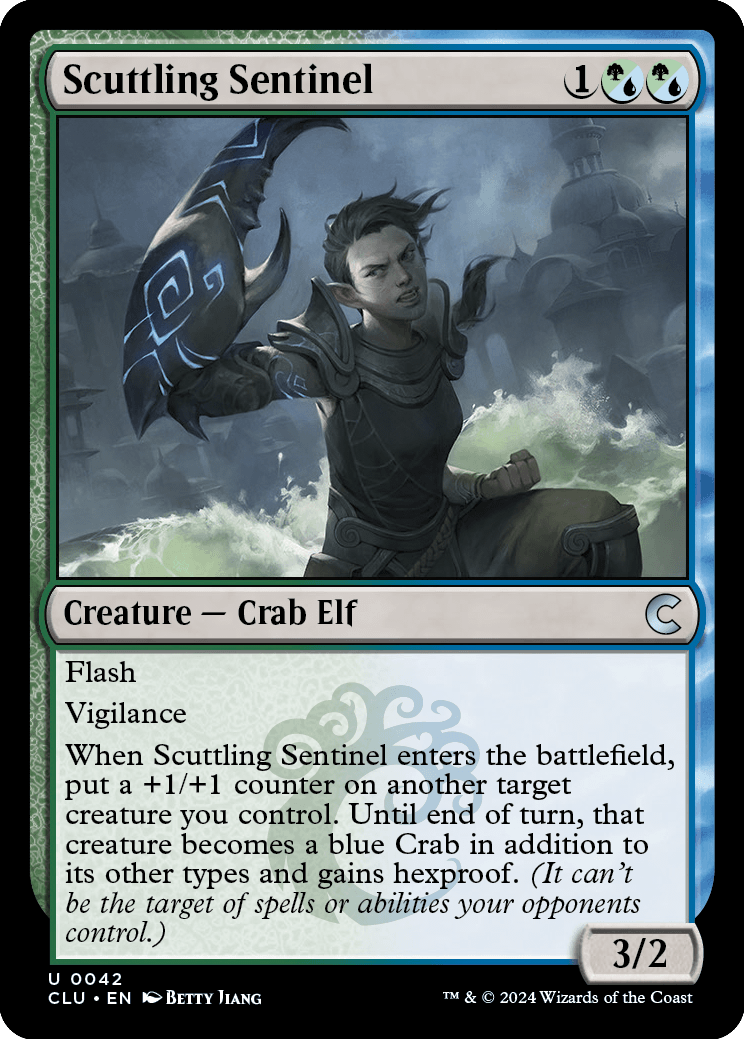
Scuttling Sentinel
{1}{G/U}{G/U}
Creature — Crab Elf
3/2
Flash
Vigilance
When Scuttling Sentinel enters the battlefield, put a +1/+1 counter on another target creature you control. Until end of turn, that creature becomes a blue Crab in addition to its other types and gains hexproof. (It can't be the target of spells or abilities your opponents control.)
- The target creature retains any types, subtypes, or supertypes it has.
- The target creature will not retain its previous colors; it will just be blue until end of turn.
- The target creature will become a blue Crab in addition to its other types and will gain hexproof even if counters can't be placed on it for some reason.
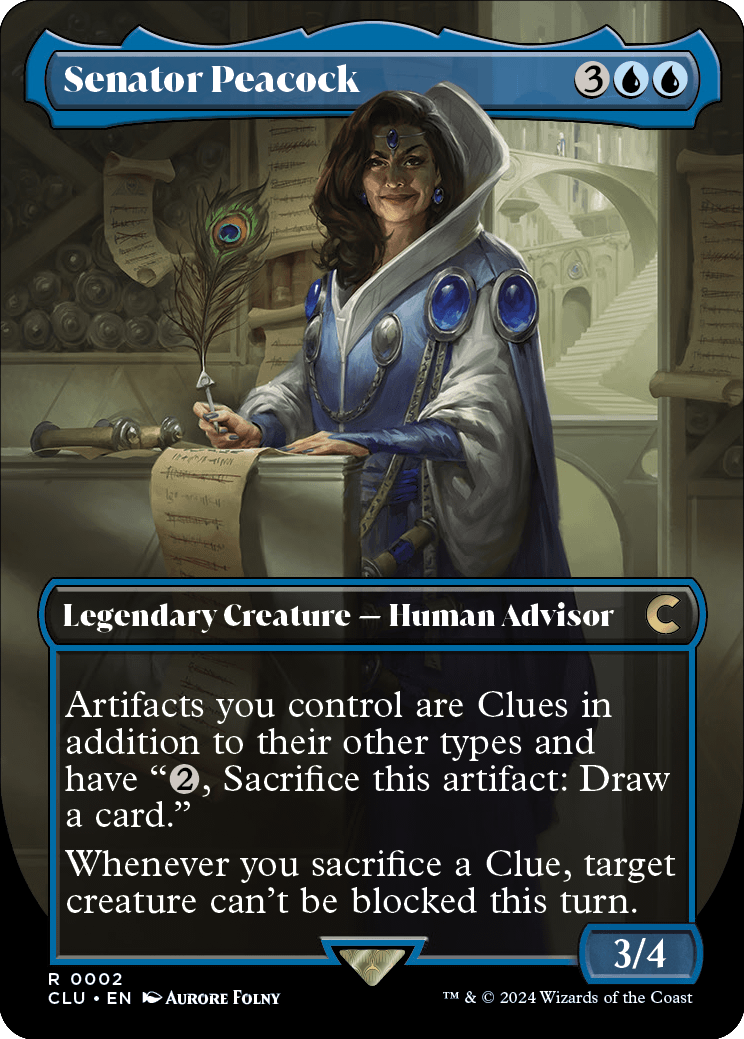
Senator Peacock
{3}{U}{U}
Legendary Creature — Human Advisor
3/4
Artifacts you control are Clues in addition to their other types and have "{2}, Sacrifice this artifact: Draw a card."
Whenever you sacrifice a Clue, target creature can't be blocked this turn.
- The artifacts retain any types, subtypes, supertypes, and abilities they have.
- If Senator Peacock somehow becomes an artifact, it will also be a Clue.
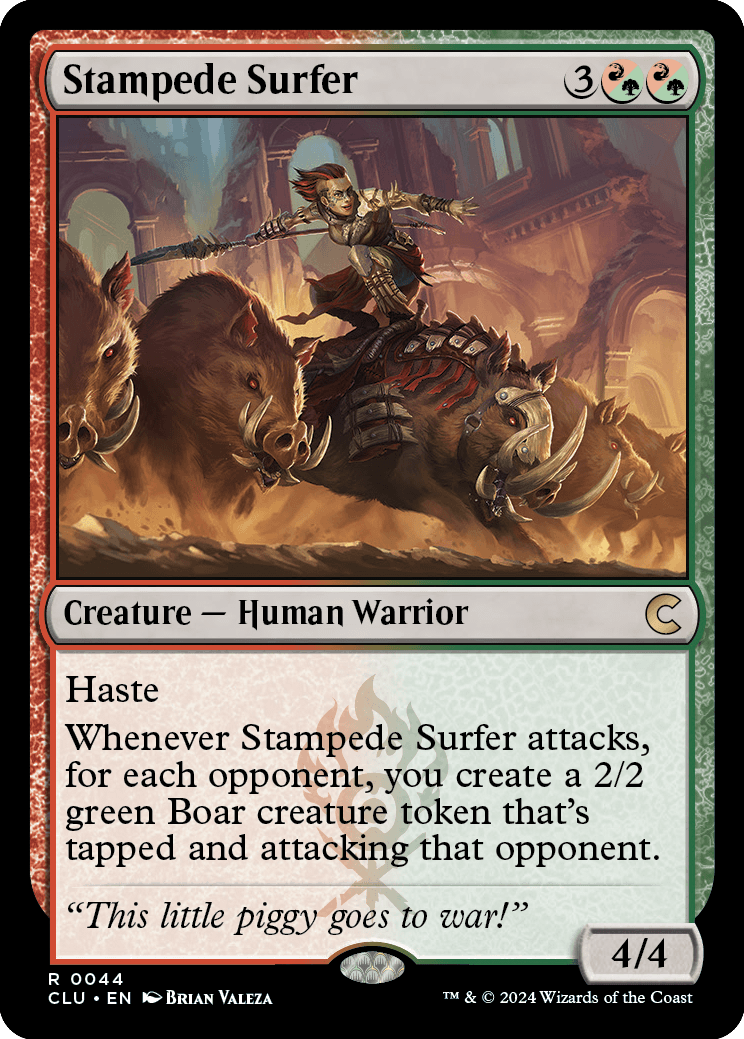
Stampede Surfer
{3}{R/G}{R/G}
Creature — Human Warrior
4/4
Haste
Whenever Stampede Surfer attacks, for each opponent, you create a 2/2 green Boar creature token that's tapped and attacking that opponent.
- Although the tokens enter the battlefield attacking, they were never declared as attackers. Abilities that trigger whenever a creature attacks won't trigger. If there are any costs to have a creature attack, those costs won't apply to the tokens.
- The token creatures all enter the battlefield at the same time.
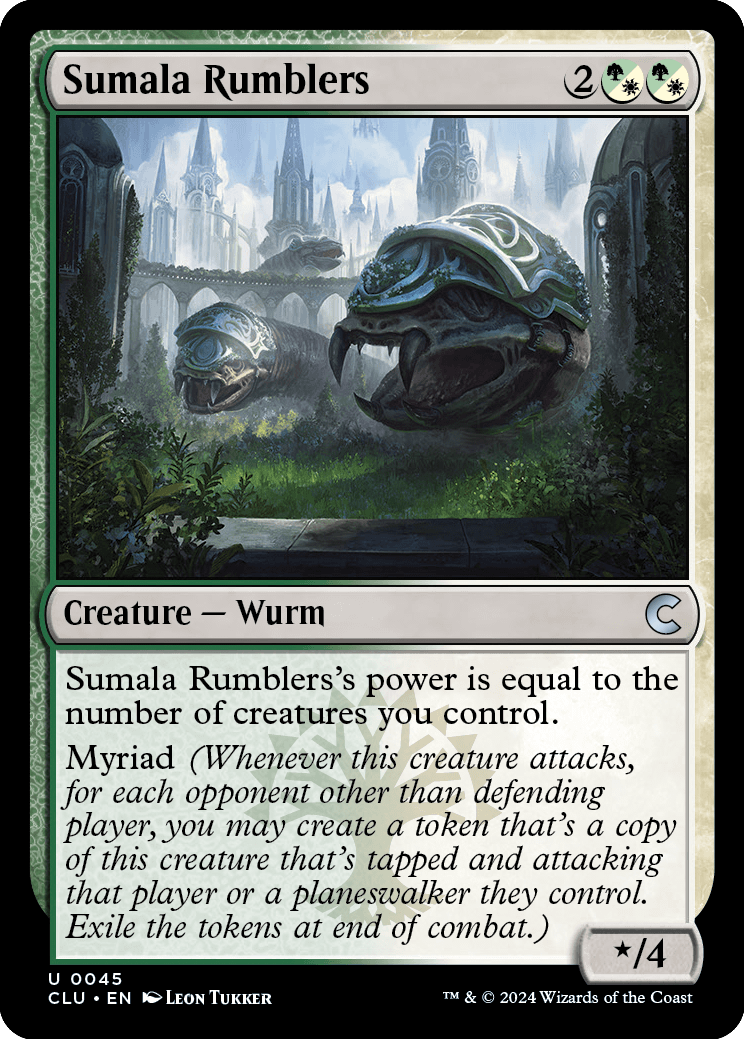
Sumala Rumblers
{2}{G/W}{G/W}
Creature — Wurm
*/4
Sumala Rumblers's power is equal to the number of creatures you control.
Myriad (Whenever this creature attacks, for each opponent other than defending player, you may create a token that's a copy of this creature that's tapped and attacking that player or a planeswalker they control. Exile the tokens at end of combat.)
- The ability that defines Sumala Rumblers's power works in all zones, not just the battlefield.
- The term "defending player" in the myriad rules (or any other ability of an attacking creature) refers to the player the creature with myriad was attacking at the time it became an attacking creature this combat, the controller of the planeswalker the creature was attacking at the time it became an attacking creature this combat, or the protector of the battle this creature was attacking at the time it became an attacking creature this combat.
- If the defending player is your only opponent, no tokens are put onto the battlefield.
- You choose whether each token is attacking the player or a planeswalker they control as the token is created.
- Although the tokens enter the battlefield attacking, they were never declared as attackers. Abilities that trigger whenever a creature attacks won't trigger, including the myriad ability of the tokens. If there are any costs to have a creature attack, those costs won't apply to the tokens.
- The token creatures all enter the battlefield at the same time.
- Each token copies exactly what was printed on the original creature and nothing else. It doesn't copy whether that creature is tapped or untapped, whether it has any counters on it or Auras and Equipment attached to it, or any non-copy effects that have changed its power, toughness, types, color, and so on.
- Any enters-the-battlefield abilities of the copied creature will trigger when the token enters the battlefield. Any "as [this permanent] enters the battlefield" or "[this permanent] enters the battlefield with" abilities of the copied creature will also work.
- If myriad creates more than one token for any given player (due to an effect such as the one Doubling Season creates), you may choose separately for each token whether it's attacking the player or a planeswalker they control.
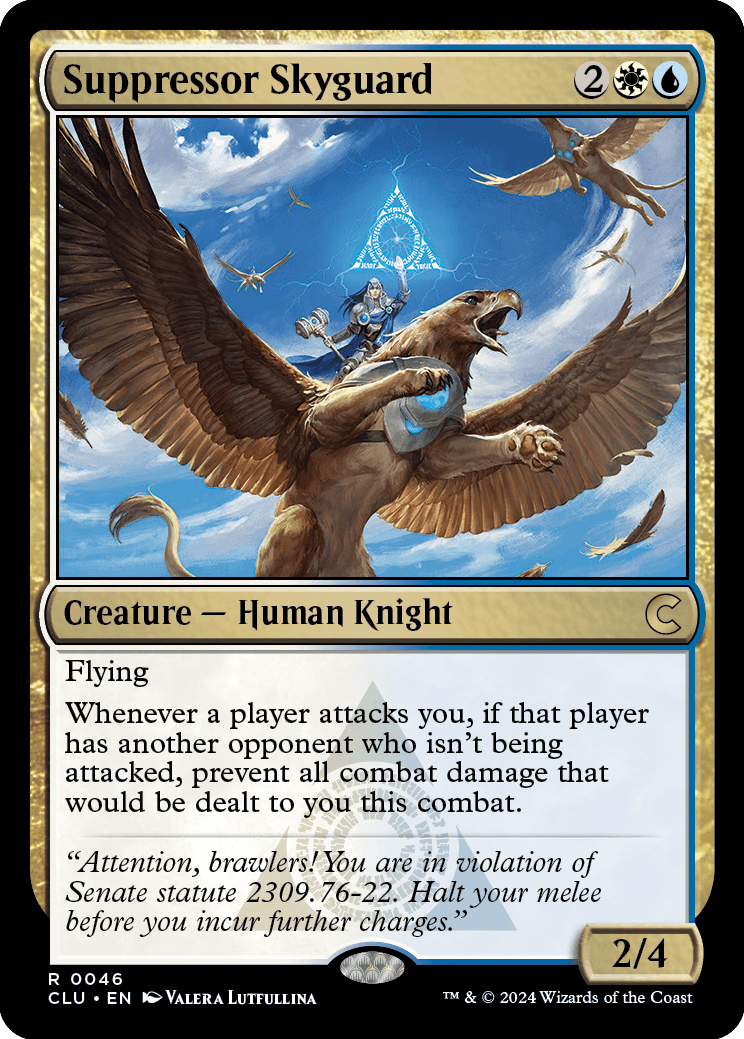
Suppressor Skyguard
{2}{W}{U}
Creature — Human Knight
2/4
Flying
Whenever a player attacks you, if that player has another opponent who isn't being attacked, prevent all combat damage that would be dealt to you this combat.
- Suppressor Skyguard's ability will trigger if any of the attacking player's opponents besides you aren't being attacked. It doesn't matter if that player is also attacking any planeswalkers those opponents control or battles they protect.
- If the "intervening if" clause of Suppressor Skyguard's last ability is no longer met when the ability tries to resolve, it won't resolve and none of its effects will happen. For example, if the player attacking you attacked with a creature with myriad and the tokens created by that ability are still on the battlefield attacking all of that player's other opponents when Suppressor Skyguard's last ability tries to resolve , the condition will no longer be true, the ability won't resolve, and damage won't be prevented. Similarly, if all of the attacking player's other opponents leave the game before Suppressor Skyguard's last ability resolves, the condition will no longer be true when the ability tries to resolve, the ability won't resolve, and damage won't be prevented.
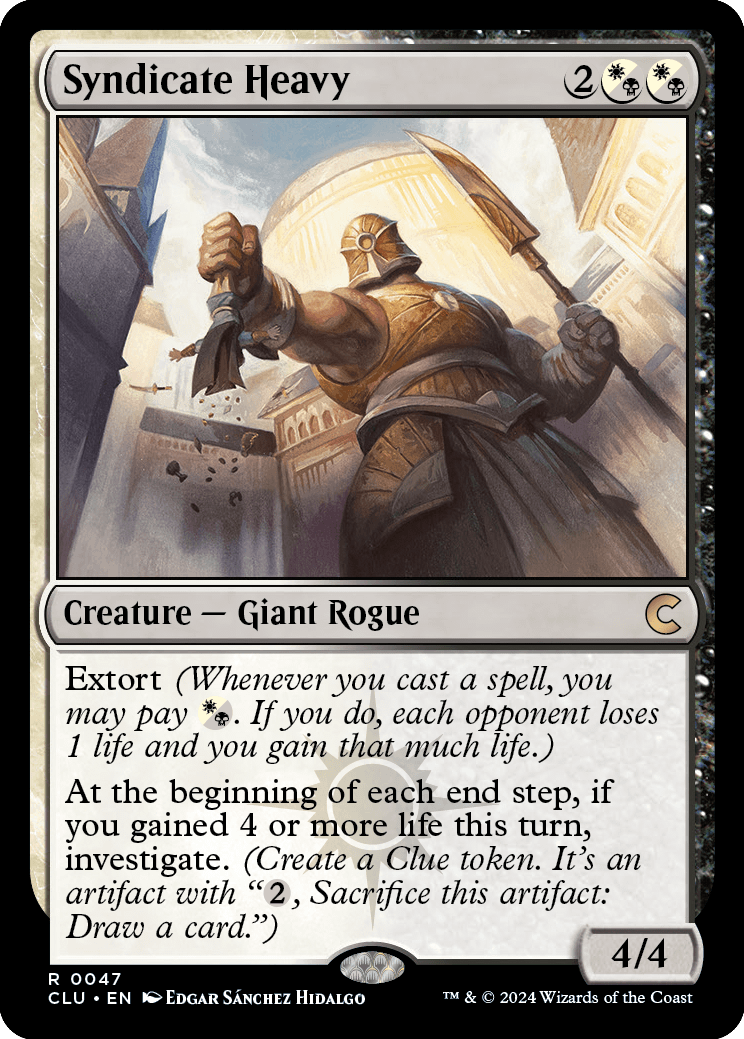
Syndicate Heavy
{2}{W/B}{W/B}
Creature — Giant Rogue
4/4
Extort (Whenever you cast a spell, you may pay {W/B}. If you do, each opponent loses 1 life and you gain that much life.)
At the beginning of each end step, if you gained 4 or more life this turn, investigate. (Create a Clue token. It's an artifact with "{2}, Sacrifice this artifact: Draw a card.")
- You may pay {W/B} a maximum of one time for each extort triggered ability. You decide whether to pay when the ability resolves.
- The amount of life you gain from extort is based on the total amount of life lost, not necessarily the number of opponents you have. For example, if your opponent's life total can't change (perhaps because that player controls Platinum Emperion), you won't gain any life.
- The extort ability doesn't target any player.
- You investigate just once, no matter how much life you've gained past 4.
- Syndicate Heavy's last ability looks at how much life you've gained in the turn, even if it wasn't on the battlefield when you gained life. It doesn't care if you also lost life, even if you lost more life than you gained.
- If you haven't gained 4 or more life by the time an end step begins, Syndicate Heavy's last ability won't trigger at all.
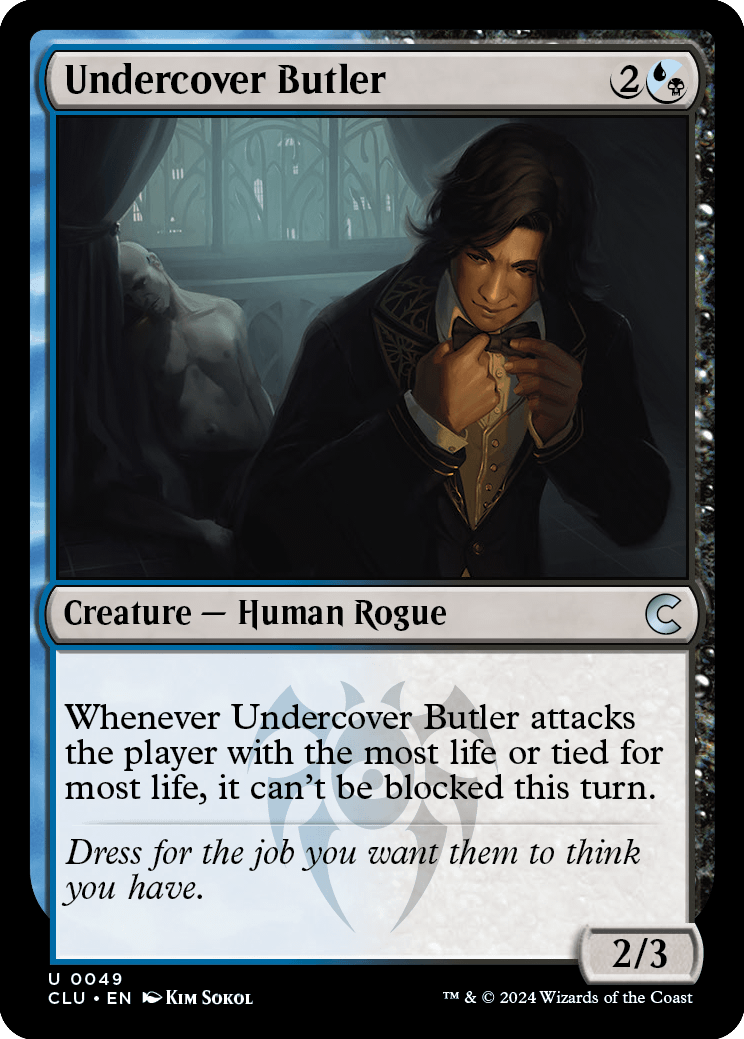
Undercover Butler
{2}{U/B}
Creature — Human Rogue
2/3
Whenever Undercover Butler attacks the player with the most life or tied for most life, it can't be blocked this turn.
- Undercover Butler's ability doesn't trigger if it attacks a planeswalker or battle, no matter what the life total of the planeswalker's controller or battle's protector is.
- Once Undercover Butler's ability triggers, it doesn't matter what happens to players' life totals before the ability resolves. Undercover Butler won't be able to be blocked this turn even if the defending player doesn't have the most life and isn't tied for most life as the ability resolves.
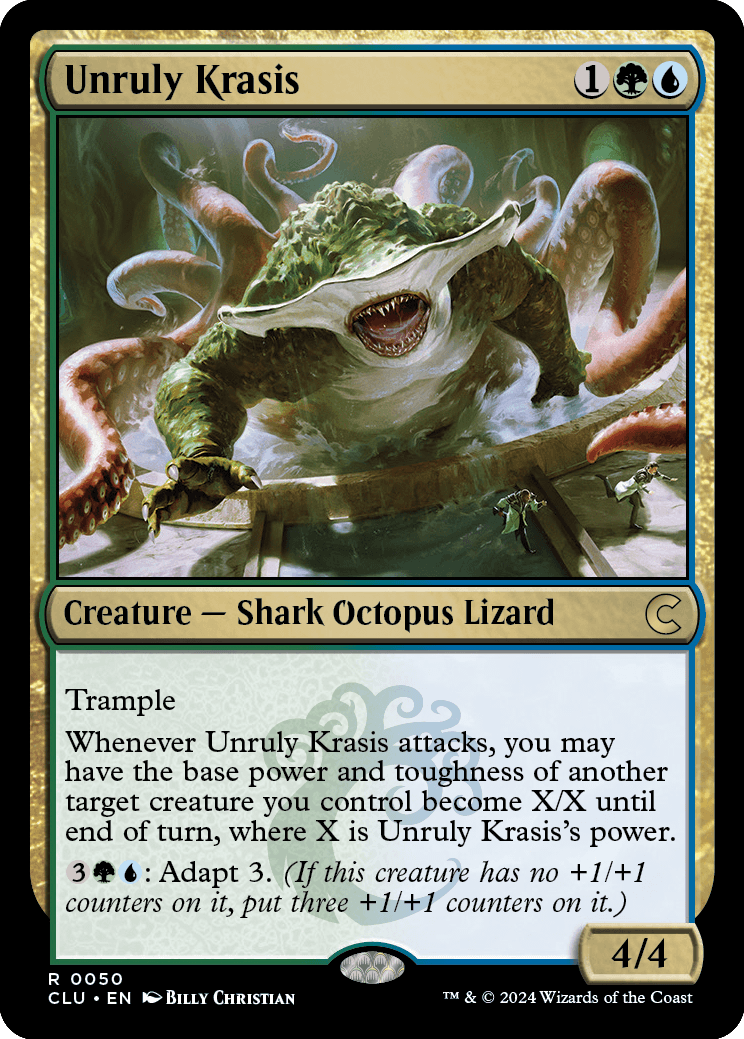
Unruly Krasis
{1}{G}{U}
Creature — Shark Octopus Lizard
4/4
Trample
Whenever Unruly Krasis attacks, you may have the base power and toughness of another target creature you control become X/X until end of turn, where X is Unruly Krasis's power.
{3}{G}{U}: Adapt 3. (If this creature has no +1/+1 counters on it, put three +1/+1 counters on it.)
- The value of X is determined only once, as Unruly Krasis's second ability resolves. Further changes to Unruly Krasis's power that turn won't cause the target creature's base power and toughness to change.
- Unruly Krasis's second ability will overwrite any previous effects that set the creature's power and toughness to specific numbers. Effects that otherwise modify its power and toughness will still apply no matter when they took effect. The same is true for +1/+1 counters.
- You can always activate an ability that will cause a creature to adapt. As that ability resolves, if the creature has a +1/+1 counter on it for any reason, you simply won't put any +1/+1 counters on it.
- If a creature somehow loses all of its +1/+1 counters, it can adapt again and get more +1/+1 counters.
Magic: The Gathering, Magic, Innistrad, New Capenna, Kamigawa, Dominaria, The Brothers' War, Phyrexia, Eldraine, and Ixalan are property of Wizards of the Coast LLC in the USA and other countries. ©2024 Wizards.
